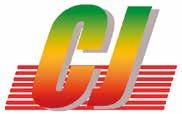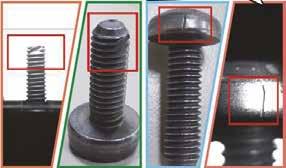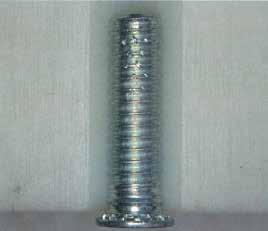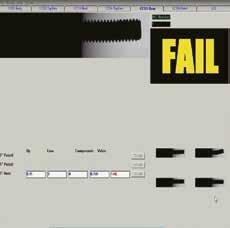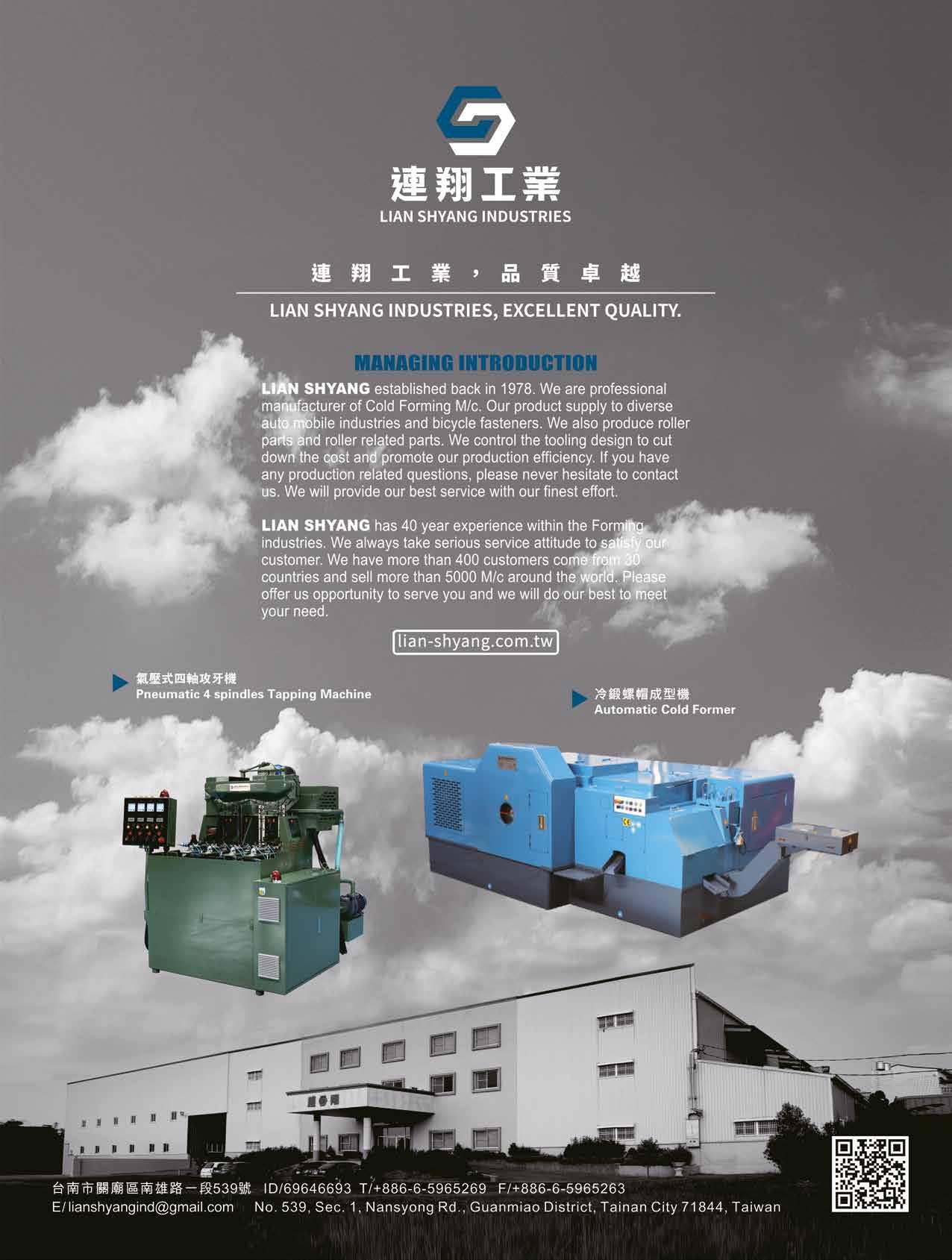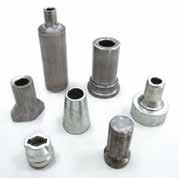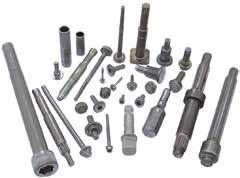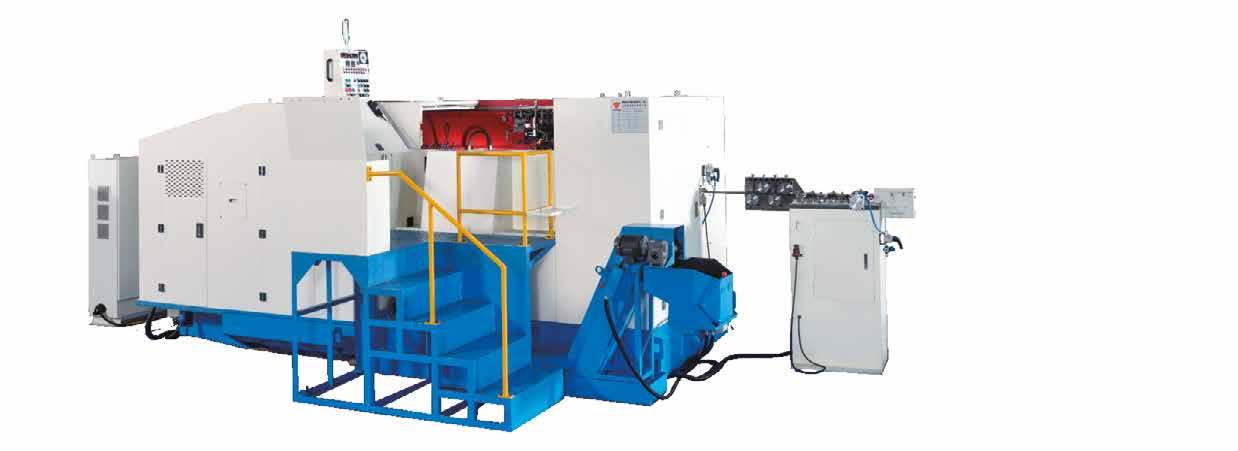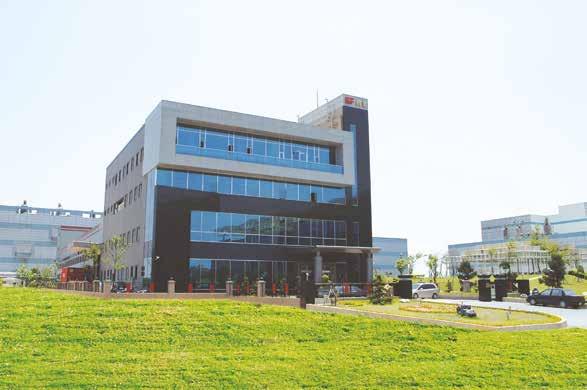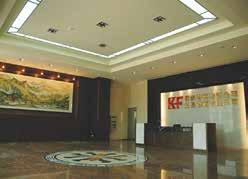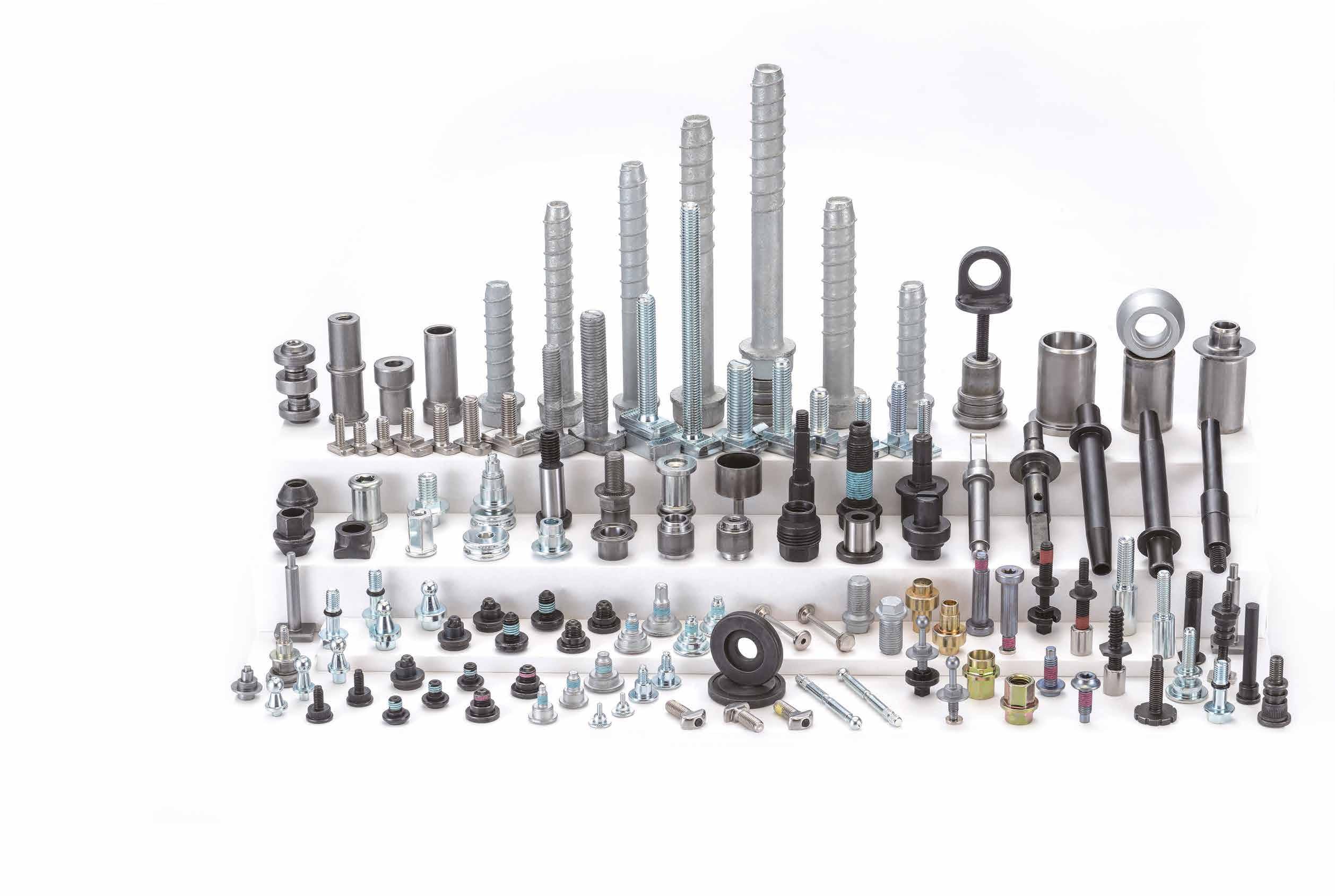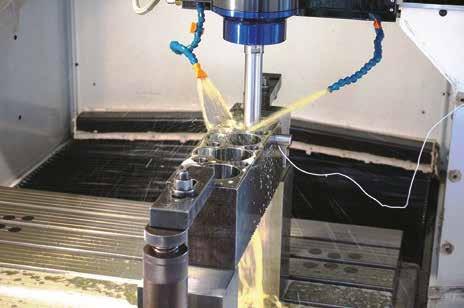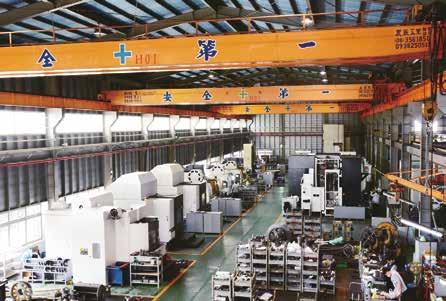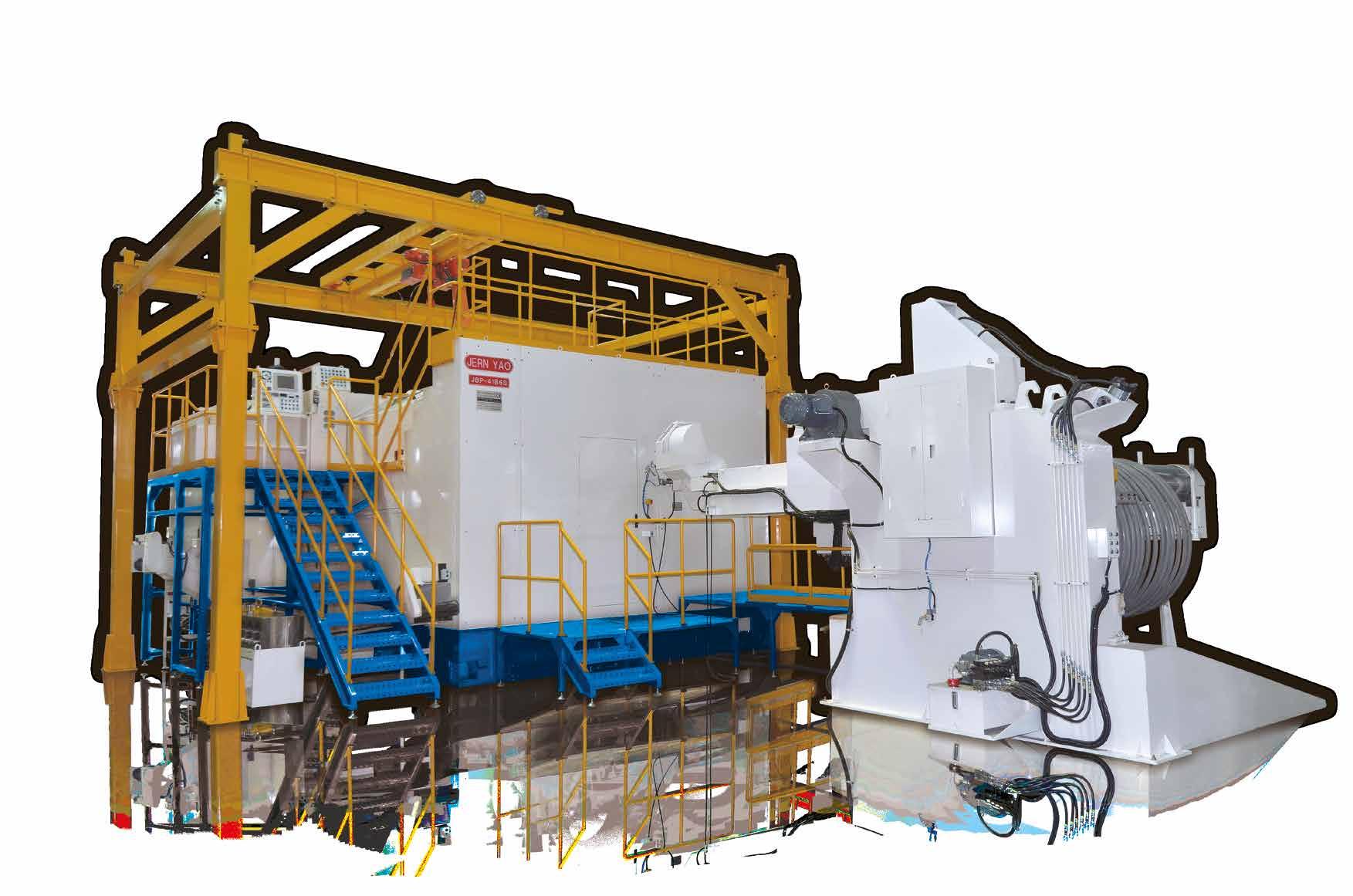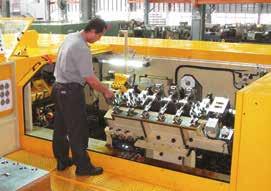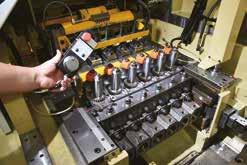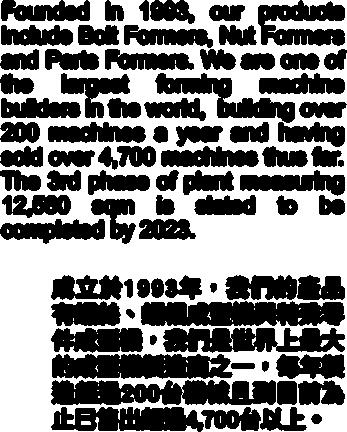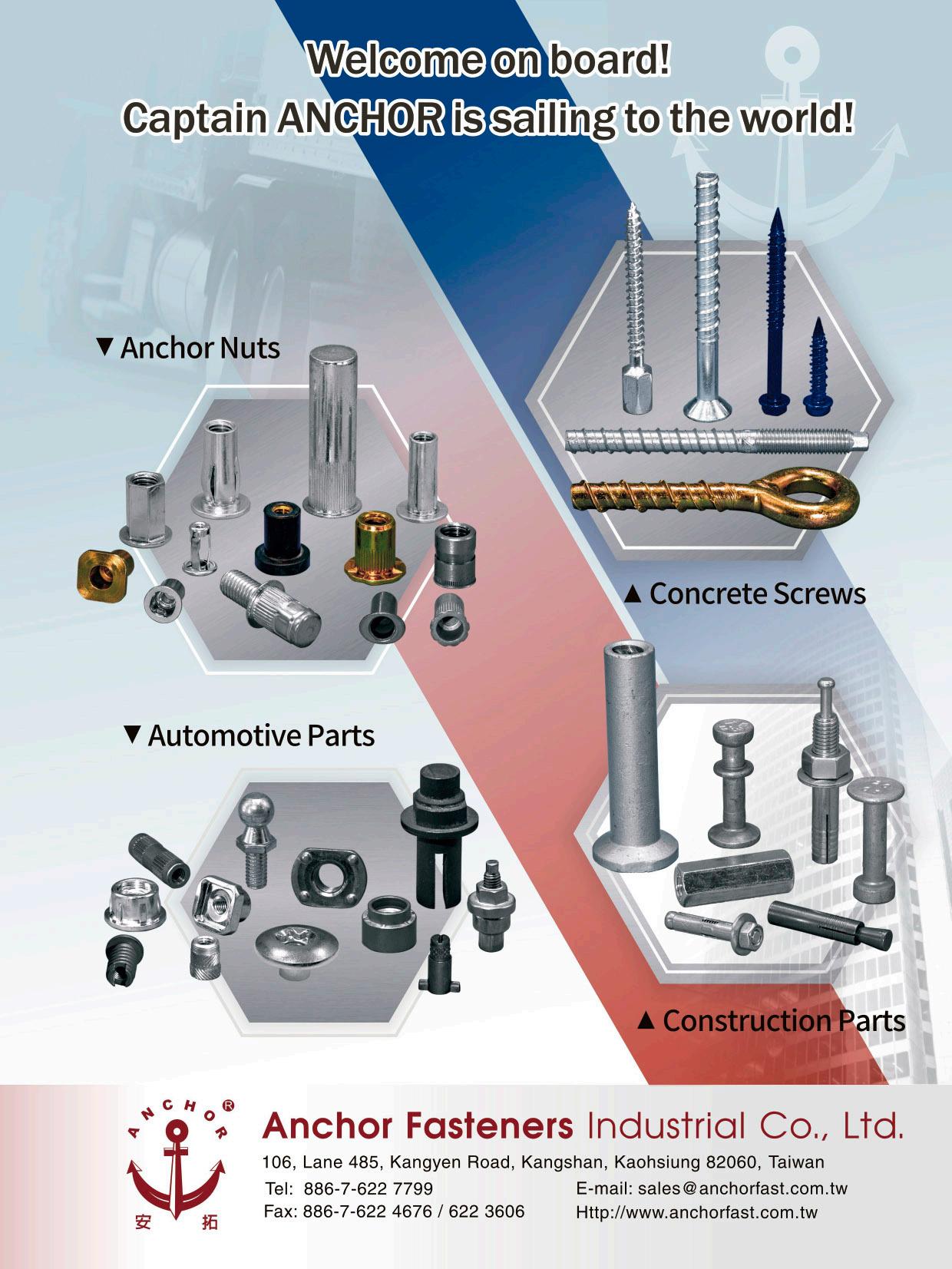































































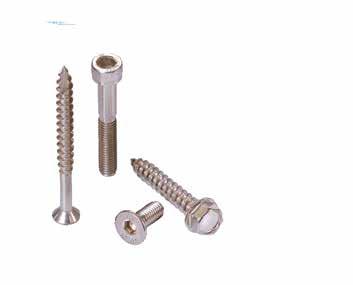






























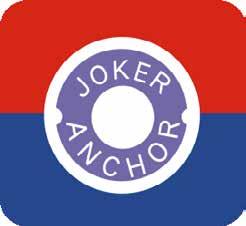


















































































































































































































Following the previous certifications of D&B, IATF 16949, ISO 9001:2015, and Taiwan Mittelstand Award, Taiwanese customized automotive, special, and lock nuts manufacturer, Hu Pao Industries Co., Ltd. has again obtained the ISO 14064-1:2018 certification for quantification and reporting of greenhouse gas emissions and removals, which is another step forward for its substantial progress towards ESG compliance and becoming a green sustainable fastener enterprise. Getting this certification is also an indirect way for Hu Pao to announce to its global customers that it’s been ready to move towards low carbon manufacturing.
Taiwanese fasteners are mostly exported to Europe and the U.S. With the increasing concern of customers on energy saving and carbon reduction as well as the imminent implementation of EU’s Carbon Border Adjustment Mechanism (CBAM) in 2026, the carbon emission control of enterprises has become an important assessment factor for the smooth entry of future products into the local market, and the ISO 14064-1:2018 is the 1st step to help enterprises understand their carbon emission status. Recognizing the importance of net-zero carbon emissions to corporate sustainability, Hu Pao is leading the industry in initiating GHG Inventory verification in 2021, with senior executives directly involved in cross-departmental integration and focusing on direct emissions, indirect energy emissions and other indirect emissions to compile relevant data and certificates under specifications and produce the organization’s final greenhouse gas emission report, emission inventory and inventory procedure documents, clearly quantifying the organization’s carbon footprint from raw materials to shipments. In April 2023, it officially obtained the ISO 14064-1:2018 certification from Ares International, a third-party certification body.
“We spent a lot of time and manpower collecting the necessary info for certification. During the period, we actively identified the sources of carbon emissions in our factory and strengthened energy saving and carbon reduction in various aspects, such as the introduction of static-electricity waste oil recycling system, installation of smart meters on forming machines, introduction of PM2.5 detection, ERP system integration, improvement of factory energy management according to ISO 50001, data digitalization, free vegetable lunch for employees, etc. I also joined Zero+ College and CJCU Net Zero Transformation Alliance to observe and learn how the 2nd generation of companies are saving energy and reducing carbon emissions. ESG is a confirmed way forward for Hu Pao and reducing carbon emissions is an important part of that. By combining this vision with the company’s goals and allowing employees to fully understand and work together, and at a time when many industry players are clearly lagging behind other industries, Hu Pao takes the lead to set the example, not only enabling us to significantly increase our competitiveness in the market, but also gaining access to the EU market when the carbon tax kicks in,” said Hu Pao Vice President Bill Wang.
Email: bill@hupao.com.tw
In addition to making a profit, Hu Pao constantly reminds itself of what kind of environment it can leave behind for future generations. Achieving ISO 14064-1:2018 is not only a demonstration of its commitment to customers, but it’ll also be a great help to its future development towards ESG. Even though Hu Pao has already submitted a thick ISO 14064-1:2018 report and obtained the certification, it has not stopped collecting carbon emission data to strengthen its improvement. It continues to record carbon emission data every month and hopes to collect the coefficients for 3 years, and then conduct the audit and certification again next year. “After passing the certification, we’ll continue to improve plant efficiency, increase quality & yield, optimize processes, enhance digitalization, and reduce energy waste. In addition to CBAM, the U.S. may also initiate carbon tax measures in 2024. However, we’re already prepared for that. This year we are planning to participate in many US exhibitions to expand our presence there and to let more overseas customers know about our efforts to save energy and reduce carbon emissions, as well as to contribute to the sustainability of the planet,” said Wang. As a model of energy saving and carbon reduction in Taiwan fastener industry, Hu Pao hopes that more industry players can join the ranks and contribute to the Earth. It suggests that before starting GHG inventory verification, it is necessary to involve senior personnel, form a cross-departmental team, familiarize members with regulations, use digital automation tools (e.g. ERP, carbon emission software), and establish int./ext. auditing mechanisms in order to promote it smoothly. “In the future if one wants to enter the European or U.S. markets, carbon reduction is definitely the way to go. Although the process will add lots of intangible investment costs, if one can achieve it through innovative processes without raising costs, that’s where the advantage exists. Taiwan is the 3rd largest fastener producer in the world, but it is highly export-oriented. As energy saving and carbon reduction has become a global industry phenomenon, Taiwan industry must keep up in this elimination race and make good use of government subsidies. Hu Pao will also work with up/mid/downstream collaborators to make our best efforts to contribute to global climate change, energy conservation, and carbon reduction,” said Wang.
by Gang Hao Chang, Vice Editor-in-chief of Fastener World Hu Pao contact: Vice President Bill Wang





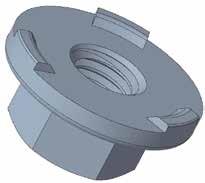





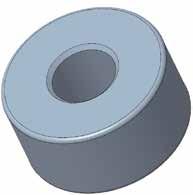
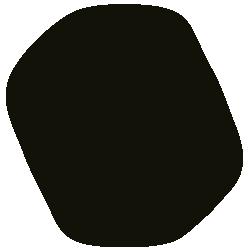




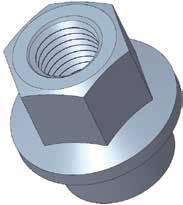

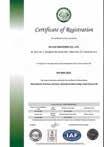




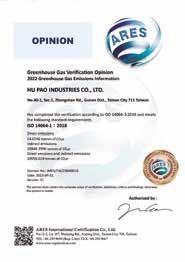














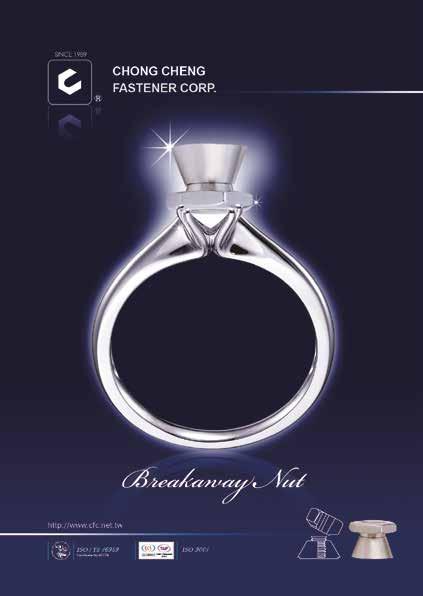








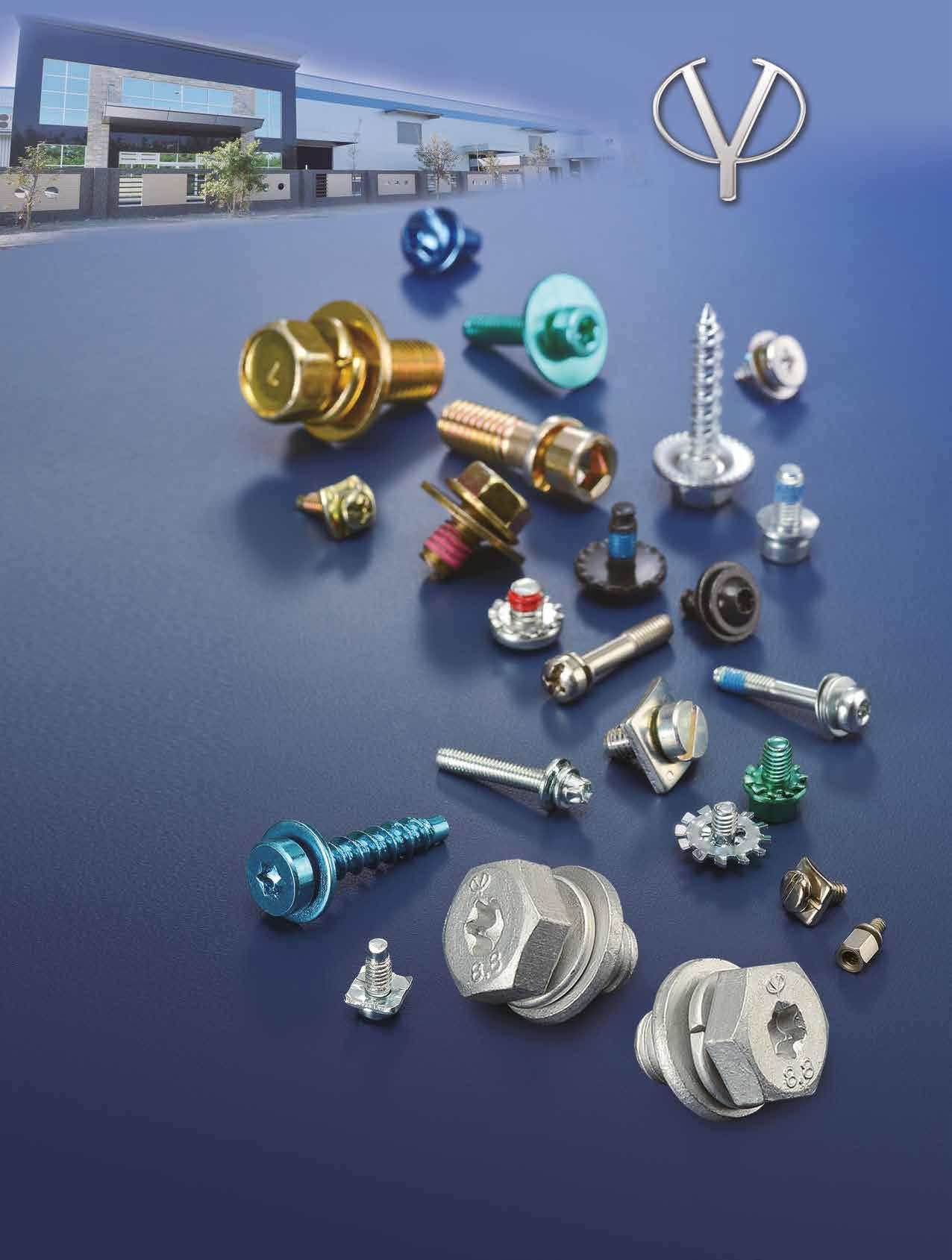








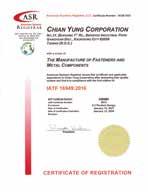

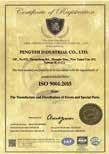

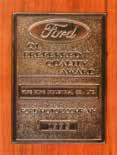
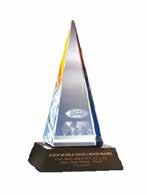

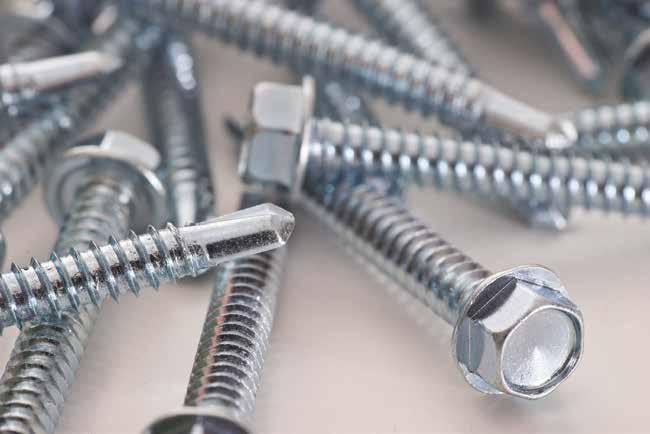

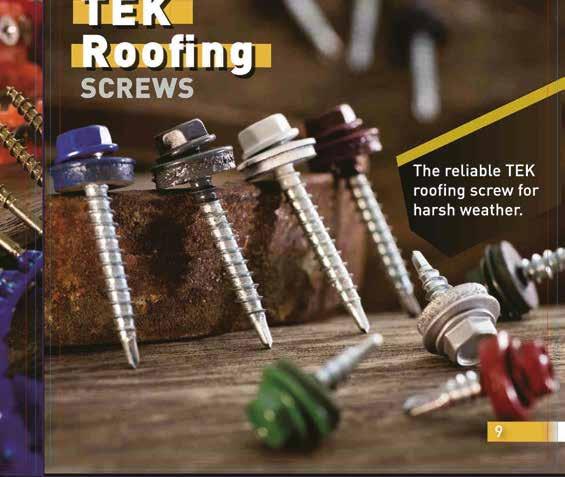
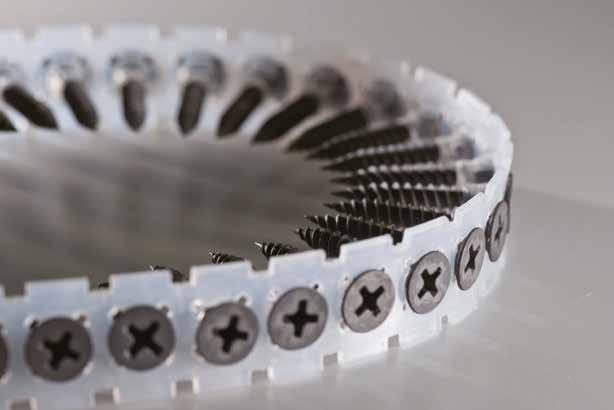


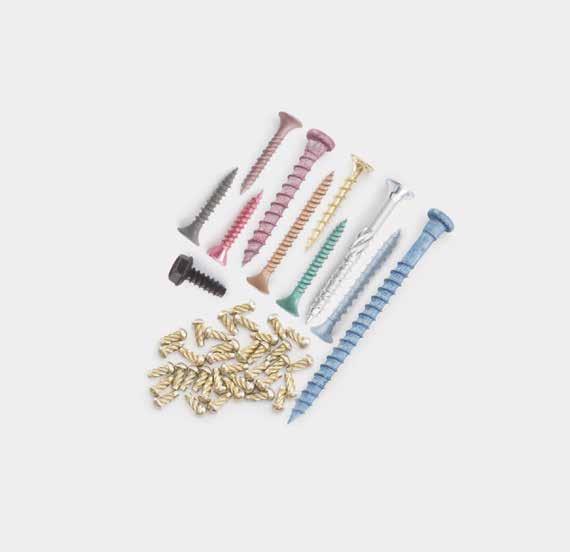
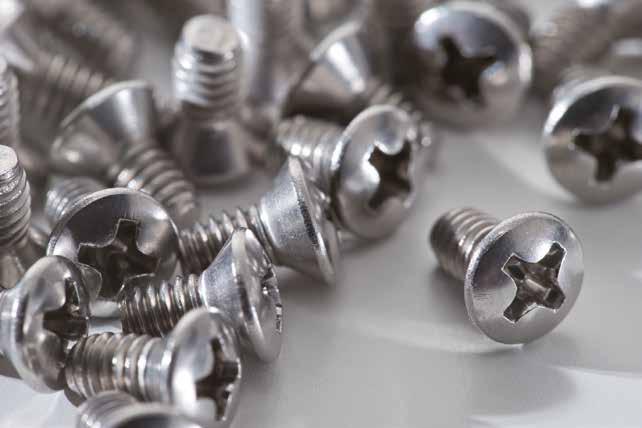
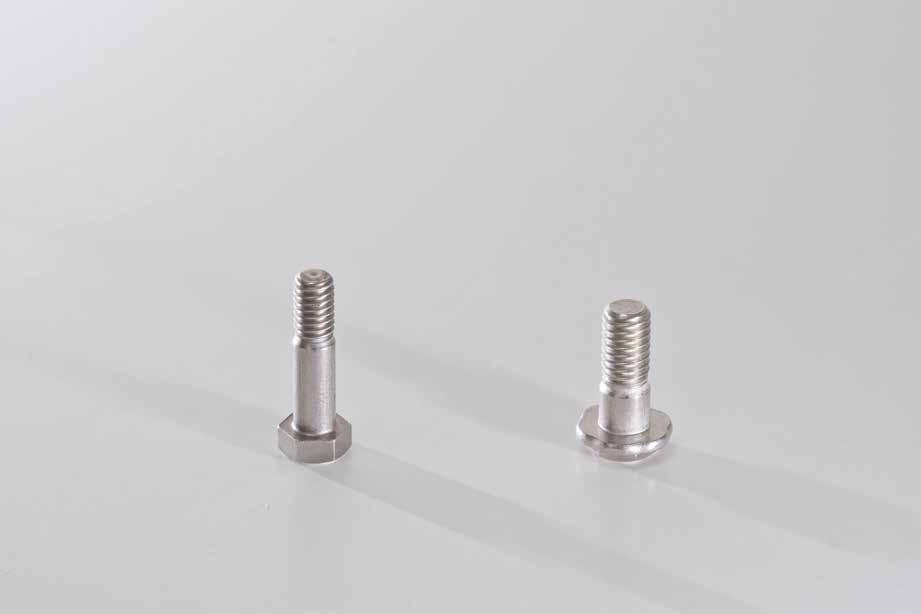
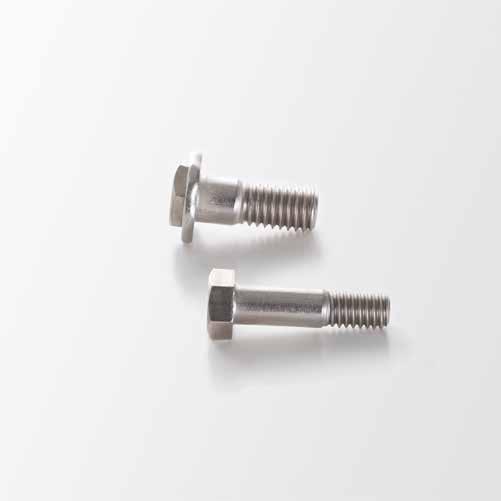









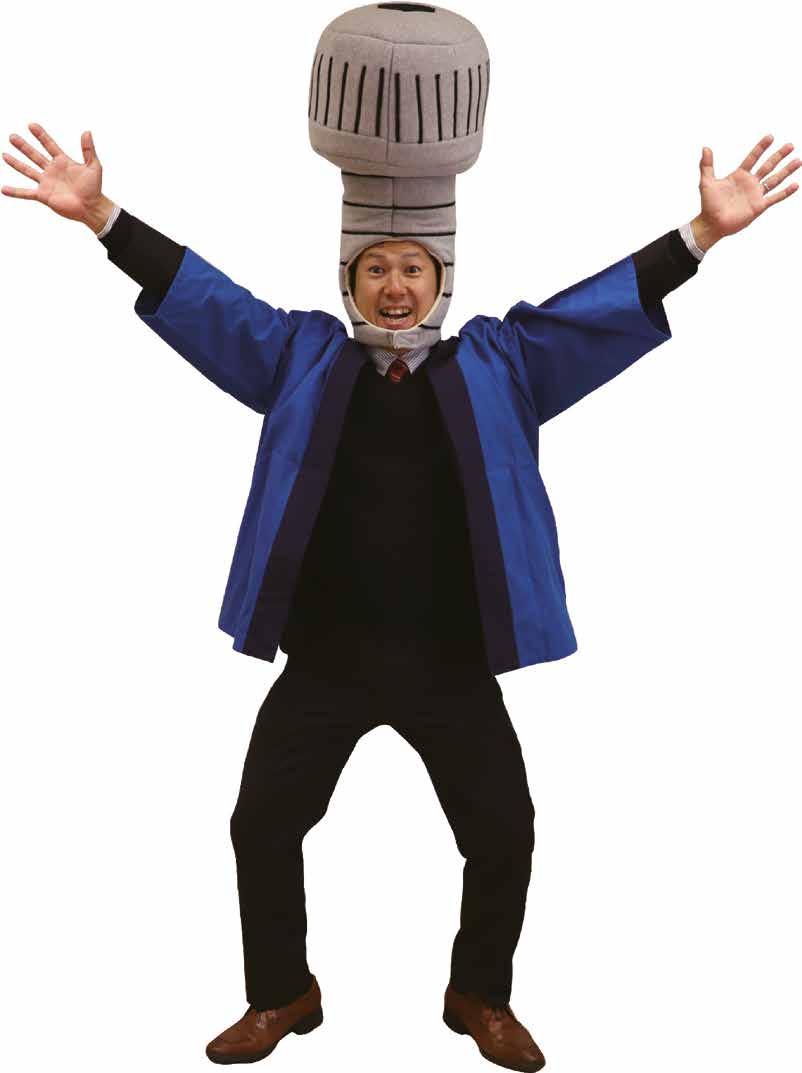







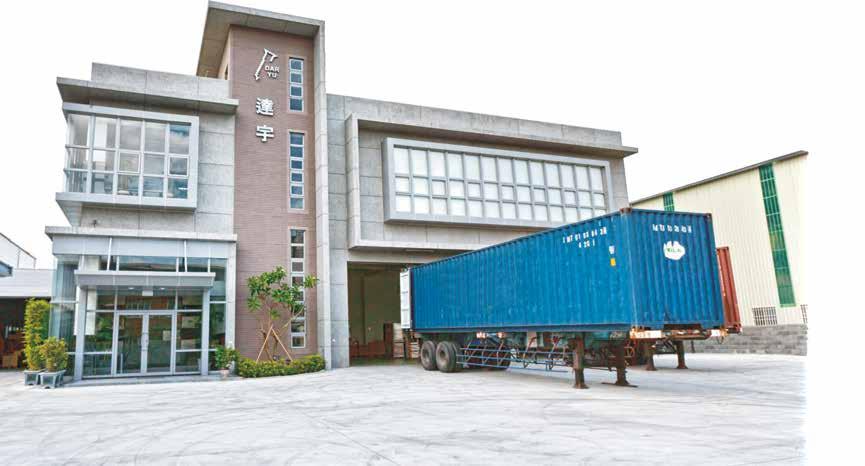
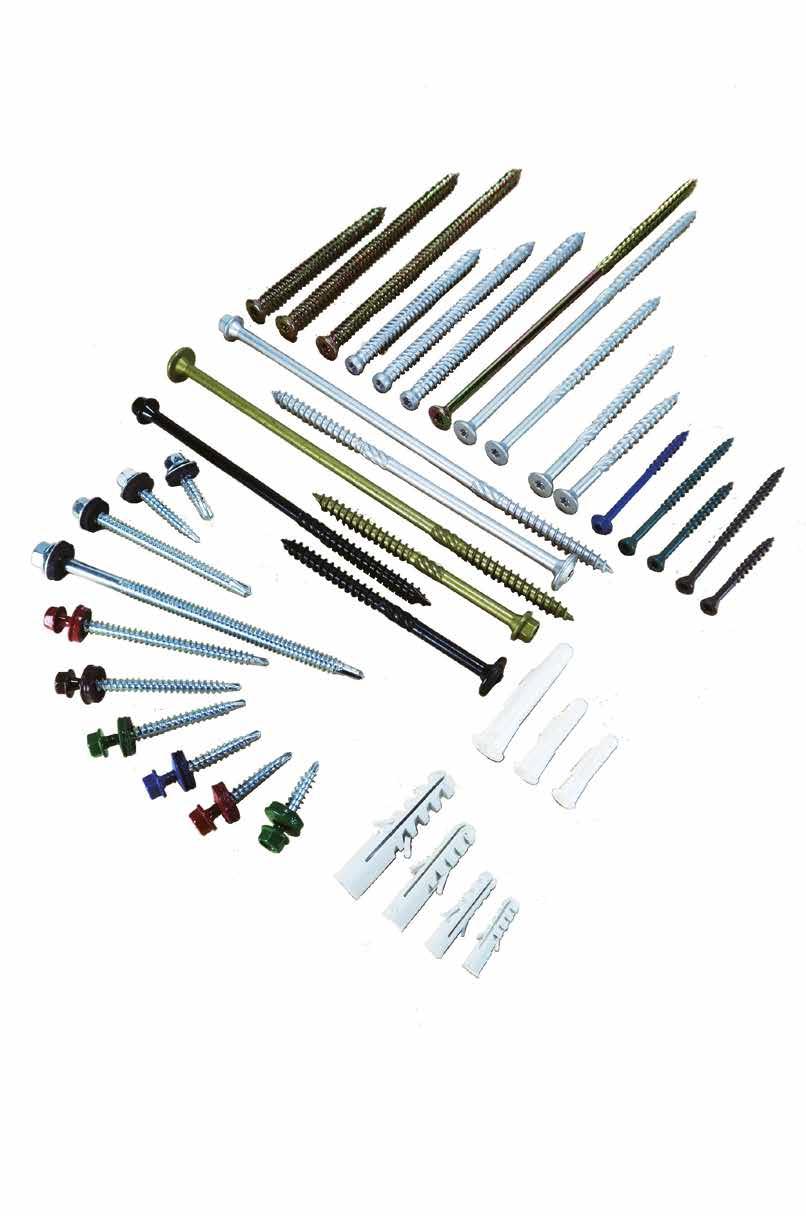

















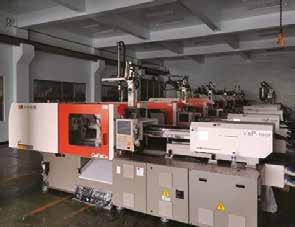

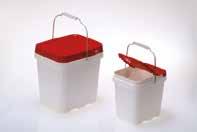

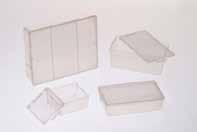




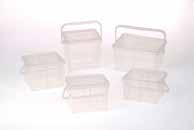




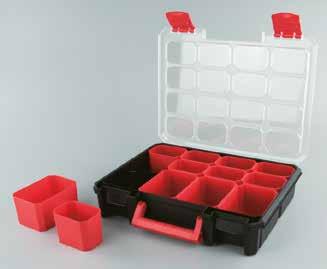


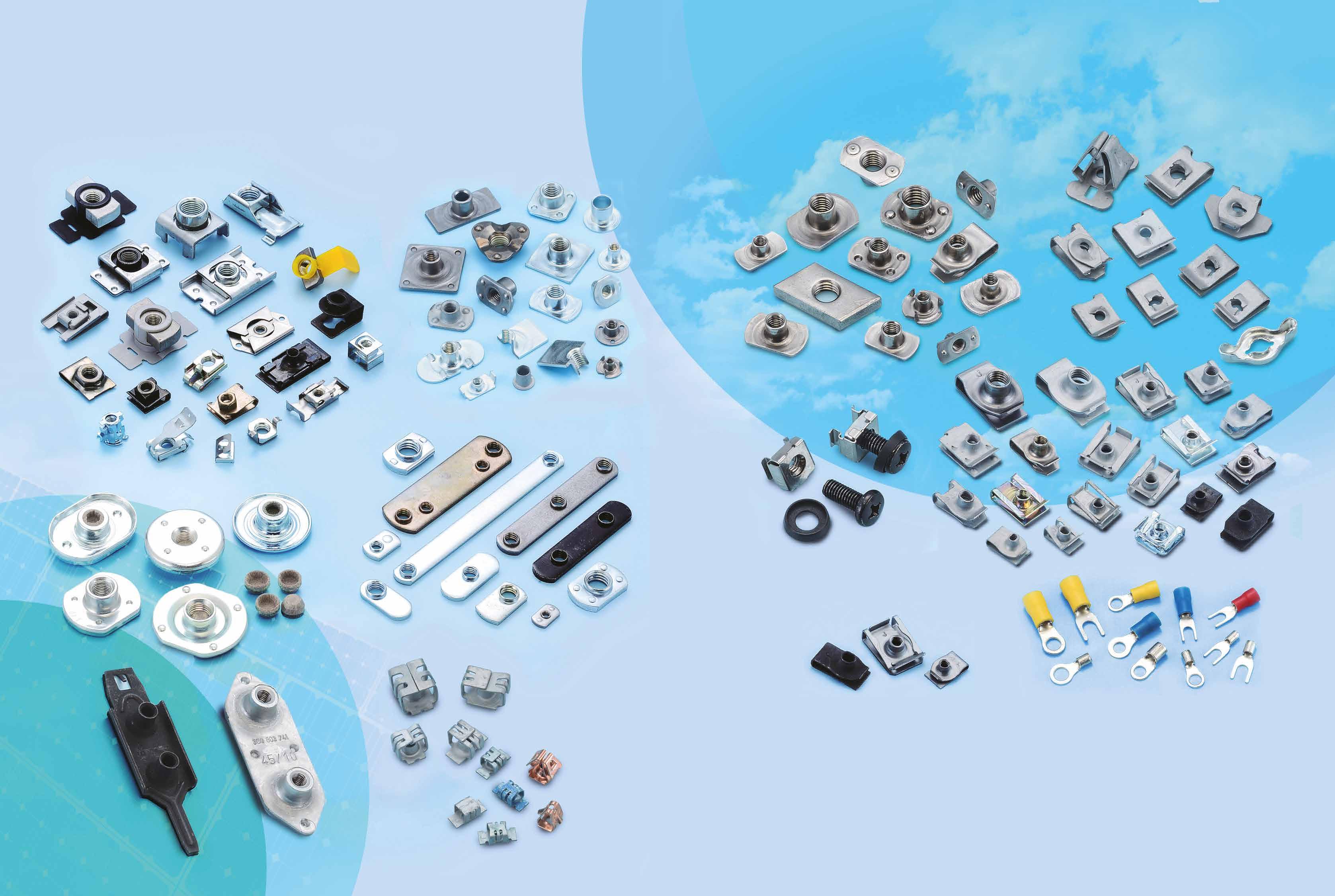

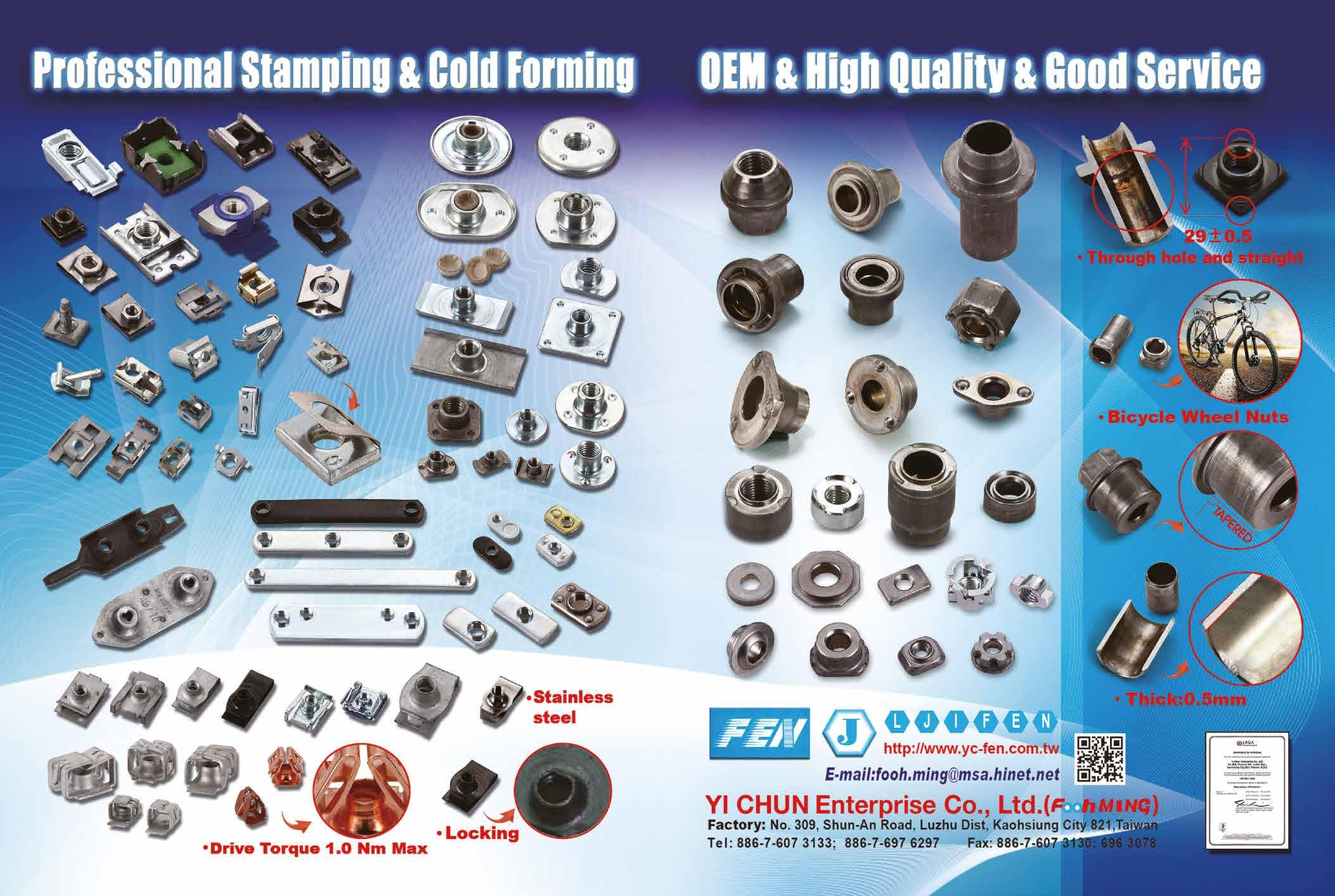





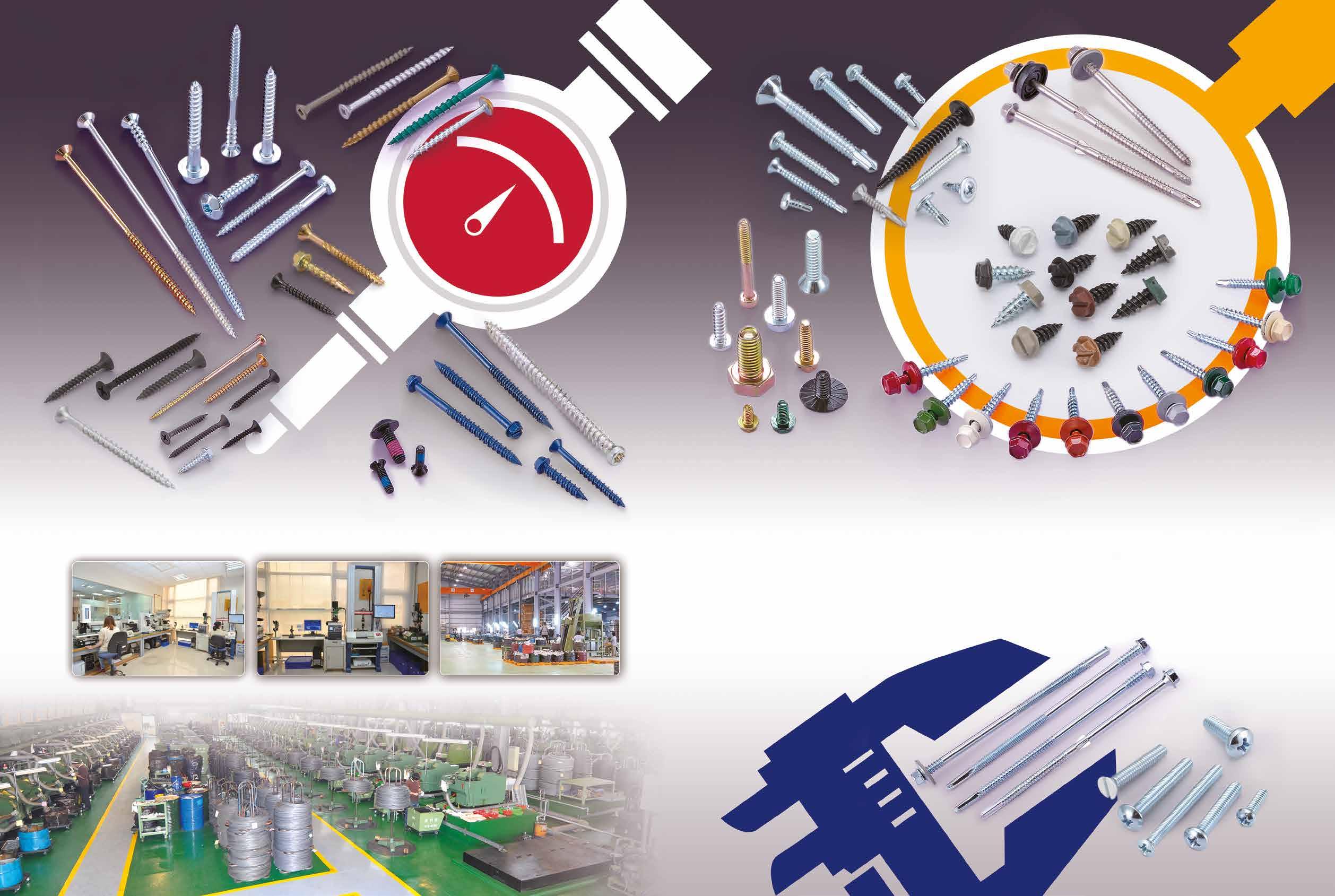





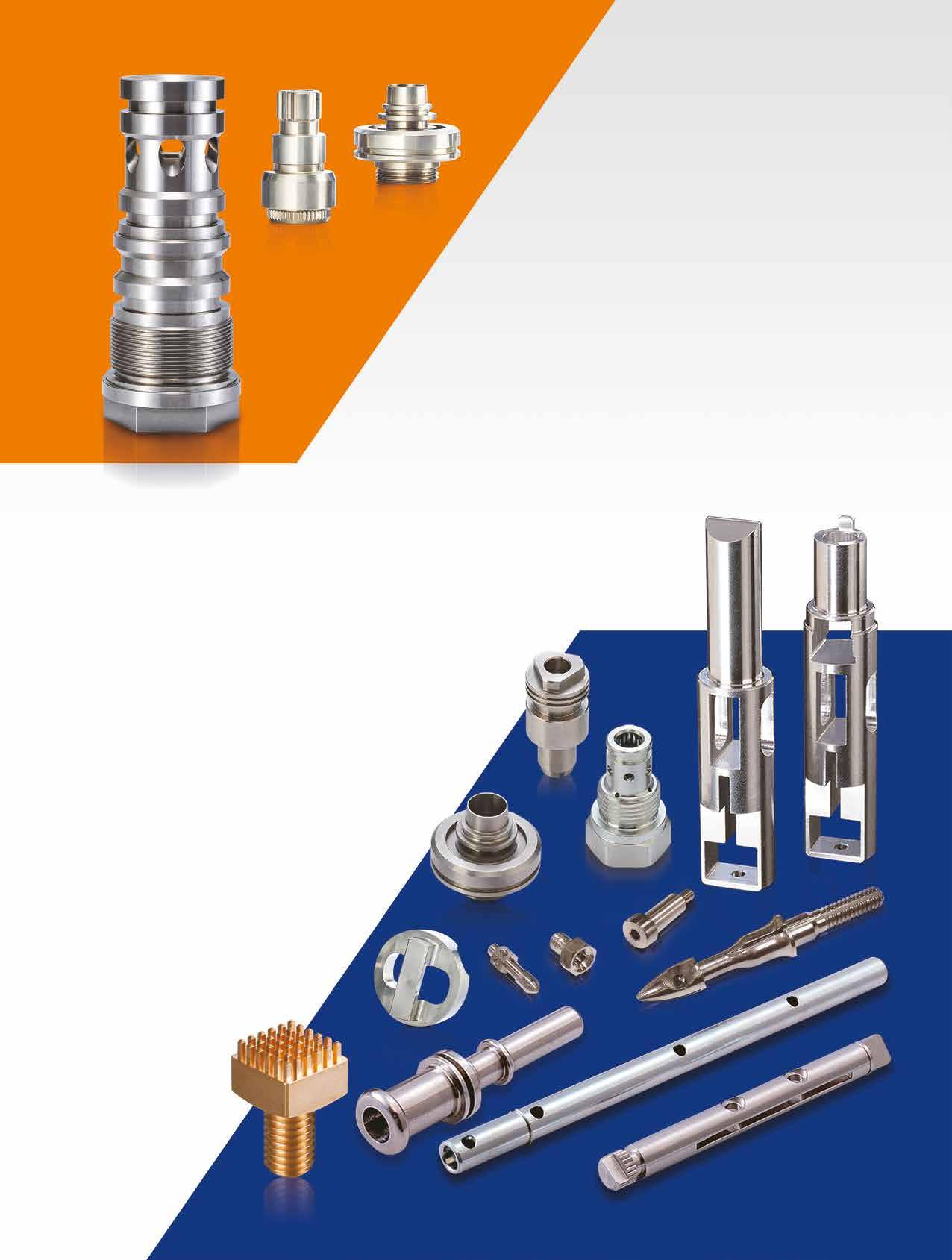











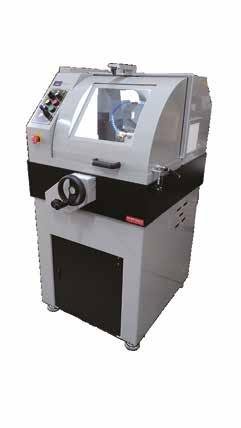
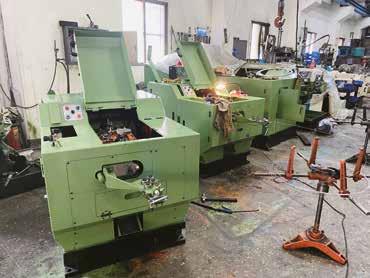
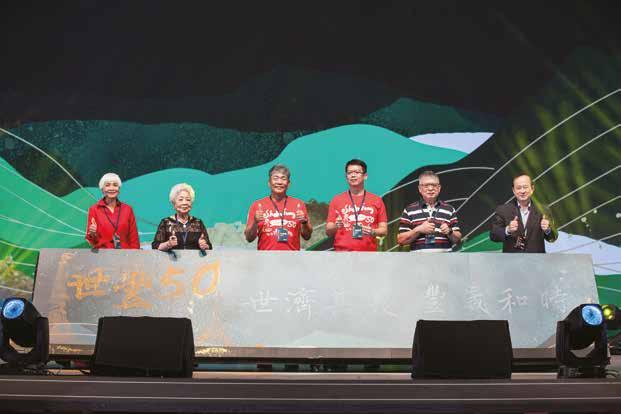

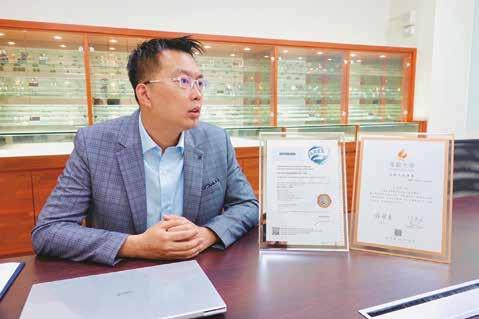



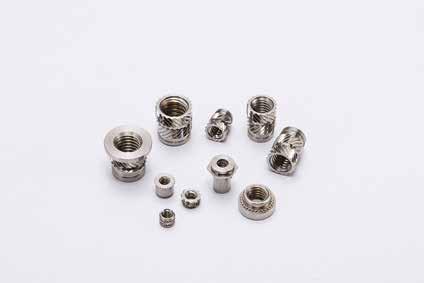


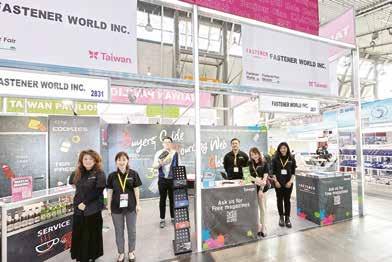
226 310EXPRESS COMPANY (Japan)
Security, Tamper Proof, Anti-theft Screws...
242 A-PLUS SCREWS INC.
Chipboard Screws, Customized Special Screws / Bolts...
180 ABC FASTENERS CO., LTD.
Drop-in Anchors, Expansion Anchors, Wire Anchors...
127 ABS METAL INDUSTRY CORP.
Elevator Bolts, Flanged Head Bolts, Floorboard Screws...
150 ACHILLES SEIBERT GMBH (Germany)
Tapping Screws, Drilling Screws, Thread Rolling Screws...
123 ADVANCED GLOBAL SOURCING LTD.
Screw, Nut, Bolt, Machining/Stamping/Spring Parts...
86 AEH FASTEN INDUSTRIES CO., LTD.
Clevis Pins, Dowel Pins, Hollow Rivets...
13 ALEX SCREW INDUSTRIAL CO., LTD. 禾億
Button Head Cap Screws, Button Head Socket Cap Screws...
135 ALISHAN INTERNATIONAL GROUP CO., LTD. 奧立康
Fastener Tools, Bolts, Screws, Nuts, Stamping Parts...
82 AMBROVIT S.P.A. (Italy)
Chipboard Screws, Combined Screws, Machine Screws...
294 ANCHOR FASTENERS INDUSTRIAL
113 CHI HUNG RIVETS WORKS CO., LTD. 吉宏 Blind Rivets, Hollow Rivets, Solid Rivets, Split Rivets...
48 CHIAN YUNG CORPORATION 將運 SEMS Screws
274 CHIEN TSAI MACHINERY ENTERPRISE CO., LTD. 鍵財 Thread Rolling Machines
81 CHIN LIH HSING PRECISION ENTERPRISE 金利興 Automotive Nuts, Brass Inserts, Bushes, Bushings...
266 CHING CHAN OPTICAL TECHNOLOGY CO., LTD. 精湛 Eddy Current Sorting Machines, Fastener Makers...
46 CHONG CHENG FASTENER CORP. 宗鉦 Cap Nuts, Coupling Nuts, Conical Washer Nuts...
284 CHUN CHAN TECH CO., LTD. 浚展 Eddy Current Sorting Machine, Optical Measurement Instrument...
100 CHUN YU WORKS & CO., LTD. 春雨 Drywall Screws, Socket Head Cap Screws , TC Bolt Sets...
268 CHUN ZU MACHINERY INDUSTRY CO., LTD. 春日 Cold Headers, Header Toolings, Heading Machines...
139 CONTINENTAL PARAFUSOS S.A. 巴西商友暉
Automotive Part & Nut, Home Appliance Screws, Sems...
89 CPC FASTENERS INTERNATIONAL CO., LTD. 冠誠 Stainless Steel, Bi-metal Self-drilling Screws...
41 DA YANG ENTERPRISE CO., LTD. 大楊 Special Automotive Nuts, Special Weld Nuts...
54 DAR YU ENTERPRISE CO., LTD.
Chipboard Screws, Drywall Screws, Screw Nails…
192 DE HUI SCREW INDUSTRY CO., LTD.
Drywall Screws, Decking Screws, Self-drilling Screws, Roofing Screws...
25 DIN LING CORP.
Chipboard Screws, Drywall Screws, Furniture Screws...
103 DRA-GOON FASTENERS INC.
Chipboard Screws, Phillips Head Screws, TEK Screws...
94 DUNFA INTERNATIONAL CO., LTD. 敦發 Bushes, Spacers, Automotive Parts, Tubes, Turning Parts...
152 EASON TECH INDUSTRIAL CO., LTD. 鈺森 Spring Pins, Cage Nuts, Clip Nuts, Retaining Rings...
191 EXCEL COMPONENTS MFG CO., LTD. 鑫廣 Turning Parts, CNC Parts, Forged and Stamped Parts...
128 FAITHFUL ENGINEERING PRODUCTS CO., LTD. 誠毅 Anchors, Box Nails, Door/Window Accessories...
64 FALCON FASTENER CO., LTD. 鉮達
Automotive & Motorcycle Special Screws / Bolts...
2 FANG SHENG SCREW CO., LTD. 芳生 Shoulder Bolts, Button Head Socket Cap Screws..
129 FASTENER JAMHER TAIWAN INC. 占賀
Automotive Nuts, Blind Nuts / Rivet Nuts, Bushings...
30 FASTNET CORP.
Dowel Pins, Flange Nuts, Weld Nuts, 4 Pronged T Nuts...
106 FILROX INDUSTRIAL CO., LTD. 惠錄
Blind Nuts / Rivet Nuts, Tee or T Nuts, Blind Rivets...
183 FIXI SRL. (Italy)
Rivet Nuts, Blind Rivets, Self-clinching, Welding Studs...
FONG PREAN INDUSTRIAL CO., LTD.
Automotive Screws, Bi-metal Screws, Brass & Bronze Screws...
38 FORTUNE BRIGHT INDUSTRIAL CO., LTD.
Cap Nuts, Dome Nuts, Nylon Cap Insert Lock Nuts...
76 FU HUI SCREW INDUSTRY CO., LTD.
Automotive & Motorcycle Special Screws / Bolts...
179 FU KAI FASTENER ENTERPRISE CO., LTD.
Precision Electronic Screws, Special Screws, Weld Screws...
96 FUSHANG CO., LTD.
Carbon Steel Screws, Chipboard Screws, Concrete Screws...
275 GIAN-YEH INDUSTRIAL CO., LTD.
Rivet Dies, Self-drilling Screw Dies, Screw Tip Dies...
163 GINFA WORLD CO., LTD.
Chipboard Screws, Countersunk Screws, Drywall Screws...
223 GLORBAL SALES COMPANY LIMITED
Various Stamping Products, Multi-process Assembly Parts...
272 GREENSLADE & COMPANY, INC. (U.S.A.)
Concentricity, Ring Gage, Plug Gage Calibration, Gages...
262 GWO LIAN MACHINERY INDUSTRY CO., LTD.
Handstand Type Wire Drawing Machines, Non-Stop Coilers... 288 GWO LING MACHINERY CO., LTD.
Thread Rolling Machines, Slotting Machines...
55 HAO CHENG PLASTIC CO., LTD.
PP Boxes, PET Jars, ABS Boxes, PC Boxes..
91 HARVILLE FASTENERS LTD.
Special Screws and Bolts, Sems Screws, Stainless Steel Fasteners...
222 HAUR FUNG ENTERPRISE CO., LTD.
17 JET FAST COMPANY LIMITED
Blind Nuts / Rivet Nuts, Aircraft & Aerospace Washers...
99 JIEN KUEN ENTERPRISE CO., LTD. 健坤
Hexagon Nuts, Nylon Cap Insert Lock Nuts, Square Nuts...
285 JIENG BEEING ENTERPRISE CO., LTD. 精斌 Forming Tool for Nut and Bolt, Dies, Molds...
148 JINGFONG INDUSTRY CO., LTD. 璟鋒
Hex Nylon Insert Lock Nuts, Wing Nuts with Nylon Insert...
161 JIN-YINGS ENTERPRISE CO.,LTD. 晉營
Special Custom Fasteners, Auto/Motorcycle Fasteners, Special Screws…
171 JOINTECH FASTENERS INDUSTRIAL CO., LTD. 群創
Customized Parts, Bolts, Screws, Nuts, Automotive Parts...
29 JOKER INDUSTRIAL CO., LTD. 久可
Hollow Wall Anchors, Concrete Screws, Jack Nuts...
169 KAN GOOD ENTERPRISE CO., LTD. 鋼固 Fastener, Hardware, Plastic, Instruction Booklet Package in Bags...
217 KAO WAN BOLT INDUSTRIAL CO., LTD. 高旺
Hex Head Cap Screws, Carriage Bolts, Hex Lag Bolts...
156 KINEFAC CORP. (USA)
World Leader in Metal Forming
84 KING CENTURY GROUP CO., LTD. 慶宇 Drop-in Anchors, Self-drilling Anchors, Sleeve Anchors...
199 KUOLIEN SCREW INDUSTRIAL CO., LTD. 國聯螺絲 Advanced Fastener
74 KWANTEX RESEARCH INC. 寬仕 Chipboard Screws, Drywall Screws, Furniture Screws...
108 L & W FASTENERS COMPANY 金大鼎 Construction Fasteners, Flat Washers, Heavy Nuts...
184 LAIEN CO., LTD. 高昱 Screws, Multi-stroke Forming Screws, CNC Machined Parts...
279 LAN DEE WOEN FACTORY CO., LTD. 藍帝 Blind Rivet Heading Machine, Hollow Heading Machine...
185 LIAN CHUAN SHING INTERNATIONAL CO., LTD. 連全興 Weld Nuts, Special Parts, Special Washers, Flat Washers...
286 LIAN SHYANG INDUSTRIES CO., LTD. 連翔 Nut Formers, Nut Tapping Machines
296 LINKWELL INDUSTRY CO., LTD. 順承
All Kinds of Screws, Automotive & Motorcycle Special Screws...
12 LOCKSURE INC. 今湛
Custom Washers, Flat Washers, Automotive Screws...
157 LONG THREAD FASTENERS CORP. 長隆順
Bi-metal Self-drilling Screws, Chipboard Screws...
79 MAC PRECISION HARDWARE CO. 鑫瑞
Turning Parts, Precision Metal Parts, Cold Forged Nuts...
175 MAIZUCO CORPORATION 彥昕
Self Tapping & Key Thread Inserts, Magnetic Grinder…
31 MASTER UNITED CORP. 永傑
Chipboard Screws, Drywall Screws, Furniture Screws...
124 MASTERPIECE HARDWARE INDUSTRIAL CO., LTD. 金全益 Brass Screws, Chipboard Screws, Deck Screws, Double End Screws...
66 MAUDLE INDUSTRIAL CO., LTD. 茂異
Button Head Socket Cap Screws, Flange Washer Head Screws...
130 METAL FASTENERS CO., LTD. 法斯訥
Thread Inserts, Self-Clinching Fasteners...
151 METALINK PRECISION INDUSTRIES CO., LTD. 美聯
Bi-metal Self-drilling Screws, Bi-metal Screws...
140 SHEH FUNG SCREWS CO., LTD. 世豐 Chipboard Screws, Countersunk Screws, Wood Screws...
144 SHEH KAI PRECISION CO., LTD. 世鎧 Bi-metal Concrete Screw Anchors, Bi-metal Screws...
115 SHEN CHOU FASTENERS INDUSTRIAL CO., LTD. 神洲 Button Head Cap Screws, Chipboard Screws...
42 SHIH HSANG YWA INDUSTRIAL CO., LTD. 新倡發 Flange Nuts, Flange Nylon Nuts With Washers...
168 SHIN CHUN ENTERPRISE CO., LTD. 昕群 Automotive Screws, Chipboard Screws, Customized Screws...
120 SHIN JAAN WORKS CO., LTD. 新展 Flanged Head Bolts, Long Carriage Bolts, Round Head Bolts...
117 SHUENN CHANG FA ENTERPRISE CO., LTD. 舜倡發 Long Construction Fasteners and Other Modified Fasteners...
282 SHUN HSIN TA CORP. 順興達 Punches, Tungsten Carbide Nut Forming Dies, Special Dies…
131 SIN HONG HARDWARE PTE. LTD. (Singapore) 新豐 Hexagon Nuts, Hexagon Head Bolts, Blind Rivets...
26 SPEC PRODUCTS CORP. 友鋮 Lincensee Fasteners, Turned/Machined Parts...
8 SPECIAL RIVETS CORP. 恆昭 Blind Nuts / Rivet Nuts, Blind Rivets, Air Riveters...
24 SUN CHEN FASTENERS INC., 展鴻鑫 Cup Washers, Flanged Head Bolts, T-head or T-slot Bolts...
53 SUNCO INDUSTRIES CO., LTD. (Japan) Distributor Specializing in Fasteners
85
三御 All Kinds of Screws, Bi-metal Screws, Carbon Steel Screws...
16 SUPERIOR QUALITY FASTENER CO., LTD. 鑫程椿 Weld Nuts, Turning Parts, Long Screws, Spring Nuts...
259 TAIEAG CORPORATION 順基軒 Designed peripheral equipment suitable for fastener packaging
166 TAIWAN FASTENERS INTEGRATED SERVICE 全聯鑫 Bolts, Screws, Nuts, Precise Mechanical Parts, Stampings...
104 TAIWAN SELF-LOCKING FASTENERS IND. 台灣耐落 Nylok®, Precote®, Nycote®, Nyplas®, Loctite®...
102 TANG AN ENTERPRISE CO., LTD. 鏜安
Customized Automotive Parts and Special Fasteners
22 THREAD INDUSTRIAL CO., LTD. 英德
Chipboard Screws, Flange Nuts, Heavy Nuts...
56 TONG HEER FASTENERS (THAILAND) CO., LTD.
Hex Bolts, Stud Bolts, Socket Cap Screws, Hex Nuts...
57 TONG HEER FASTENERS CO., SDN. BHD (Malaysia)
Stainless Steel Metric Screws, Stainless Steel Screws…
173 TONG HO SHING INTERNATIONAL CO., LTD. 桐和興
Hex Washer Head Screws, Indent Hex Head Screws...
20 TONG HWEI ENTERPRISE CO., LTD. 東徽
A2 Cap Screws, Button Head Socket Cap Screws...
57 TONG MING ENTERPRISE CO., LTD. 東明
Stainless Steel Fasteners, Wire Rods…
136 TSIN YING METAL INDUSTRY CO., LTD. 晉英
Stainless Steel Cold Heading Wire, Oxalate Coating Wire...
283 TZE PING PRECISION MACHINERY CO., LTD. 智品
Open Die Machines, Cold Headers, Cold Forming Machines...



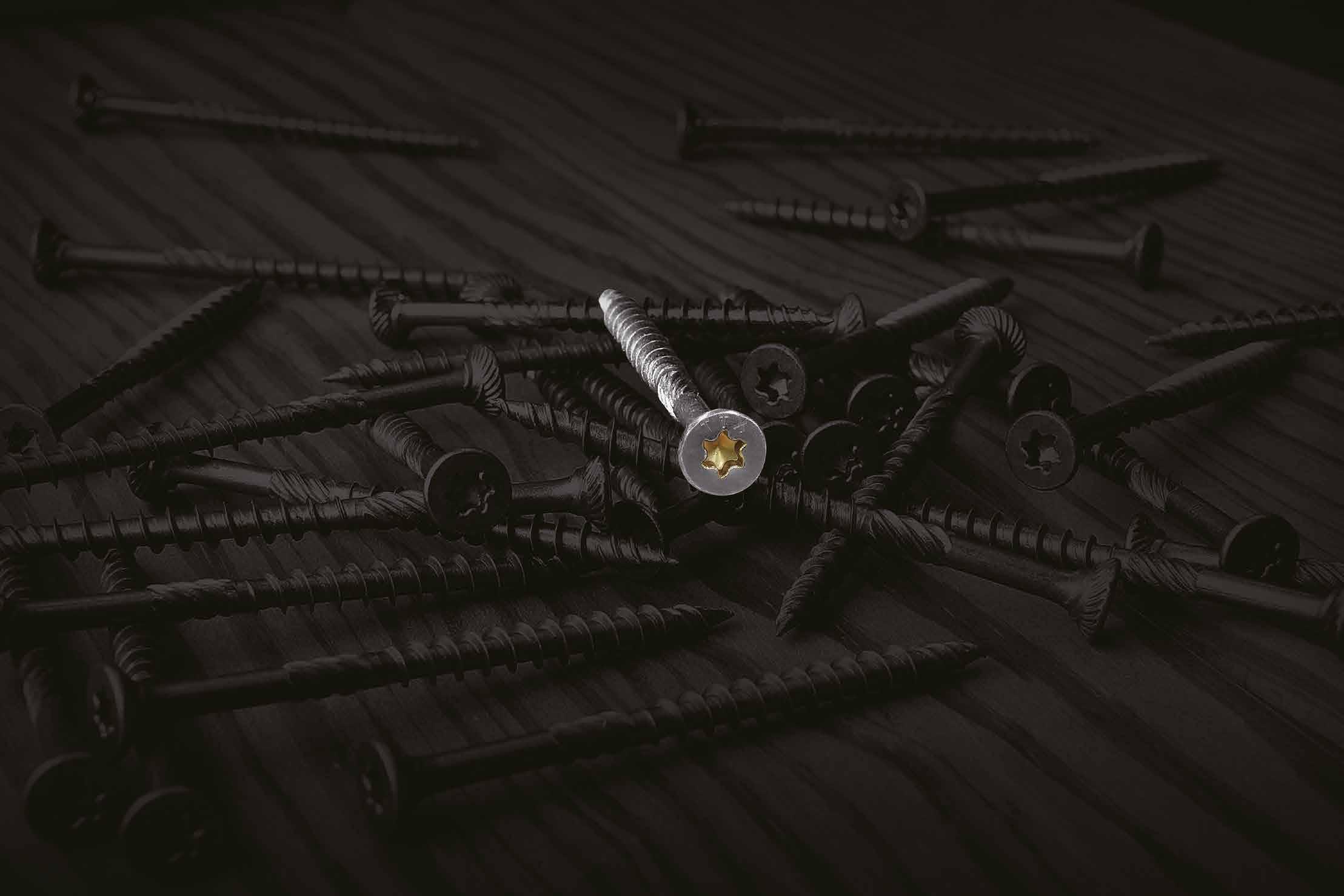

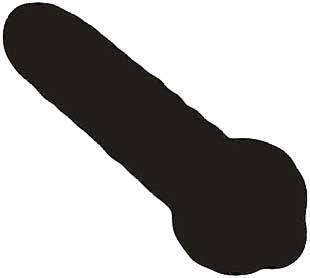




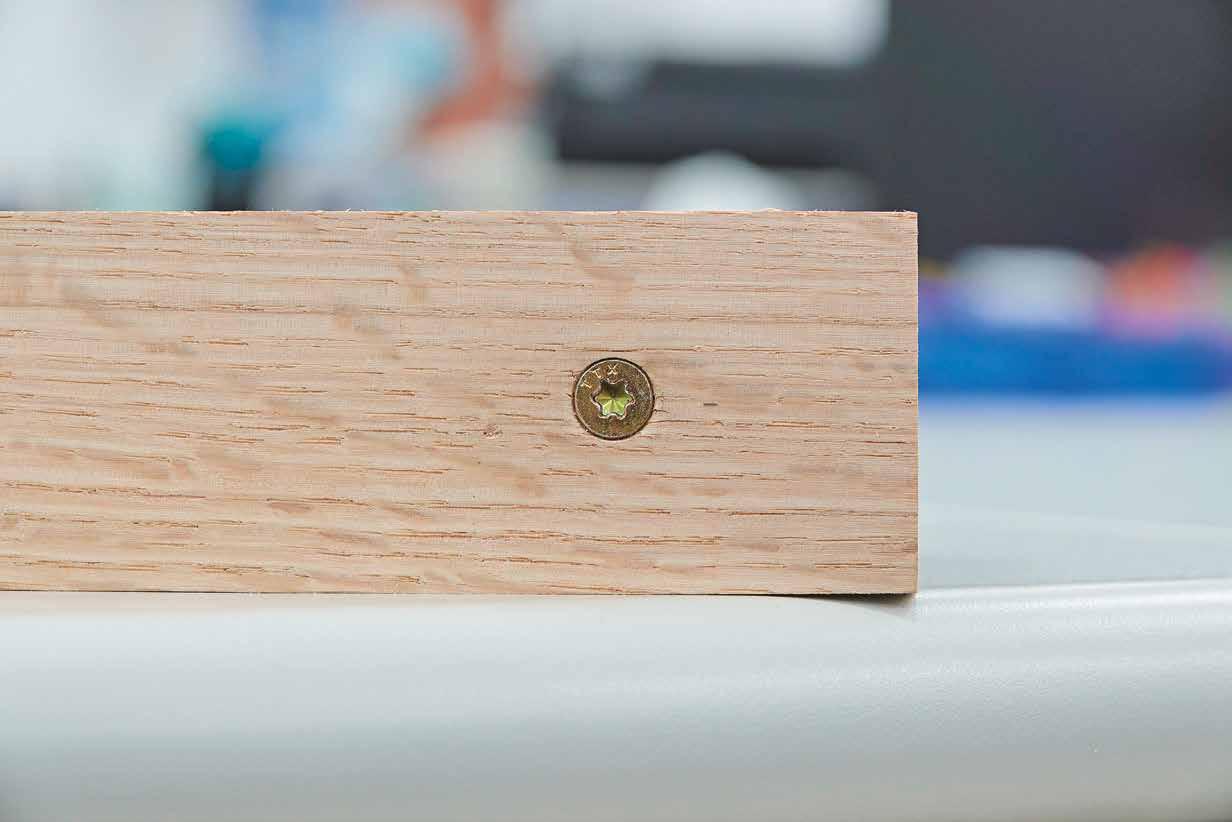


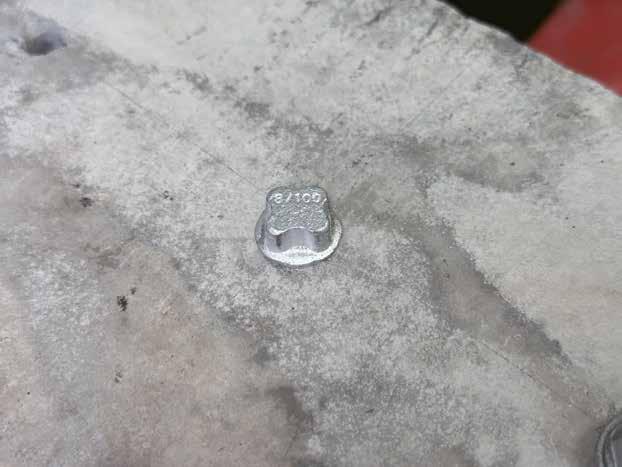

















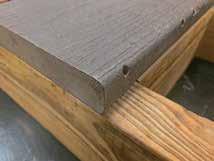



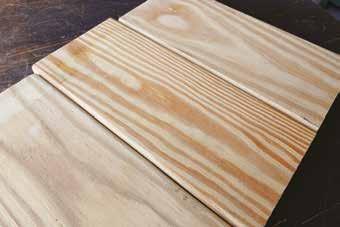

















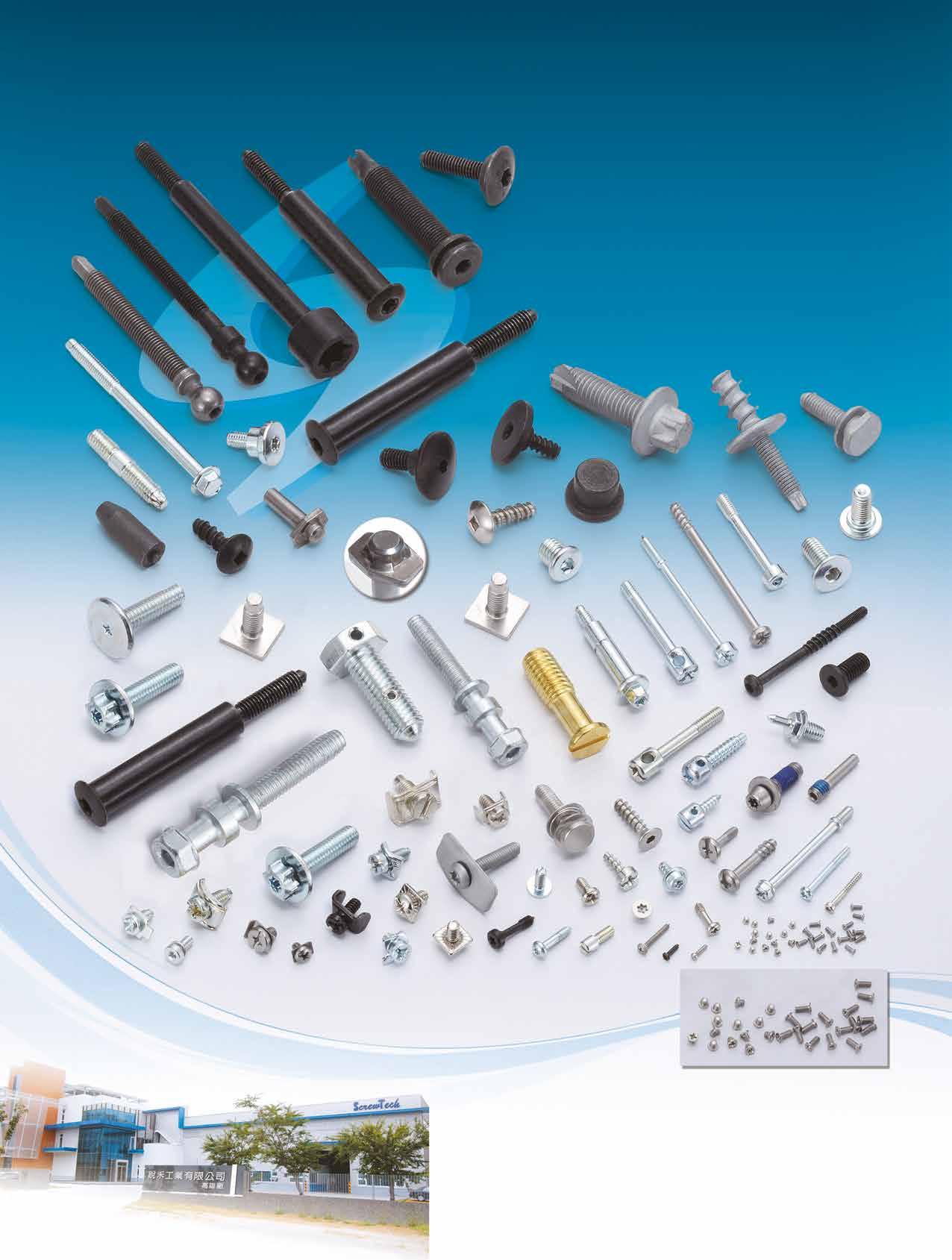





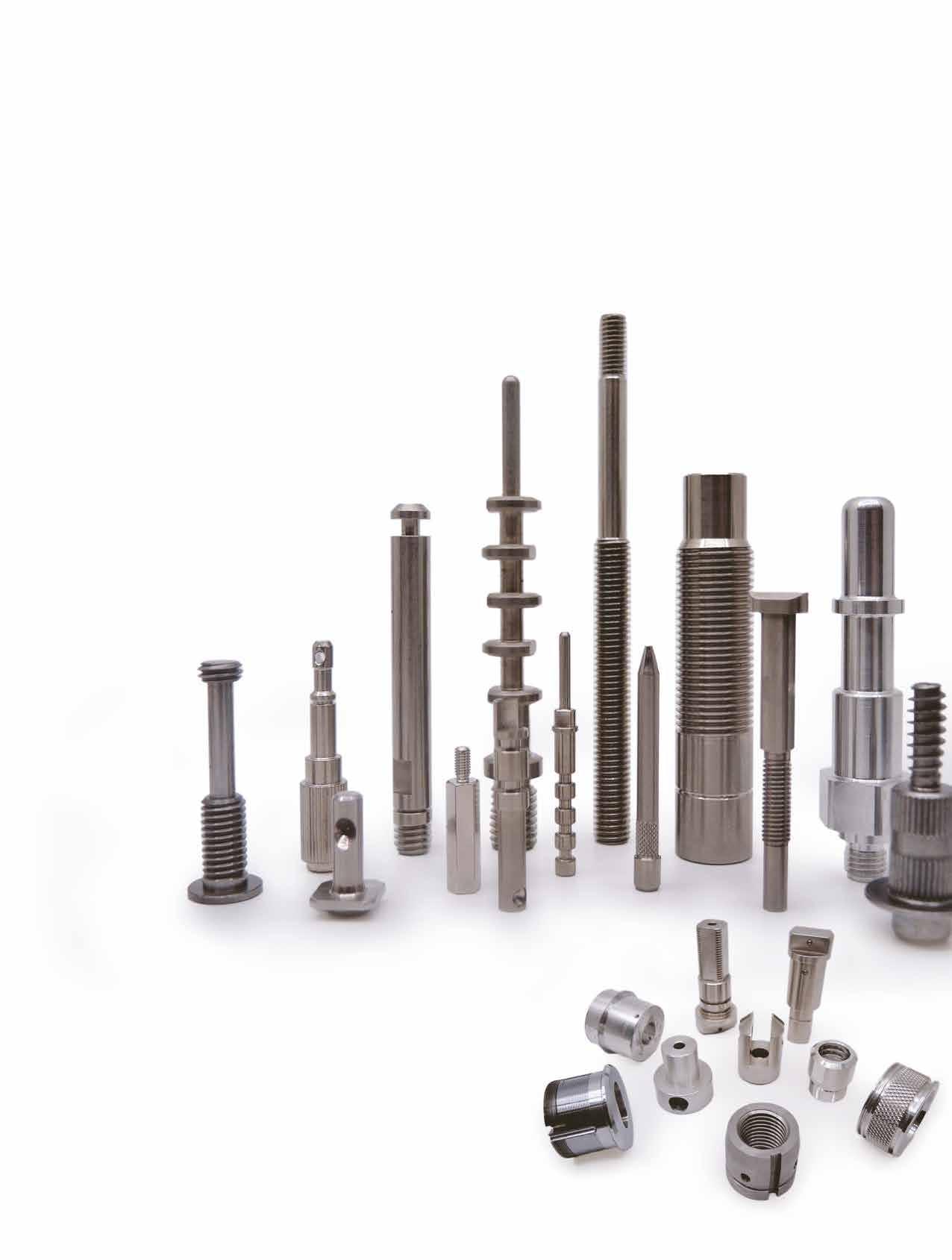







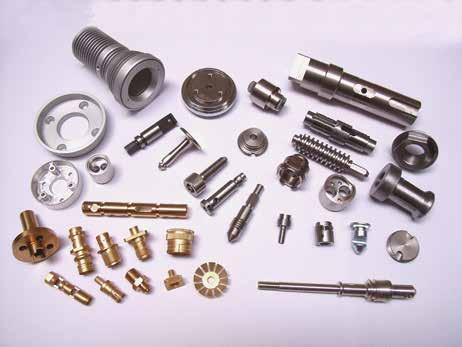


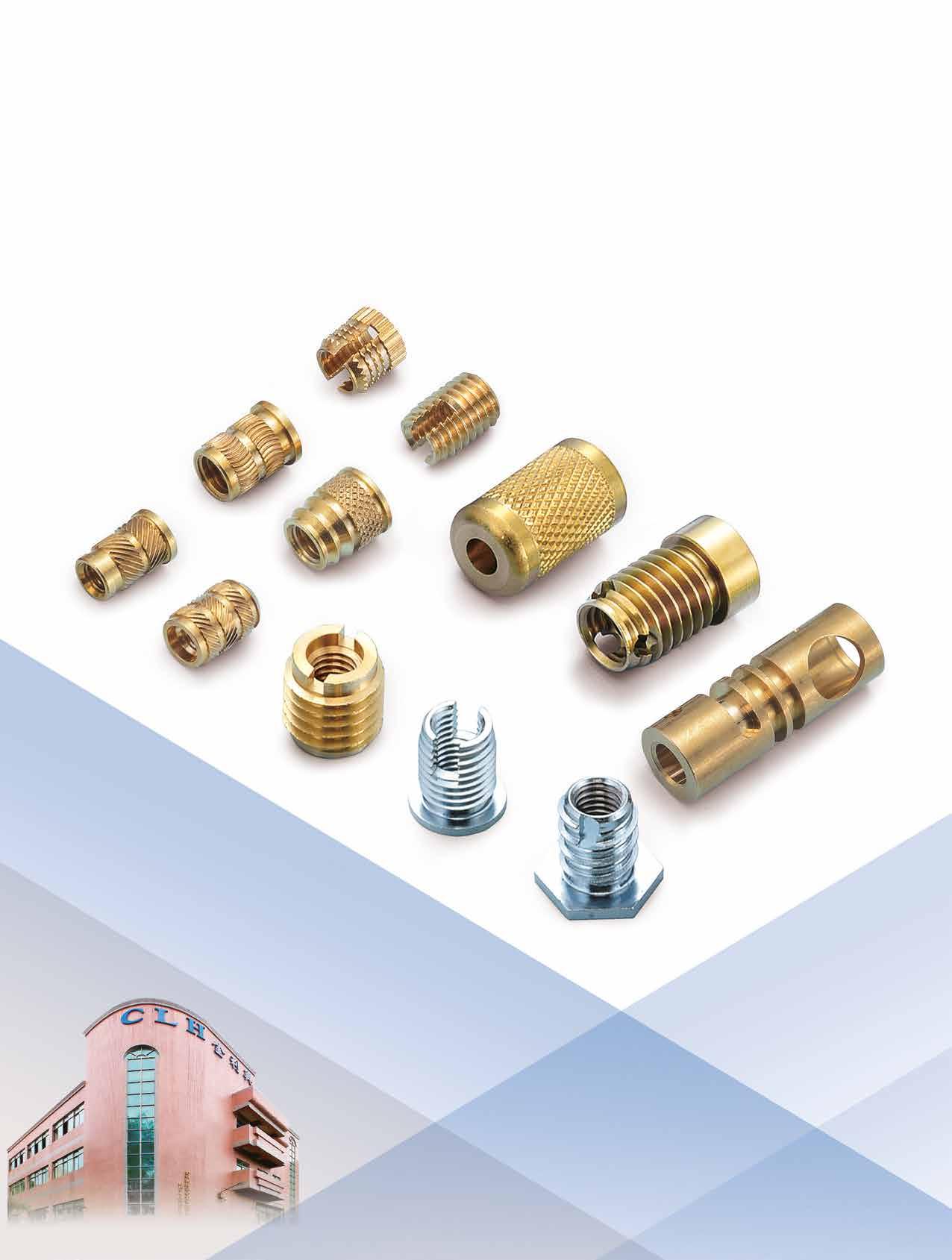






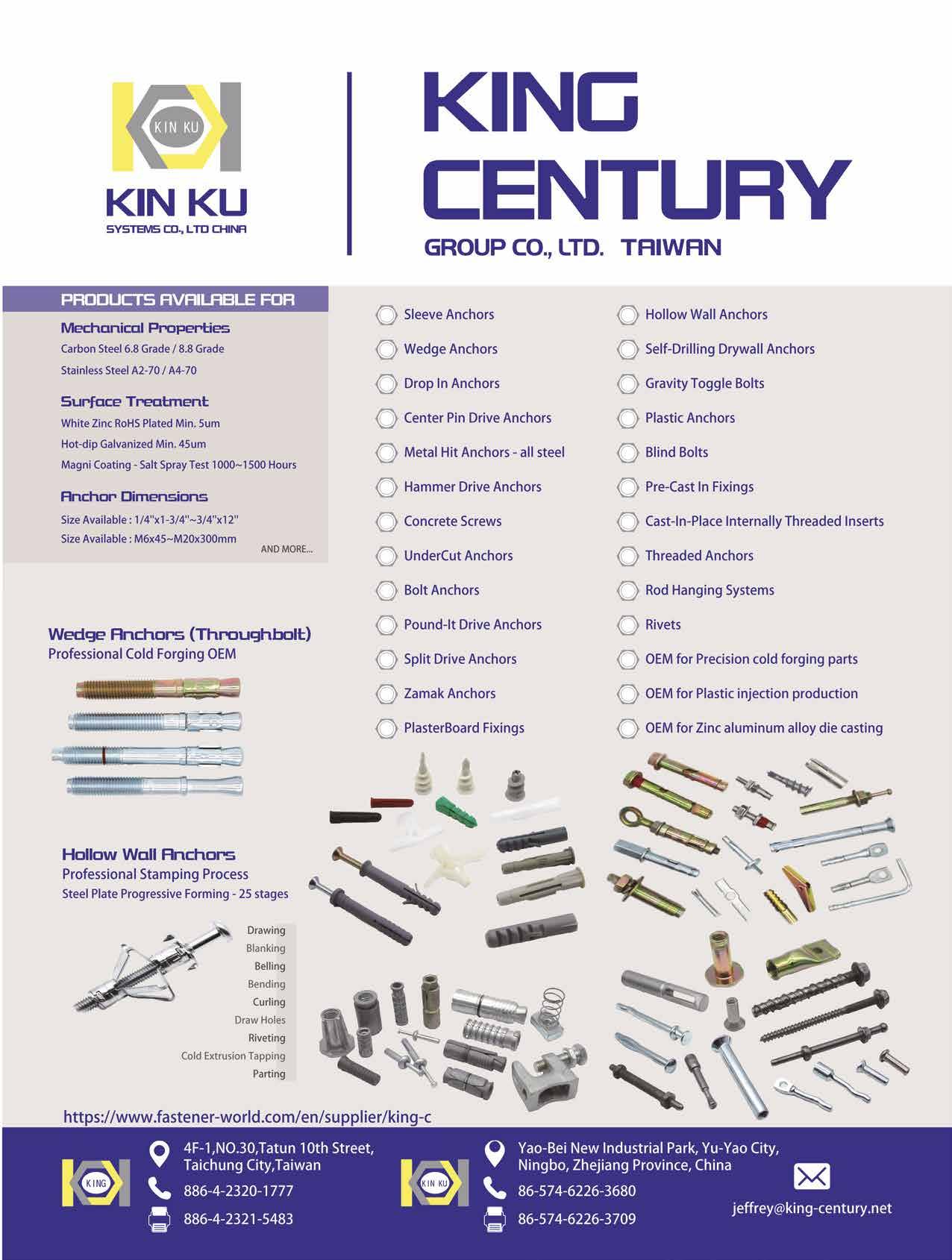





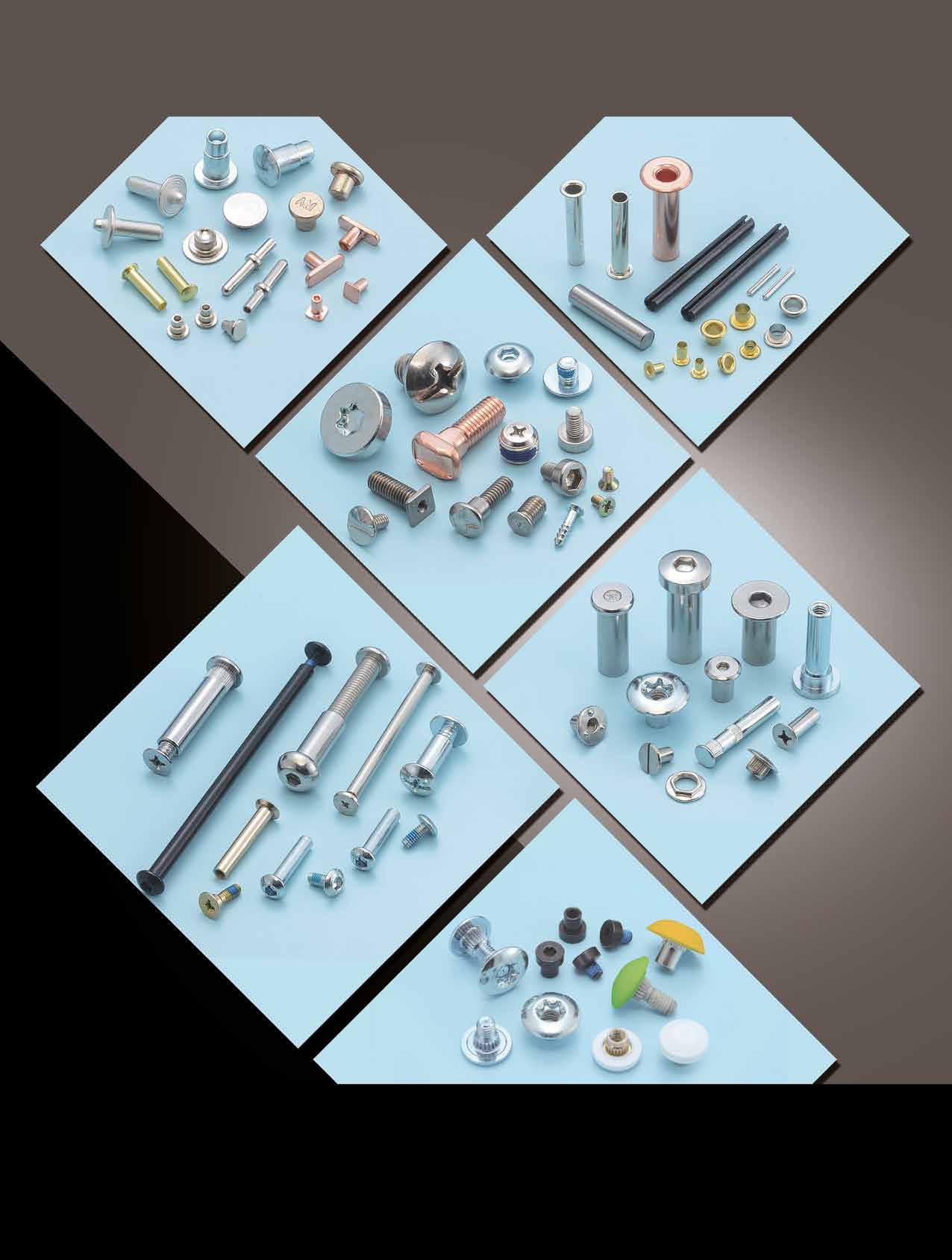













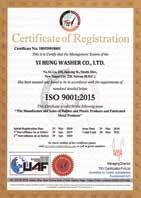

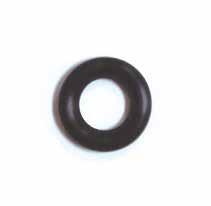
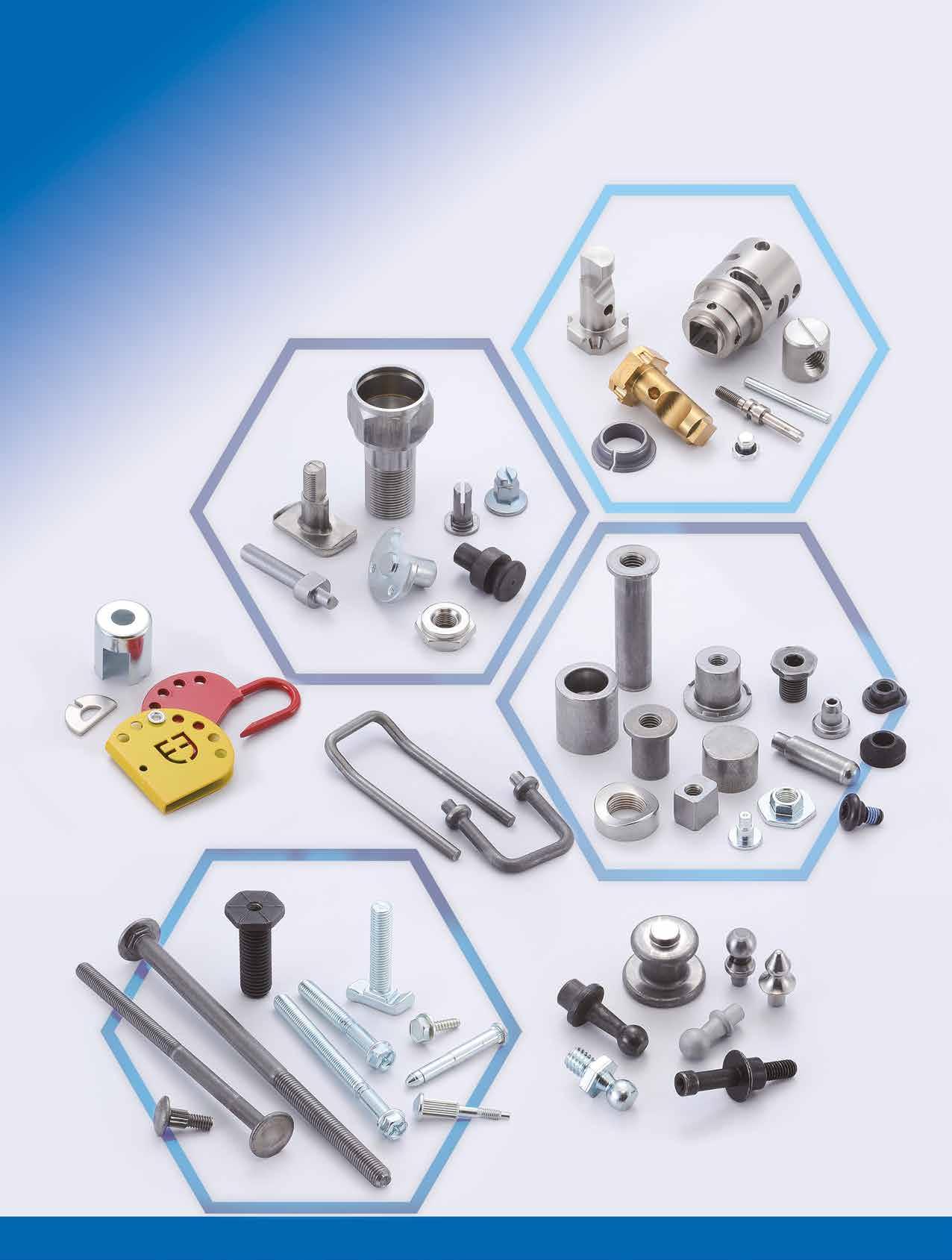






















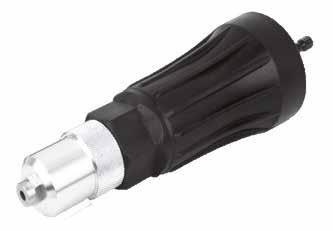

















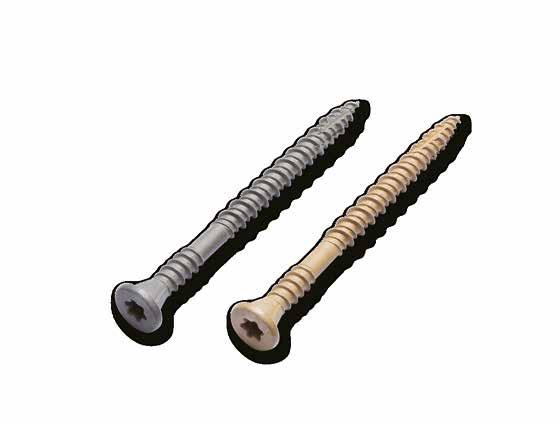
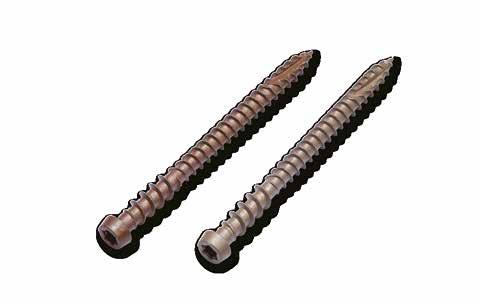


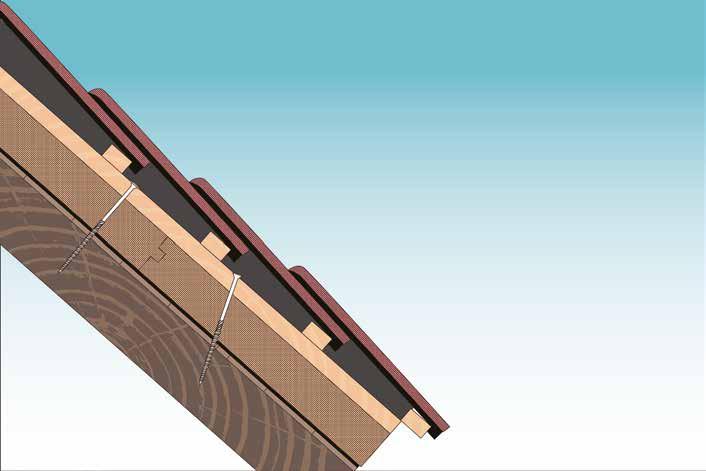


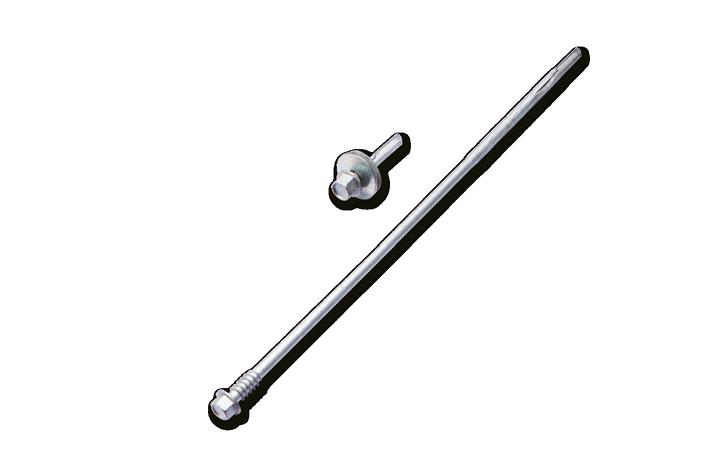
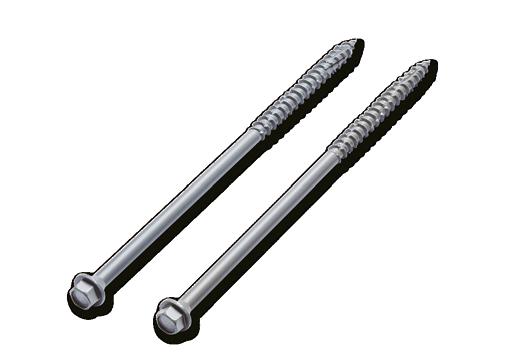
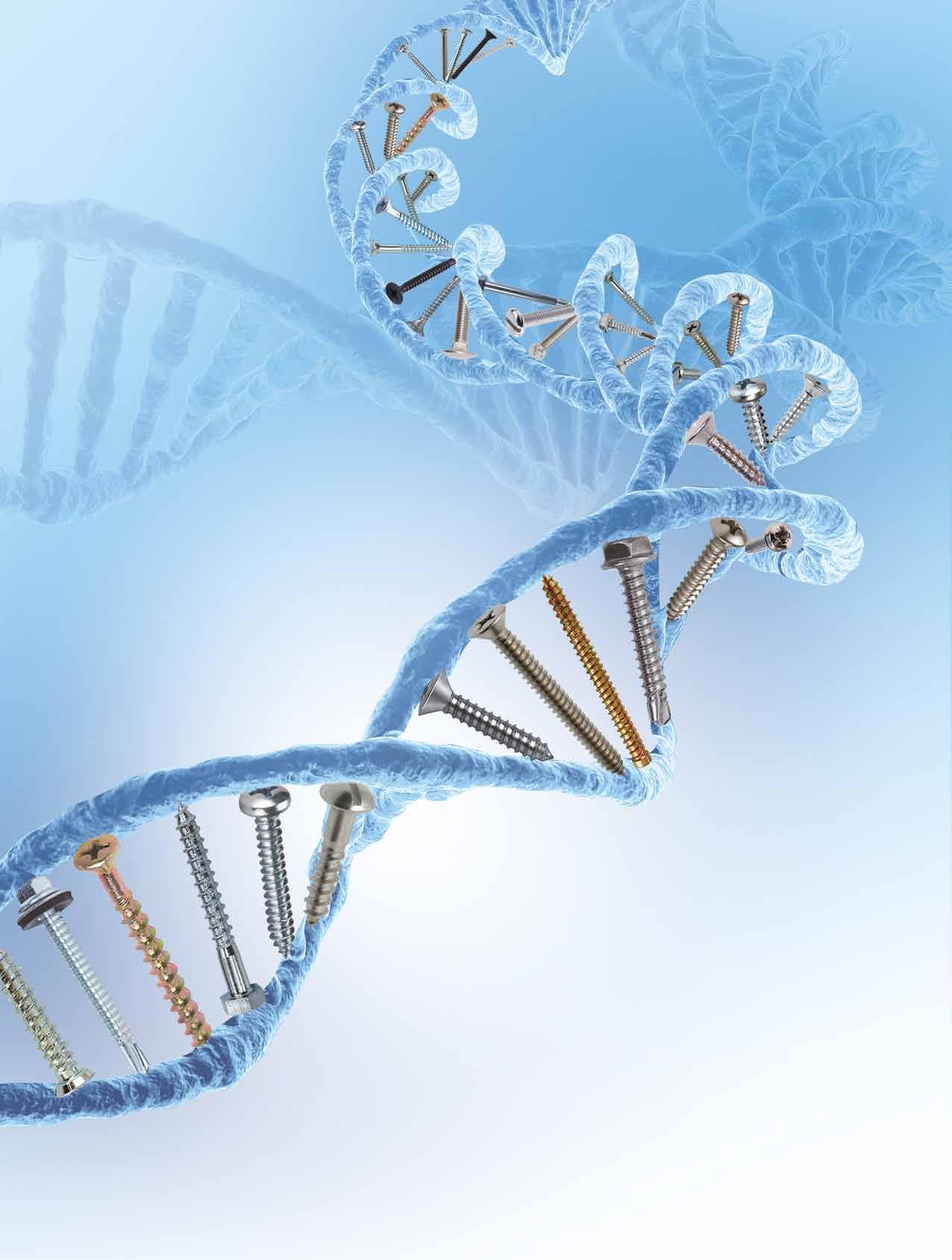









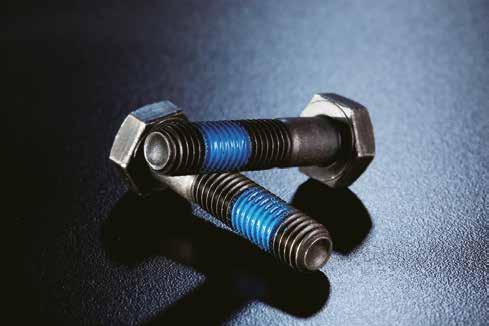


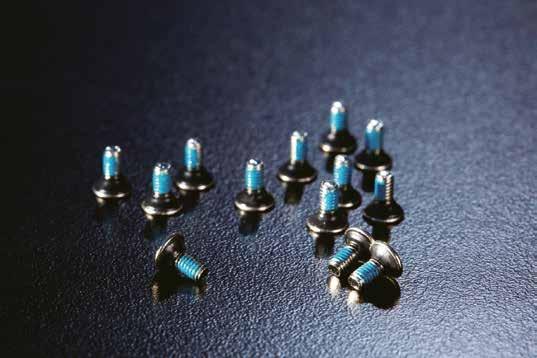
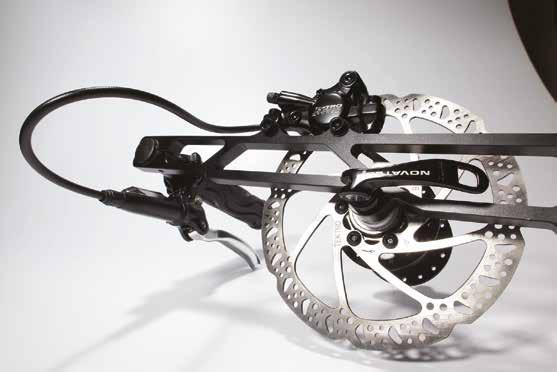
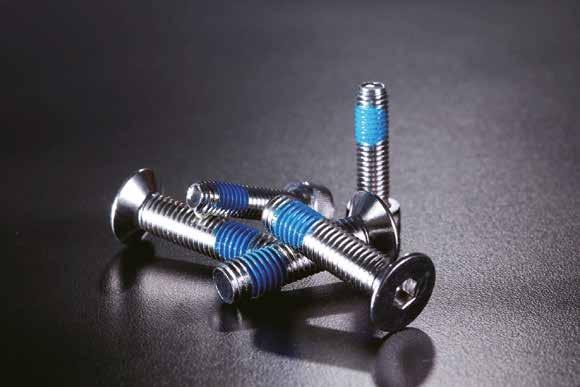
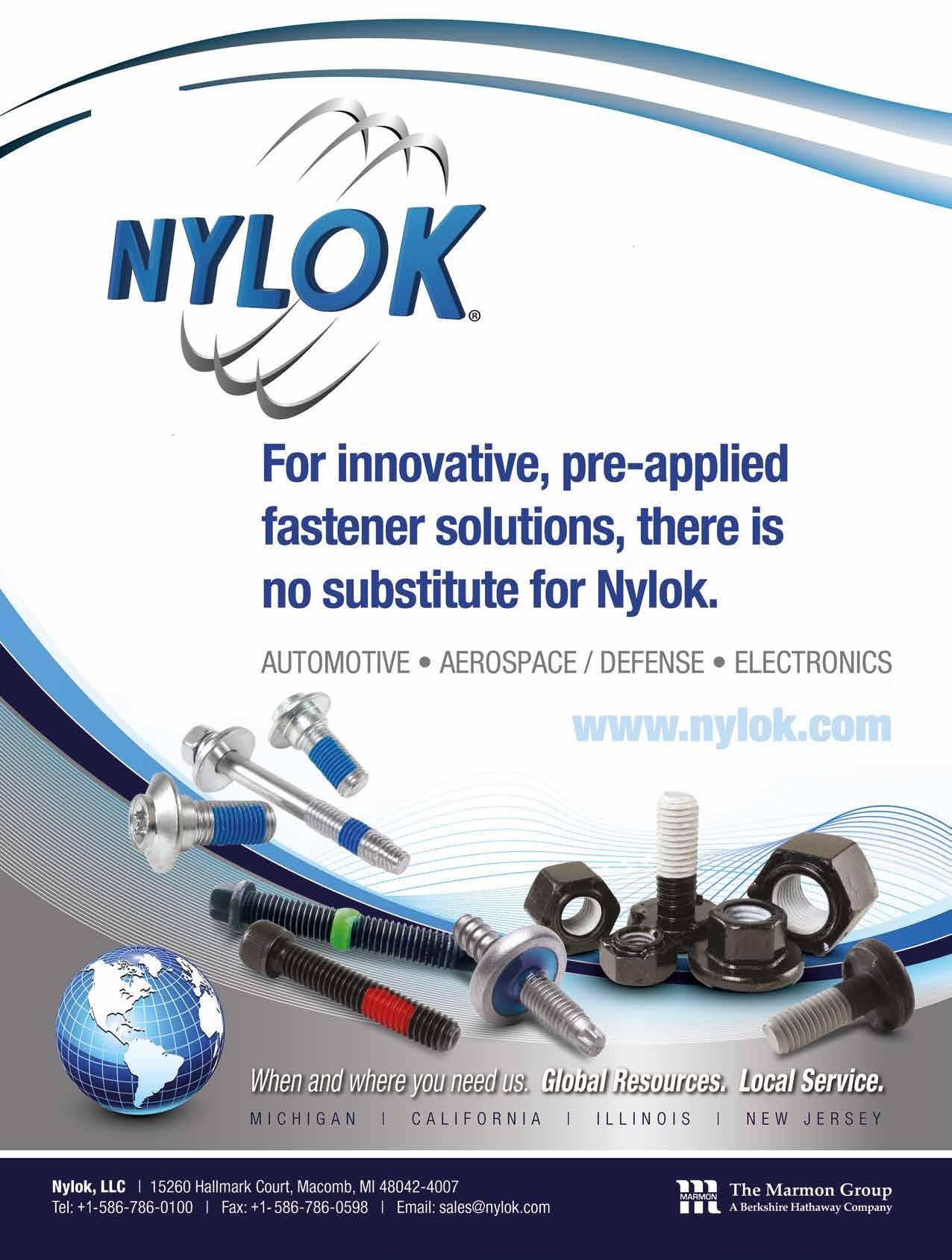











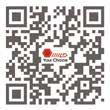










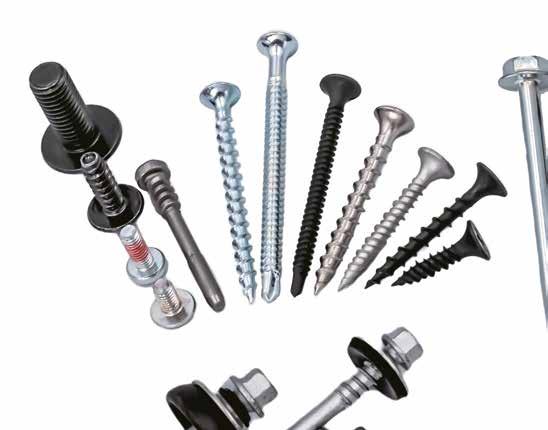


























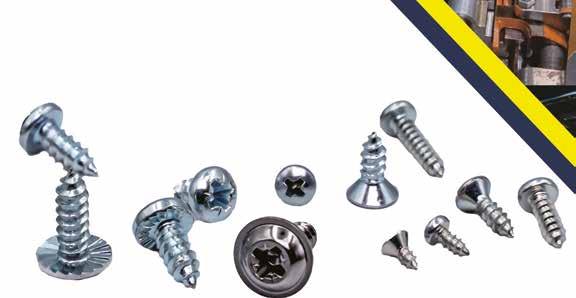


With nearly 40 years of history, Homn Reen has made a reputation on construction fasteners. They deliver about 2,500-3,000 tons of fasteners per month to domestic and overseas customers via a total of 320 sets of equipment in Taiwan and Vietnam plants. They used to manufacture using one-die two-punch machines. To provide products of higher values, general manager Jack Lin spent NTD 200 million in upgrading equipment in both plants starting from 2021, replacing old equipment with multipunch machines. The upgraded plants have at least doubled production capacity and speed. In addition, Jack extends the range of workable screw sizes to 4mm400mm. He believes many emerging countries can already provide low-price lowend products and it pushes Taiwan fastener industry to shift to higher-end products to bring elevated values to customers.


Certified to IATF16949, Homn Reen has successfully improved the production system and employees’ quality awareness; therefore, overseas customers, mostly repeat customers, are much satisfied with Homn Reen’s automotive fasteners. Currently the company has made it into Tier-2 supply chains. Additionally, they have the oil and gas filtration system installed on the production line to meet the environmental requirements on manufacturing automotive fasteners. Spanning to the automotive field of higher quality criteria is an integral part in Homn Reen’s transformation to higher product values.
Given EU’s CBAM which will be run on a trial basis and then officially take effect in the future, they took action early and embarked on internal education on carbon reduction with the help of experts. Besides implementing 5S workplace management system to improve efficiency and ensure quality, they are in the process of carbon inventory and taking steps toward carbon footprint and carbon neutrality. They also invested NTD 10 million to install 2,315 square meters of solar panels on Taiwan plant to contribute to global carbon reduction by generating green power. They will continue to increase solar panels whenever they have additional space.
In recent years, the geopolitical factors in Asia have turned many European and American buyers’ attention to Taiwanese and Southeast Asian suppliers, driving Homn Reen's development in Vietnam. According to Jack, both Taiwan and Vietnam plants provide the same products. The 104,132 square meters Vietnam plant in particular has a large young workforce, large manufacturing capacity, and the advantage of providing one-stop shopping. With mutual support between the two plants, Homn Reen can provide high quality products at competitive prices to global customers.
"We have been manufacturing high quality and diverse products in small quantities. Our clients spread across all continents, so we took very little impact from the pandemic and we are still consistently shipping worldwide," recalls Jack. "There’s no definite need to become an industry leader, but it is necessary to find your own industry position. Fastener companies should collaborate to compete like it is a race, not like a boxing match where it’s either you or the opponent down. Make it teamwork. You’ll need luck. You’ll also need to help yourself out and someone else to help you. I hope we can all work together and carry forward Taiwan’s spirit. Jack's closing remarks will provide good guidance for readers, and we look forward to the bright future for Homn Reen.








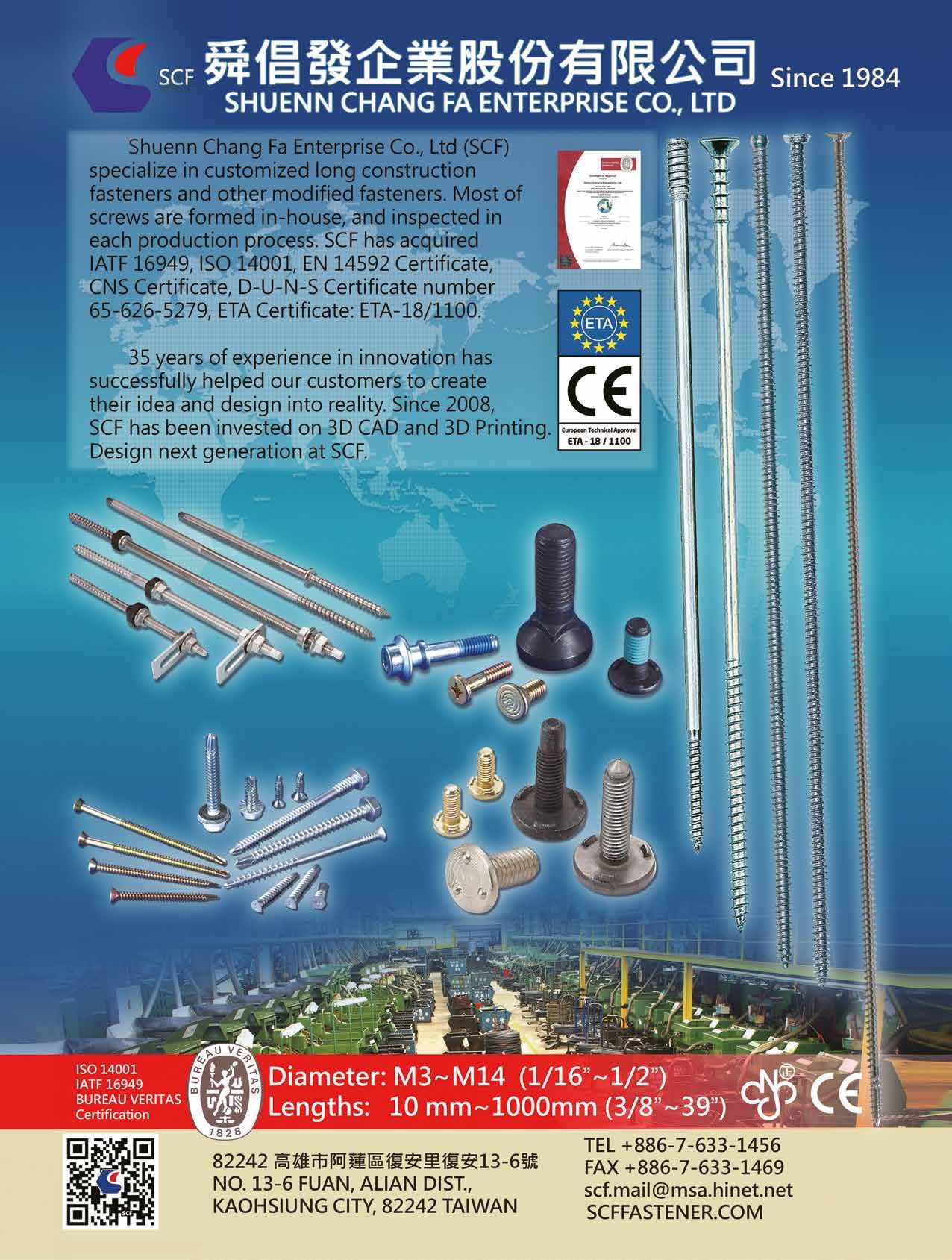





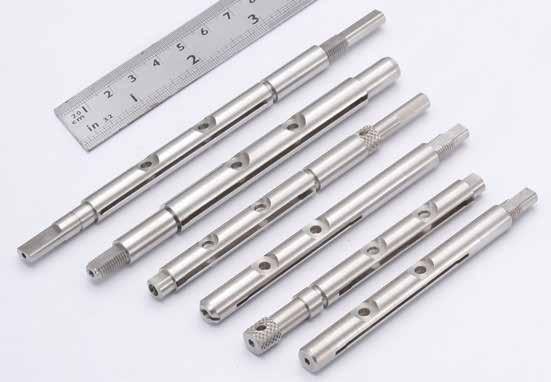





















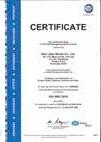


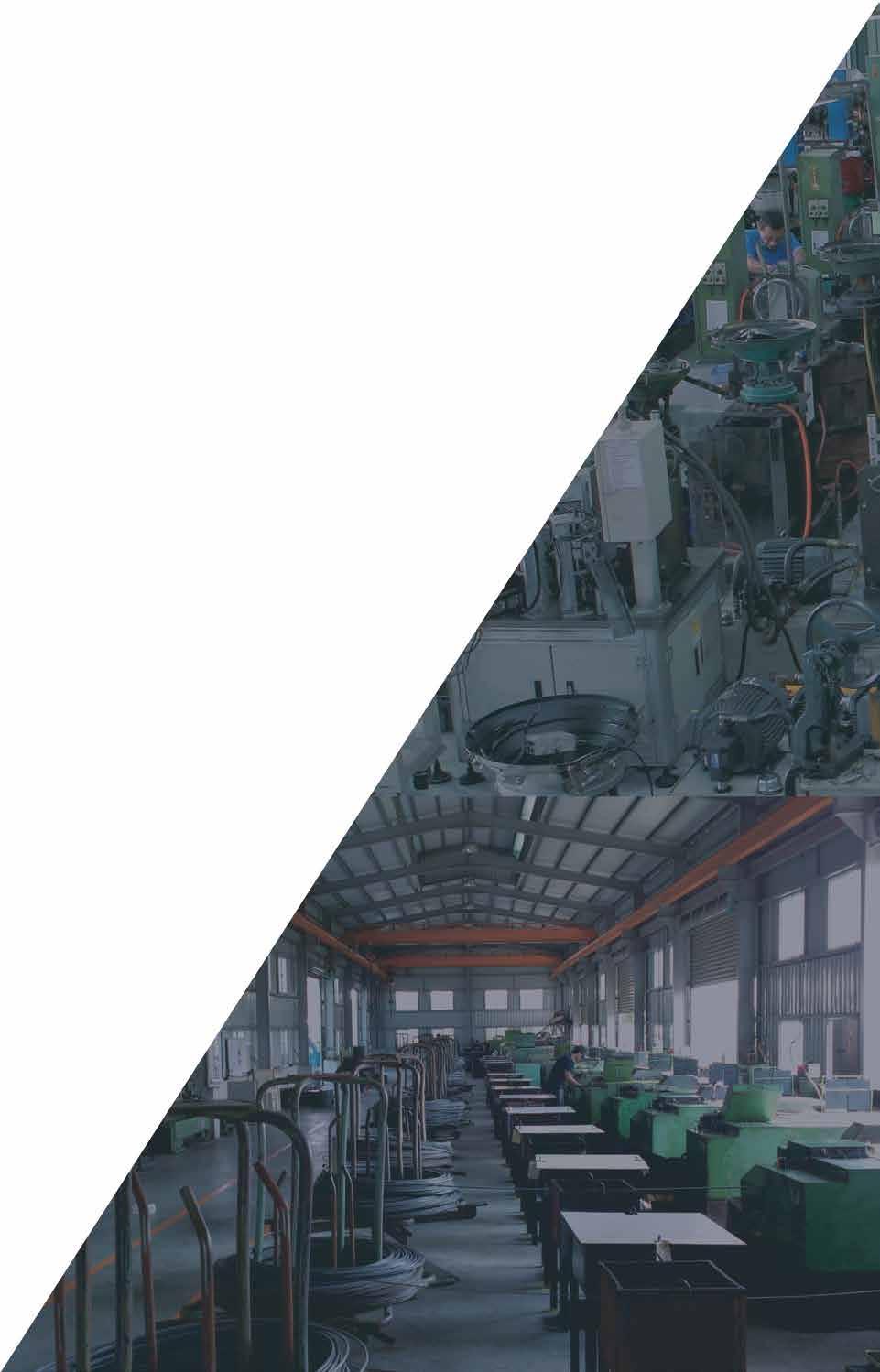




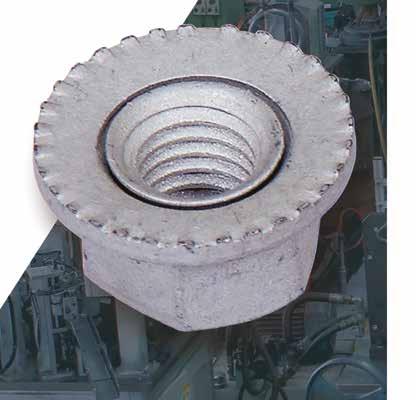



















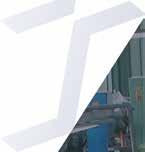


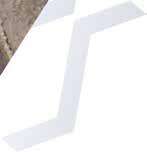




























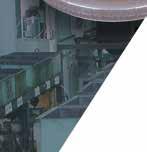

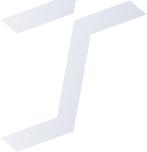





















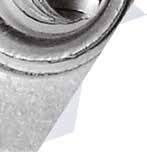

































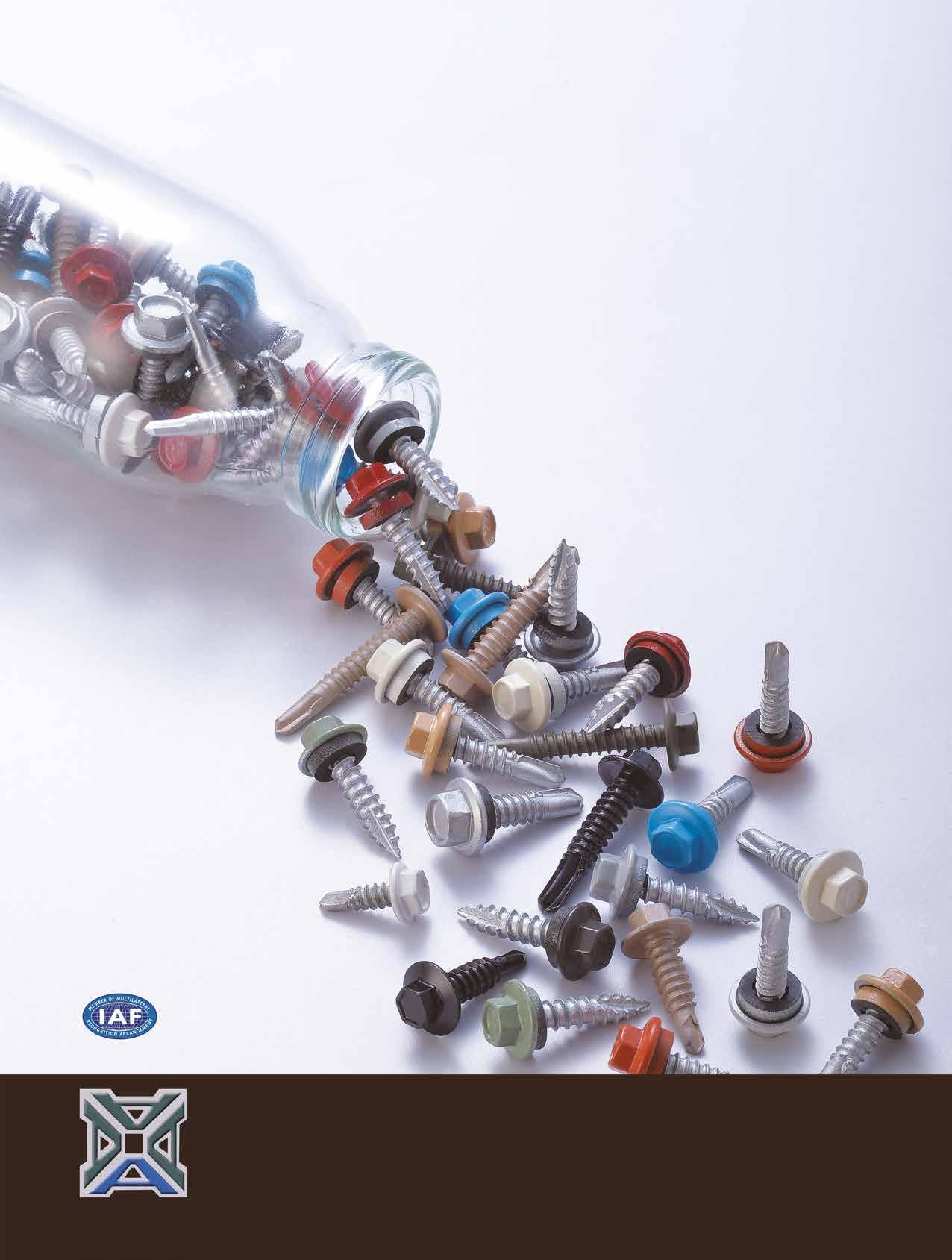


















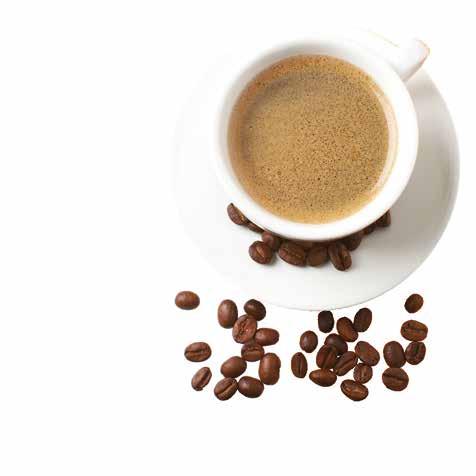

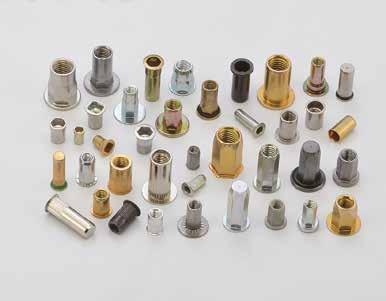
























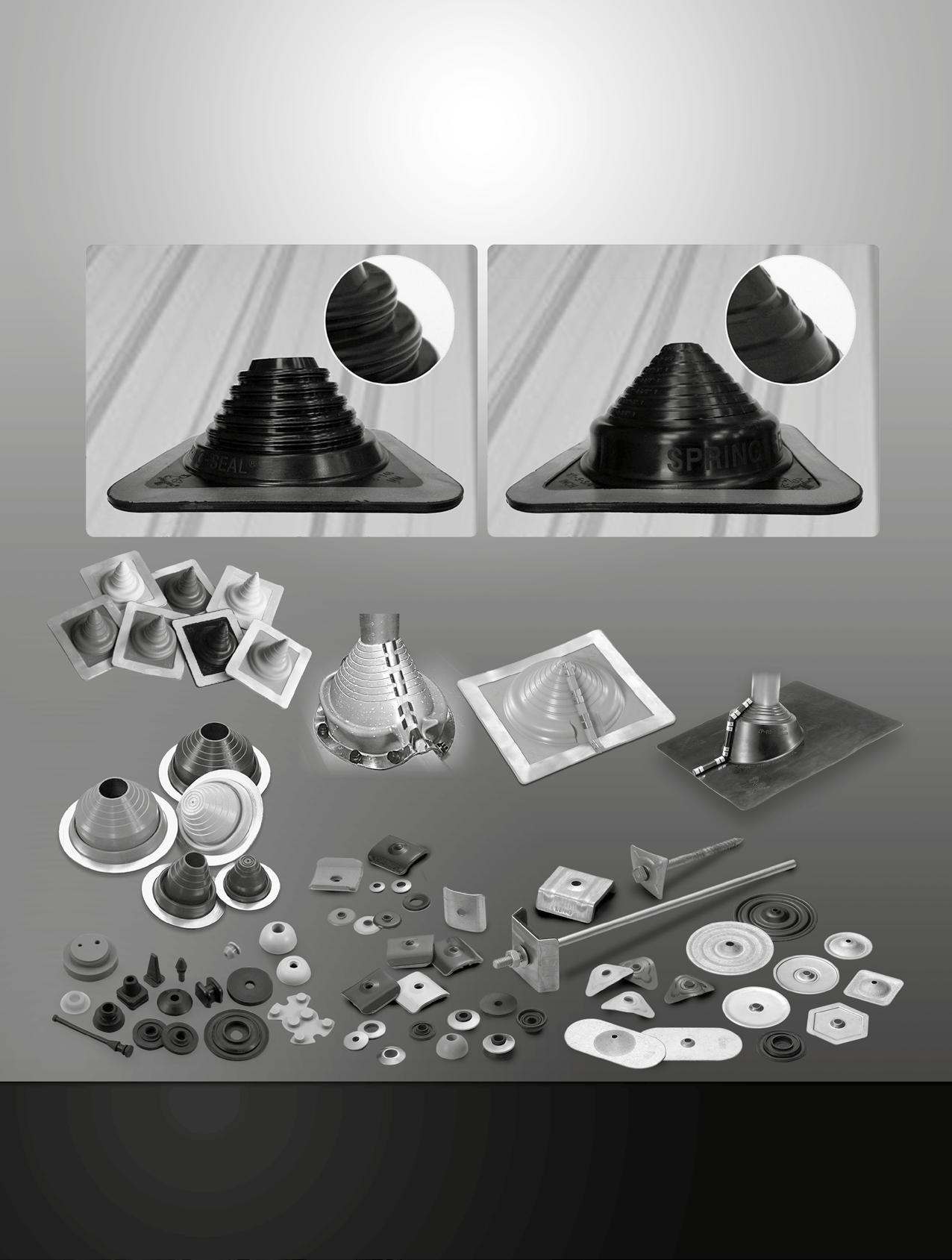













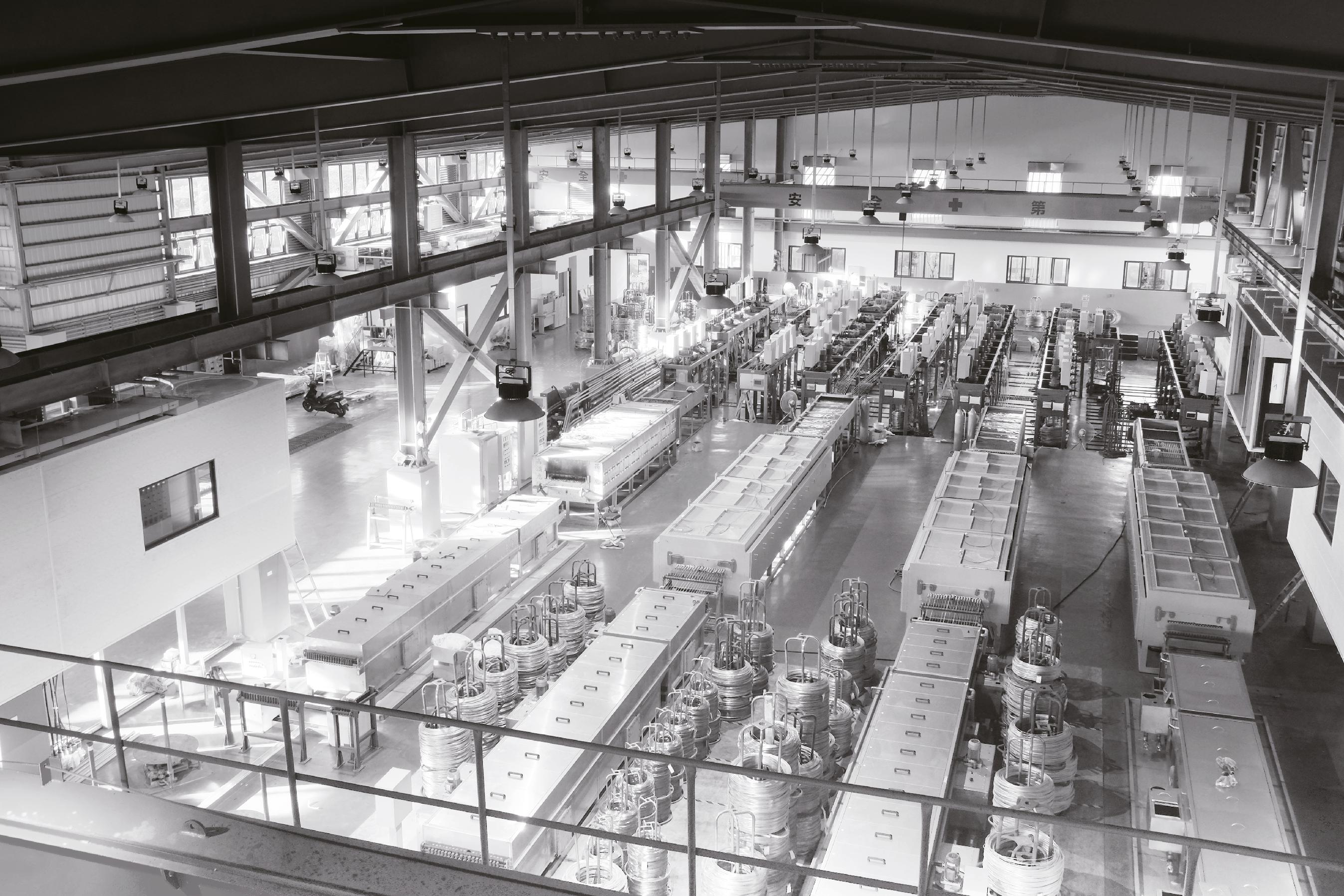


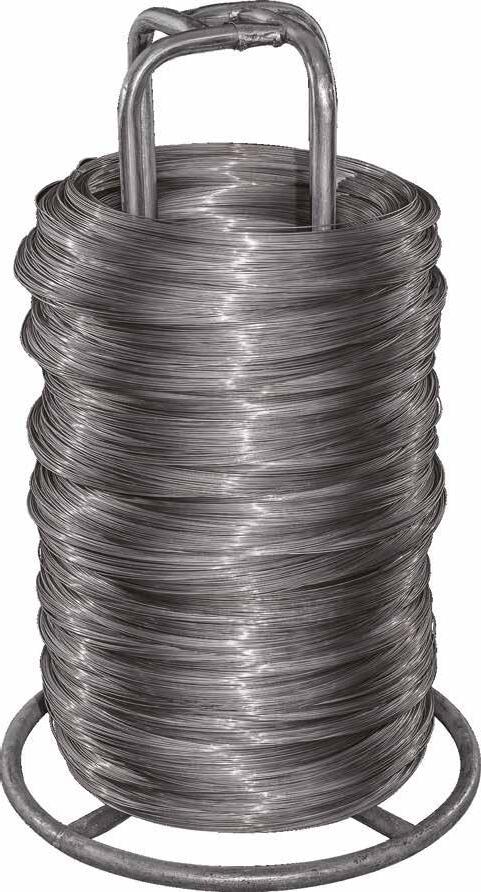



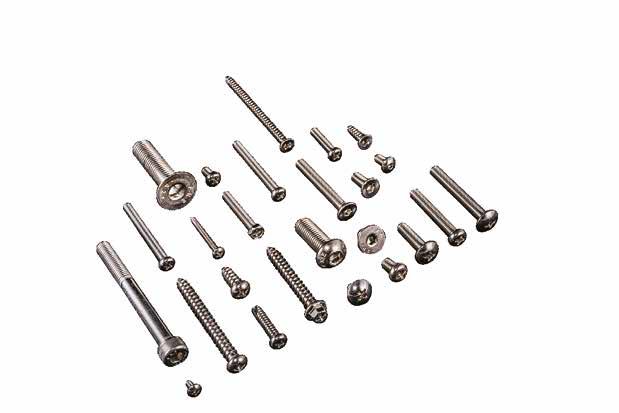

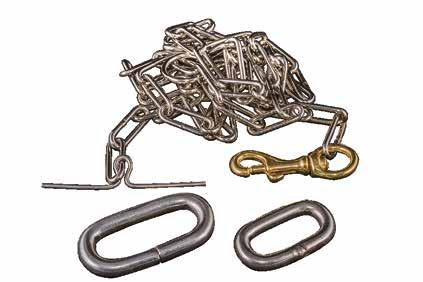
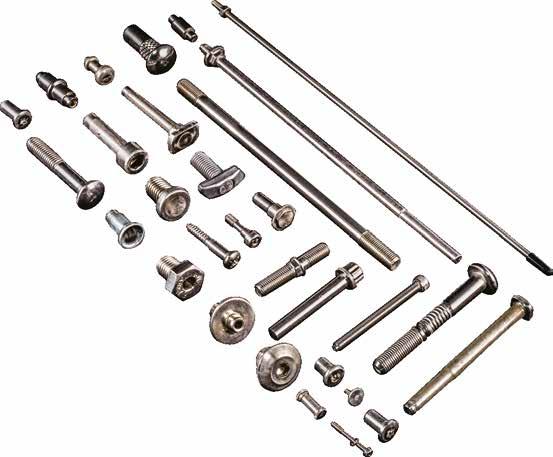
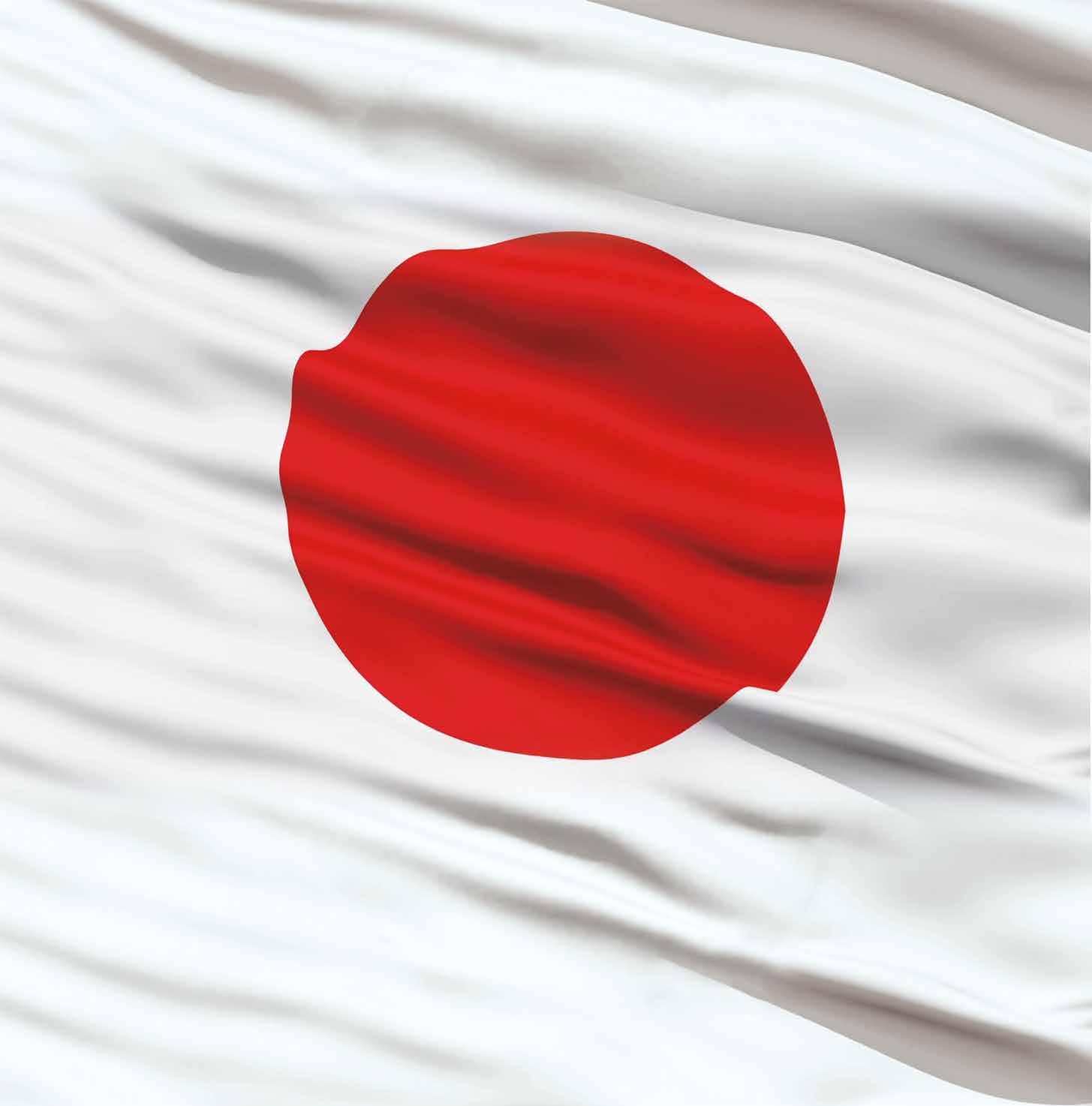

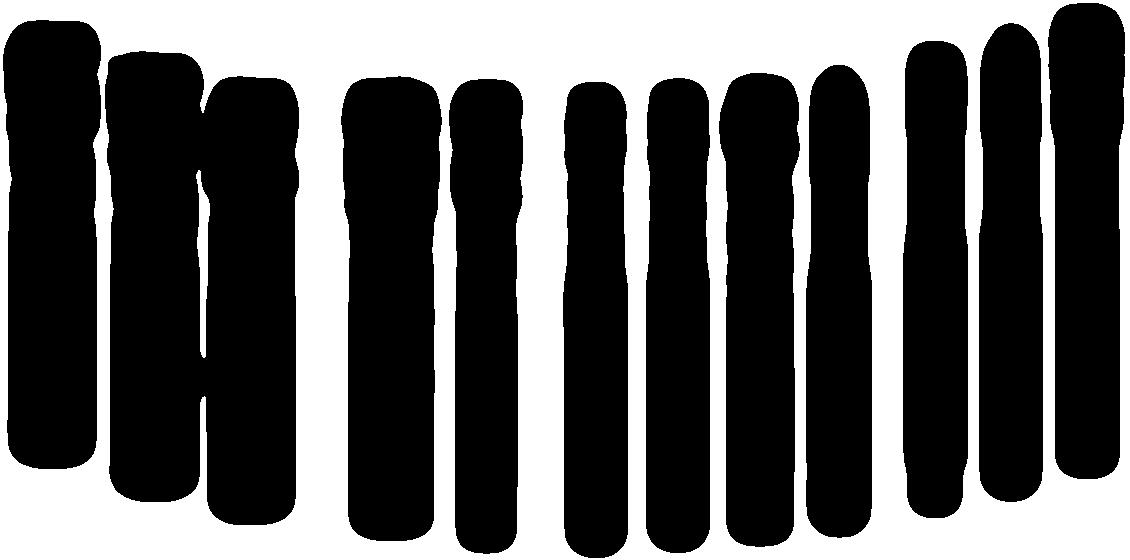








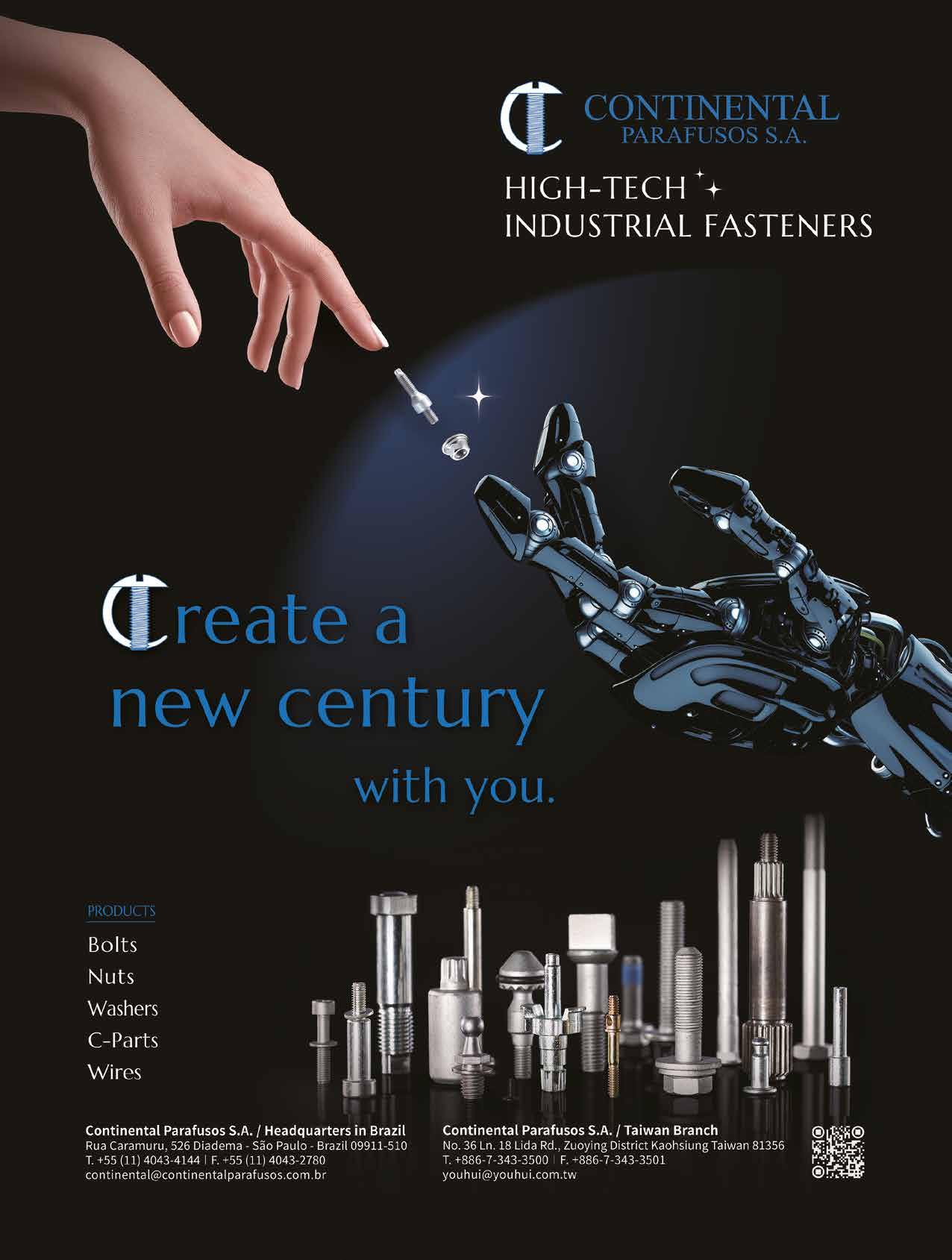










On March 10th (Friday), Sheh Fung Screws, the pioneer in the development of self-tapping screws in Taiwan, held a 60-table banquet at the Kaohsiung Marriott Hotel to announce the company's 50th year of operation.

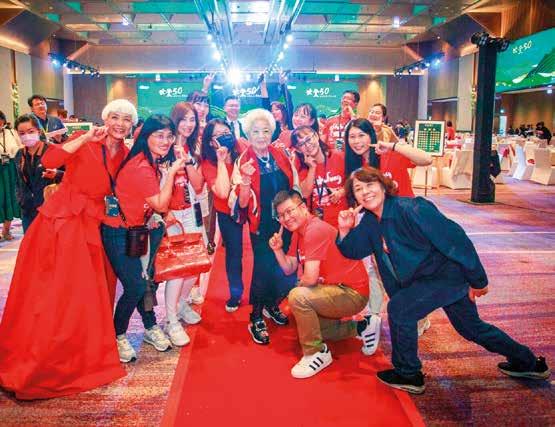

The banquet was filled with a large number of distinguished guests. Sheh Fung President Terry Tu, General Manager Kent Chen, former President Chen and some key cadre members from the management raised their glasses on stage and shared with all the guests the joy that Sheh Fung has worked hard over the past 50 years to make a small factory in the north grow and develop into a well-known listed company today.
During the gala dinner, a documentary film about Sheh Fung was continuously played on the large screen, which counted many important moments in the development of Sheh Fung that were worth remembering and commemorating, allowing the guests to witness these important milestones. In the film, President Tu, General Manager Chen, former President Chen, etc. also remembered the contributions of the founder Lucky Tu and other predecessors who had overcome great difficulties. Lots of guests were also moved by the sincere and heartfelt tone of their voice.
"I currently serve as the president of Sheh Fung Screws, Sheh Kai Precision, and HYE Technology. Since Sheh Fung was founded 50 years ago, the company's development has continued to flourish, all of which are due to the efforts of every member of Sheh Fung.” said President Tu.
“The ship-shaped buckets with the Chinese Characters of "Sheh Fung" on them at the entrance of the banquet symbolize the idea of selling screws all over the world, and also represent the spirit of cooperation that Sheh Fung has always insisted on. Thanks to the cooperation with our partners and all the staffs in the company, we are able to deliver the screws one by one to the customers abroad. Therefore, it is with a sense of gratitude that we celebrate the 50th anniversary of Sheh Fung,” said General Manager Kent Chen.

Sheh Fung Screws attaches great importance to the centripetal force of employees. In the gala dinner, a senior employee, who has served the company for 40 years, was specially recognized for her contribution to Sheh Fung. On the other hand, the company also generously donated NT$7 million to the Sheh Fung Charity Foundation for the purpose of donating scholarships to schools and social charities, fulfilling the social responsibility of a successful enterprise of “taking from the society and using it for the society” and promoting the spirit of Sheh Fung.
With nearly 300 employees, Sheh Fung Screws is dedicated to the production and development of construction screws such as self-drilling screws, drywall screws, and timber construction screws. It has obtained ISO-9001, ISO-14001, CE and A2LA laboratory certification in the United
States. It is not only the first screw factory in Taiwan to introduce the SAP system, but it also replicated the experience of its Taiwan factory at the end of last year to build Sheh Fung’s first overseas presence in Vietnam, which is expected to be in operation in the fourth quarter of this year.

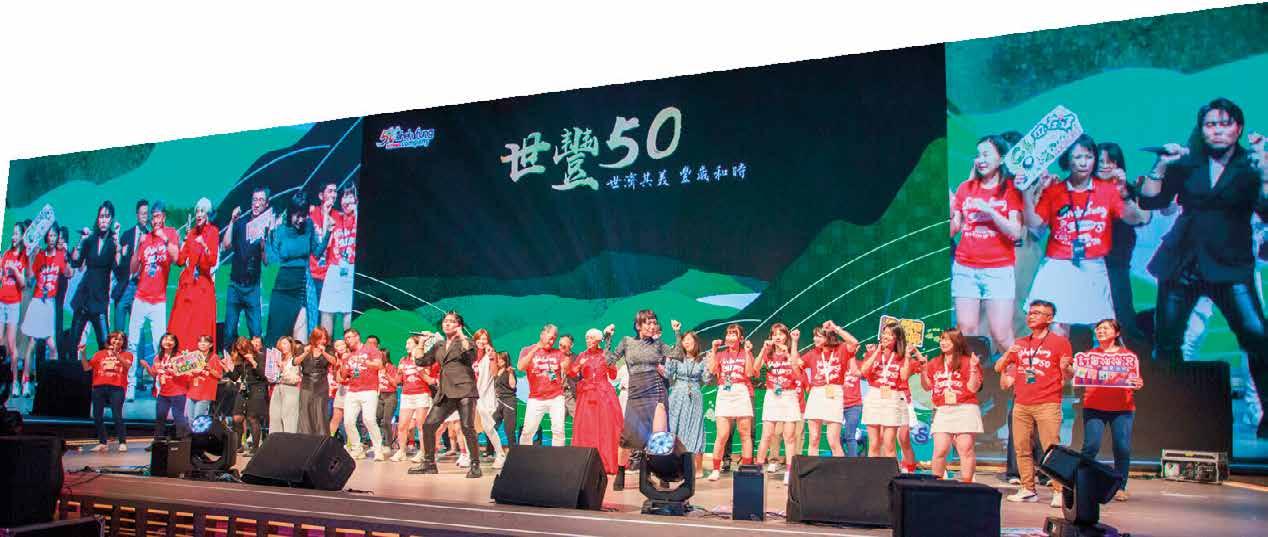
President Tu also said, “I am quite looking forward to the Group's continuous efforts towards the goal of rapid revenue growth in the next five years.”
by Gang Hao Chang, Vice Editor-in-Chief of Fastener WorldShip-shaped buckets symbolize the idea of export for Sheh Fung's screws

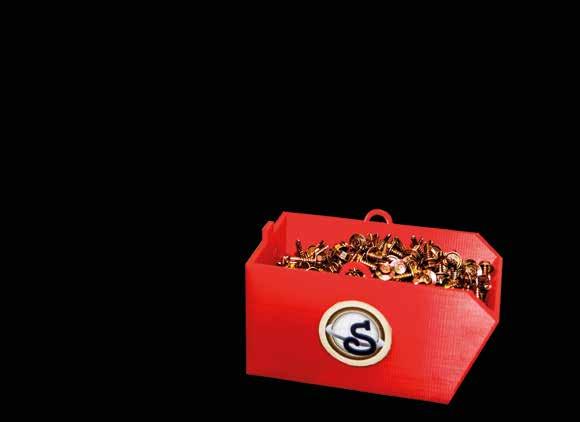 Donating to the Sheh Fung Charity Foundation
Employees of Sheh Fung dance together on stage
Donating to the Sheh Fung Charity Foundation
Employees of Sheh Fung dance together on stage









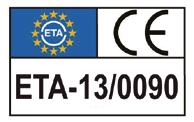


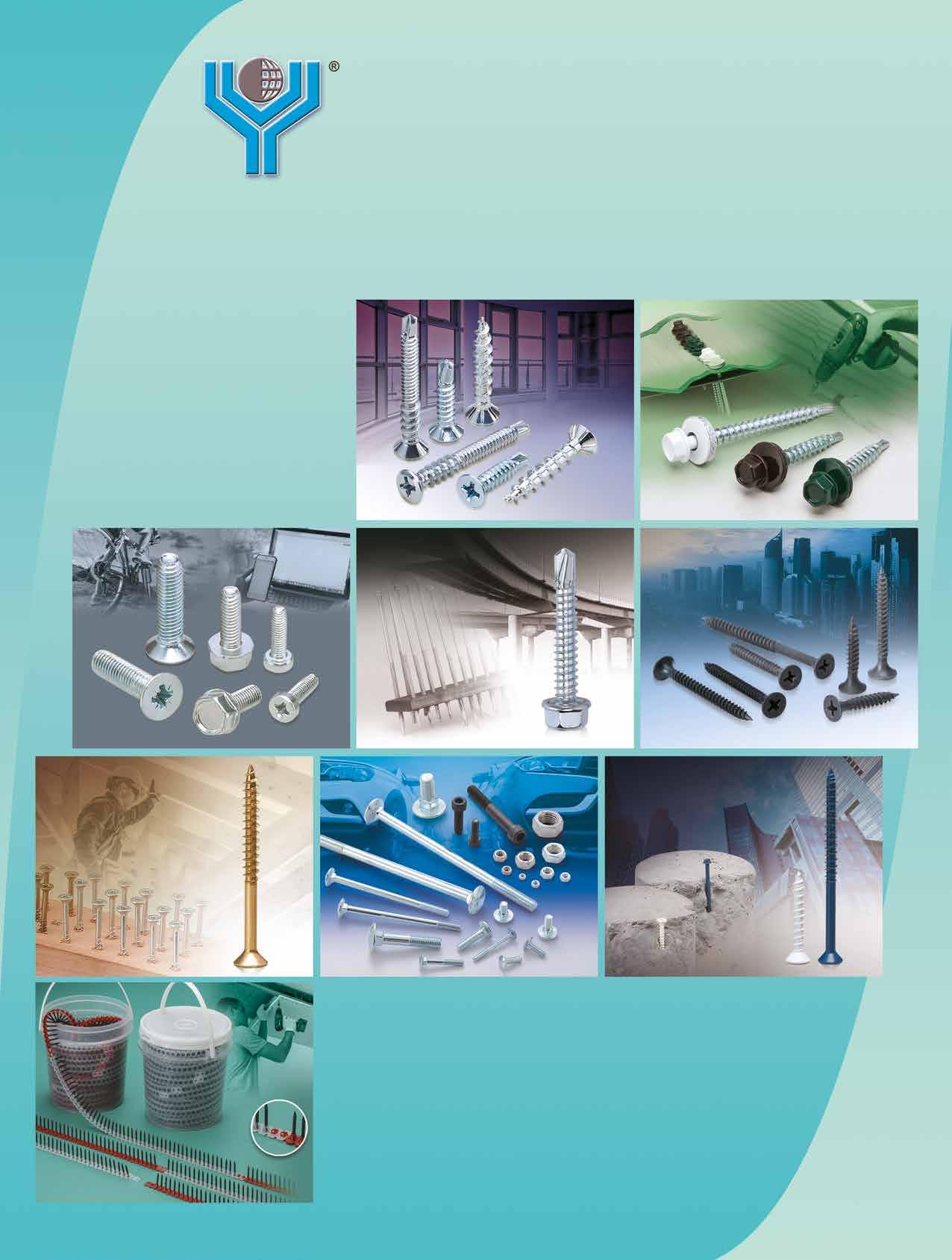






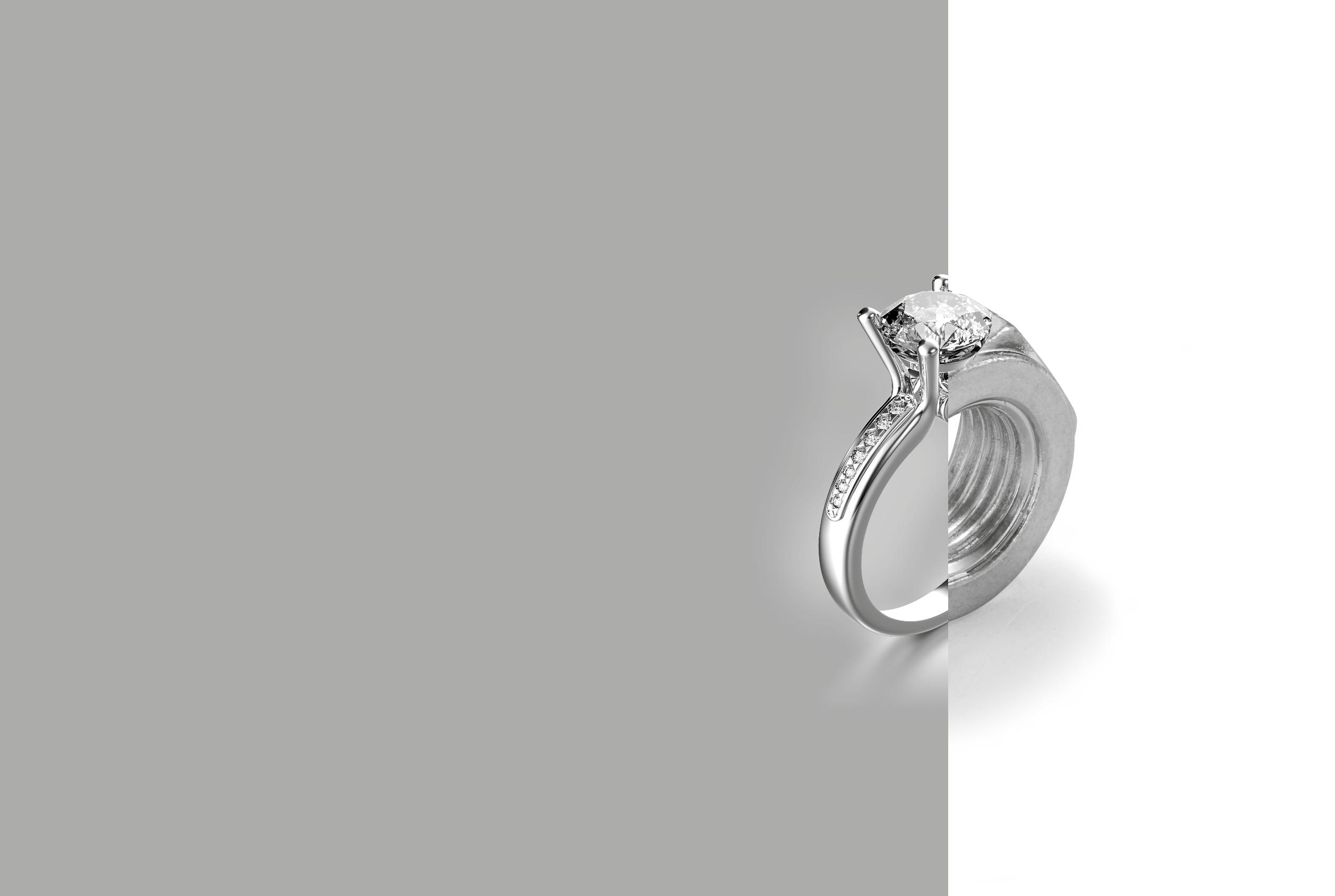




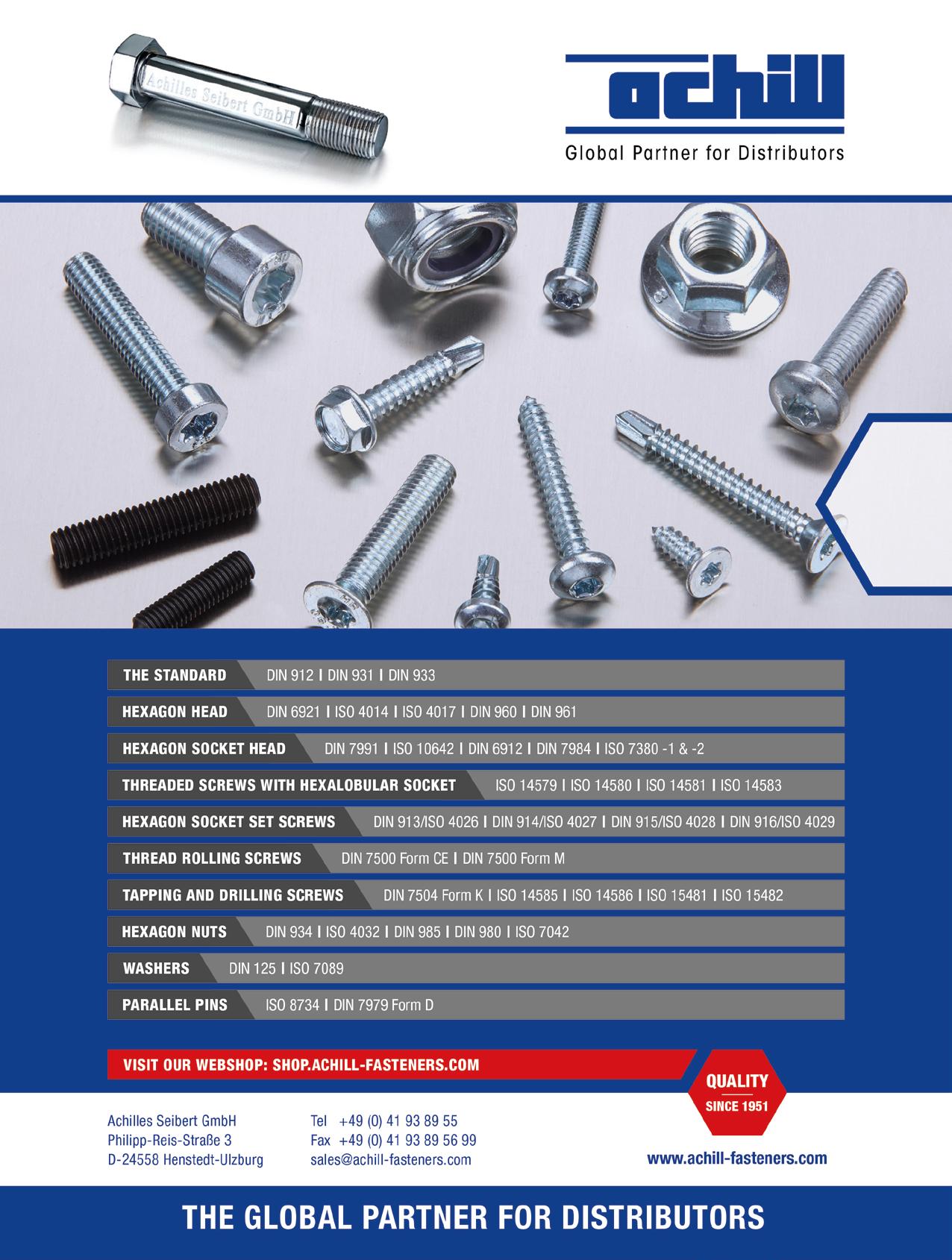
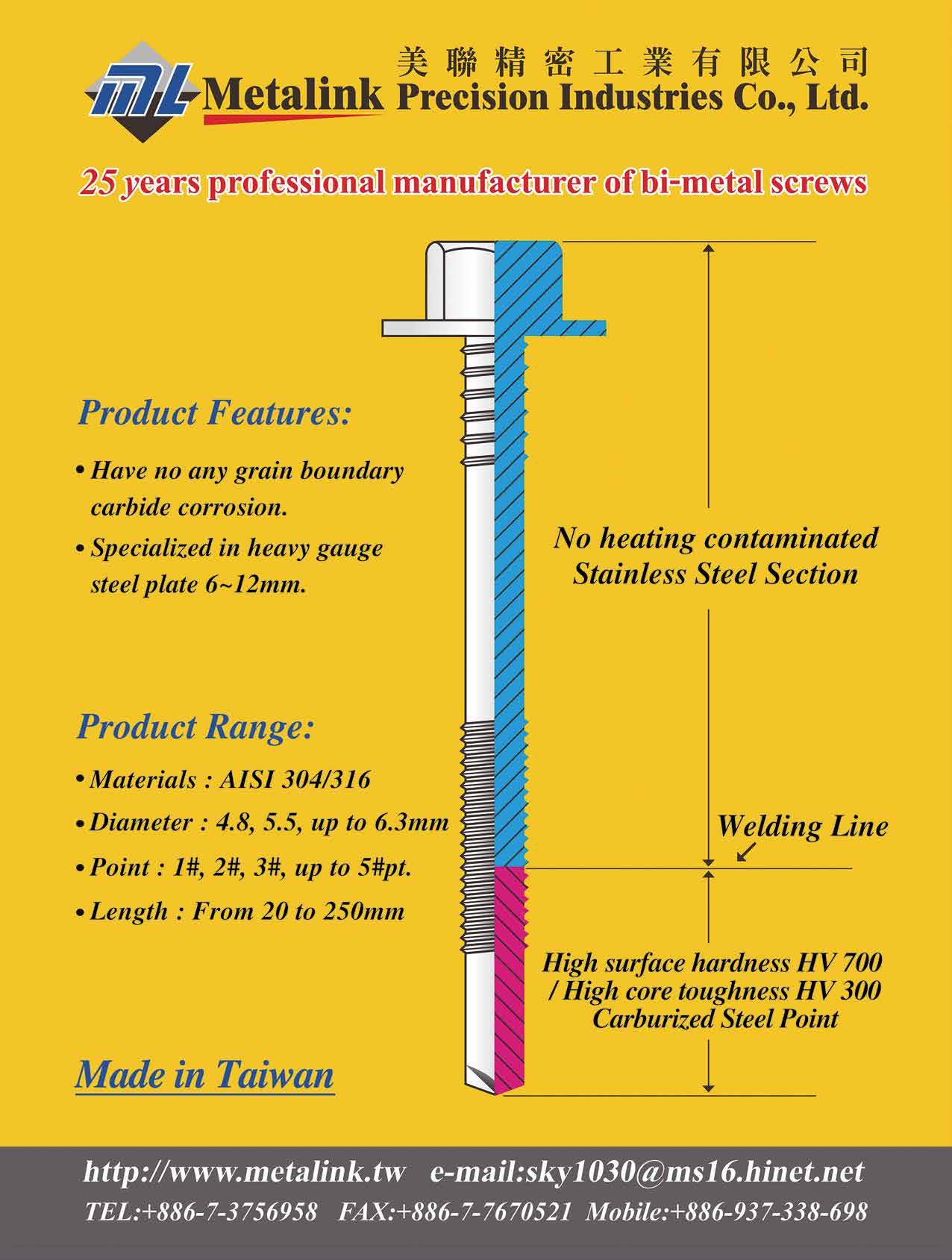





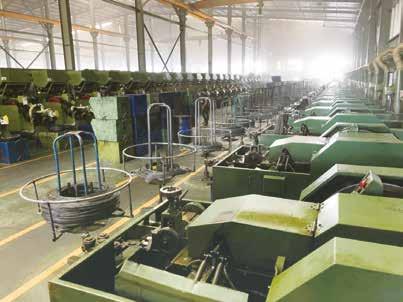

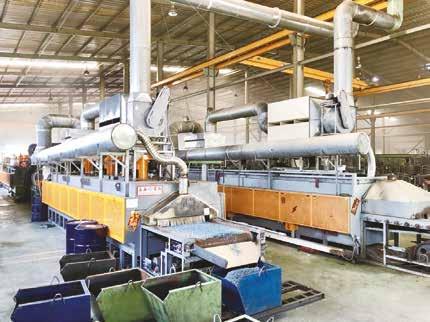












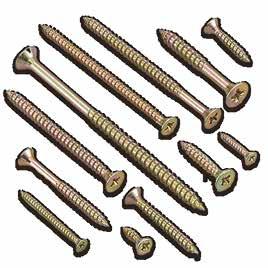

























































Yo Technology specializes in SUS300 series (303/304/316), 400 series (416/420) and SUS630 stainless steel needle rollers, rollers, dowel pins, insert nuts, and CNC machined parts. Its ability to produce high-precision dowel pins as thin as a hair at a minimum of 0.6mm has been widely recognized in the market. In addition to dowel pins, it pays more attention to the market niche and includes stainless steel insert nuts as the top product of this year.

Hey Yo provides ISO 2338, ISO 8734, and DIN 6325 dowel pins with an O.D. of 0.6-4mm and a length of 2-45mm. Its average monthly output is more than 5 million pcs. Through the use of automatic grinding equipment, the O.D. grinding precision of its dowel pins can reach 0.003mm and the surface roughness can be better than Ra 0.1. General Manager Gary Chang said, "Dowel pins with the O.D. of less than 1.5mm and the grinding precision of less than 0.005mm are definitely our strengths. Through the use of self-developed dowel pin processing machines to improve waste of materials, increase productivity and stability, we’re able to provide customers with super high CP value and affordable prices." Hey Yo has all sorts of testing equipment for dowel pins, including 2.5D projectors and surface roughness/roundness/ straightness/hardness testing machines, and can provide complete testing reports .
At present, the inserts nuts in Taiwan are mainly made of brass. While users are using these nuts, chipping is very likely to happen during fastening or removing due to the soft texture of brass, and they are also likely to get rusty while used outdoors . Hey Yo, being not afraid of challenges, expanded its product portfolio to hard-to-make stainless steel insert nuts. By utilizing stainless steel's high toughness and rustproof properties, the products can still maintain their function in harsh environments. They are generally used in monitors, cars, drones, and other outdoor products. The spirit of being dedicated to challenges and not afraid of difficulties is Hey Yo's culture, and the continuous acceptance of challenges is also the driving force for General Manager Chang to continuously lead the company to grow.
Hey Yo is currently specialized in two types of insert nuts. One is the stamped insert nut, which is pressed into a metal sheet by stamping, and the material will flow into the undercut section in the form of "cold deformation," thus making the nut a part of the metal sheet. The other is the plastic insert nut used in plastic insertion and the methods used include hot-melting and hot-pressing. The herringbone knurling design can prevent the workpiece from loosening after locking.

General Manager Chang emphasized that Hey Yo has conducted in-depth research on the properties and processing of stainless steel, especially the selection of SUS416, 420, and 630. Hey Yo always feels easy to complete tasks from the basic CNC stainless steel processing tool selection and processing rpm feeding configuration, to the heat treatment processing in the later stage. If one is not familiar with the hardness and processing conditions of stainless steel heat treatment, it will lead to the output of products with insufficient or excessively high hardness that may cause embrittlement. This is where Hey Yo's greatest advantage lies. "The professional knowledge and specifications of the heat treatment industry are not necessarily fully understood by buyers." Mr. Chang uses his professional knowledge of stainless steel processing and heat treatment to evaluate the feasibility of product production for customers, serves as a communication bridge between customers and third-party heat treaters, and provides customized product solutions as a consultant.
Achieving the market segmentation of stainless steel insert nuts and brass insert nuts is a part of Hey Yo's main focus on product differentiation. General Manager Chang cooperates with many superior suppliers to reduce production costs and improve product quality through professional division of labor. He attaches great importance to the communication in product design and the efficiency to solve customers’ problems. Coupled with CNC turning & milling services for peripheral products, as well as the new office inaugurated last year, Hey Yo will continue to explore new business opportunities at home and abroad this year.
by Dean Tseng, Fastener World




Kinefac ® Corporation is a USA-based precision machine tool manufacturer recognized as a world leader in metal forming technology. Since 1962 the ISO 9001:2015 company has continued to build its reputation of technical leadership in cylindrical die thread and form rolling. Kinefac machine tools can be found on all continents of the globe, including Antarctica, producing diverse precision parts and components for global industries making everything from high-precision threaded fasteners for automotive and aerospace applications to micro-sized spring coils for medical device applications.

The Kinefac POWERBOX KINEROLLER TM product line of cylindrical die thread and form rolling machinery is designed for infeed, throughfeed, and incremental cold rolling of threads, knurls, serrations, and grooves on fastener components. Available in vertical and horizontal rolling axis with die load capacities from 111kN to 2,935 kN. Hex bolts, machine screws, socket head cap screws, wood screws, and construction anchor bolts are suited for these machines. Warm rolling systems are also available for high strength alloys.
POWERBOX KINEROLLERTM features high stiffness frames for maximum rolling process stability, double-acting spindles with self-centering work centerline for simplified part handling, precision spindle slide systems for maximum guided stability in the taper and skew planes, single-point size adjustment for accurate and precise size control, independent spindle taper adjustment for symmetric die force distribution, and independent spindle inclination adjustment for optimized tilt angle setting.
Kinefac® CNC system option reduces setup time and improves part quality consistency. KINEFORM cylindrical rolling dies are available in standard and custom thread geometries in various high-performance materials and coatings for a variety of machinery manufacturers.
Kinefac ® RP-10 KINECRIMP TM is designed for multi-point radial crimping operations on hex/multi-point/collared nuts and similar configurations. These servo electric machines are available in vertical and horizontal axis with crimp load capacities up to 110 kN. Quick change tooling allows for fast setup of 2, 3, 4-point crimps in the standard die carrier. Other crimp configurations are available on request. Force and position control options are used for the most sensitive thin wall crimping operations. A servo part stop ensures the crimp points are accurately positioned on each nut.
Kinefac® POWERBOX KINEROLLERTM machines and RP-10 KINECRIMPTM machines are available with various automatic part handling systems are also available ranging from simple manual load operations to vibratory bowl loading, robot loading, and pick & pick place loading. In line gaging and inspection is also offered. The company recently added additional temperaturecontrolled die grinding capacity with the latest multi-axis grinding machines to increase precision and productivity. Difficult part geometries, high strength exotic materials, and tightening tolerances are constantly pushing the limits of their expertise.
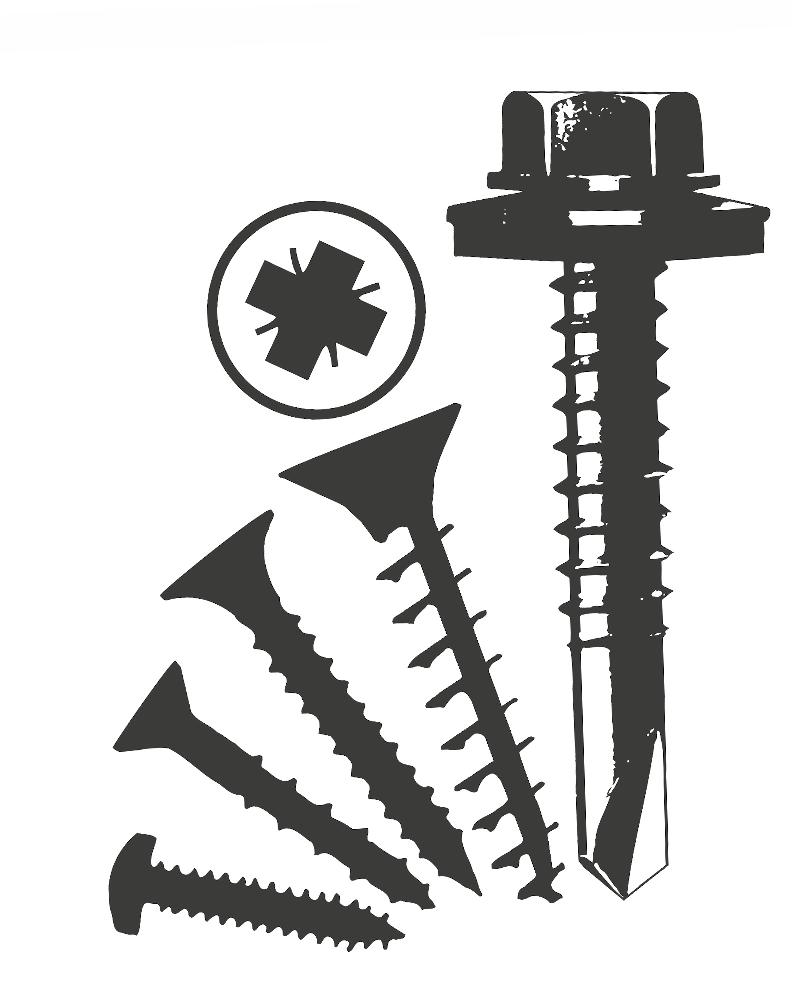
The U.S. Supreme Court declined to hear a challenge to U.S. steel import tariffs imposed in 2018 under former President Donald Trump, Reuters reports.“ The justices turned away an appeal by a group of U.S.-based steel importers of a lower court's ruling rejecting their challenge to the Trump administration's imposition of tariffs under a Cold War-era trade law,”writes John Kruzel of Reuters.
In March 2018, Trump ordered a 25% tariff on steel imports from most nations and a 10% tariff on aluminum imports - a policy he touted as defending U.S. national security - and largely maintained by President Joe Biden. The tariffs were justified after the Commerce Department reported that steel and aluminum imports “threaten to impair the national security,”as defined by Section 232 of the Trade Expansion Act of 1962.
A subsequent Federal Reserve study found that, while the tariffs reduced competition for some industries in the domestic U.S. market, this benefit was more than offset by rising input costs and retaliatory tariffs.
The Industrial Fasteners Institute warned against the 232 tariffs.“ In our view, the negative effects on downstream consumers of steel and aluminum far outweigh any benefits that may be afforded to the domestic metals industry,”the IFI stated in an official letter sent to the White House in early 2018. “ Specifically, we suggest that the negative impacts from these remedies will do more harm than good to our economy and national security than they will provide benefits to the domestic metals producing industries.”

The IFI joined 14 other trade associations representing over 30,000 US steel-using manufacturers to warn that the entire U.S. steel supply chain“will be damaged by restrictions on steel imports.”
A U.S. federal appeals court upheld higher tariffs on some imported steel products, reversing a lower court ruling that overturned the Trump administration action, Reuters reports.“ Tuesday's 3-0 decision by the U.S. Federal Circuit Court of Appeals in Washington, D.C. covers imports of steel derivatives, such as nails and fasteners, that were subjected to 25% tariffs in a January 2020 proclamation by thenPresident Donald Trump,”writes Jonathan Stempel for Reuters.
At the time, Trump said the new tariffs were needed after capacity utilization had not recovered for an extended period. China retaliated with matching tariffs on an equal amount of U.S. goods, embracing the largest trade war with the West in decades.
In 2021, the U.S. Court of International Trade ruled against the new tariffs, saying the White House missed statutory deadlines to impose them. But the appeals court said a subsequent ruling allowed presidents to impose“contingency-dependent ”tariff increases to fulfill their original national security objectives, assuming those objectives remained valid.

Trump imposed the new tariffs to“close a loophole exploited by steelderivatives importers ... to address a specific form of circumvention,” Circuit Judge Richard Taranto wrote. The Biden administration supported upholding the new tariffs. The tariffs had been challenged by importers Huttig Building Products, Oman Fasteners and PrimeSource Building Products, which said Congress never granted the president broad power over foreign trade to impose them.
The Industrial Fasteners Institute presented its 2023 Soaring Eagle Awards to Bob Hill and Henry Hogue. Nicholas Lessnau of MNP Corporation received the IFI's Joe Greenslade 2023 Young Leadership Award. Lessnau is account manager for MNP in Utica, MI.
The IFI Soaring Eagle Service Award recognizes individuals who have contributed outstanding time and effort in the leadership of the IFI and the entire industrial fastener industry. Hill was the IFI's longtime industrial products division manager, board member and former chairman. The Soaring Eagle technology award was presented posthumously to Hogue (1898-1953),who generated ten patents for fastener manufacturing and equipment design and had been president of Tru-Fit Screw Products.
The technology award recognizes individuals who have made significant contributions to the technological advancement of the industry. Contributions may be through work on fastener standards committees; the publication of widely acclaimed principles or documents; and/ or through the development of fastenerrelated equipment, products or processes which have been widely acknowledged as advancements in fastener technology. Hogue's most impactful inventions were apparatus for wire drawing and separately for nut manufacturing. His innovations led to important and enduring advancements in fastener manufacturing technology and equipment design. These advancements represent a foundational pillar of the state of the art of cold forging and fastener manufacturing today.
Greenslade was IFI technical director from 2007 to 2015. The award recognizes individuals who, early in their career, have contributed in a significant way to the fastener industry. One of Greenslade's passions was to mentor and encourage young people to reach their professional potential.

Fasteners and components manufacturer LoneStar Group has been acquired by private equity firm Epiris LLP. Terms of the deal were not disclosed. Headquartered in the West Midlands, UK, LoneStar Group manufactures and supplies highperformance fasteners, sealing products, precision-engineered components and pipeline packages for the world's industrial and energy markets. Employing more than 1,000 employees across 13 businesses, LoneStar operates facilities in the UK, China, Romania, India, Singapore, Dubai, the U.S. and Australia.
LoneStar supplies high performance fasteners to major OEMs, distributors and end-users in 100 countries. The group maintains a $48 million global stock inventory of finished, semi-finished and raw materials to supply all sizes of SAE, ASTM and ISO fasteners. Fastener companies owned by LoneStar include AmeriBolt, LoneStar Fasteners and Walker Bolt.

“ LoneStar is typical of the kind of business in which we seek to invest,”said Epiris partner Charles Elkington.”It is a high-quality business: a global market leader with scale and clear competitive differentiation.“ It operates in attractive markets, benefiting from growing energy demand in both traditional and renewables. Most importantly, it is one which we believe we can transform by bringing our trademark focus on strategy, operational excellence and M&A.”Founded in 1976, Epiris is based in London.
The Specialty Tools & Fasteners Distributors Association (STAFDA), Elm Grove, WI, USA, has a new face. STAFDA's blue triangle logo with“ Stan the STAFDA Man” was recently updated to give it a more contemporary look. STAFDA's traditional logo has

tremendous brand recognition with Stan and the late '70s groovy script, but for 2023 and beyond, Stan Jr. will now be the face of STAFDA with a modern image and font. STAFDA is transitioning to the new logo for all its branding. The association is also working on a fresh new website that will encourage more member engagement. The updated website debuted in late Q1.
Gene Simpson of Semblex Corporation is the new chairman of the Industrial Fasteners Institute and Dan Curtis of MacLean-Fogg Company is vice chair for the 2023-24 term. Jeff Liter of Wrought Washer Mfg. Inc. is ex-officio chair. Founded in 1931, the IFI represents North American manufacturers of mechanical fasteners and formed parts and key suppliers to customers, government and the public to advance the competitiveness, products, and innovative technology of member companies in the global marketplace.
SPIROL, Danielson, CT, USA, announces that Ford Aerospace Ltd., South Shields, UK will be joining the SPIROL group of companies. Ford Aerospace was founded in 1910 by Robert Ford, and the family business has most recently been led by the founder ’ s greatgrandson, Chris Ford. The company specializes in manufacturing high-precision metal components and subassemblies for the aerospace, industrial and high-technology sectors. The firm has been a leading supplier over its 113year history.
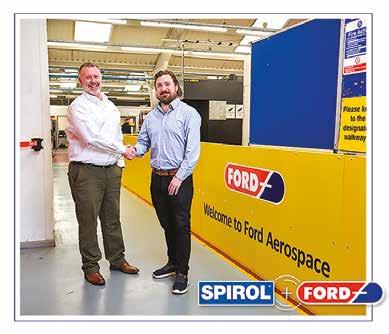
SPIROL is a successful, family-owned company with a rich history also closely tied to aviation development. Founded in 1948, SPIROL has grown from a single manufacturing facility in the USA to a global enterprise with manufacturing or distribution locations in North and South America, Europe and Asia. As an expert in fastening, joining and assembly, SPIROL's well-established global footprint will take Ford Aerospace's products to a wider international market. Also, one of SPIROL's core principles is to continuously reinvest back into the business to ensure long-term, enhanced success and better serve its customers. This principle is also firmly held by Ford Aerospace and so the synergies in markets, products, history and providing value to its customers ties SPIROL and Ford closely together.
Ford Aerospace's technical skills in producing laminated and solid shims that ensure fast, precision tolerance compensation used on products like fuselages, gearboxes and movable components, was key in attracting SPIROL. Such products simplify the assembly process and reduce the cost of the assembly.
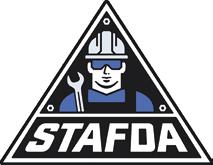

In 1994, Fastenal, Winona, MN, USA, opened a sales branch in Stoney Creek, Ontario, Canada. It had two employees and around US$1800 in first-month sales, but it was Fastenal's first branch outside the USA. From this humble beginning, Fastenal's international (nonUSA) business has grown to include sales, service and support teams in 25 countries in the Americas, Europe and Asia. In 2022, these teams achieved an impressive milestone: US$1 billion in annual sales.“ This was not a small accomplishment,”said Jeff Watts, Fastenal EVP of international sales (and one of the first employees in Canada).“ It shows what can be accomplished when we work together as one team with a common goal, and it's humbling to be a part of.”
Martin Inc. is excited to announce the appointment of Kevin Cozine as the new Vice President of Sales for Martin Fastening Solutions. In his new role, Cozine will be responsible for expanding the market share of Martin Fastening Solutions and collaborating with the sales team across all of Martin's lines of business. Cozine brings extensive experience in operations and sales leadership to his new role. He most recently served as the Director of Operational Excellence at Optimas Solutions, where he led the growth of new customer engagement and expanded the customer engagement team's analytical coverage. He has also held leadership positions at MSC Industrial Supply Co. and H&D Distributors, where he developed and grew key accounts. Marc Strandquist, EVP, Fastening, commented on Kevin's appointment,“ We are excited to welcome Kevin to the Martin team. His experience in operations and sales leadership as well as his proven track record of developing and growing key accounts, make him the ideal candidate for this position.”


Shannon King has been named Vice President and General Manager of Beneke Wire Company, located in Louisville, KY, USA. In 2012, Shannon King joined Beneke Wire Company as Plant Manager in charge of the production of round drawn aluminum wire for the cold heading market. King has 28 years' experience in the aluminum wire industry. Beneke is 55-year old manufacturer and global supplier of wire, rod, bar and redraw rod in heat treatable as well as non-heat-treatable aluminum alloys.

Coming to Auto Bolt, Cleveland, OH, USA, in April 2023 is a brand-new Formax FXP54L with the capacity to run 5/8 (M16) to 3/4 (M20) diameters as well as some blueprint specials that fall within those standards. Auto Bolt also announces the arrival of a new Videx Thread Roller with a dual-spindle feature that allows rolling of both threads and knurls on the many wheel bolts the company produces.

News provided by:

John
Wolz, Editor
of FIN (globalfastenernews.com)
 Mike McNulty, FTI VP & Editor (www.fastenertech.com)
Mike McNulty, FTI VP & Editor (www.fastenertech.com)



 compiled by Fastener World
compiled by Fastener World





The recent show marked the debut of the Brazilian manufacturer on the international stage




Brazil overcame a barrier with an annual domestic steel production of 36 million tons, but in 2021, the Brazilian domestic production sector dropped 5.84%, with 33.964 million tons total. However, the performance sector was not much different compared to the last five years, as seen in the following table.
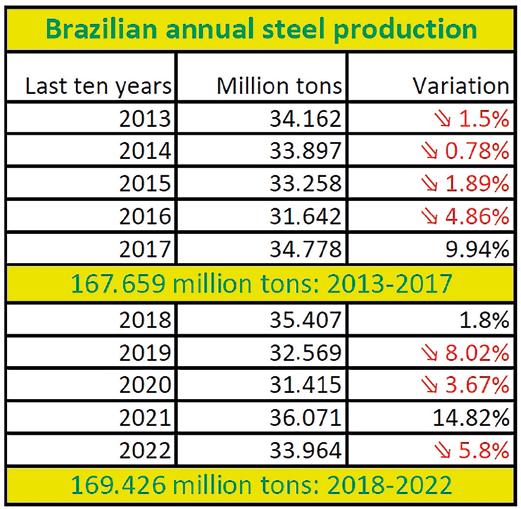
During 2012-2017 the aggregated total production reached 167.659 million tons; while the total during 2018-2022 were 169.426 million tons, a little bit higher by 1.05%. The drop in 2022 wasn’t much different from Brazilian reality, in which the annual average has been orbiting around 33.7 million tons per year, bouncing between highs and lows.
Belenus is one of biggest and most important companies in the fastener market in Brazil and South America, with more than 1.9 thousand direct employees. Recently the company has been doing international business with its presence as an exhibitor at Fastener Fair Global 2023 in Stuttgart, Germany, which was a big step.

In addition to being a fastener manufacturer, with monthly product capacity around 10 thousand tons, Belenus has divisions distributing hardware, tools and several types equipment, operating in an unified management model based on sustainability, which values the reduction of carbon emissions, water reuse and waste recycling throughout the process.



Source: www.acobrasil.org.br/site/en
"Belenus tried the European market last year and had good experiences. In 2022, we started to travel to some countries and visit fairs, the reception was surprising, which made us take a step forward, exhibiting at the Stuttgart fair (March 21-23, 2023) for the first time, said Ezio Ruocco, Vice President, concluding, "The show was so good, with only positive points to highlight. We had visitors all the time. The market was excited to have an alternative supply from Brazil that helps them reduce their dependence on Asia. On the other hand, probably the most difficult part was making them believe that in Brazil there was a manufacturer with the size and technological and productive capacity like Belenus”.

Inside total Brazilian GPD of US$ 1.8 trillion, the construction sector represents 6.2% and around 34% of the industrial segment. During April 11-14 2023, the largest trade show about construction and finishing in South America was held in São Paulo City, SP. Feicon had a so huge public, probably many above 2022.
A highlight was the return of some Asian players, including those from fasteners sector. However, there were still so few, but we know that there will be more of them. The Asian exhibitors were mainly from China, a Country that represented 28% (US$ 1 billion) worth of fasteners imported to Brazil in 2022.
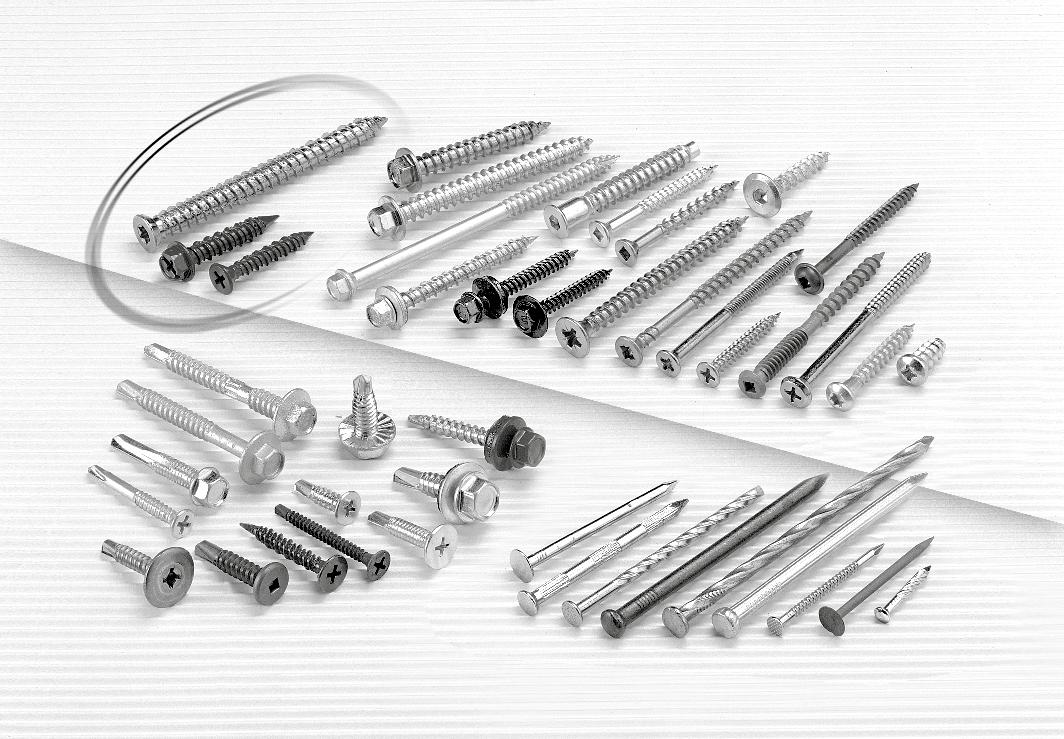


News provided by:


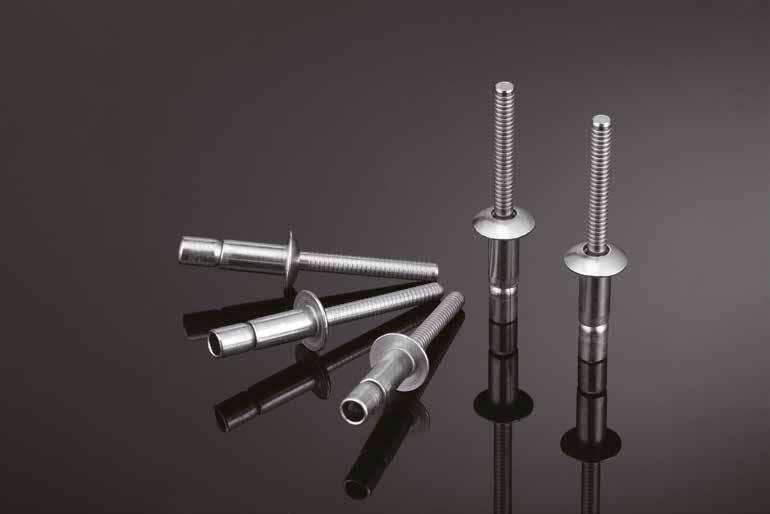
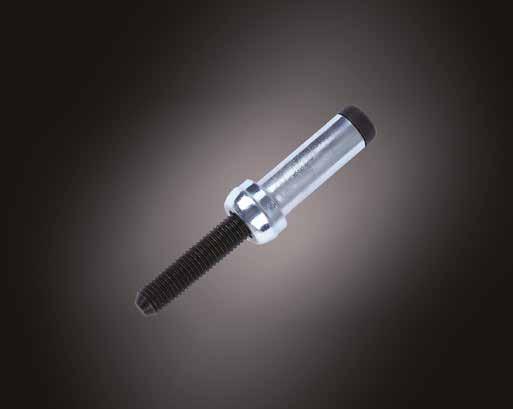





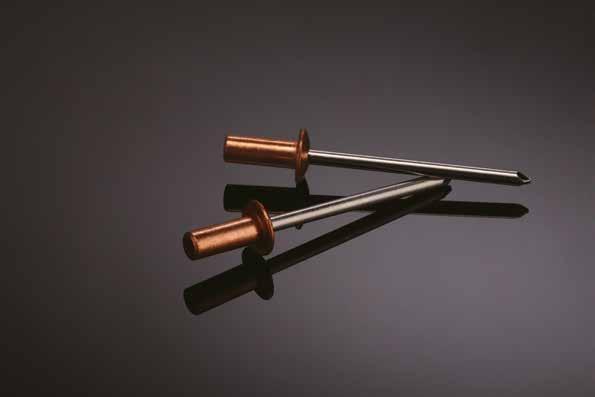

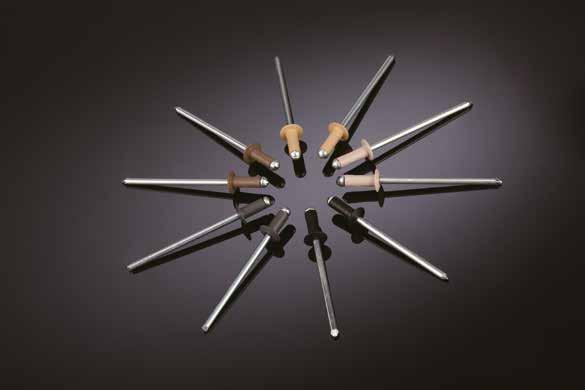

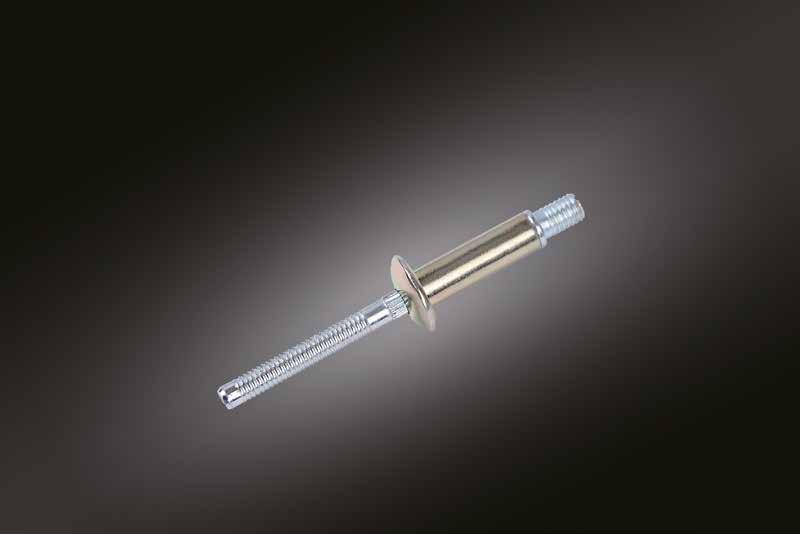

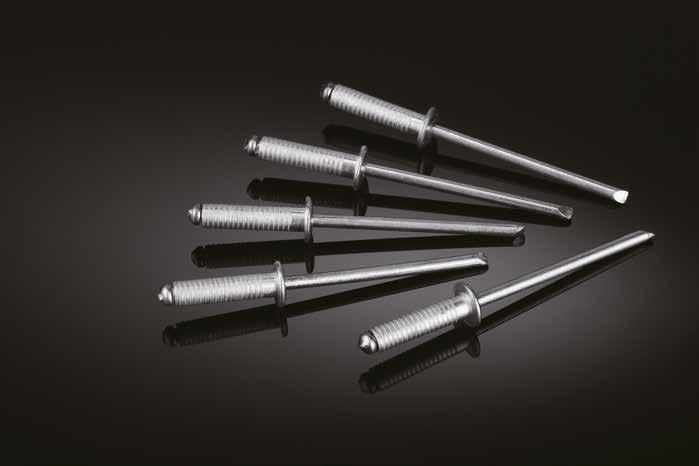

















The Fastener Training Institute (FTI), has announced Würth Industry North America (WINA) continues as sustaining sponsor in 2023. This will mark the fifth year of partnership between the two organisations.
“Würth’s continued support is instrumental to our ability to offer frequent and robust educational opportunities which enhance knowledge, safety and reliability across the fastener industry,” said John Wachman, Managing Director for FTI. Thanks to Würth’s support, FTI will continue to offer an extensive menu of in-person fastener training classes taught by leading industry expert instructors.
“Our partnership demonstrates our ongoing commitment to the importance of quality fastener education. We are thrilled to move into our fifth year of partnering with the Fastener Training Institute and helping to support the education of seasoned and new professionals within the fastener industry,” said Tracy Lauder, Director of Marketing and Communications for Würth Industry North America.
















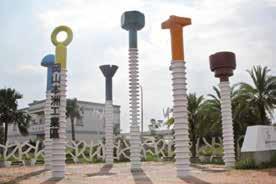
The Carbon Border Adjustment Mechanism (CBAM) is expected to go on trial implementation this October. Taiwan fastener industry emits up to 750,000 tons of CO2e (carbon dioxide equivalent) a year, and it has to improve equipment and speed up on carbon inventory.
General manager of fastener manufacturer Chun Yu said carbon reduction is a huge work that the industry has to put focus on. Each company's products and processes are different, and the entire fastener industry processing chain is long, ranging from material source which is Taiwan CSC manufacturing steel billets, all the way down to a dozen processes such as pickling, annealing, heat treatment, electroplating, each causing carbon emissions. Therefore, the corresponding work on carbon inventory and carbon footprint requires professional assistance.
The director of Taiwan MIRDC (Metal Industries R&D Center) said that CBAM will soon be implemented on a trial basis and importers must report carbon emissions data, but currently there are no clearly specified specifications and form examples. One thing that is certain is that manufacturers should do carbon inventory and carbon footprint tracking as soon as possible.
MIRDC and private entities can help the industry on carbon inventory. The director pointed out that companies can do reports on their own, but if the supply chain requires reports to be verified by third-party labs, domestically it will have to be done by Taiwan Accreditation Foundation (TAF). Taiwan Ministry of Economic Affairs estimates that by the end of this year, there will be about 18 Taiwanese entities that can provide accreditation services. The director said that, in addition to reporting carbon emissions, importers will have to purchase CBAM certificates for products exported to Europe. Plus, Taiwan’s Climate Change Legislation is expected to charge carbon fees on those products. Taiwanese fastener companies hope for the government to make carbon fee regulations compatible with CBAM and provide a way to offset the fees to avoid being charged twice.




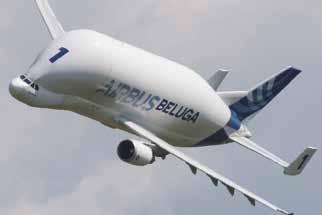
Airbus is developing its local or regional materials platform for different strategic commodities, but suppliers will need to have the necessary certifications such as AS-9100. “Without those certifications it will be impossible to do business with an aeronautical company like Airbus. And it is very important to have suppliers mainly from Mexico, or from the United States and Canada,” said Carlos Rivera Villalba, the company’s Global Supply Chain Manager.
During the seminar “Be an Aerospace Supplier”, organized by Femia, at CETYS University, Mexicali campus, Rivera added that they are looking for aluminum suppliers in sheets, plates, rivets, nuts, screws and bolts, among others.
Airbus has a presence in Queretaro with a manufacturing plant and a training center in Mexico City and another in Merida. Today there are 150 Airbus aircraft in operation in the country and 200 in the order book and take up 60% of the Mexican market. “It was forecast to close 2022 with 354 aircraft for the different airlines in Mexico, which represents a 12% increase against 2021. The country is part of the top 20 markets,” he said.
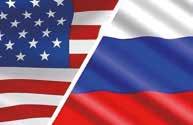
Aluminum is often used in fuselage, bolts and window & door frames. In a thorough effort to combat Russian circumvention of sanctions, U.S. White House announced a 200% tariff on Russian aluminum and related aluminum products, which has been effective since March 10. Russian aluminum accounts for about 1/10 of U.S. imports, and buyers range from the automotive to construction industries. The White House said it is planning to extend the sanctions to Russian metals and mining industries, but the move must be carefully planned to minimize the impact on the market.


Last year NAFCO benefitted from the easing of the pandemic and reopening of borders, as well as a gradual increase in aerospace customers' demand. Its consolidated revenue reached NTD2.193 billion, a 53.76% increase compared to the same period last year, marking a three-year high and the third highest in its history, and close to the revenue level in 2018 before the pandemic. Profitability benefited from a higher utilization rate and the appreciation of the U.S. dollar, with gross profit margin of 23.33% last year, an increase of 11.68 percentage points; operating income was NTD127 million turning a loss into a profit, with operating profit margin of 5.78%; net profit after tax was NTD150 million.
Looking at this year, the company said that the demand for aerospace fasteners continues to be strong, with most orders visible for more than a year, and if market conditions do not change much, it is expected to maintain good growth in revenue and profitability this year, and the company will continue to increase production capacity in response to customer demand. In addition to aerospace fasteners, NAFCO has also been actively developing its automotive fastener business in recent years, and the parts and components designed in cooperation with Tier 1 car manufacturers are expected to gradually increase in volume and fuel revenue growth. The company recently announced its March 2023 revenue, which reached NTD263 million in a single month, an annual increase of 78.8%; the cumulative revenue for the first three months reached NTD 696 million, an annual increase of 64.02%.
QST International and Boltun Corporation jointly commissioned 3 Taiwanese banks to co-sponsor a NT$12 billion worth ESG-linked syndicated loan project, which was completed on March 1, 2023. In the trend of environmental protection and energy saving, the companies have extended from conventional fasteners to new products combining light metal, engineering plastic and carbon fiber to meet the needs of vehicle manufacturers for lightweighting, automatic assembly, reduction of assembly process and energy saving and carbon reduction, and have continued to enhance the value of their products. Leveraging on their experience in EV fasteners and certification by international automakers, the companies are actively participating in customercollaborative R&D and supplier orientation programs, gradually moving from OEM to ODM.
In view of their long-term development needs and to enhance global flexibility and competitiveness, the companies will set up an overseas production base in Vietnam, acquiring about 35 hectares of land in an industrial zone with an initial investment of US$100 million. Construction of the plant is expected to begin this year and production will begin in the first half of 2024.






Lamvien Winfull Co., Ltd., a Taiwanese manufacturer located in Vinh Phuc Province, Vietnam, serves an extensive list of clients including TOYOTA, Honda, YAMAHA, Kawasaki, Polaris, Vinfast, TOTO, Daikin, Ariston, Sumitomo, Pigaaio, … etc and related T1, T2 customers. It is an IATF16949 / ISO14001 / ISO50001 certified and authorized OEM manufacturer of various customized forging bolts, nuts, screws, pins and patching for worldwide major brands of the automotive, motorcycle, safety parts, heavy industry, home appliance, and electronic fields, and has been specialized in customized precision forging parts for nearly 60 years.

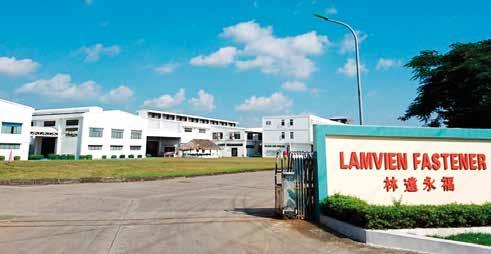
It provides one-stop and in-house manufacturing process including cold forging, threading, machining, heat treatment, de-phosphating, surface treatment, and dehydrogenation for worldwide leading customers. The capability to manufacture specialized fasteners effectively complements its value for achieving quality excellence. Obviously, its experience facilitates the abilities to fulfill more difficult orders, and clearly sets it apart from other fastener providers.

Suzhou Cheersson Precision Metal Forming announced to set up a branch in Shanghai in order to meet its business development needs and further optimize its strategic deployment, making it more convenient to get closer to the market and the front line of technology, and better collect industrial and technical intelligence.
The company's name is Suzhou Cheersson Precision Metal Forming Co., Ltd. (Shanghai Branch). The scope of business includes: hardware products R&D; technical services, technology development, technology consultation, technical exchange, technology transfer, technology promotion; import & export of goods; sales of dies; sales of communication equipment; hardware products retailing; hardware products wholesaling; electronic components retailing; electronic components wholesaling; fasteners sales; mechanical parts and components sales; metal materials sales.

Zhejiang Mingtai intends to be listed on Shanghai Stock Exchange with a fund raising of RMB 920 million. The raised fund is intended to be used for the R&D and production of Ritai (Shanghai) Auto Standard Component, the annual production of 33,000 tons of new special high strength automotive fasteners, and the construction of the new material fastener R&D center for Ritai (Shanghai) Auto Standard Component.
The company focuses on the R&D, production and sales of fasteners, and has upgraded from supplying bicycle fasteners to motorcycle fasteners, and to automotive fasteners over the past 30 years. The products are mainly used in the automotive field, with high strength, high precision, corrosion-resistant and other high-end fasteners as the main products. The company provides customers with collaborative development, testing, after-sales service, etc.

Following LISI's Annual General Meeting of Shareholders, the Board of Directors met today to acknowledge the non-renewal of Mr. Gilles Kohler's mandate as Chairman due to the age limit set by the company's bylaws, and to appoint his new Chairman. After 38 years as a member of the Board of Directors and 24 years as Chairman of the Board, the latter thanked Mr. Gilles Kohler for the immense task accomplished during all these years and expressed his gratitude to him. To succeed Mr. Gilles Kohler, the Board of Directors has appointed Mr. Jean-Philippe Kohler as Chairman for the duration of his 4-year term of office. His appointment is effective as of today. Mr. Jean-Philippe Kohler joined LISI Group in 1991 and since 2016 has been the Deputy Chief Executive Officer of LISI Group in charge of Risk Management, Human Resources and Internal Audit.
In addition, the Board of Directors confirmed the renewal of Mr. Emmanuel Viellard's mandate as Chief Executive Officer for a period of 4 years. In order to carry out his mission, Mr. Emmanuel Viellard relies on the LISI Group Executive Committee, which he chairs and is composed of:
• Mrs Anne-Delphine Beaulieu, Chief Sustainability Officer & Digital Transformation of LISI Group
• Mrs Cécile Le Corre, General Counsel of LISI Group
• Mr. Christophe Lesniak, Senior VP Industrial & Purchasing manager of LISI Group
• Mr. François Liotard, Chief Executive Officer of LISI AUTOMOTIVE
• Mr. Emmanuel Neildez, Chief Executive Officer of LISI AEROSPACE
• Mr. Alexis Polin, Chief HR Officer of LISI Group
• Mr. Lionel Rivet, Chief Executive Officer of LISI MEDICAL
• Mr. Raphaël Vivet, Chief Financial Officer of LISI Group
This new governance will continue the deployment of the LISI Group's long-term strategy, which remains focused on innovation and operational excellence.


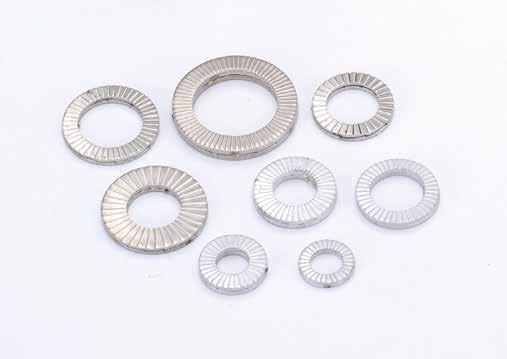




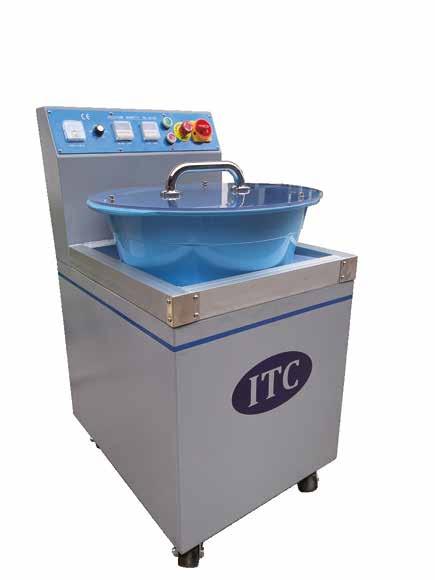

According to OFCO, a fastener manufacturer under Taiwan Steel Group, the demand for fasteners will begin to bounce up as customers gradually clear up their inventory. OFCO is also optimistic that the huge reconstruction demand after the Russian-Ukrainian war will trigger another wave of inventory replenishment. With the Group's continuous integration, the fastener business outlook is promising.
OFCO's revenue last year was NTD 4.817 billion, an annual increase of 28.1%; the net income after tax was NTD 284 million, an annual increase of 119%, and the EPS was NTD 3, a 10-year high. The revenue of the fastener business increased 87% year on year, and the gross margin came to 23.3%, an increase of 9.5%, boosting the operating profit to NTD 324 million, a YoY increase of nearly 7.6 times.

BYD uses a solvent containing hexavalent chromium to prevent rusting of bolts, nuts and other parts on its five electric buses, including the J6, a minibus sold in Japan. BYD Japan said it is working with BYD headquarters to investigate whether hexavalent chromium was used in the pure electric passenger vehicles that went on sale in Japan at the end of January.
Hexavalent chromium is a chemical substance that is widely used in automotive parts for applications such as electroplating to prevent rusting of metal surfaces. It is considered to be highly toxic and harmful to humans. Although there is no domestic law prohibiting the use of chromium in automobiles, Japan Automobile Manufacturers Association has prohibited its use since 2008 as an industry-independent restriction. After the same year, hexavalent chromium is no longer used on new cars in general.
In order to provide greater safety and peace of mind for passengers, BYD Japan said the use of hexavalent chromium will be discontinued on the new models of J6 and K8 electric buses which will be launched by the end of 2023.
The Packer Fastener family of companies, including Green Baybased Packer Fastener and Packer Freight and Chicago area-based Albolt Manufacturing, announced promotions of four key executives.

“Packer Fastener is well-known as having the biggest nuts in town, but our family of companies continues to grow beyond the nuts and bolts of industrial fasteners,” said CEO Terry Albrecht. “Today, we offer a comprehensive range of fasteners and industrial supplies through Packer Fastener, logistics and freight brokerage services through Packer Freight, and the production of customized fastener solutions through Albolt Manufacturing. By restructuring our leadership model and promoting talent from within, we’ve set the foundation for future growth and expansion.”
As part of these changes, Albrecht will continue in his role as principal owner and will now serve as the chief executive officer of the three sister companies. Albrecht was one of the original founding partners of Packer Fastener in 1998. He went on to found Packer Freight in 2019, and Albolt Manufacturing in 2022. His family of companies now employs 155 individuals in 11 different cities throughout the Midwest.

Generational Equity, a leading mergers and acquisitions advisor for privately held businesses, is pleased to announce the sale of its client, Fasteners, Inc. to Monroe Engineering. The acquisition closed January 31, 2023.
Fasteners, Inc., located in Colorado, and founded in 1965, is a wholesale fastener distribution company. The Company’s extensive inventory is available for prompt, accurate delivery or shipment in materials ranging from aluminum to stainless to heat-treated steel.
Headquartered in Michigan Monroe Engineering (Monroe) is an ISO 9001:2015 & AS9100D certified global industrial manufacturing company offering a broad product line and has a diverse customer base of manufacturers and distributors across several vertical markets including aerospace/defense, automotive, medical, transportation and many more.
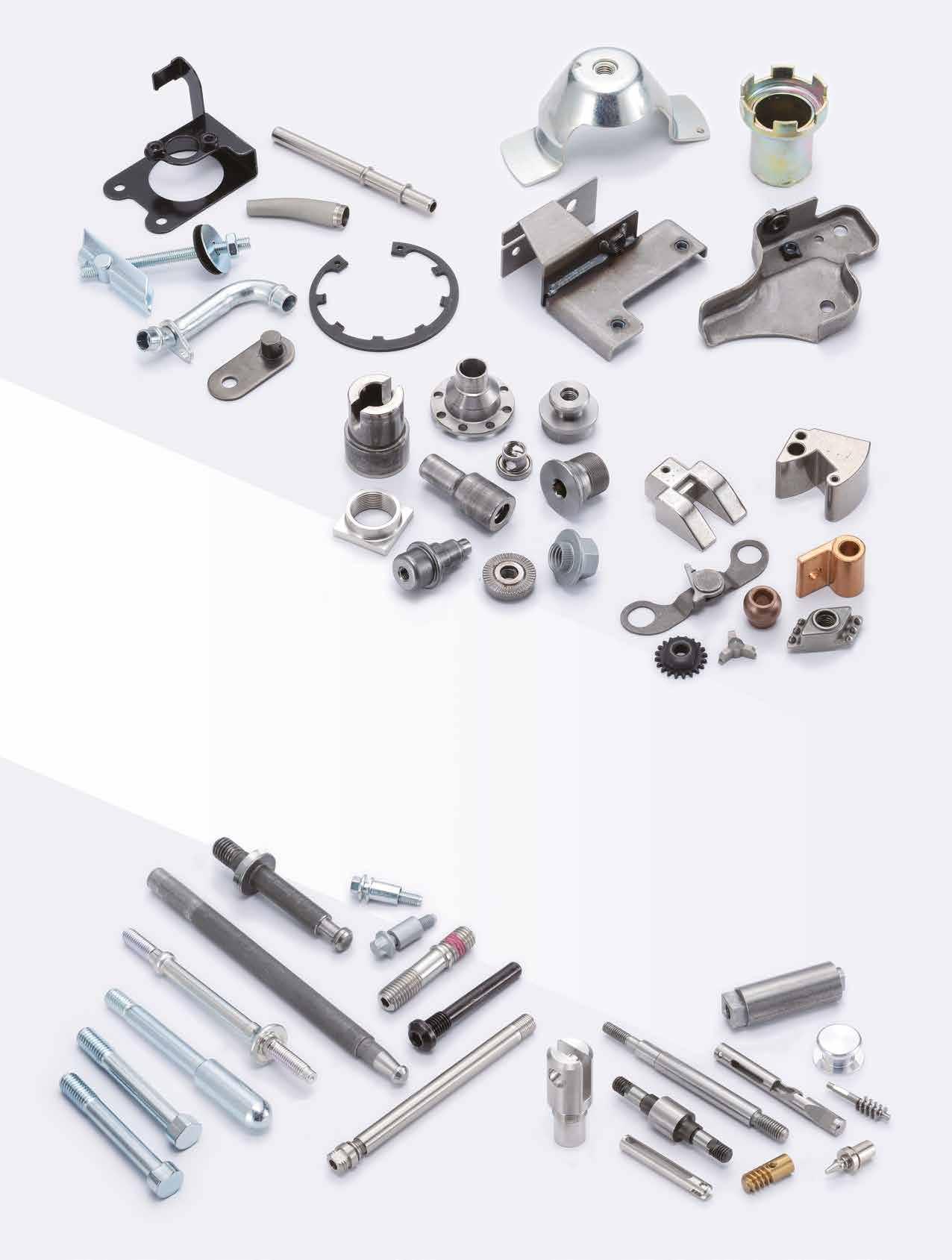



Ministry of Commerce of the People’s Republic of China announced on April 12 to launch a trade barrier investigation on China’s products that Taiwan banned from importing, which currently include minerals and chemicals, agricultural products and textiles. The investigation is expected to last for 9 months and in any unordinary circumstances can be extended to January 12 next year. If it does get extended, January 12, 2024, happens to be the day before the next presidential election of Taiwan. This will have a strong political implication. As pointed out by Taiwan press, the era where Taiwan benefits from the trade surplus from trading with China is likely to come to an end, and the end of the Cross-Straits Economic Cooperation Framework Agreement (ECFA) could ensue. China used to adopt a vague and non-investigative attitude toward Taiwan’s ban on the import of 2,455 products from China, but now the situation is different given the current heightened tensions in the Asia-Pacific region. With China’s own economy in a bad shape and the change of China’s ties with the U.S. and Taiwan, “scratch my back and I’ll scratch yours, or else it will be worse than just an eye for an eye” reflects the current attitude that China has with Taiwan.
Therefore, if China protests against Taiwan through the World Trade Organization (WTO), Taiwan may have to open its imports to products requested by China, based on the principle that both sides should comply with the rules of “mostfavored-nation treatment” and not discriminate against members. Taiwan currently prohibits the import of wire rods and fastener products from China. If China chooses to request allowing the import of China-made wire rods and fasteners into Taiwan, given that wires rods are the raw material for fasteners, what impact will this have on Taiwan’s fasteners?
Everything is up in the air before the announcement of the investigation results, so Taiwan must prepare for the unknown. Since Taiwan now prohibits the import of steel from China, the fastener industry in Taiwan is currently using wire rods supplied by Taiwan CSC; in other words, Taiwan CSC dominates the supply of raw materials for the fastener industry in Taiwan. In the past three years, Taiwan CSC has been increasing wire rod prices in response to the international status, and this leads to increased production costs product prices as well as reduced profit margins for fastener companies in Taiwan. If low-priced wire rods from China make its way into Taiwan in the future, Taiwan CSC will take the brunt of the competition, and there will be a drastic influence on the price competitiveness of Taiwan fastener products that are made of wire rods from Taiwan CSC. The scale of the influence will be profound.
In this regard, Fastener World talked with several anonymous Taiwanese fastener business owners over the phone. It turned out that their views were not entirely pessimistic. First let’s begin with the difficulties that Taiwan may face in the future. Taiwan’s annual domestic sales of 200,000 tons of fasteners will inevitably be subject to competition from fasteners imported from China, and the entire domestic sales channel will also change drastically, so those who run business mostly on selling fasteners domestically in Taiwan must make assessment and prepare ahead. On the other hand, those who use wire rods from Taiwan CSC to produce fasteners will have to add wire rods from China or other countries in the future. The pros and cons of competition in the forthcoming domestic and export markets are yet to be evaluated and delt with. Some of the owners on the phone were optimistic. They believed the way to respond is to use low-priced wire rods imported from China or other countries to produce fasteners that are just usable, up to quality and price competitive, while on the other hand use high quality wire rods from Taiwan CSC to produce fasteners for automotive, medical, aerospace and other applications with high added value and acceptable prices.
An owner proposed another solution. For years, Taiwan fastener industry has set up factories in Southeast Asia and many other countries to diversify risks and reduce production costs. If China’s wire rods enter Taiwan, an option for Taiwanese fastener companies is to separate their factory apart based on the source of wire rods. For example, assigning a specific plant to use only imported wire rods and another plant to use only wire rods from Taiwan CSC. This approach avoids quality problems caused by the mixing of different wires rods and minimizes investment and manufacturing costs for business owners.
Combining the views of multiple owners, our interpretation of the status quo is that Taiwan fastener industry will have to bite the bullets, get through it and grasp the opportunity in the midst of crisis. “The low-price wire rods from China is not entirely a crisis for Taiwan. We should see the advantages of China’s wire rods and turn it into a new business opportunity for us. The fastener industry in Taiwan has experienced various economic crises over the past few decades, and this is how we have been able to overcome the difficulties and survive until now.” Looking ahead, the trade barrier negotiation between Taiwan and China is bound to have a lot of variables and uncertainties with the tensions in Asia Pacific. What Taiwan should do now is to point them out and act accordingly.
by Dean Tseng, Fastener World



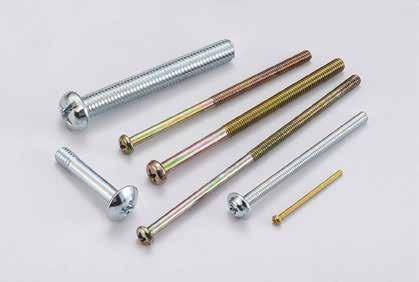





















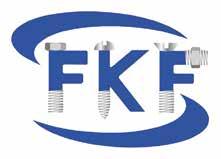
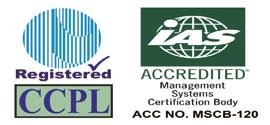
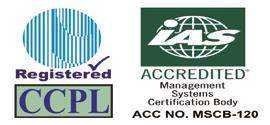



"Since the 1980s, when the former U.S. President Reagan and former British Prime Minister Margaret Thatcher advocated the free flow of capital, manpower, trade, and goods from the developed countries to the low-cost developing countries, the supply chain of industries was expanded from the developing countries to the whole world, thus the "global supply chain" took shape and the four countries led by China, India, Brazil, and Russia became the focus of global investment, that is, the BRICs, which started the operation mechanism of high-efficiency production and low-cost cooperation. Under the operation of the "global supply chain", the world has maintained low prices for 30 years and China has become the world's factory, with a large number of products sold from China to the world. China's GDP reached US$6 trillion in 2010, surpassing Japan to become the second largest economy after the United States, and the "global supply chain" ushered in the golden age of China's rapid economic growth.
The "anti-globalization" started in 2016, when the United Kingdom decided to leave the European Union in a referendum, and in 2018, when President Trump of the Republican Party of the United States launched a trade war, imposing high tariffs on U.S. products imported from China, and China also launched a high tariff countermeasure. The high import tariffs between
China and the U.S. have not been eliminated after the Liberal Party's President Biden takes office in 2021, but are still entangled and even getting worse. At the end of 2020, a new virus broke out in Wuhan, China, and the city was sealed off. The export of Chinese products was blocked overnight and the global supply chain was disrupted. Subsequently, due to the container regulation problem, the port of congestion and container shortage caused a disruption in the chain, accompanied by high freight rates on the globalization supply chain and again caused an impact. 2022 has become the last straw to break the camels’ back of globalization. On the one hand, Russia invaded Ukraine, Europe became a war zone, energy and food caused panic, and the world is facing the fear of a third world war again. On the other hand, the U.S. and China have escalated from a trade war to a technology war, with Chinese products such as Huawei, ZTE and Hikvision being banned by the U.S., and then from a technology war to a chip war, with the U.S. completely blocking chip manufacturers from selling their products to China in October 2022. The U.S. announced that all wafer manufacturers worldwide must obtain permission from the U.S. government to export their wafers to China, as long as they use U.S. production equipment or application software and patents. The U.S. also pushed TSMC, the world's largest wafer fabricator, to set up a production plant in the U.S. The "antiglobalization" is officially on the world stage.
On March 16, 2023, during the groundbreaking ceremony for TSMC's Arizona fab, founder Morris Chang said, "Globalization is almost dead, and free trade is almost dead.”In the mind of Chang, the "high efficiency" and "low cost" mindset of the global supply chain has been transformed into "national security", "risk control" and "prevention of chain breakage" under the high uncertainty of the threat of chain breakage and war. The author observes that since the supply chain disruption caused by Covid-19, the food and energy crisis caused by the war between Russia and Ukraine, and the increasingly tense economic conflict between China and the U.S., globalization has gradually become a bipolar development trend, with the U.S. and China at each end of the spectrum, the most obvious of which is the U.S.-China chip war. TSMC is forced to choose a side to the United States and will produce the most advanced three-nanometer process chips in Arizona. Because of the huge difference between the labor force in the U.S. and Taiwan, the cost of wafer production in the U.S. will be several times higher than that of Taiwan products. Imagine if TSMC's U.S. fab is mainly for core national industries such as aerospace, defense, and military. Under the dual conditions of national security and high profitability of the industry itself, a few times higher wafer manufacturing costs will not be a consideration at all.



In fact, since the U.S. launched a trade war against China, globalization has become a bipolar trend, just like the confrontation between the U.S. and the Soviet Union during the Cold War, and in the future, the U.S.-led free trade bloc will gradually form against the China-led national economic bloc in the international trade arena. After the outbreak of the RussianUkrainian war, the supply chains of raw materials, energy, food, etc. have been "cut off" and international procurement is no longer based only on economic factors, but "national security" and "supply chain risk management" are two other important factors that must be considered. Therefore, the globalized supply chain is bound to be adjusted, and any country must create a new supply chain under "national security" and "supply chain risk management". On March 6, 2023, Tesla, the leading electric vehicle manufacturer, announced that it will build a new factory in Nuevo Leon, Mexico, which will be the world's largest electric vehicle factory, covering nearly 4,200 acres, 20 times the size of its Shanghai factory in China, with an estimated production capacity of 20 million vehicles by 2030. Whether it is TSMC's U.S. plant or Tesla's plant in Mexico, both events have a common denominator, which is to bring the production base closer to the U.S. or U.S. neighboring countries. Therefore, in the future, the international supply chain will definitely be readjusted, and each country will form its own alliance and move closer to the two poles of China and the United States, and the world's supply chain ecosystem will be reshuffled.
In the author's opinion, the future "global supply chain" based on economic considerations will not disappear, but rather cooperate with the "regional supply chain" formed by neighboring countries, which is the model of "flexible globalization" and the new thinking of "flexible supply chain". Graph 1 below divides the economic and political considerations into four quadrants. The first quadrant is for industries with high political and economic considerations, such as the chip industry; the second quadrant is for industries with low political and high economic considerations, such as the necessities of life and metal fasteners; the third quadrant is for industries with low political and economic considerations, such as the domestic demand service industry; and the fourth quadrant is for industries with

high political and low economic considerations, such as the aerospace and military industries.
The first quadrant will be based on both economic and political considerations. For example, for wafer production, the country must have sufficient production capacity so that once foreign production stops, the domestic factories can be self-sufficient, and cost is no longer the main factor. The defense industry in the fourth quadrant of the same nature will not consider the cost factor at all, but rather national security, and will definitely keep the industry in the country. In terms of the wafer industry, the U.S. is in the first and fourth quadrants, where high production costs will not be a consideration and a certain amount of domestic production capacity must be maintained. The third quadrant is for industries with low political and economic considerations, such as domestic service industries, which are less likely to be affected by globalization. The second quadrant is the industry with low political consideration but high economic consideration, and the metal fastener industry belongs to this category, unless it is a very special fastener product, the general metal fastener product has high interoperability and low production threshold, and the main consideration is still economic factors, which are just price, freight, insurance, quality, and delivery time. This type of industry is less likely to be affected by political factors.
Since 2018, when the U.S. began to implement de-sinciziation, Taiwan's exports of metal fasteners (HS Code 7318) to the U.S. have increased year after year, accounting for 32.19% of the annual import value of the U.S. in 2018 and increasing significantly to 39.22% in 2022, an increase of 7.03%, while China accounted for 26.96% of the annual import value of the U.S. in 2018 and decreased significantly to 21.68% in 2022, a decline of 5.28%. It is worth observing that India also grew by 1.28% and Vietnam increased by 1.02% from 2018 to 2022, and the fastener industries in India and Vietnam also benefited from the dividends of de-Chineseization. In the article "Analysis of U.S. Steel Fastener Procurement Trends in 2022" in issue no. 193 of Fastener World Magazine, the author analyzed the percentage of steel fasteners exported to the U.S. from 2018 to
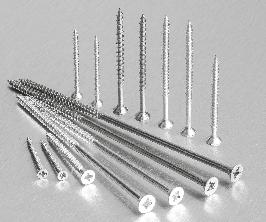






2021 from Mexico and Canada, two countries neighboring the U.S. What was more surprising at that time was that Canada and Mexico, two American countries belonging to the "U.S.-Mexico-Canada Agreement" with the U.S., did not gain any significant change in the trade war between China and the U.S, This article reorganizes THE PREMIER SOURCE OF FREE U.S. TRADE & TARIFF data as the following Table 1, the statistical comparison table of U.S. imports of steel fasteners (including customs value, insurance plus freight) from 2018 to 2022. Canada has improved from the 5th place in 2018 to the 4th place, surpassing the value of Germany's imports, and after removing insurance and freight costs as shown in Table 2 , the value of U.S. imports of steel fasteners (customs value) statistics for 2018 to 2022, Mexico also surpassed Thailand to advance to rank 9 th We found a phenomenon, the share of both Canada and Mexico after deducting customs and insurance fees is increased. Table 3 is the 2022 U.S. imports of steel fasteners (including Customs value, insurance fees and freight) statistics. Under the "U.S.-Mexico-Canada Agreement", Canada's freight, insurance and total value is 1.59%, while Mexico's is only 1.19%. Compared with Taiwan's 9.58% and China's 12.57%, the competitive difference is very obvious. The distance between each country and the U.S. affects the freight and insurance costs, and most importantly, the delivery time, and there is a high degree of uncertainty in long-distance transportation.





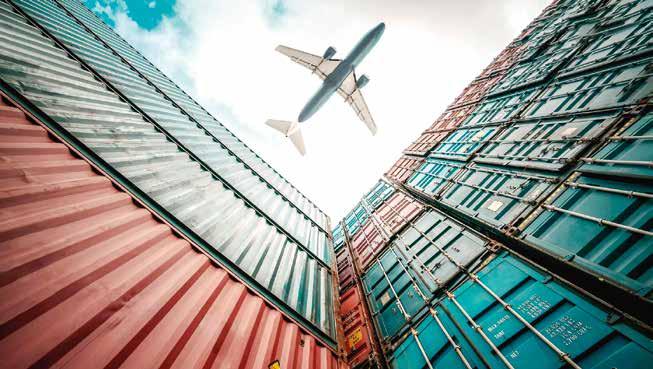
Under the high uncertainty, if the four quadrants of the industry differentiation diagram in Graph 1 are applied to the "flexible supply chain", the first quadrant will sacrifice some of the economic considerations in favor of political considerations, for example, chip production. The country must have enough capacity to produce, so that if foreign production stops, domestic factories can be self-sufficient, therefore, 20-30% of the capacity will be retained in the country or within the "regional supply chain", while 70%
will be supplied by the "global supply chain" based on economic considerations. The defense industry in the fourth quadrant will remain in the domestic market or within the "regional supply chain" to ensure national security. The third quadrant is for domestic service industries, which will also remain in the "regional supply chain. The second quadrant of industry is the industry with low political consideration but high economic consideration, the main consideration is just price, freight, premium, quality, delivery, etc. This type of industry is less affected by political factors. The metal fastener industry belongs to this category.

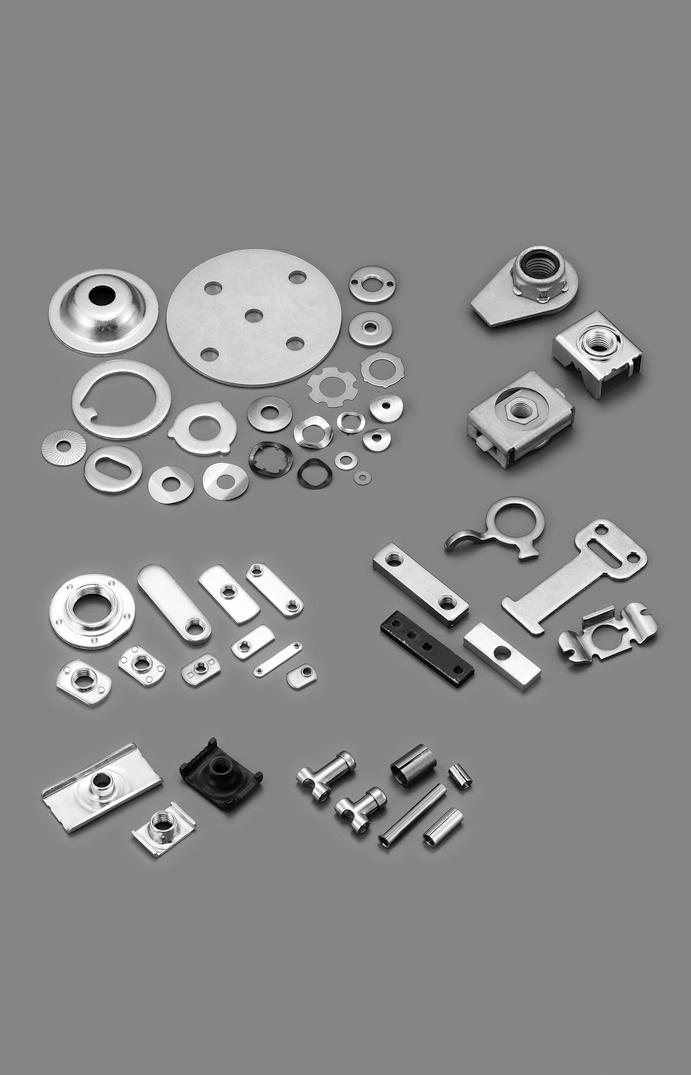
Under the consideration of supply chain disruption, some of the products may be retained in the "regional supply chain", while 80% to 90% of the products will still adopt the "global supply chain" model and continue to be purchased based on price and efficiency. Inferred from this model, the U.S. metal fastener procurement will retain 10% to 20% in the regional supply chain. In 2022, Canada shared 4.61% of the U.S. metal fastener imports and Mexico shared 2.20% (both totaling 6.81%). These two countries still have a lot of room for development. Canada can replace Europe's high-priced metal fasteners and Mexico can replace the general low-priced metal fasteners, causing some impact on Taiwan’s fastener exports to the United States.

As geopolitics increasingly affects global free trade, multinational companies and governments are alarmed that investment layout can no longer be considered as in the past, only in the lower cost or more profitable areas of production, and then under the consideration of "flexible supply chain", world trade will be different industries, that is, industries belonging to different quadrants will adopt a proportional distribution between the "global supply chain" and "regional supply chain" for procurement. The strategy is also called "flexible supply chain" thinking. The freight and insurance costs of Taiwan's metal fasteners exported to the U.S. accounted for 9.58% of its sales. Compared to 12.57% in China, there is still a 2.98% surplus advantage; compared to India, there is also a 3.78% gap. As long as Taiwan metal fasteners can maintain a certain quality and price, it is expected that the sales volume in the U.S. can still retain its glory for several years. On the other hand, it is suggested that Taiwan fastener manufacturers should observe the investment opportunities in Mexico. Among the countries importing into the United States, Mexico is the region with the lowest transportation and insurance costs, plus Mexico is a tariff-preferring country under the "U.S.-Mexico-Canada Agreement" and has low land and labor costs. In recent years, the world's major automobile manufacturers have made new investments in Mexico. Under the huge demand increase, the metal fastener industry in Mexico is expected to rise rapidly, whether Taiwan fasteners should consider increasing investment in Mexico will be an important decision for business strategy.

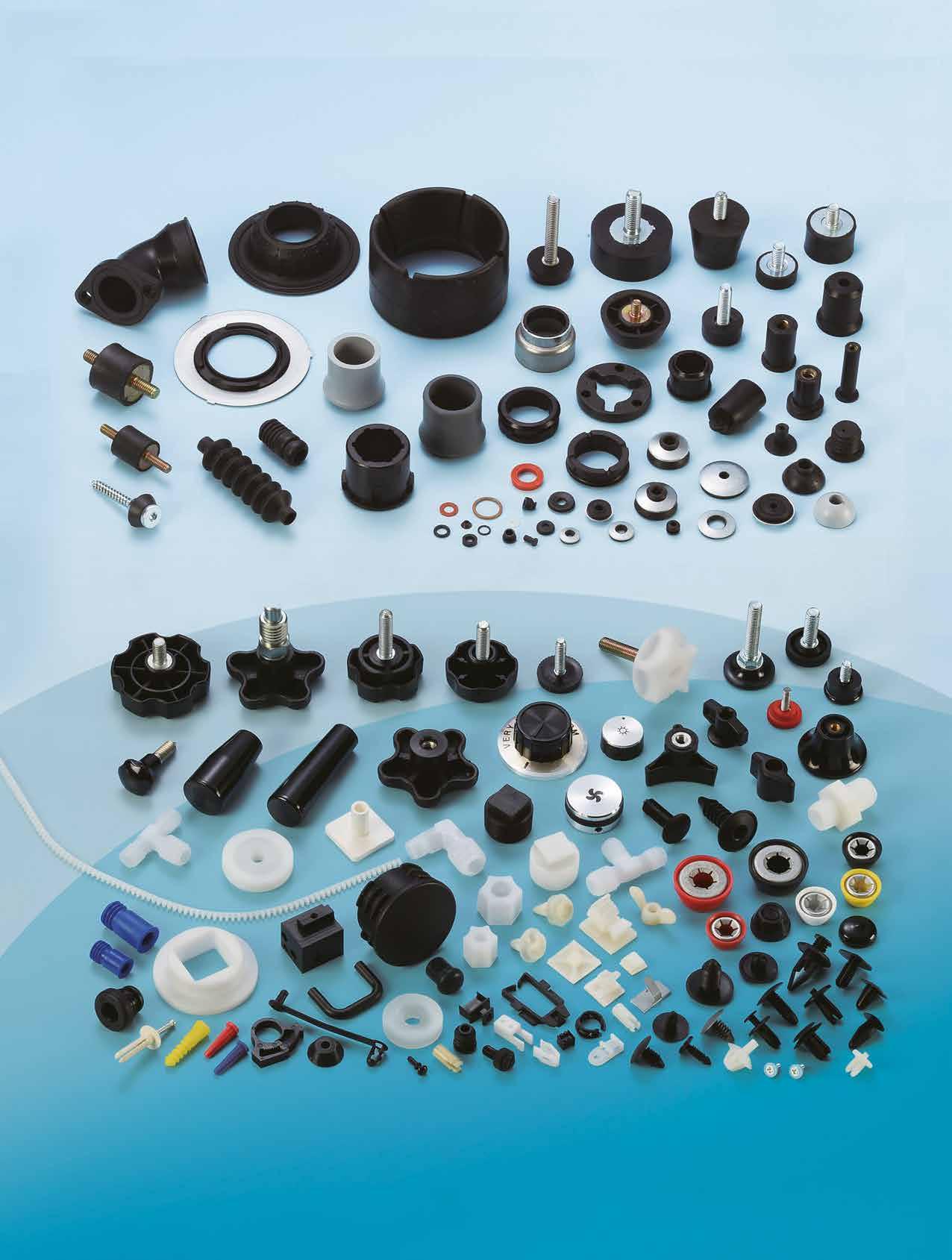


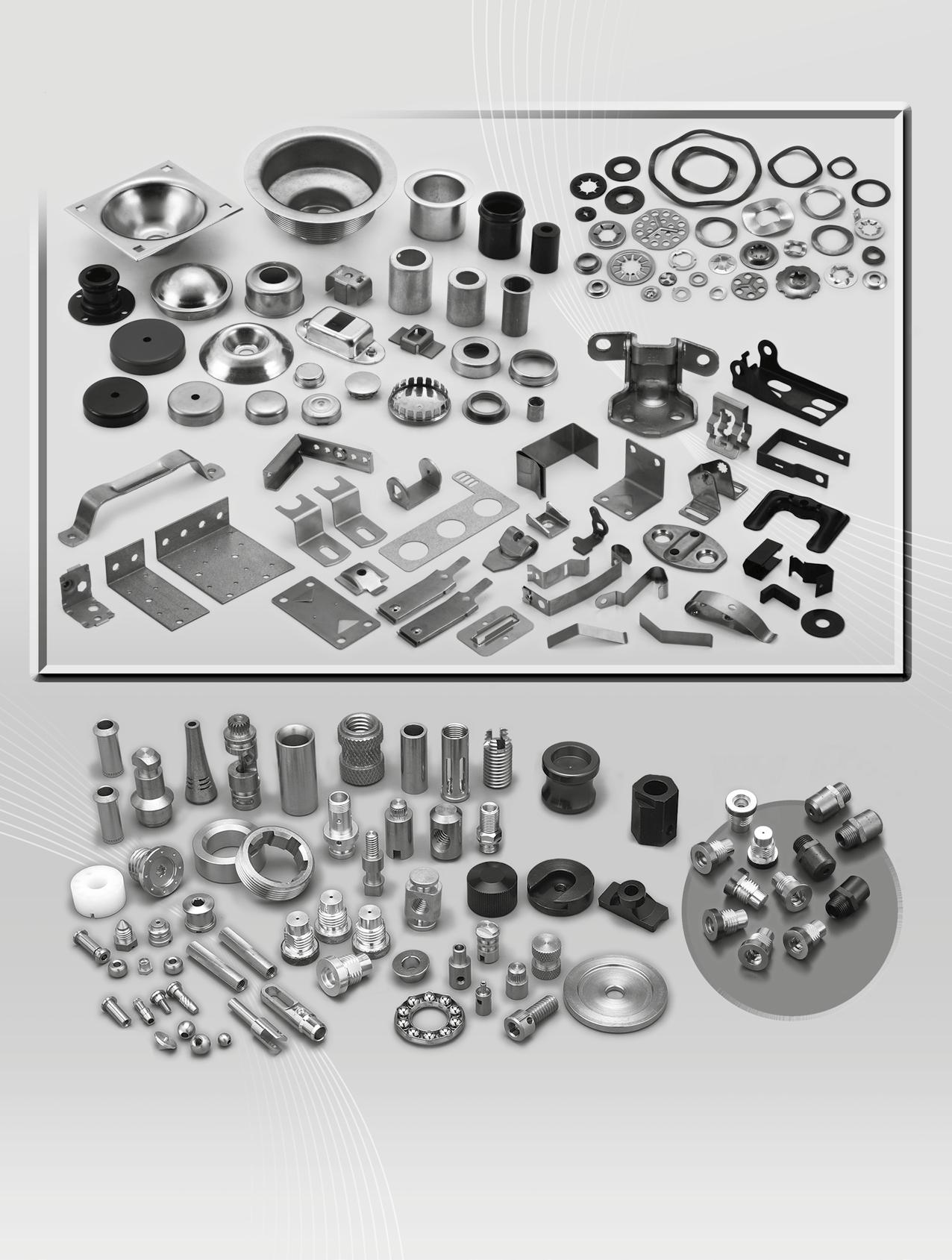




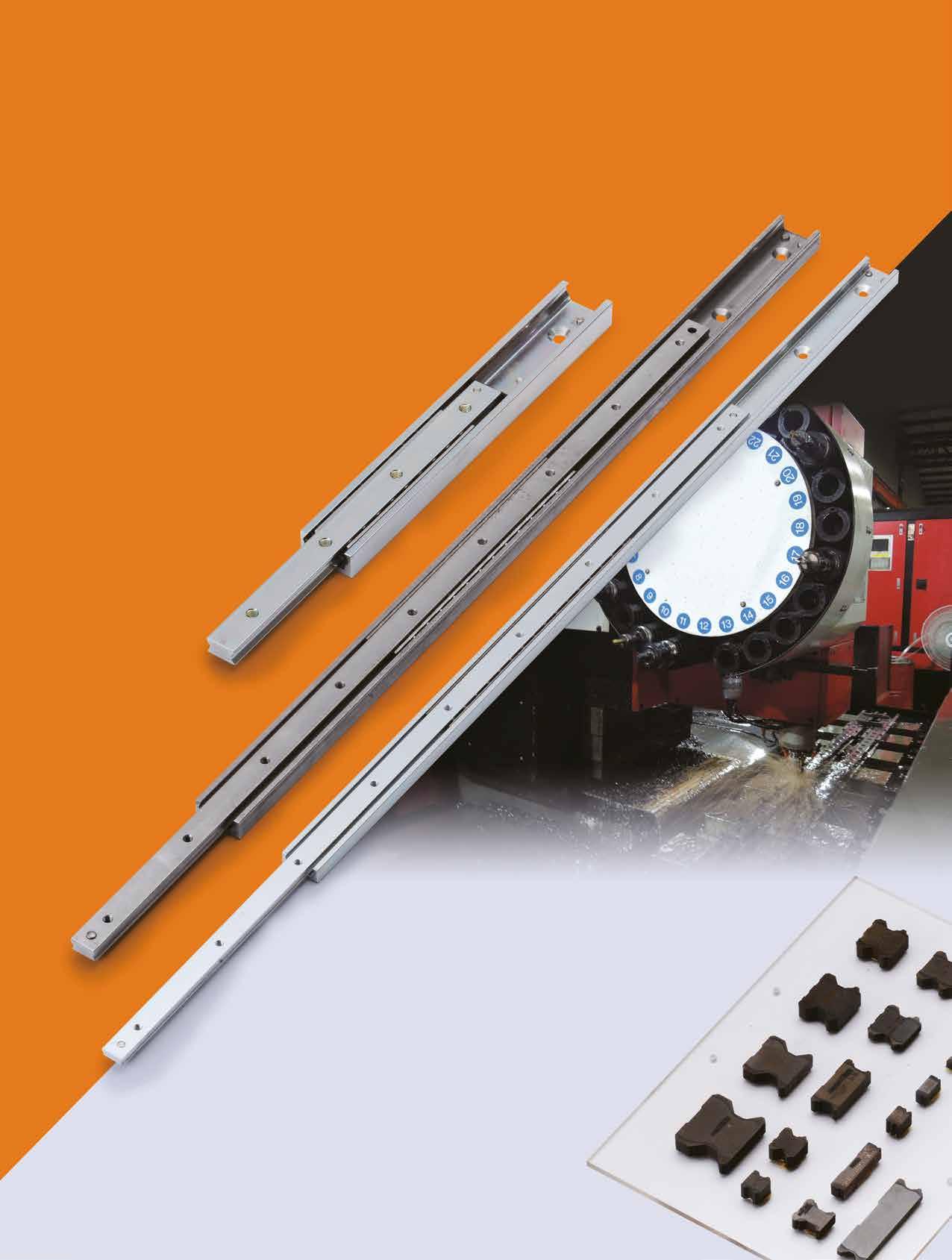



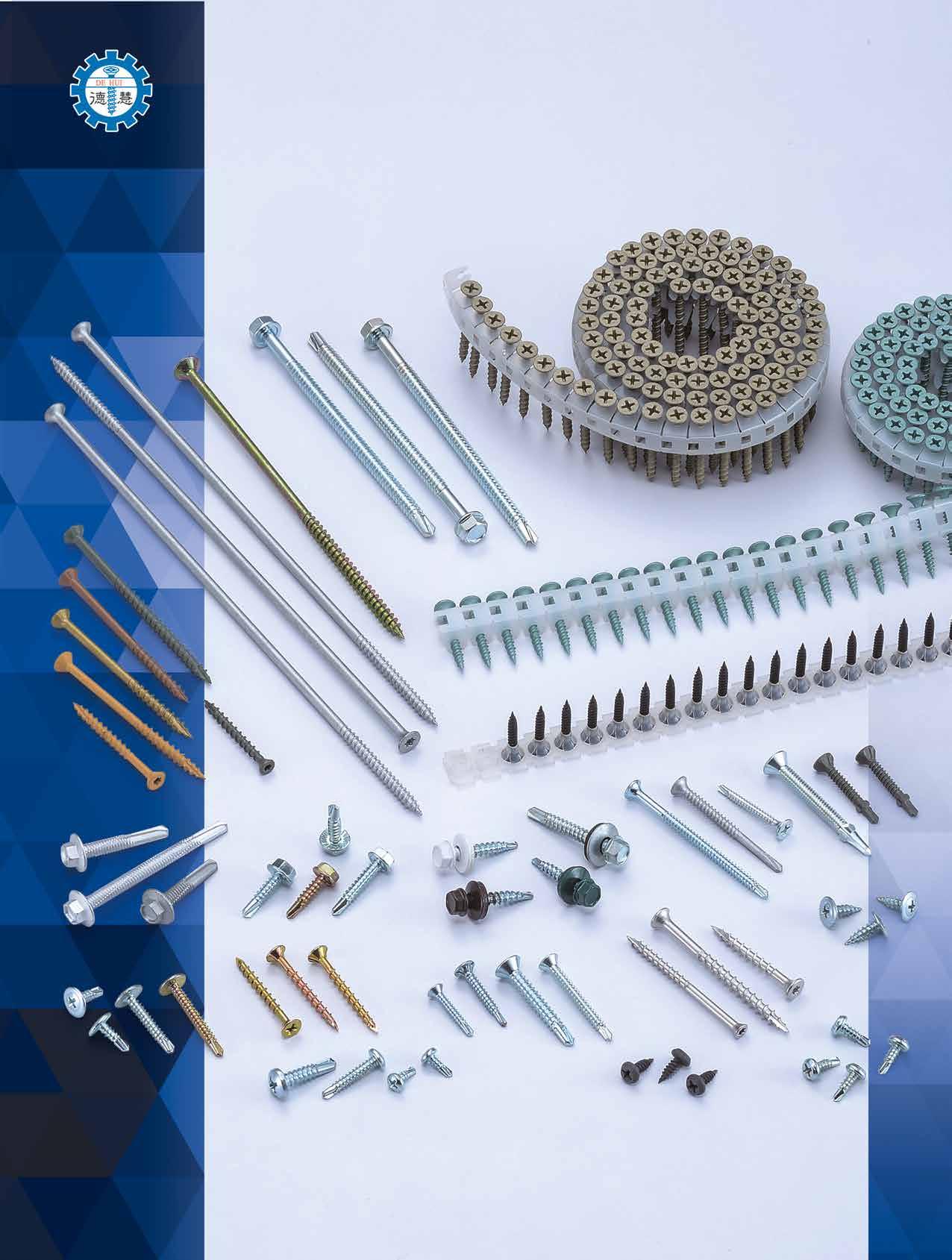








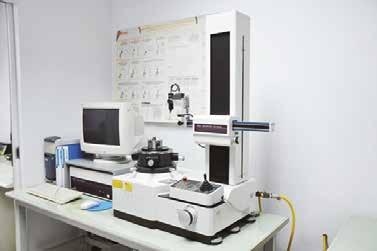



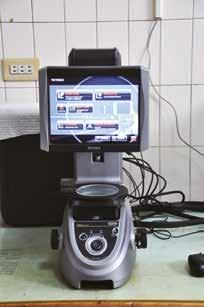














In a challenging environment, and despite the impact of the strong Swiss Franc, Bossard Group achieved new records in all three of its market regions. Sales in the financial year 2022 amounted to CHF1.15 billion, against the previous year’s CHF995.1 million, which corresponds to organic growth of 15% in local currency.
All regions performed well in the fourth quarter, when sales increased by 13.3% in local currency to CHF276.2 million against the previous year’s CHF250.8 million. The broad-based growth for Bossard, which began in the fourth quarter of 2020, continued in the fourth quarter of 2022. America posted impressive doubledigit growth, while in Europe, growth slowed significantly. The situation in Asia was impacted by the lifting of Covid-19 restrictions in China and the resulting wave of infections, although strong global demand only led to a slight improvement of the tense situation on the procurement market. In addition to Bossard’s sustained high-delivery capability, the group also experienced a stronger trend toward nearshoring and an increased demand for Smart Factory Assembly (SFA) solutions.
In Europe, Bossard recorded fourth quarter sales growth of 0.8% to CHF141.2 million (in local currency: +6.1%). Demand remained at a consistently high level despite continuing geopolitical tensions and their resulting challenges. In an environment marked by inflation and a shortage of skilled labour, Bossard’s smart factory services drew even more attention from customers. However, the strong Swiss franc did slow down growth.
In the final quarter of 2022, sales in America increased by 43.5% to CHF80.2 million (in local currency: +37.3%). The positive business development was driven by dynamic economic growth. In the electromobility sector, exciting commercial vehicle projects were implemented. Asia achieved sales in the fourth quarter at the level similar to the previous year (in local currency: +5.4%). After two years of double-digit growth, the high base of the prior year was evident. In December, China’s lifting of Covid-19 restrictions caused a wave of infections, and the resulting production downtime impacted the industrial environment, negatively. Although Bossard was able to ensure the best possible delivery capability to its customers, the situation in China continues to cause uncertainty.
In the 2022 financial year, SFS Group generated gross sales of CHF 2.746 billion (€2.77 billion), which corresponds to strong growth of 45.1%. Good organic growth was generated in most end markets and regions throughout the year as a whole. The consolidation of Hoffmann in May caused sales at SFS to soar.
Development differed between the areas of application within the Engineered Components segment. Overall, sales followed a steady trend over the course of the year and culminated in good growth of 5.4%.
Driven by the continuing dynamic market environment in the construction industry, the Fastening Systems segment posted another impressive 12.2% increase in sales during the reporting year. The two divisions’ successful market position and robust supply chains enabled them to take advantage of steady demand in most areas of application and serve their customers reliably.
The Distribution & Logistics segment set a decisive course to achieve forward looking development during the 2022 financial year. With the inclusion of Hoffmann, the segment implemented a leap in growth of 212.8%. Both divisions generated attractive organic growth.
Despite multiple challenges in the global environment, Böllhoff Group closed the year 2022 with a new sales record – achieving annual sales of €783 million, corresponding to an increase of 16.6% over the previous year (2021: €671 million).
While demand from the automotive industry continued to be more restrained than before the start of the Covid-19 pandemic, the general industry increasingly relied on joining technology from Böllhoff. Compared to 2021, annual sales with customers from general industry increased by 15% to now around €369 million in total. Böllhoff also achieved significant growth in joining solutions for the aerospace sector. Here, sales have more than doubled – from around €10 million in 2021 to €21 million in 2022.
In recent years, the company fully acquired two French manufacturers of special fasteners for the aerospace industry: Frenchbased SNEP SA in June 2021 and Gillis Aerospace from Dieupentale, France, in June 2022.
Breaking down by region, Böllhoff grew in all parts of the world in 2022. The strong upward trend of previous years continued, particularly in Asia and in the Americas across all customer segments. In Asia, sales rose by 23% to now €96 million (2021: €78 million). In the Americas, Böllhoff was even able to increase sales by 41% to €108 million (2021: around €77 million).

Amid a volatile environment, Hilti Group increased sales by 10% in local currencies in 2022. This resulted in sales of more than CHF 6.3 billion (€6.27 billion) and corresponds to an increase of 6.2% in Swiss francs.
The strongest sales growth, 16.5% in local currencies, was recorded by the Americas region. Europe achieved an increase of 9.6%. In Asia Pacific, growth was 8.2%, significantly slowed by the impact of Covid-19 restrictions in China. As expected, the war in Ukraine and the corresponding sanctions against Russia resulted in a decline in sales for the Eastern Europe/Middle East/ Africa region (-2.3%).
The environment is expected to remain volatile given continued inflation and increasing interest rates, ongoing geopolitical tensions and a softening economic growth. Benefiting from significant investments in market reach and innovation, Hilti Group expects a high single-digit growth, in local currencies, for 2023.
SurTec International GmbH has acquired omniTECHNIK Mikroverkapselungs GmbH. The transaction also includes the acquisition of all the shares in the joint venture Precote USA LLC, by SurTec subsidiary SurTec Inc. SurTec is a division of Freudenberg Chemical Specialities GmbH (FCS). The acquisition contract lays the foundations for the two companies to be integrated in the SurTec Group in the future.
As an innovative family company, omniTECHNIK Mikroverkapselungs GmbH has developed into a market leader in the field of reactive and non-reactive coatings for fasteners since its foundation over 40 years ago. The company’s success on the world market is based on extensive knowledge and experience, first-class application technology consulting and outstanding products. Close cooperation with sales and consultancy partners over many years is a further key to the company’s success. With its precote® product range, the company covers a wide variety of thread coating applications throughout the world in the automotive, machinery, aerospace, and domestic appliance industries, among other sectors.
“Our acquisitions focus on companies that can help in reinforcing our market position in highly specialised segments. Through the acquisition of omniTECHNIK we will be able to significantly expand and continue the strategic development of our existing business in chemical surface technology,” added Dr Jörg Matthias Großmann, CFO of FCS.
“The business success of omniTECHNIK is based on helping industrial customers achieve greater success with high performance products and outstanding service,” said Heinrich Kuhn-Weiss, proprietor of omniTECHNIK GmbH. “We always wanted to be among the top suppliers of thread locking products and have succeeded in reaching this position over the past 40 years or more. As part of SurTec, it will be easier for us to grasp the market potential for innovative coating technologies even more effectively. As the representative of the family proprietors, it was important for me to find a partner that sees itself as a strategic investor with long-term orientation.”
Fasteners specialist Herag has been taken over by A.S.F. Fischer B.V in an acquisition involving a 100% share transfer. Both companies operate as specialists in fasteners within the Dutch construction market and are known for their conceptual market approach with leading A-brands, own brands and private labels.
Herag has been a leading family business in the field of fasteners, such as bolts, nuts, screws and plugs, since 1966. Bert Kieberl, director at Herag, commented: “Our customers, suppliers and employees are in good hands with A.S.F. Fischer.” His positive words were echoed by Arnoud Booij, CEO of ASF Fischer, who indicated that the acquisition fits perfectly into the growth strategy of the organisation. “We would like to remain a solid, stable and future-oriented partner for our relations in the future. With this acquisition, we strengthen our position in the market and broaden our brand and product portfolio. Through the acquisition, customers of both parties benefit from the synergy benefits in both logistics and commercial areas.”

A.S.F Fischer B.V was founded in 1945 and is known for Woodies®, InterDynamics®, QlinQ®, Steelies®, Grabber ®, Fis®Profi and Perfectmate® brands.
The transfer of all Herag activities to A.S.F. Fischer was scheduled for completion in mid-February, with a full integration of the two companies’ sales, purchasing and logistics activities.
The Hobotec screw from Eurotec, which can be used to create wood-to-wood connections easily and safely, is now available in black for special kinds of façade designs.
Eurotec explains that the Hobotec screw is particularly useful where there is an increased risk of cracking or splitting – because the milled ribs facilitate countersinking in different types of wood. A new type of thread and innovative drilling tip also ensure a tight fit, as well as high pull-out resistance. The Hobotec screw is ideal for use in facade, deck and fence construction and is especially suitable for brittle woods.
Eurotec points out that the Hobotec screw in black is ideally suited for fastening black (carbonised) facade planks, which are proving popular within façade designs. Carbonised wood is wood that has been charred on the surface. This treatment originates from Japan. It involves heat treating wood under controlled conditions so that it carbonises (chars) in its upper layer, thus changing its properties.
Since this process seals the pores of the wood, it becomes weather-resistant, requires no additional protective coating and can be installed outdoors without any treatment at all. However, if the intention is to use carbonised wood indoors, the burnt surface must first be treated with a special coating to prevent it from rubbing off.

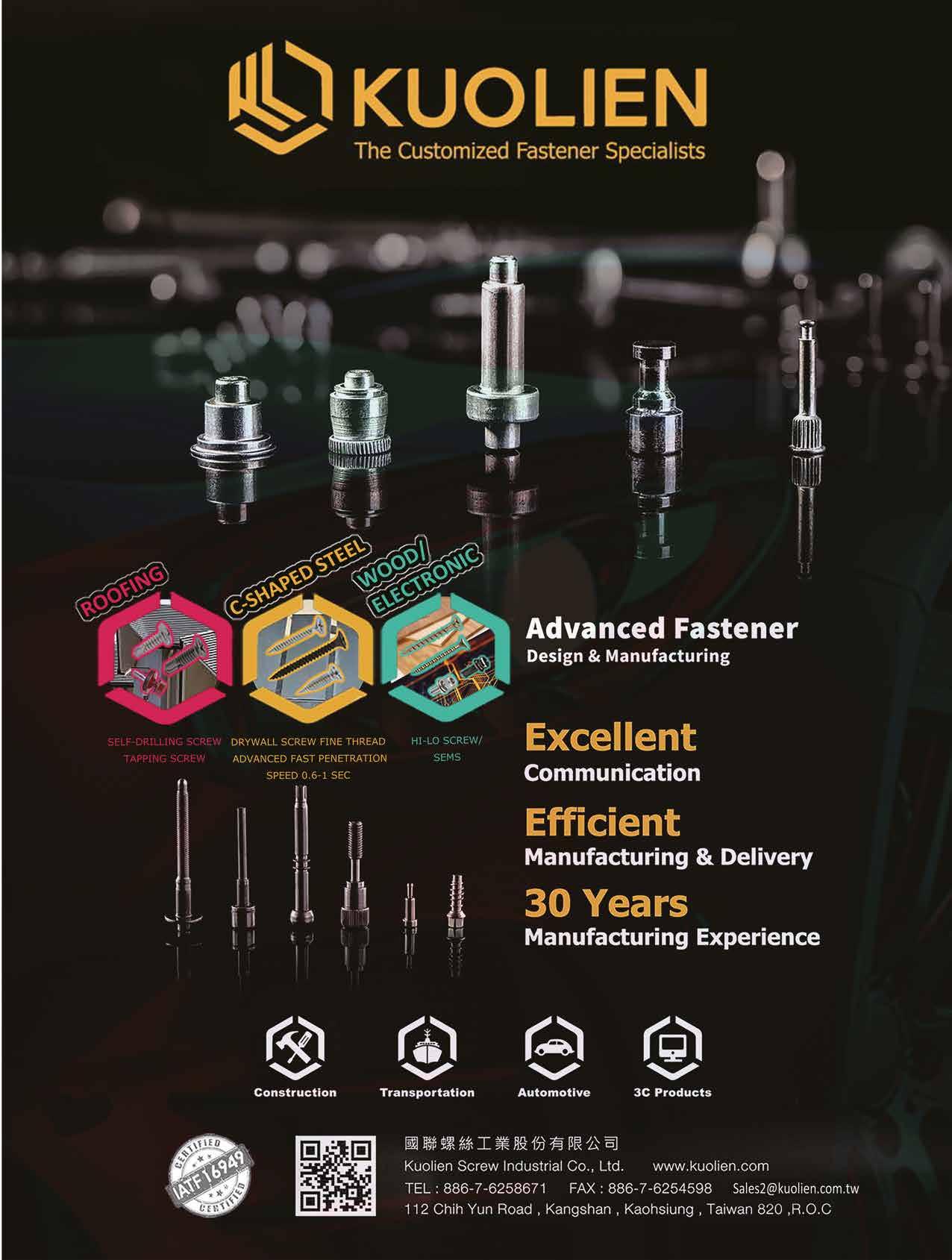


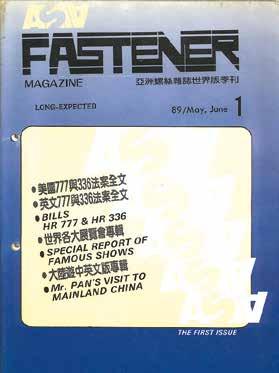





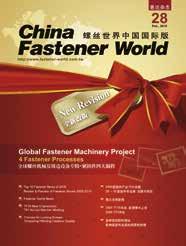



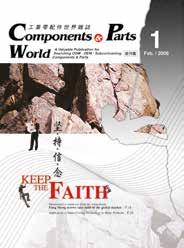


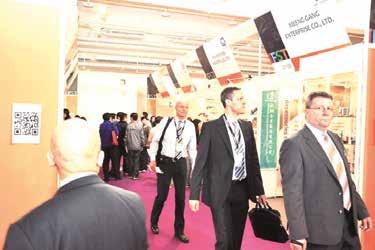

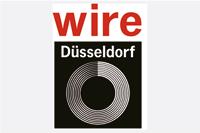













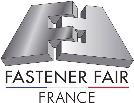












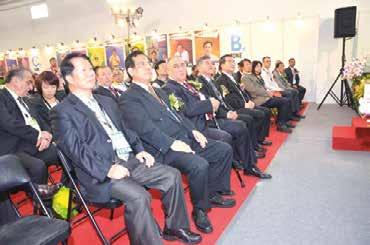


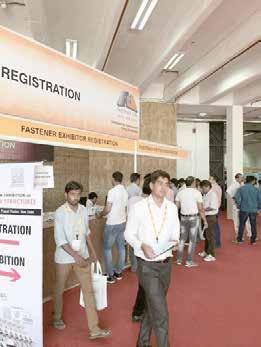





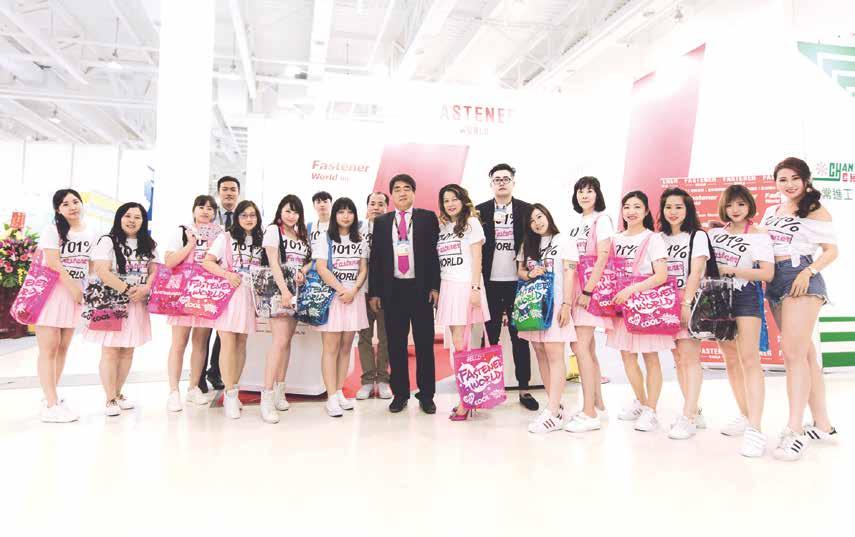
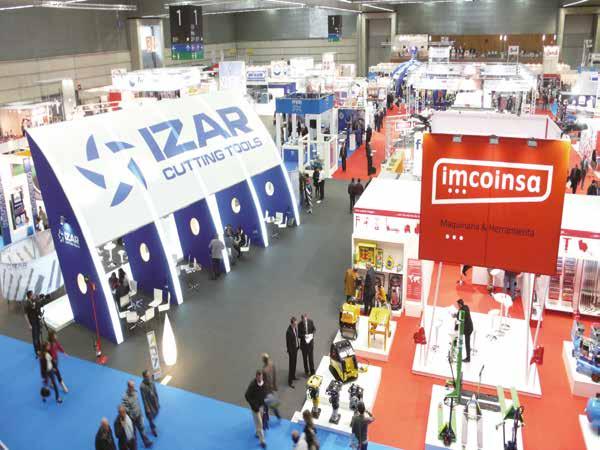






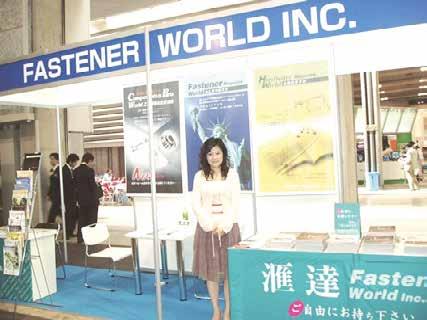





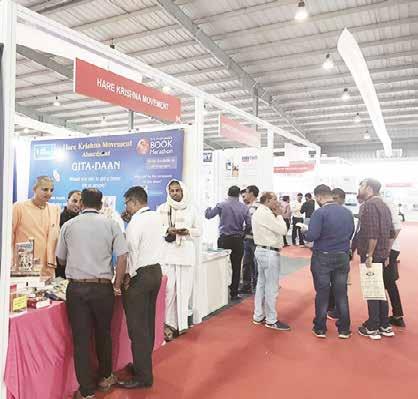



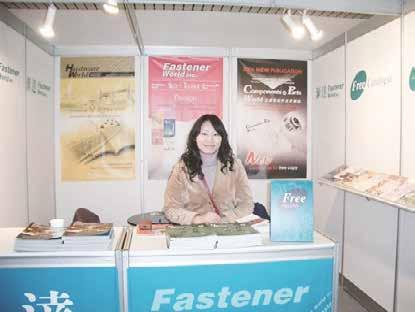
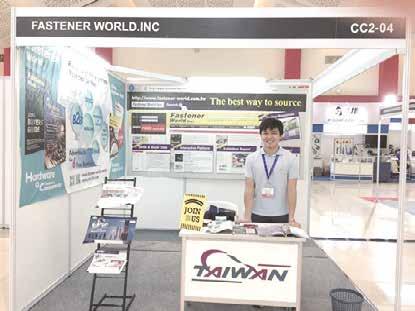




The current energy crisis forces us to look for ways to reduce consumption in all aspects of industry. This article is an attempt to find possible sources for energy savings in the field of screw production. The biggest consumer in this area is heat treatment. If we realize that heating to a quenching temperature of approximately 820°C globally requires a gigantic amount of heat energy, then the raised question is justified.

Because screws are produced on a mass scale, continuous hardening furnaces with a protective atmosphere are best suited for their heat treatment. At the same time, the entire volume of the parts is heated to the hardening temperature and immediately cooled sharply in the oil so that the martensitic structure in the entire volume (Fig. 1 left) forms. In specific cases, surface hardening is also used either by saturating the surface of the parts with carbon (cementation) - Fig. 1 in the middle, or by induction hardening (Fig. 1 – right, and Fig. 2). Fig. 1 also provides information on the course of microhardness. It is clear from this figure that in volume hardening the hardness is uniform throughout the entire volume of the part, whereas in surface hardening the hardness gradually decreases to the unhardened core.
Since only the austenite structure is able to absorb sufficient amounts of carbon, the temperature during cementation (carburizing) is above 900 °C with a carburizing time of several hours. Carburization depths of 0.1 to about 5 mm can be achieved economically with this process. Since carburizing is a diffusion-controlled process, the carburizing times can be reduced by higher temperatures, but at the same time with the risk of coarse grain formation increasing.

After this short introduction, we can proceed with calculating the consumption of heat energy Q for individual methods of heat treatment. At the outset, it should be noted that the calculation is loaded with certain errors; however, it is suitable for the purposes of this topic.
Example by full-volume hardening (left in Fig. 1):
Heat capacity formula:
Q=m x c x Δt
Where: m = mass [kg], c=specific heat capacity (for steel 420 [J/kg x°C], Δt=temperature difference [°C]
m=0,05 kg, Δt=840 - 20 = 820°C and c=420 x J/kg x °C
Q=0.05×420×820=17220 J
Approximate calculation by induction hardening (on the right in Fig. 1 and Fig. 2):

Δt=840 - 20 = 820°C and c=420 x J/kg x °C
p - specific heat capacity = 7750kg/m3, r1 = 5mm, r2 =4mm, h = 80mm (height of the body)
Q = p x c x Δt
Q = p x Π x h(r12 - r22) x c x Δt
Q = 7750 x 3,14 x 0,08(0,0052 - 0,0042) x 420 x 820
Q ≈ 6037J
Fig. 3 Functional part of a component
Compared to other methods of hardening, induction hardening has the advantage that it allows partial hardening of the functional part of the component (Fig. 3). The thickness of the hardened layer can be regulated either by the size of the gap between the inductor and the surface of the component or by choice of time.

As for cementation, its advantage is the possibility of using cheaper low-carbon steels. However, it is not suitable for mass production, because continuous cementation furnaces do not exist.

The submitted contribution is an indication of the possibility of saving energy in heat treatment of screws. Of course, it cannot be considered as a universal method. Induction surface hardening is only suitable for selected types, e.g. for self-tapping screws. Unfortunately, it is not yet applicable for massused classical screws with a metric thread as a DIN 931 or DIN 912.
Article by: Jozef Dominik & Dominik MakukaCopyright owned by Fastener World

Q: I was reviewing the Socket Cap Screw standard ASME B18.3 and came across the note, “For plated or unplated screws, acceptability shall be based upon System 22, ASME B1.3”- what does it mean that we should accept the threads to System 22?
A:Hopefully this does not get too complicated. ASME B1.1 and 1.13M define and describe the dimensions and form of inch and metric screw threads. Essentially, both internal and external threads can be completely defined by 10 different characteristics. ASME B1.2 provides guidance regarding the appropriate gages to verify those characteristics. Finally, ASME B1.3 is the ASME standard that describes the gaging systems that can be used to accept inch and metric threads types UN, UNR,UNJ,M, and MJ. All these standards work together to provide a cohesive set of instructions on what one must do to properly make and then gage (or verify) the threads they just made.
Understanding that these documents work together, let’s go back to the question, “what is System 22”? ASME B1.3 defines different approaches that one can take to verify thread quality. Now remember, there are ten different characteristics we could check. Doing so is possible but usually not feasible, as it takes a lot of time and access to some special, often quite costly, gages. Additionally, not every characteristic is usually necessary to be evaluated, but only those characteristics that are most important to the end use. So, the authors of ASME B1.3 developed three (3) different approaches that can be taken to verify a thread depending on how critical the thread quality is to the application and how deeply one wants to look at it. The three different approaches are identified as “systems”: System 21, System 22, and System 23.
System 21 is easily the most common thread gaging practice employed worldwide. It is simple and quick, which makes it particularly attractive to high volume fastener manufacturing. System 21 is defined as “providing interchangeable assembly with functional size inspection/evaluation at the maximum material limit within the length of standard gauging elements, and also inspection/evaluation of characteristics identified as NOT GO functional diameters…” That is a mouthful and probably confusing to some readers, so let’s unpack it… As the standard says the selection of the gaging is a function of the characteristics important to end use. In this case, it describes a method that evaluates whether the thread should assemble when applied in the field. For this, the method essentially defines the use of attribute gages. These are commonly referred to as GO/NOT GO gages and simply verify that the characteristic falls within the acceptable specified zone. So, for System 21, external threads are evaluated with a GO gage for maximum material, NOT GO gage for Functional Diameter, and a caliper or micrometer for Major Diameter. Internal threads are evaluated with a GO gage for maximum material,
NOT GO gage for Functional Diameter, and usually a GO/NOT GO unthreaded pin gage for the Minor Diameter.
System 22 is generally employed when more precision is desired in evaluating the thread. It adds a variable evaluation of the Pitch Diameter. Therefore, to evaluate an external thread, one checks the Pitch Diameter, Functional Diameter, and Major Diameter. This would typically be accomplished with some combination of Indicating gage for Pitch Diameter, indicating gage or NOT GO ring gage for the Functional Diameter, and caliper or micrometer for the Major Diameter. Internal threads are a similar story with evaluation by an indicating gage for the Pitch Diameter, indicating or NOT GO gage for the Functional Diameter, and usually a GO/NOT GO unthreaded pin gage for the Minor Diameter.
System 23 requires evaluation of all characteristics. Since this is such a monumental task, this system is intended to only be employed for experimentation or, perhaps, validation.
Q: If I don’t have an indicating gage can I just use an attribute gage to validate the Pitch Diameter for System 22?
A:
No, as explained above, System 22 requires a variable measurement for the Pitch Diameter over the length of one full thread. This is not possible with either a threaded ring gage or threaded plug gage. If you did not have an indicating gage you could investigate ASME B1.2 for other acceptable gage methods such as measuring over pins. However, other methods may be much more time consuming to execute.
Q: What are the proper gages to use for evaluating a plated Class 2A externally threaded part?
A: Without going into great detail, “Class 2” tells us the intended fit for the part. Class 2 is the most common fit class for inch externally threaded
Dr. Fastener: Thread gaging is one of those subjects that is often misunderstood and misapplied. Following are some common questions and answers related to this subject.
fasteners and contains what is known as the “Accommodation”. This means that before plating the maximum Pitch Diameter tolerance does not come all the way to the Basic Pitch Diameter for whatever size part is being evaluated. This is intentional and, if properly executed, allows the manufacturer to lay down a layer of plating or coating without exceeding the Basic Pitch Diameter. However, the plating or coating does increase the Pitch Diameter so that the GO gage for before plating is no longer valid after plating. As such, when evaluating Class 2A parts to System 21, the proper gaging method is to evaluate using a GO and NOT GO 2A ring gage for before plated parts and a 3A GO ring gage and 2A NOT GO ring gage for after plated parts. Interestingly, several years ago, the former Technical Director of the IFI and fastener expert, Joe Greenslade, shared with me that misunderstanding of this transition between proper gages was the most frequently asked technical question that he had to routinely field.
Q: How far do you have to engage the threaded GO gage?
Q: What is the difference between W and X tolerances?
A: W tolerances represent the highest grade of accuracy and workmanship and are intended for setting gages. X tolerances are larger than W tolerances and are intended for product inspection gages. Unless the specification or customer specifies things differently, all thread gages that directly check parts use the X tolerance scheme.
Q: How often should we be calibrating Ring Gages?
A:
ASME B1.2 instructs that for externally threaded product the GO ring gage must pass over the “entire length of the threaded portion” and that for internally threaded product the GO threaded plug gage must “pass through the full threaded length of the product.”
Q: The standard says that the gages must “freely” pass over or through the length of the part. What does “freely” mean?
A: There is no single definitive answer to this question. Calibration frequency is usually a function of a number of variables including how much a gage is used, the environment it is used in, and how prone it is to “wander” from calibration. Some gages are calibrated as frequently as every day while others may go every year or two. If the ring gage is used a lot, a prudent calibration period may be every six months while gages used less frequently can probably be on an annual cycle.
Remember that regardless of the specified calibration frequency there are times that warrant immediate attention. Any time a gage is dropped or damaged it should be evaluated to determine if it needs recalibration. Likewise, if there is any question about whether it is working properly, it should be evaluated and recalibrated if necessary.
A:
This is one of those areas that the standards sort of let us down, for how does one really interpret “freely”? In other words, one person might accept some degree of resistance in the gage as “freely” as long as it is still turning while another person might interpret any resistance as not “freely” turning. I believe this is one of those instances where you must use some common sense. On one hand, the standard does not say “free spinning” which suggests no resistance, while on the other hand, clearly if you have to use all of your might and your face is turning red trying to get the gage to advance, it is not freely turning. But there is probably some middle ground where feeling a little resistance while the gage is still freely advancing is acceptable. If in doubt, perhaps engaging a third party or simply having the conversation with your customer will resolve the issue.
A: This is a common problem and one recognized throughout the industry. As a result the standards organizations have either issued standards specific to this problem or included this in a section of a quality standard allowing the evaluator to apply a low level of torque to the gage. There are specified torque values that follow a defined equation for each diameter size. If the obstruction is a nick, the torque will be enough to advance the gage past it but not enough to compromise the subsequent installation behavior of the screw. Standards that address this issue include ISO 6157-3, Din 276 Part 19, IFI 166/566, and ASTM F788/788M.
A: As the name suggests a NOT GO gage is not supposed to advance through a part. ASME B1.2 instructs that the NOT GO ring gage or threaded plug gage is supposed to advance no more than three full rotations. Anything past that is considered a failure.
Q: Is it difficult to calibrate a ring gage?
A: Many organizations choose to send their gages out for calibration to a third-party expert that specializes in gage calibration. Their rational is often that it is simpler to let the experts do it and to not have to stock all the setting plugs. However, other organizations choose to do this in-house and train individuals to become specialists. IFI-301 goes through the procedure for calibrating threaded ring gages.
Q: If my acceptable gage method passes a part and my customer’s accepted gage method fails the part- should the parts be rejected?
A: According to ASME B1.2 if one party uses a gage and method that are acceptable under ASME B1.2 and ASME B1.3 and finds the part acceptable and a second party, also using an acceptable gage and method, find the part unacceptable- the parts are to be accepted.
Dr Fastener: In conclusion, thread gaging is one of those areas that is often confusing to individuals. Individuals tasked with executing and defending evaluations should become familiar with the thread gaging standards, such as ASME B1.2 and 1.3. These standards are a wealth of information and address the issues covered in the questions above and more.


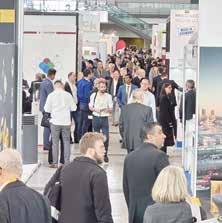


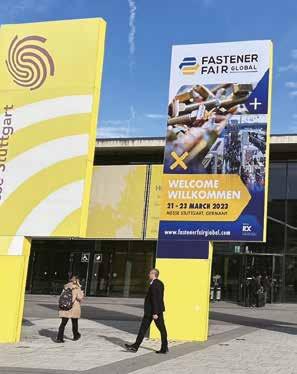
As a major manufacturing city, Germany has huge potential for its industrial and automotive industries. Market research institutions have released the latest forecast that the global market scale of industrial fasteners will reach USD 87.3 billion by 2026, while automotive fasteners will reach USD 24.2 billion in 2028, of which Germany will occupy a significant share. Against the background of high demand prospects, the world waited four years and finally witnessed the 9th edition of Fastener Fair Global returning to Messe Stuttgart for a threeday period from March 21-23, 2023, attracting global fastener exhibitors and buyers to exchange and discuss collaboration opportunities.
The organizer's booth sales agent, Fastener World brought nearly 150 Taiwanese exhibitors to the event to gain more business opportunities for the Taiwanese industry to export to the European market. Several Taiwanese fastener companies told Fastener World that the lineup of Taiwan exhibitors in the 2023 edition was a huge force that could not be underestimated. The reason why Taiwan attached great importance to the return of this show was because, for one thing, Taiwan saw the potential of this show in prompting buyers to place orders; for another, Taiwan looked to grasp a wave of orders from this show in spring to replenish order books and to begin shipping worldwide from the second half of 2023. Additionally, the newly designed Taiwan Pavilion was particularly eyecatching and stood out in the venue, attracting inquiries from many local and overseas buyers and visitors.

During the show, Fastener World provided visitors with matchmaking and other collaboration opportunities, and recommended many suppliers' quality products and technologies through publications. One thing of interest was that the Fastener World’s staff took a group photo with one of the visitors in exotic clothes and screw hat, creating a joyful interaction.
According to the latest data from the organizer's press release issued on March 30 (German time), the three-day show attracted around 1,000 exhibitors from 46 countries and used 23,230 square meters of venue space in total (1,000 square meters more than the previous edition) in Halls 1/3/5/7. Exhibitors were mainly from Germany, Italy, Spain, Turkey, UK, the Netherlands, Poland, France, Taiwan, China and India. This year, with the lifting of lockdown in various countries, overseas buyers are eager to start replenishing their stock in large quantities. The 2023 edition brought an inpour of both people and purchase orders. Almost 11,000 trade visitors from 83 countries visited the Fair and they were mostly distributors, manufacturers, and suppliers from Germany, Italy, UK, Poland, France, the Netherlands, Switzerland, Spain, Czech Republic, Austria, and Belgium.
Fastener Fair Global showcased a wide range of products, including raw materials (wire rods), finished/semi-finished fasteners, tooling, machines and equipment, secondary processing, surface treatment, heat treatment, electroplating and baking, warehousing, and related products and services. Every year, the show attracted numerous visitors from the construction, automotive, aerospace, marine, electronics, light and heavy engineering, energy, communication technology, metal products, furniture manufacturing, and sanitary ware industries.
The next edition of Fastener Fair Global will take place again at Messe Stuttgart on March 25-27, 2025.


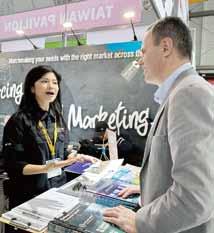






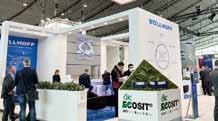


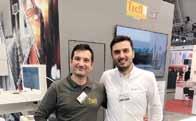







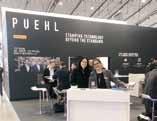

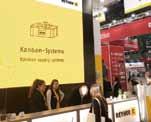
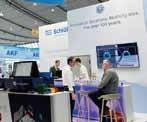


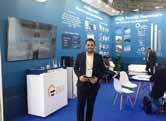


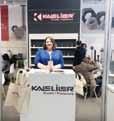


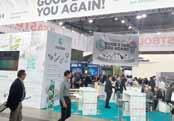

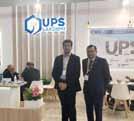

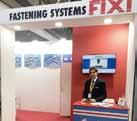
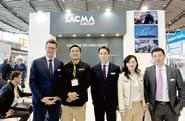






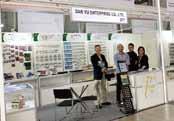

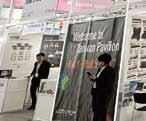

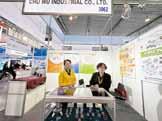
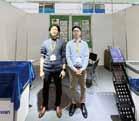
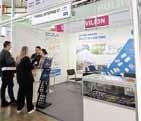
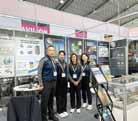











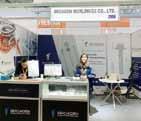

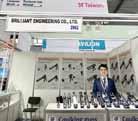
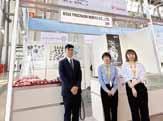
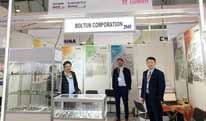




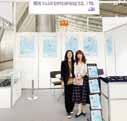




 Aimreach
Aimreach
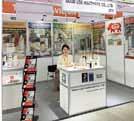
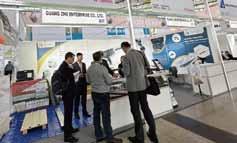
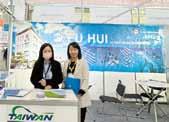
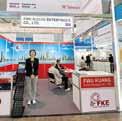


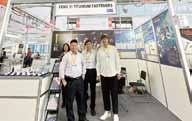

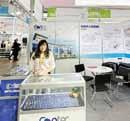






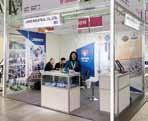
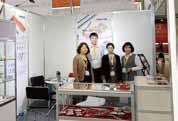



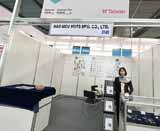


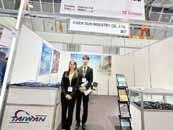
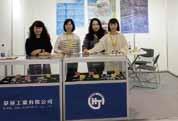


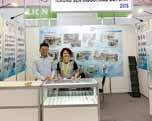




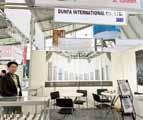



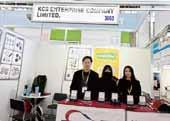


 Good Use Hardware Guang Zhe
Fu Hui Fwu Kuang Gofast
Fast Asia Feng Yi
Fong Prean
Fontec Screws Fratom Fastech
J.C. Grand Jackway
J. T Fasteners
Jau Yeou
Ji Li Deng Joker
K. Ticho
Kai Shyun
Kao Wein
Hsin Ho
Hao Mou Home Soon
Homeyu Hsien Sun
Huang Jing
Hwa Hsing
Hwally Products
Hsiung Jen
Hsin Yu
Desirable Diing Sen
Dra-Goon Dunfa Evereon Fang Sheng
Katsuhana KCS
Key-Use
KOT Uniontek Kuang Tai
Good Use Hardware Guang Zhe
Fu Hui Fwu Kuang Gofast
Fast Asia Feng Yi
Fong Prean
Fontec Screws Fratom Fastech
J.C. Grand Jackway
J. T Fasteners
Jau Yeou
Ji Li Deng Joker
K. Ticho
Kai Shyun
Kao Wein
Hsin Ho
Hao Mou Home Soon
Homeyu Hsien Sun
Huang Jing
Hwa Hsing
Hwally Products
Hsiung Jen
Hsin Yu
Desirable Diing Sen
Dra-Goon Dunfa Evereon Fang Sheng
Katsuhana KCS
Key-Use
KOT Uniontek Kuang Tai


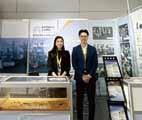



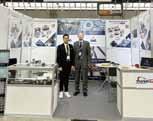












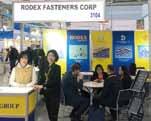
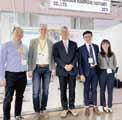


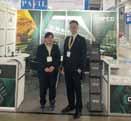


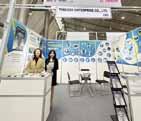










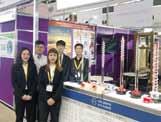



 Spec Products Special Rivets
Spring Lake Standing Industrial Steel Stone
Shen Chou Shiang Ging
Shin Chun
Shin Jaan Soon Port
S&T Fastening San Yung
Sen Chang Sheh Fung & Sheh Kai
Screwtech
Pro Power Ray Fu Rong Yih Jiang Rexlen
Rodex Riu Precision
NCG Tools Nova. Fastener OFCO
Oriental Multiple Vietnam PATTA Pingood
Master United Masterpiece Hardware Maudle
Metal Fasteners Midas
Longhwa Loyal & Birch
Luna's Light Major Industries Mao Chuan
Kwantex Kuo Hsian Leaderwing Linkwell Long I
Spec Products Special Rivets
Spring Lake Standing Industrial Steel Stone
Shen Chou Shiang Ging
Shin Chun
Shin Jaan Soon Port
S&T Fastening San Yung
Sen Chang Sheh Fung & Sheh Kai
Screwtech
Pro Power Ray Fu Rong Yih Jiang Rexlen
Rodex Riu Precision
NCG Tools Nova. Fastener OFCO
Oriental Multiple Vietnam PATTA Pingood
Master United Masterpiece Hardware Maudle
Metal Fasteners Midas
Longhwa Loyal & Birch
Luna's Light Major Industries Mao Chuan
Kwantex Kuo Hsian Leaderwing Linkwell Long I
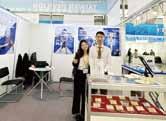

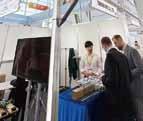
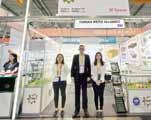







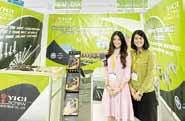



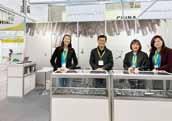









 Sun Through Super DPD
Taiwan CMC
Taiwan Metiz Alliance
Taiwan Shan Yin
Yun Chan Zi Ea Zyh Yin
Your Choice Yow Chern Yoang Ming Yiciscrew
Y Y. Cable Yang Yi Technology
Yeswin Machinery Wyser
TFTA TIFI Vertex Vertigo Forming Solutions
Wa Tai
We Power Wei In Whirlpower Wingtone Wan Iuan
Sun Through Super DPD
Taiwan CMC
Taiwan Metiz Alliance
Taiwan Shan Yin
Yun Chan Zi Ea Zyh Yin
Your Choice Yow Chern Yoang Ming Yiciscrew
Y Y. Cable Yang Yi Technology
Yeswin Machinery Wyser
TFTA TIFI Vertex Vertigo Forming Solutions
Wa Tai
We Power Wei In Whirlpower Wingtone Wan Iuan






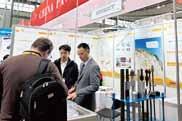
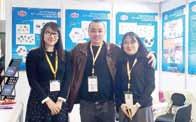

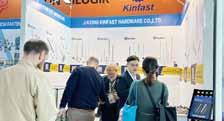

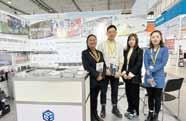
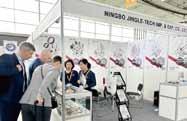

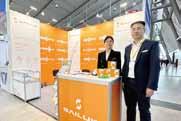


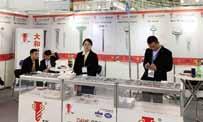






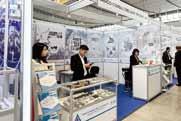

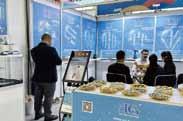
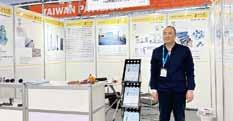
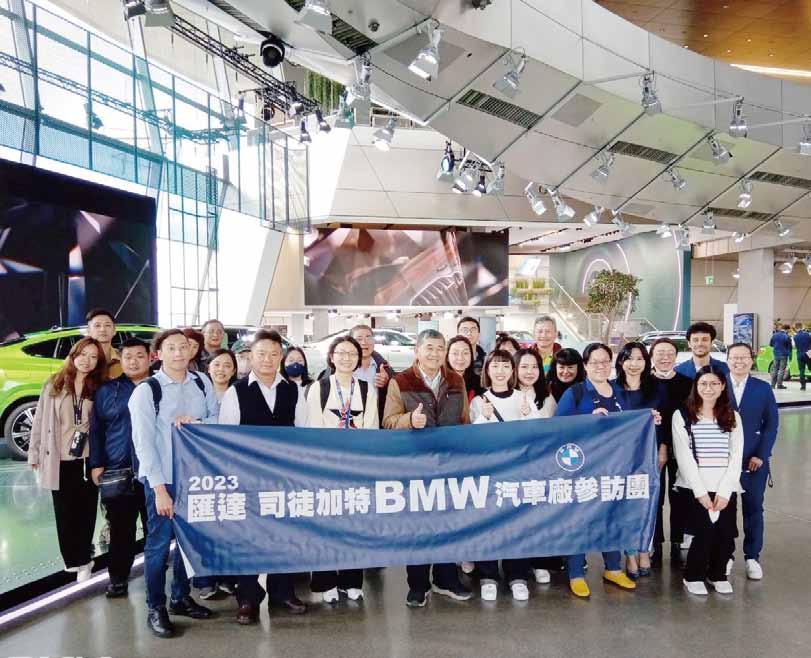























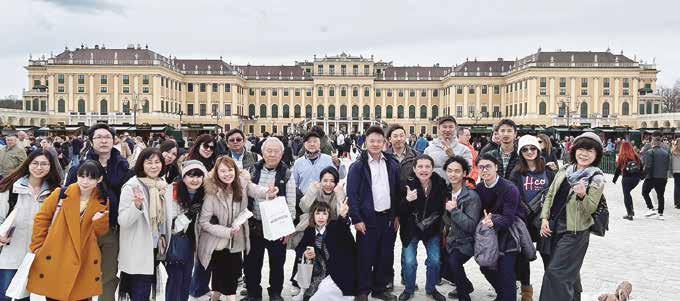







Fastener Fair USA is back and better than ever! The highly anticipated trade show is taking place at Music City Center in Nashville, TN from May 16-17, 2023, and it's not one to be missed. This year's event promises to be bigger and better than ever, with new exhibitors, industry-leading products, and a range of educational and networking opportunities.
Fastener Fair USA is a unique opportunity for members of the entire fastener supply chain to connect, network, and learn about the latest trends, products, and technologies in the industry. The event features nearly 200 exhibitors showcasing a wide range of products and services, including fasteners, adhesives, assembly tools, and more.
At Fastener Fair USA, attendees will have the chance to:

• Meet face-to-face with leading fastener manufacturers, distributors, and suppliers
• Discover the latest products and technologies in the industry
• Attend educational seminars and workshops presented by industry experts
• Network with peers, competitors, and potential customers
• Learn about trends and emerging markets in the fastener industry
• Gain insight into strategies for improving efficiency, productivity, and profitability
An additional highlight of this year's Fastener Fair USA is the annual Fastening 101 Conference presented by the Fastener Training Institute, taking place on May 15. This conference is designed to provide attendees with a comprehensive overview of the fastening industry, covering topics such as covers manufacturing processes, consensus standards, quality control, product and design fundamentals, and more. Whether you're new to the industry or a seasoned veteran, the Fastening 101 Conference is a must-attend event.
Another exciting feature of the Fastener Fair USA is the opening night Networking Party happening on May 16 at 5:30 pm at the Country Music Hall of Fame. This event provides attendees with the opportunity to network with peers, meet industry leaders, and make valuable connections. The opening night Networking Party will feature live music by Tommy O’Keeffe, an open bar, hors d’oeuvres, and private touring access to the museum exhibits.
"We are thrilled to be hosting the Fastener Fair USA again this year in vibrant Nashville, TN," said Bob Chiricosta, Event Director of Fastener Fair USA. "Our team has been working to ensure that this year's event is the best one yet. With new exhibitors, educational opportunities, and networking events, we are confident that attendees will leave with new knowledge, new connections, and new ideas."
The Fastener Fair USA is the ultimate destination for anyone involved in the fastener community. Don't miss this opportunity to connect with the industry's top players and stay ahead of the curve!
To enhance the technological and commercial communion between China Fastener Industry and global colleagues, International Fastener Show China (IFS China), which is organized by China General Machine Components Industry Association and China Fastener Industry Association and implemented by Shanghai Afastener Exhibition Co., Ltd. and Hannover Milano Fairs Shanghai Ltd., is a three-day exhibition held at Shanghai World Expo Exhibition & Convention Center during May 22-24, 2023.
IFS China covers 42,000 square meters with Hall 1 and Hall 2 in SWEECC Shanghai. In 2023, there are 800+ high quality exhibitors covering fastener machinery, fastener materials, moulds, consumption goods, fastener products. By making full use of resources, influence and buyer data of organization committee, we can facilitate the internationalization, profession and branding of this exhibition.
Part of branded exhibitor are below:
Branded Fastener: Shanghai High Strength Bolt Factory Co., Ltd., China Aviation Industry Standard Parts Manufacturing Co., Ltd., CHUNYU, Changshu Standard Parts Factory Co., Ltd., Zhejiang Zhapu Technology Co., Ltd., Jiangsu Yongyi
Stainless Steel Fastener: Tongming, Aozhan, TENGLONG GROUP, Dainan Group, LianHe ChuangLi, Zhejiang Lifeng
High Strength Bolt and Nut: Shanghai High Bolt, Eagle Metal, Weiye, Hongmao, Donggang, Jinan Star Fastener, Shanghai Shenguang, Dingxi High Strength, Anhui Goodlink
Auto Fastener: Shanghai Shang Biao Automotive Fasteners Co., Ltd., Shandong Gaoqiang, ZHEJIANG QUNZHAN, Wenzhou Meiquan, Handan Runhe, Zhejiang Ruijin
Rivet Nut and rivet: Guangqingchang, Shanghai Fast-Fix Rivet Corp., Jiexi Xili, Meishan CRRC Fastening System Co., Ltd., Ningbo Shengxin, Hebei Fuyang, Jiangsu Awd, Hunan Lianggang, Jingjiang Kaiqiang, Drywall Screw and Drilling Screw: Wuxi S-Fix, Sanmu Metal , Alfirste Hardware, Ningbo Exact, Handan Tonghe, Dongguan Honghui, Tianjin Kroda, SHENGDIOU
Washer and Clamp: Dongbo, Kaixu, RuiAn Longchang, Pinghu Kangchengda, Ruian Shengdong, Hengchang, Ruisu Fastener, Construction Fastener: Handan Tedun fastener, Handan Gusen, Handan Deli, Handan Yanzhao, Handan Changfa
Overseas Machinery: Nedschroef, Sacma, Carlo Salvi, National Machinery, Sakamura, Nakashimada Ronderson, Marposs, Aerospace Fastener Technologies, 3View
Local Machinery: Sijin, Haixing, Dongrui, Chunzu, Boyu, Guozhi,Yeswin, JIASHAN MDS, Jiancai Machinery, Ansheng, Teli, Jinggu, Baotuo, Lik Tin, Yuhai Machine, Zhejiang Shengrui, Shanghai Yi Ming, Hwa I Precision, Dongguan JIN.CHI, YONG JIN, Ningbo Tianxiang
Packaging Machinery: Dongguan An Xiang, Kunshan Pinyi, Shanghai Feiy, Wenzhou Zhongxin, Suzhou Feiyue, Wenzhou Zhengkun, Wenzhou Gongyou, Changzhou Fengda, Foucs Machinery, Shanghai Kunbu
Inspection equipment / Measuring devices: Marposs, UNITECHO Technology, YuanTuo Automation, Quanying, Dongguan Yachuang, Openex Intelligence, TAIMECO, Zhejiang Keli Automation, True Precision
Materials: Baosteel, Masteel, Xingtai Iron and Steel, Ansteel Group, Tenglong, DAIDO STEEL, Huanghua Jujin, KUNSHAN GREATLOY
Mould and Consumption Goods :TAIHO TOOL, Zhejiang Wanying Henghui, Suzhou Jungu, TAICANG SINOMA, Taiya Rdp Mould, Japan Hardware, Taicang Minghao, MKU Chemical Trade, Wenzhou Zhongya, Dongguan Donglong, SALA, Suzhou Taizhan Mould, Taicang Xuhui
Heat Treatment: TAINAN CHIN CHANG, JIA SHAN SAN YUNG, SUMON, Jianshan Aolike, Jiaxing Zhongmao, Jiaxing Jinchi Zhongmao, Jiaxing Jinchi, Suzhou Xinling, Hangzhou Hangshen, YANGZHOU CANAAN, Suzhou Jinkai, HKBY THERMO ENGINEERING
In the corresponding period, there are a series of activities related to fastener industry, including Theme Lecture of Fastener Technologies Exchange will also be arranged on site, inviting industrial specialists to discuss and analyze the developing trend of Chinese and global fastener industry. It is believed that IFS China will be built as one of the up-most and professional exhibitions for China Fastener Industry to welcome the global peers. It shall be a honor for us to meet friends at IFS China 2023 in Shanghai.


Venue: Hall 1.1, Hall 2.1 and North Hall of Shanghai National Exhibition and Convention Center
About the show: Shanghai Shangsou Exhibition Co., Ltd. continues to build a professional exhibition in the fastening industry with the spirit of "craftsmanship" and a new positioning as an innovative platform for the global high-end fastening industry. Over the past twelve years, with the support and enthusiastic participation of major associations, international and domestic well-known fastener manufacturers, and equipment/wire/mold manufacturers, Fastener Expo Shanghai has become one of the top three fastener exhibitions in the world and an industry benchmark for the fastener industry in China and the world.
Exhibition Scale:
Exhibitors:800+ Visitors:10,000+ Venue space area:56,000 square meters
50 concurrent meetings 40 global purchasers for matchmaking 100 associations and partnering media
Comprehensive online and offline exhibition promotion
Scope of Exhibits:
Fastening Equipment
Fastener production equipment, fastener materials, fastener molds and consumables, inspection equipment, packaging equipment and other related production technologies and equipment, etc.
Finished Fasteners
Standard fasteners, non-standard fasteners, automotive fasteners, structural steel fasteners, wind power fasteners, electronic and electrical fasteners and other fastening products for professional applications, etc.
Official website: https://fastenerexpo.cn/

2023
The event will take place from 6 to 8 June at the Bilbao Exhibition Centre.
The main players in the Smart Manufacturing value chain will gather from 6 to 8 June at +INDUSTRY 2023, the major industrial platform, which will simultaneously host the ADDIT3D, BeDIGITAL, MAINTENACE, PUMPS&VALVES and SUBCONTRATACIÓN trade fairs, as well as the specific section focused on the industrial supplies and hardware sector. So far, more than 489 exhibitor companies have confirmed their participation in the event.

+INDUSTRY will feature sectorised displays of the main innovations and advances in manufacturing processes and supplies for industry, digitalisation, and additive manufacturing, as well as equipment for industrial processes and the latest products and technologies for maintaining assets and facilities in Halls 1 and 3 of the BEC.
It will be a comprehensive and attractive promotional showcase in commercial and technological terms, and will feature companies such as JG AUTOMOTIVE, ALBERDI MEKANIZATU LANAK SL, KL-KATEALEGAIA, EGA MASTER, VICINAY, HEICO FASTENER, ABBYY, ZUCHETTI, CEGID, PIXEL SISTEMAS, DELTECO, MAQUINSER, PEKOS GROUP, TÉCNICA DE FLUID OS, MEI VALVOLE, BOSCH, ROSMIMAN and GENERAL DRIVER MOTOR.
Thanks to the participation of these and other companies and entities, which will offer commercial solutions and proposals to open the way to new markets and products, representatives of large firms such as ACCIONA, ACITURRI, AIRBUS, AMPO, ARCELORMITTAL, ARTECHE, BRIDGSTONE, CAF, EDP, GAMESA, GESTAMP, HENKEL, IBERDROLA, ITP AERO, MERCEDES-BENZ, PEPSICO, PETRONOR, RENFE, SIDENOR, SIEMENS, SOLVAY, TUBACEX, UNILEVER y VOLKSWAGEN GROUP have already registered to attend the fair.
In an industry, such as the advanced one, that is in constant development, it is essential remain at the forefront of innovation to offer competitive and innovative products. This is why +INDUSTRY has enhanced its profile as a space for business and knowledge transfer thanks to a multi-sector conference programme that will address the key aspects related to 4.0 solutions for industry with more than fifty specialists from around the world.
Moreover, the programme of activities will include live demonstrations, Innovation Workshops, networking activities and B2B meetings. The latter will include the 20th European Industrial Subcontracting Meeting, one of Spain’s largest forums for B2B meetings, which will feature around a thousand sessions.
Department of Communication, 14 March 2023
The 8th M-Tech Nagoya was successfully held from April 12 to 14, 2023 in Hall 1 of the Port Messe Nagoya. A Japanese exhibitor at the show told Fastener World that the venue was packed with people on the first day of the show, and remained heavily patronized for three consecutive days. According to the data of the organizer, 8,044 people came on the first day, 9,093 on the second day, and 10,363 on the third day, increasing day by day for three consecutive days, reaching 275,000 people in total. In fact, Fastener World also saw more visitors coming to seek matchmaking services on the third day.

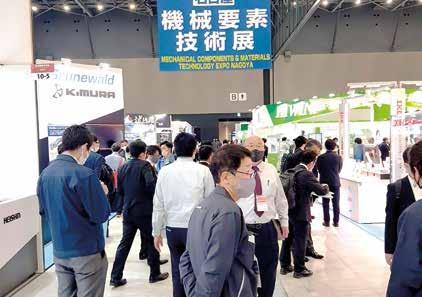

One visitor to Fastener World's booth shared a new trend that is brewing in the international market— titanium alloy powder. This is a high precision material that can be used as a raw material for the production of high-end products such as medical grade, aerospace grade, and automotive grade fasteners, and is gradually attracting the interest of many fastener manufacturers. Due to high plasticity and machinability, powdered titanium alloy is very suitable for forming high precision and highly customized fastener products. Even when customers request specific fastener shapes, powdered titanium alloy can also handle. Therefore, the production using titanium alloy powder is very flexible and suitable for manufacturers who are upgrading to high value-added products. The potential of titanium alloy powder in the future is considerable.

the next M-Tech Nagoya will be unveiled again on April 10-12, 2024.
Taipei International Automobile & Motorcycle Parts & Accessories
Show (TAIPEI AMPA) was held from April 12 to 15, 2023 in Hall 1 of Taipei Nangang Exhibition Center. For the first time the show combined 3 sub-fairs including TAIPEI AMPA, AUTOTRONICS TAIPEI, 2035 E-Mobility Taiwan. Across 4 days, it attracted nearly 4,000 global buyers, 830 companies, 2,200 booths, over 50,000 professionals, and 4,000 overseas buyers from 103 countries. The majority of the buyers were from Japan, while others included Malaysia, the U.S., Singapore and South Korea.
During the show, the organizers arranged full-day forums, with electric vehicles being a major focus of discussion. Global EV sales have soared from 2.276 million units to 10.522 million units in the past three years, creating a huge demand for parts and components. Taiwan provides automotive fasteners and parts OEM production technology that is equal to the world standard, so naturally it has become a hot spot for buyers from over 100 countries to come and purchase. At the Fastener World booth, we met domestic and foreign buyers who came to inquire about automotive fasteners, professional-grade fastening tools and other high-end fastening products, expecting to find high quality sources of supply through our matching services. Judging from the post-show matchmaking result, the future potential of the automotive parts OEM market in Taiwan is still huge.
With this year's show coming to an end, the organizer announced the next TAIPEI AMPA, AutoTronics Taipei, and E-Mobility Taiwan 2035 will be held from April 17 to 20, 2024

Environmental issues are increasingly becoming routine topics of discussion across the world. This is certainly because unlike many issues that impact us and our businesses that are regional in nature, the problems of the environment know no boundaries and are truly global. For proof of this look at some of the recent volcanic eruptions, the volume of ash that has been disgorged into the atmosphere certainly has been known to impact communities thousands of miles away. In the same way, impacts of deforestation, CO2 emissions, and ocean pollution may all be felt by individuals and communities far from the source of the offending problem. Therefore, across the developed and developing world there is more and more interest in taking action to improve upon our environmental stewardship.
One of the tangible ways for businesses to address these issues is to adopt what is known as an Environmental Management System. Like any Management System, companies may develop any system that meets their needs. However, we are fortunate that institutions like the International Organization for Standardization (ISO) have taken on the task to assemble standards that can be globally used and establish a common and consistent framework that we can all accept. To this end, ISO has published the ISO 14000 family of guidance documents to assist companies in developing their own Environmental Management System (EMS).
“Management Systems” refer to any set of activities, which taken as a whole define the way an organization conducts themselves towards achieving performance in a specific area or the entirety of their business. It is very important to distinguish that these systems are not intended to mandate specific performance requirements but rather establish the processes by which the system meets the organization’s performance goals. This new way of approaching the management of the business first emerged in 1987 with the publication of ISO’s Quality Management System, ISO 9001. As this approach was accepted and began to flourish, additional, and more specific, management systems began to evolve, including industry specific examples like those found in automotive, aerospace, medicine, and IT. Additionally, specific management systems complimentary to
the QMS also began to emerge. Included in this category was ISO 14001, an environmental management system.
ISO 14001 can trace its roots to the 1992 BSI standard BS7750. This was the first ever, formally established environmental management system, drafted in response to a growing interest in environmental stewardship. BS7550 would serve as a template for the ISO technical committee, ISO/TC 270, to draft and publish the first edition of ISO 14001 in 1996. Since its inception, it has undergone two additional revisions with the current third edition released in 2015.
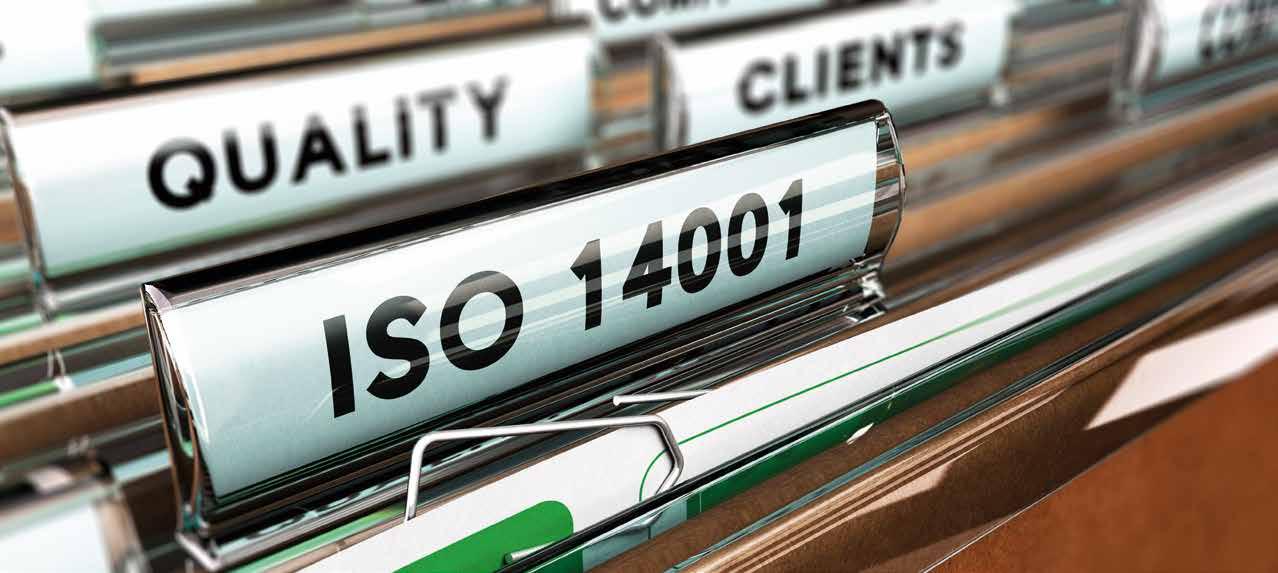
ISO 14001 is the guiding standard in a family of other guidance documents on the topic. It should be clearly understood that adoption of this standard to create an environmental management system (EMS) is entirely voluntary. The purpose of having such an EMS is threefold:
1. The primary goal is to develop a system that minimizes how a company’s operations negatively affect the environment.
2. To help the organization comply with local and national regulations.
3. To provide ways for the system to be continually approved.
ISO 14001 accomplishes these goals by defining the criteria necessary for a high functioning EMS. Once again, it does this

not by setting performance requirements on products or environmental outcomes but rather by providing a “road map” by which the organization can achieve its environmental goals and then subsequently improve upon them. Typical results of a well-functioning EMS include improved resource efficiency, reduced waste, reduced costs, higher level of compliance to applicable statutory requirements, and better communication to and between stakeholders.
ISO 14001 seeks to build an EMS that can implement, achieve, and maintain an environmental policy by addressing the following items:
• Organizational structure – the EMS identifies the organization’s structure, with special attention given to top management involvement, organizational awareness, and competency.
• Planning Activities – the EMS sets activities and processes that help the organization to review what environmental issues are relevant to them and establish goals and objectives around addressing those items.
• Responsibilities – the EMS helps the organization to identify those responsible for specific activities and provide them the authority needed to effectively complete their tasks.
• Practices, procedures, and processes – the EMS has the organization define and develop a system comprised of individual practices, procedures, and processes that achieve the goals and objectives of the organization.
• Resources – the EMS helps the organization identify, define, and place the necessary resources within the system that are needed to achieve the goals and objectives of the organization.
• Continual Improvement- the EMS is full of guidance that helps the organization in developing a systematic approach to focusing on ways to improve upon earlier successes.
Just like ISO 9001, the ISO 14001 EMS is founded on the Deming Circle of “Plan-Do-Check-Act” (PDCA).
Plan: In the planning stage, the goal is to establish the objectives and processes required. The organization will conduct a review or gap audit to understand what the organization is currently doing about environmental issues. They will also review what needs to be done and then put these two together to understand how well or poorly the operation currently is meeting relevant environmental issues. The picture that emerges from this will then be used to inform the organization in how to structure the “Do” aspect of the loop.
Do: In the “Do” stage it is all about implementing processes. Using the information gleaned in the “Plan” stage, the organization will begin to identify and assign resources, generate procedures and processes, and communicate what they are doing across the organization, especially to top management.
Check: In the “Check” stage the organization begins to measure, monitor, and report results of the processes generated in the “Do” stage. In addition to monitoring and measuring performance, internal audits are constituted at this stage.
Act: The final stage, “Act”, is when the organization brings it all together with the goal of improving past performance. This is usually accomplished through Management Review, a process where the results and health of the system are reported back to top management for them
to assure that things are on track and to make course corrections as necessary. Additionally, after a couple of cycles, top management should have enough “history” to begin evolving to a strategic, longer-term perspective. The outcome of the actions taken in this stage then filter back to the “plan” stage and the cycle starts again. It perpetually continues in this way, ever getting better and fulfilling the objective of a properly run management system, i.e., continual improvement.
ISO 14001 has followed similar content evolution as ISO 9001. Like ISO 9001 it has undergone two major revisions in its lifetime with the latest occurring in 2015. This revision is characterized by the following highlights:
• It places greater responsibility of top management to play a part in the EMS. In former versions, top management was always a player, but unfortunately, sometimes a very bit player. In this revision that gets addressed and top management has greater responsibility to be more aware and active in the EMS.
• It adds a new expectation that the organization must commit to proactive steps to “protect the environment”. Like all management system standards, it specifically does not mandate what this looks like for a particular organization, only that they must assess how they can do it and take proactive steps to see it through.
• It has placed emphasis on improving communication channels both inside and outside of the organization.
• It adopts a consistent structure to ISO 9001. In ISO terminology this is referred to as the “High Level Structure”. What it means is that there is a common framework in the format of the standards so that companies choosing to simultaneously operate an ISO 9001 QMS and an ISO 14001 EMS, have consistent system frameworks which make it easier for the cross pollination of these multiple standards within a single organization.
There are a family of ISO 14000 documents. ISO 14001 is the primary standard and the foundational document used by anyone seeking to create an EMS. ISO 14004, “General Guidelines on Implementation” provides addition guidance on implementing an EMS and was last revised in 2016. ISO 14005, “Guidelines for a Flexible Approach to Phased Implementation” was last revised in 2019.
In summary, an EMS and, specifically, ISO 14001 are completely voluntary. No company has to initiate one. However, with the increased interest in environmental stewardship and global citizenship, many companies are seeking to incorporate an environmental policy into their corporate ethos. Using the ISO 14001 standard and joining over 300,000 other organizations from 171 different countries would put you in good company and help set you on a pathway towards better environmental stewardship.
Metal hardness and metallographic testing are very important parts in fastener manufacturing, so fastener manufacturers often need to use metallographic pre-processing equipment for quality control. However, most of the related equipment in Taiwan in the early days did not meet the needs of users, and the purchase price from abroad was relatively expensive. Therefore, U-June-Instrument was established 8 years ago. Based on the concept of "integrity, service and listening" and with its equipment featuring high quality and practicability, and perfect after-sales service, U-June helps customers create a perfect balance between equipment cost and actual users’ needs.
U-June has always been proud of its ergonomic design. Its self-developed "cutting machines", “hot mounting machines", and "grinding & polishing machines" show many eyecatching features, allowing users to do more with less effort in actual operation.
With the “cutting guide by laser beam,” it can assist users in cutting workpieces precisely to reduce time cost and waste of consumables on one hand, and can also avoid mis-cutting the fixture to cause the workpiece to be clamped loosely or skewed and need to be replaced on the other hand. In addition, the cutting guide by laser beam is installed outside the cutting room containing moisture or hazardous substances, which can prolong the service life of the cutting guide. For fasteners often needed to be cut and being smaller in size, the fast threadtype clamp can ensure that the workpiece is clamped without skewing, while maintaining processing efficiency, and is currently applying for a patent. The floor-standing circulating water tank inside the machine can be easily pulled out and put back by users. The lift-up cover of the cutting chamber also adds more convenience to the operation.
Oil pressure and pneumatic types are available for choice, and the simple one-push button (integrating automatic heating, pressurization and cooling) makes the operation more convenient. The patented pneumatic model also has no oil leakage problem, and the volume generated during workpiece forming is also extremely low.

The self-developed and innovative automated pressure adjustment is a patented mechanism adopting “fast turning positioning to apply pressure”, which, compared to traditional ways, helps apply pressure in a more accurate and faster way. In addition, the patented design of embedded blocks won’t fall off, and the detachable water tray and mobile cooling water valve also make cleaning easier and more convenient.
"Smoothness and scratch removal are very important for fastener inspection, which will involve whether the hardness, metallographic and coating thickness are correctly interpreted. As customers have higher requirements for fastener quality, the testing equipment must also reach a certain standard,” noted U-June.
At the beginning of 2023, U-June's polishing machines have obtained the CE certification, and its other cutting and hot mounting machines will also follow suit. In addition, U-June also provides metallographic analysis software for decarburization depth, grain size, ductile iron nodularity, retained Austenite iron, etc. as well as Rockwell/Vickers hardness testing machines to make customers' fastener testing more perfect.
In response to the fact that many Taiwanese investors have moved to Southeast Asian countries for development and the international situation in recent years, U-June actively develops business opportunities in these regions. On the other hand, it is also looking forward to entering the European and American markets in order to improve product equipment technology and create higher value-added products, and plans to participate in int’l exhibitions in Germany, Vietnam, Thailand and Japan to gain more overseas exposure.
"We are committed to fastener testing and believe that fasteners will be more diversified and quality will be improved in the future. We’ll also listen to customer needs, improve equipment, hoping to create a win-win situation and assist in the improvement of Taiwan fastener industry."
U-June contact: Roy / Email: u-june-roy@hotmail.com
by Gang Hao Chang, Vice Editor-in-Chief of Fastener Worldby Dean Tseng, Fastener World
In terms of EV market share in global vehicle sales, from 2019 to 2022, the EV share went from 2.5% to 4.2%, 8.3% and 13% respectively. Here we can tell that EV sales doubled during the pandemic years. Although the market share growth slowed down to 56% in 2022, it still shows the strength of the demand for electric vehicles.
Astounding EV Demand in China Regardless of Economic Crisis
Norway and Indonesia Show Strong Potential for EVs

Most Global Automakers Achieved Double-Digit Sales Growth
vehicles, followed by Tesla with 40% growth to 1.3 million vehicles, VW Group in third place with 10% growth to 850,000 vehicles, GM Wuling in fourth place with 13% growth to 600,000 vehicles, and Stellantis in fifth place with 34% growth to 500,000 vehicles, followed by Hyundai by a small gap.
The rest of the carmakers included BMW, up 32% to 450,000 vehicles, Geely up 251% to 350,000 vehicles, Changan Automobile, up 134% to 250,000 vehicles, Ford up 55% to 200,000 vehicles, and Nio up 33% to 150,000 vehicles. Global EV sales continued to grow throughout 2022, with the exception of Great Wall Motor which dropped 4 percent and Toyota which dropped 13 percent.
In terms of EV models ( Figure 4) , Tesla and BYD series are arguably the most sought-after vehicles in the world. Tesla's Model Y and Model 3 are the top two in the 10 most popular EV models. Model Y sales grew from 410,000 vehicles in 2020 to 770,000 vehicles worldwide, while Model 3 sales dropped from 500,000 vehicles to 470,000. Adding these two models together, Tesla's sales increased from 910,000 vehicles in 2020 to 1.24 million vehicles in 2022, a 36% increase.
BYD is Tesla's biggest rival, with as many as six models in the top 10, accounting for more than half of the rankings. Adding up the global sales of the six models in 2022, the total reached 1.28 million vehicles, up 178 percent and exceeded Tesla's total. BYD's growth rate in the past year was nearly 5 times that of Tesla!
China rolled out multiple incentive policies in 2022 that stimulated EV sales to grow 82%. Europe, the second largest EV market, has been hit by geopolitics and seen its growth shrink significantly. In the U.S., EV sales were up 48% due to subsidies for vehicle owners and the rollout of consumer-preferred vehicle models.
Based on the data by several market research firms, global EV sales are expected to grow about 30 percent to 14 million vehicles by 2023. Although global EV sales are expected to grow at a slower rate this year than in the past two years, they still make a significant momentum for growth. If political tensions in Europe subside, and if countries make efforts to reduce inflationary pressures, the potential for EV demand is still worth looking forward to.
The differences between electric and fuel vehicles have changed the design of automotive fasteners. Instead of using traditional transmissions, EVs use motors with electronic controllers, increasing the need for circuit boards. These circuit boards are often set into a light aluminum casting, which require micro-screws for fastening. These thread-forming screws must deliver performance in a miniaturized setting to replace welding, gluing and clipping. Some threaded self-forming screws also have the function of heat sinks and are vibration resistant.
Carmakers have adopted boron steel as a core material for lightweighting vehicle bodies, allowing for thinner and stronger materials. It requires corresponding technology to bond alloys to the car bodies. Some carmakers have signed confidentiality agreements with fastener suppliers to provide fasteners for the assembly of power electronics systems (including circuit boards, electrical contacts, DC adaptors, HV/LV filters, battery packs, on-board charger circuit boards, sealing covers for internal cooling device and housing covers). It is worth noting that the use of recycled plastics is emerging among carmakers, and the performance design of corresponding fasteners has changed due to the different material combinations from the original ones.
A final point of interest is the charging station for EVs. A home wall-mounted EV charging station uses about 50 fastening elements. If the charging station is mounted to a wooden wall, wood screws or drywall anchors are often used. If installed on a concrete wall, expansion anchors, cement screw or chemical anchors would be used. If the station is installed outdoors, stainless steel screws or coated screws are used. The need for fasteners that will come with charging stations should not be overlooked.


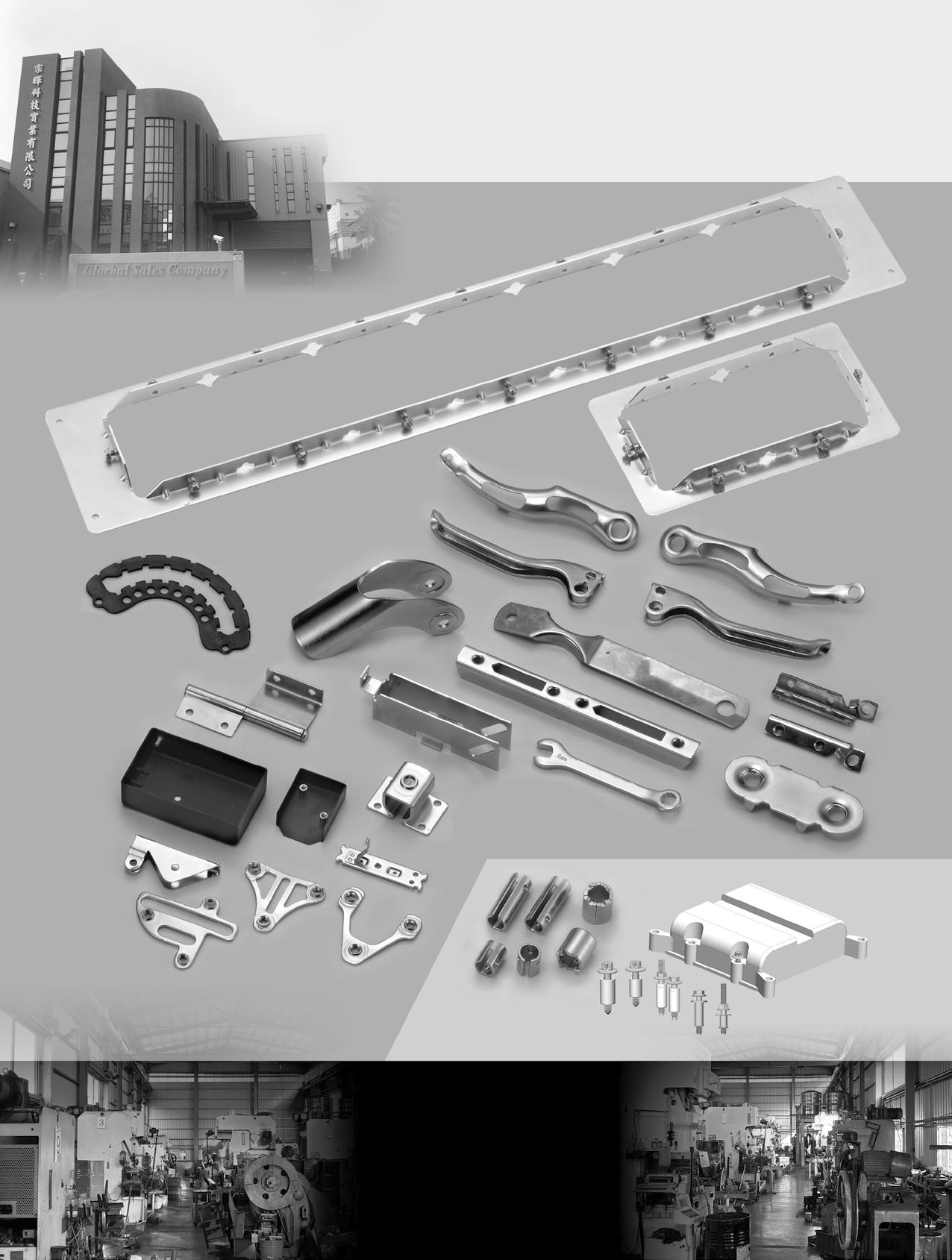









 by Gang Hao Chang, Vice Editor-in-Chief of Fastener World
by Gang Hao Chang, Vice Editor-in-Chief of Fastener World
First of all, judging from the latest data released by the International Organization of Motor Vehicle Manufacturers, OICA (see Table 1), global automobile production seems to have maintained a steady growth in the past three years despite the impact of major environmental factors such as the epidemic. From approximately 77.65 million vehicles in 2020, approximately 80.2 million vehicles in 2021, and a substantial increase to approximately 85.01 million vehicles in 2022, an increase of 6% year-on-year. Analyzed by continent, the automobile production in the Asia-Pacific region ranks first in the world, reaching 50.02 million vehicles in 2022, followed by the Americas with 17.75 million vehicles, and Europe with 16.21 million vehicles. The total production of Europe, America and Asia alone accounts for more than 98% of the world. In the African region, due to the small scale of the automobile manufacturing industry, it only maintains about 1 million vehicles per year.
The top five auto-producing countries in the Asia-Pacific region are: China, Japan, India, South Korea, and Thailand. China's record of 27 million vehicles accounts for more than half of the region's share and is growing every year. Japan's sound automobile manufacturing chain will continue to keep it in second place, reaching nearly 8 million vehicles in 2022. It is worth noting that in 2020, South Korea briefly surpassed India to become the third largest automobile producer in the region, but it was overtaken by India to rank fourth in the following two years. India currently ranks third with approximately 5.45 million vehicles. South Korea's production scale is roughly maintained at
Automobile production is one of the reference indicators for evaluating market development momentum, and it is also an important basis for predicting future demand for automotive fasteners and components. In addition, in recent years, the research and development focus of the world's major automakers has gradually moved towards electrification and modularization, which has led to changes in the market's demand for fasteners and demand types. This has also made many fastener manufacturers who focus on the development of automotive fasteners start to seriously think about whether the advent of the electric vehicle era will completely rewrite the layout of the fastener industry. In the following, the author will lead readers to have a glimpse of the current status and future of the automotive industry from the total output of automobiles in major countries around the world and the changes and growth in the output of various mainstream models (including passenger cars, light commercial vehicles, heavy trucks and heavy buses) in each country.
around 3.5-4 million vehicles. Thailand's production also shows that it is picking up year by year, reaching 1.88 million in 2022. If the market economy gradually improves, it is expected to return to the level of 2 million in 2023.

The top five producing countries in the Americas are, in that order: the United States, Mexico, Brazil, Canada, and Argentina. The United States accounted for more than 56% of the total production in the Americas, amounting to 10.06 million vehicles. Mexico, which ranks second, also has 3.5 million vehicles, and Brazil also has 2.37 million vehicles. It can be observed that the focus of car production in North America is still dominated by the United States and Mexico, and Brazil's position in car manufacturing in South America remains unshakable. The data also shows that compared with 2021, the automobile production in the United States, Mexico and Canada has a significant growth of about 10%. Regardless of whether it is North America or South America, its automobile production has shown a trend of increase year by year in the past three years. Originally, the Americas region was the third largest automobile production region in the world, but it successfully overtook Europe to be promoted to second place last year.
The top five producing countries in Europe (including the UK) are: Germany, Spain, France, Czech Republic
and Slovenia. Germany, which ranks first, had 3.67 million vehicles in 2022. Although it is lower than 2020, it is still higher than 2021. Spain, which ranks second, also had more than 2 million vehicles in 2022. France, the Czech Republic and Slovenia also roughly maintained the level of 1 million vehicles. Except for several typical automobile production countries in Western Europe, it can be seen that the development of the automobile manufacturing industry in Central and Eastern Europe can be described as blooming everywhere, and there is a trend of gradually catching up from behind. For car manufacturers, the Czech Republic, Slovakia, Romania, Poland, Hungary and Portugal are all attractive investments. Especially in Romania, Poland and Portugal, their performance in 2022 increased by 21%, 10% and 11% respectively compared to 2021. In addition, if Turkey is also counted in Europe, there is also a production scale of about 1.3 million vehicles, which can also set off a certain influence in the European auto supply chain.
The main producing countries in Russia and Central Asia are: Russia, Uzbekistan, Kazakhstan, Belarus and Ukraine. In the past, Russia's average annual production volume was about 1.5 million vehicles, which shrank sharply to 608,000 vehicles in 2022, which may be related to the factors of international economic sanctions and the embargo of raw materials from Western countries. On the contrary, although the production scale of Uzbekistan and Kazakhstan is not large compared with other countries, the production in 2022 showed a significant growth of 38% and 22% respectively compared with 2021. The automobile industries in Belarus, Ukraine, and Azerbaijan are relatively underdeveloped in terms of data, with only a few thousand or tens of thousands of vehicles.
On the whole, if you don't look at the African part (too small), the car production in the Americas has the most significant growth year-on-year, reaching 10%. The AsiaPacific region followed closely behind, also growing by 7%. The European region is roughly the same as in 2021, with only a slight decrease of 1% (if you only look at the part of the EU 27 + the United Kingdom, there will also be a 5% growth).



Passenger cars are the mainstream purchases of general car consumers, and global passenger car production has grown year by year in the past three years. Passenger car production in 2022 increased by 8% compared to 2021 to approximately 61.59 million units, accounting for more than 72% of the total global car production. It can be seen that passenger cars are still the largest type of automobile production (see Table 2).
Benefiting from the demographic dividend in the region, about 68% of the passenger car production in the Asia-Pacific region reached 42.32 million units, accounting for 84% of the total automobile production in the Asia-Pacific region. Passenger vehicle production in the Asia-Pacific region is highly concentrated in China, Japan, India, South Korea and Indonesia, with 23.83 million, 6.56 million, 4.43 million, 3.43 million and 1.21 million vehicles respectively. In 2022, except for Japan, which experienced a 1% decline, the other five countries had a growth rate of more than 10% compared to 2021, especially Indonesia's 37% growth rate is the most obvious.
The second largest production center for passenger cars is Europe, whose production of passenger cars in 2022 reached 13.72 million units, accounting for about 84% of the total car production in Europe. The top five passenger car producing countries in the region are Germany, Spain, Czech Republic, France and Slovakia, with 3.48 million, 1.78 million, 1.21 million, 1.01 million and 1 million vehicles respectively. Among them, Germany, France and Czech Republic all showed a performance of 10% compared with the previous year.
As for the Americas, which is currently the second largest automobile production region in the world, the production data of passenger vehicles has a very unexpected performance. The production of passenger vehicles in the Americas region in 2022 was approximately 4.83 million units, accounting for less than 30% of its total vehicle production (17.75 million units) in the same year, which is a relatively low proportion. The top 5 passenger car producing countries are Brazil, the United States, Mexico, Canada and Argentina in order, with 1.82 million, 1.75 million, 650,000, 289,000 and 257,000 vehicles respectively. Brazil has even surpassed the United States to become the most important passenger car production center in the Americas.

The production of light commercial vehicles is also a very important part of global automobile production. In 2022, the global production of light commercial vehicles reached 19.86 million units, an increase of 7% year-on-year, accounting for about 23% of the total global vehicle production in that year.
(See Table 3)
Unlike passenger car production, which is mostly concentrated in the AsiaPacific region, more than 60% of light commercial vehicle production is concentrated in the Americas (about 12.19 million units in 2022, an increase of 10% compared to 2020, and more than 87 % are concentrated in the United States and Mexico).
Production in the AsiaPacific region also accounted for more than 26% (about 5.23 million vehicles), and it was mainly concentrated in China and Thailand, with 1.84 million and 1.28 million vehicles respectively.
In contrast, the production of light commercial vehicles in Europe in 2022 was only about 2.14 million, a decrease of 2% from 2021, accounting for only about 10% of the world. Judging from the published data, the most important manufacturers of light commercial vehicles in Europe are Spain, France, Italy, Poland and Germany. The Turkish part has maintained a production scale of 400,000 to 500,000 vehicles in the past few years.

The total production of heavy trucks in the world reached more than 4 million units per year from 2019 to 2021, but dropped sharply by 23% to 3.3 million units in 2022, mainly due to the performance of the AsiaPacific region (data showed that in 2022, the heavy-duty trucks in the Asia-Pacific region Production fell sharply by 32% year-on-year). See Figure 4
The production of heavy trucks in the Asia-Pacific region in 2022 was 2.28 million units, accounting for nearly 70% of the total global heavy truck production in that year, with China, Japan and India as the main production centers.
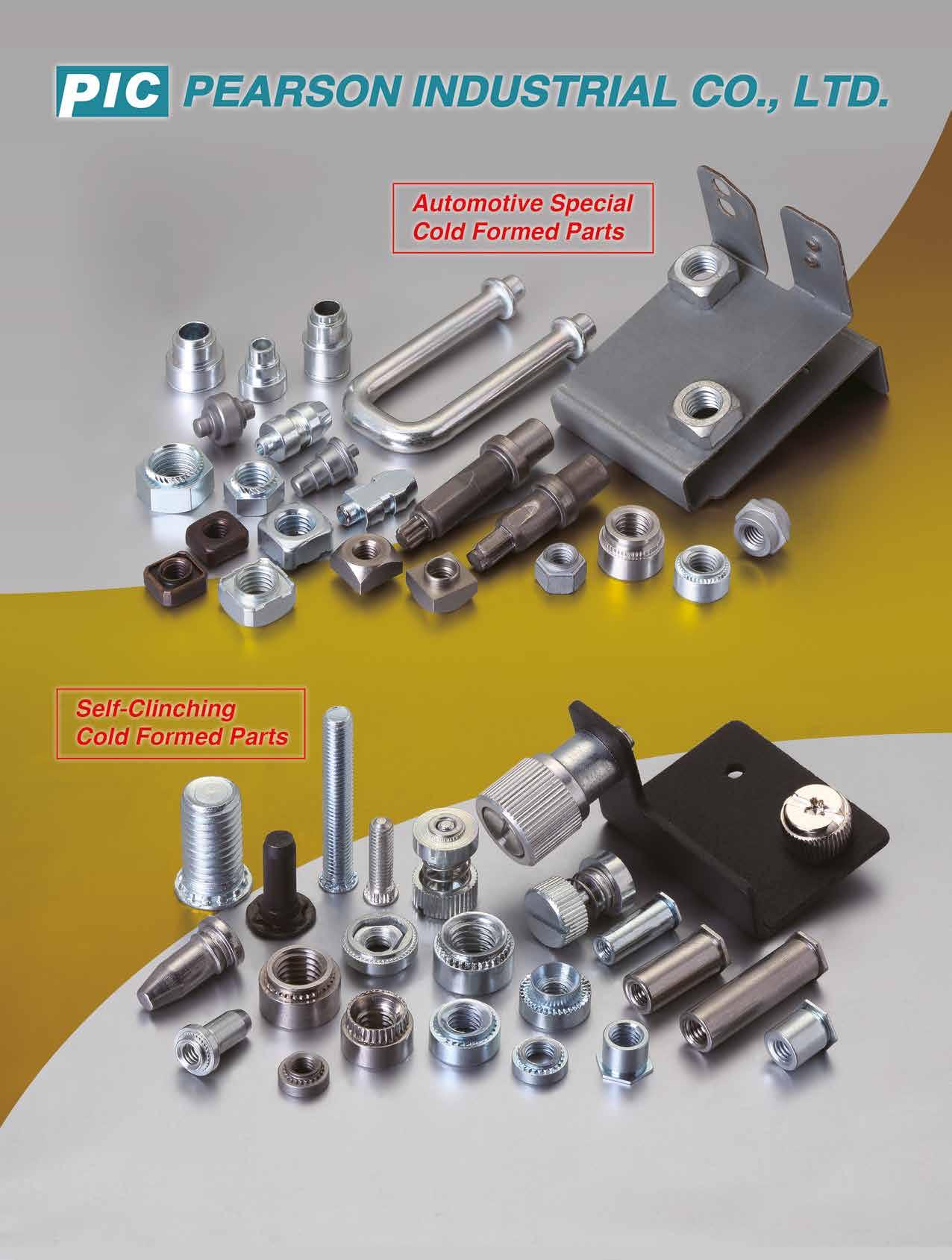
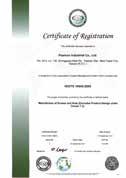

The Americas is the second largest production base for heavy trucks. In 2022, the region produced a total of about 680,000 heavy trucks, accounting for about 21% of the global heavy truck production in the same year. Different from the Asia-Pacific region, the production of heavy trucks in the Americas shows a trend of annual growth. After a substantial growth of 44% in 2021, it will continue to grow by 11% by 2022. The United States, Mexico and Brazil are the top three major producers of heavy trucks in the region.
The production scale of heavy trucks in Europe is less than half of that in the Americas. In 2022, the production volume of heavy trucks in this region was about 300,000 units, a slight increase from 2021. Compared with the performance in 2020 and 2021, the growth performance of heavy truck production in Europe has a clear slowdown trend. At present, the most important heavy truck production bases in Europe are Spain, Italy, Belgium and the United Kingdom. Türkiye also has a production scale of nearly 40,000 vehicles.
Compared with the aforementioned models, the production scale of heavy-duty buses is the smallest. In 2022, the global production of heavyduty buses exceeded 250,000 units, a year-on-year increase of 28%. It also grew by 15% yearon-year before 2021 (see Table 5 ).
The Asia-Pacific region is the most important production base of heavy-duty buses. The output of heavy-duty buses in this region reached more than 170,000 in 2022, a substantial increase of 27% from the previous year, accounting for nearly 70% of the total global heavy-duty bus production in the same year. China and India are the main production centers.







The scale of production in the Americas and Europe is similar, probably accounting for nearly 40,000 vehicles. It is worth noting that the production scale of heavy-duty buses in the Americas increased by 71% and 64% in 2021 and 2022, respectively. In particular, Mexico and Brazil almost cover the production of heavy-duty buses in the Americas. In Europe, the Czech Republic and Poland are the main production bases for heavy-duty buses.

Judging from the data in the above tables, the overall global vehicle production volume has not shown a significant downward trend due to the epidemic in the past four years, but has increased year by year. This result may make many previous analysts who were pessimistic about the auto market. However, on the other hand, it may also mean that the demand for cars from global consumers is still strong, which in turn will boost the production willingness of various car manufacturers. Asia (especially China), the United States, Mexico, Brazil, Western European countries and major Central and Eastern European countries will continue to play very critical roles in global automobile production (whether it is passenger cars, light commercial vehicles, heavy trucks, or heavy buses).
This may also be good news for many manufacturers that focus on the production of automotive fasteners. Coupled with the continuous technological improvement of the automobile industry, if the automotive fastener industry can actively strengthen cooperation with customers in major automobile production markets to establish distribution channels, and at the same time grasp the changes and trends in the application of automotive fasteners in the future, automotive fasteners, I believe, will still be a profit-making shortcut full of business opportunities.
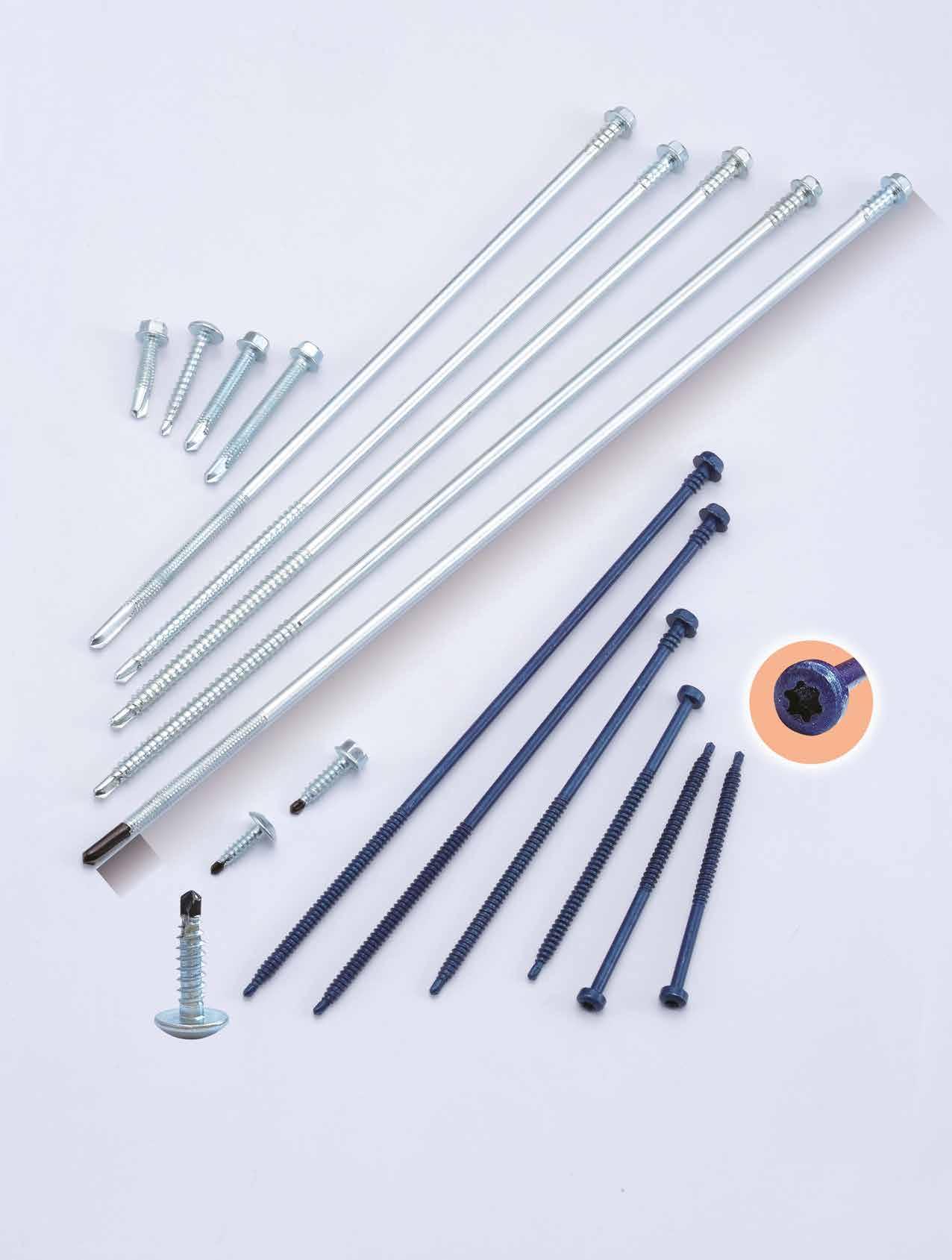

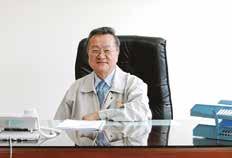

The 8,265 sq m plant includes functions for manufacturing, QC, R&D, Packaging, warehousing, etc. and is used to produce various industrial and construction screws.
TFTA held the annual member meeting at Queena Plaza Hotel in Tainan and set 26 tables. Tainan City Mayor William Lai was also present.
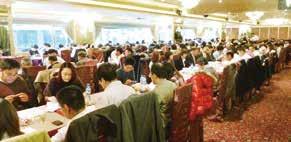


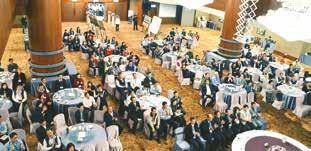
The handing over ceremony was given in Houli, Taichung. Witnessed by all members in attendance, new Chairman Ming-Yuan Chiang received the official seal from former Chairman Chieh Wen Wu.

In order to celebrate the cumulative sales of 3,000 sets of bolt & nuts forming machines, the 6th Jern Yao Cup Friendly Match was given at Ta Kang Shan Golf Course.

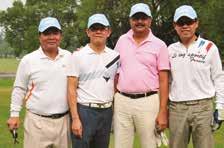

TIFI President Joe Chen together with member representatives reviewed what TIFI had done in 2012 and hoped for all members to continue to support TIFI.

In its 40th year of operation, Chun Zu Machinery became Taiwan’s first fastener forming machines manufacturer to be listed in Gre Tai Securities Market.

Spanning the area of 1,652 sq m and with technique, equipment and staff inherited from its forerunner, Cheng I Drawing specialized in metal wire drawing machines.
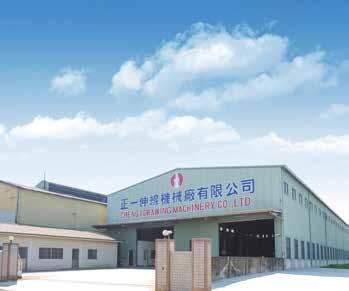
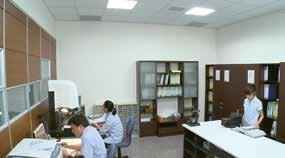
Fastener Source Inc. inaugurated its new office located in Tainan Rende Industrial Estate, with more functional labs and testing instruments.

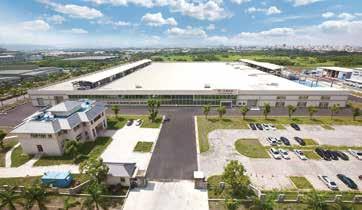

In response to the vehicle related requirements, Tzong Ji purchase the equipment in 2012 and had them put into operation in 2013.




After 2 years of construction, Min Hwei Energy started to mass-produce solar cells in Q2 2013 and the annual output could reach 60MW.
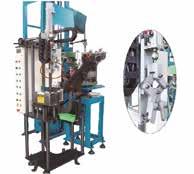


Jenn Tai developed 5 types of feeding equipment, helping users to achieve more energy-saving, safer, more competitive standard operating procedure.
The 2-day social event was held in Taian, Miaoli, inviting TFTA consultant Vincent Lue to give a speech and holding the new chapter head election.

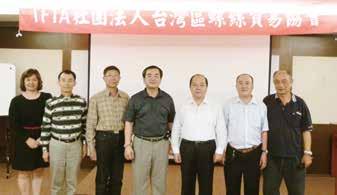


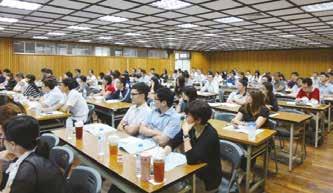

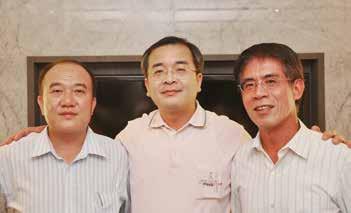

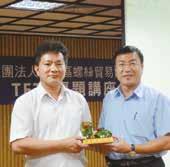
In response to limited space of the old plant, Tsunami spent NT$ 20 million establishing a new site to increase its capacity effectively.

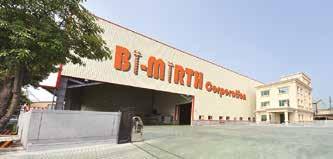


Bi-Mirth invested NT$ 0.1 bn in building a new packaging plant, hoping to achieve more convenient work process and effectively enhance efficiency and capacity.

It became one of the few fastener companies going publicly traded in Singapore and aimed at developing and tapping into more emerging markets.
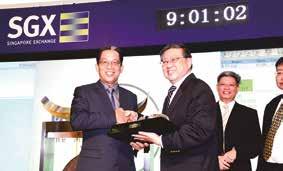
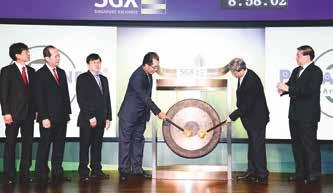
The workshop topics were centered around screw manufacturing procedures. Feng Yi GM Kern Hsiung Huang, Mr. Taming Chao from Atotech Taiwan, and ND Industries Ricky Hsang were invited to give thematic speeches.
38 TFTA members, directors, and supervisors were present to attend the event. During the event, Yung King President Josh Chen was also elected to be the new head of TFTA North Chapter.

Top Green Fastener moved into its new manufacturing facility with a total space of 4,630 sq m and expected to see a 35-50% increase in its capacity in 2014.
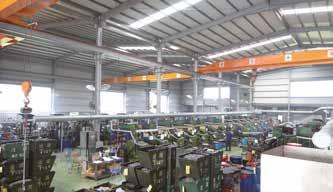
The meeting was given at Grand-Hilai Arena. During the meeting 23 new directors and supervisors were elected and Bill Chen of Chite Enterprises was elected to be the new TFTA Chairman.
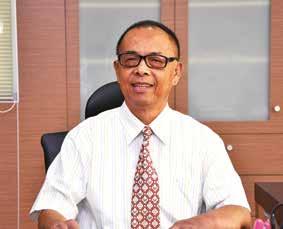
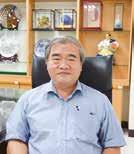

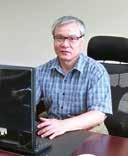


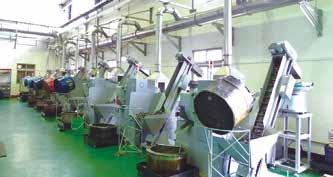

It only took 4 years for Hsin Jui to complete the planning, renovation, new equipment procurement, relocation, positioning and formal production operation, which was a new milestone of the company.
Delegates from Germany, France, Spain, the UK, and the Netherlands joined the Berlin meeting. During the meeting, NEVIB was announced to become a full EFDA member in 2014.
In response to international demand, add more capacity and offer more product development service, Cheng I Wire Machinery inaugurated its new plant at Tainan Technology Industrial Park.


Feb. 26-28
Fastener World Organized Taiwan Pavilion at Fastener Fair Stuttgart

The organizer opened 3 halls, using 16,000 sq m, attracting 811 exhibitors from 36 countries. Taiwan agent Fastener World brought 119 Taiwanese exhibitors, the largest overseas exhibiting group of the year.
Apr. 11-13
TFTA Held International Fastener Show Tainan, Taiwan (IFST)

The 1st edition of IFST was given at Commercial Exhibition Center Tainan, attracting the attendance of over 20,000 visitors, including over 8,000 domestic and foreign professional buyers from 39 countries of Europe, America, and Asia.
Mar. 12-14
Fastener World Brought Taiwan Exhibitors to Attend Fastener Fair Russia
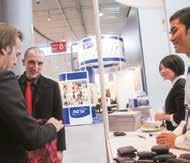


The Fair took place at Lenexpo, attracting exhibitors from 23 countries. Visitors were mostly local Russian buyers.
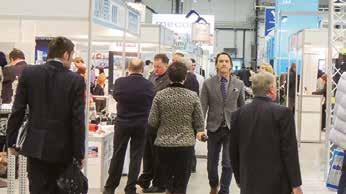

Apr. 17-18
Fastener World Brought Taiwanese Exhibitors to Attend Fastener Fair India
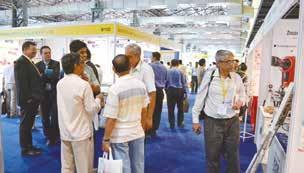

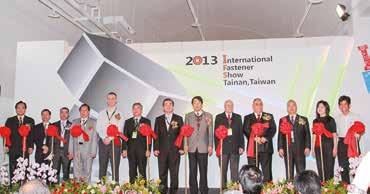


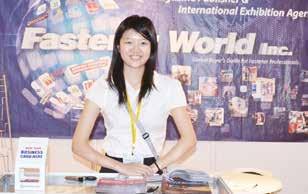

The Fair was given at Bombay Exhibition Center. Fastener World also brought 7 Taiwanese exhibitors to develop the domestic market and potential customers.
Apr. 18-20
Fastener World Exhibited at Ningbo (China) Fasteners Parts, and Manufacturing Equipment Exhibition
May 08-10
Fastener World Exhibited at DesignBUILD Sydney
Jun. 11-13
Fastener World Exhibited at Hardware+Tools Middle East


Jun. 20-22
Fastener World Exhibited at Fastener Expo Shanghai
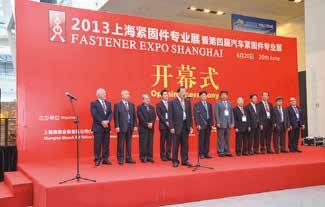


Jun. 11-12
Fastener World Exhibited at FastenerTech’13

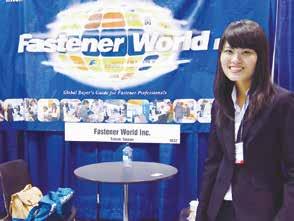
The biennial show took place once again at Donald E. Stephens and was co-located with SUR/FIN. The show attracted 144 exhibitors from the U.S., Spain, Taiwan, and China.




Jun. 19-21
Fastener World Exhibited at M-Tech Tokyo
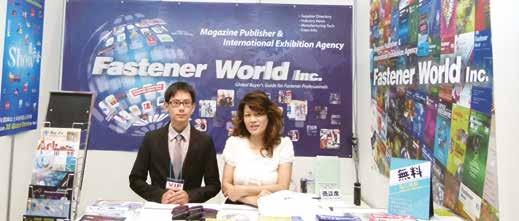
The show was held at Tokyo Big Sight. The show was attended by 1,930 exhibitors and had up to 7,6701 visitors. Other Taiwanese exhibitors also included Ray Fu, L&W, and Wa Tai.

Aug. 29-31
Fastener World Exhibited at Expo Nacional Ferretera
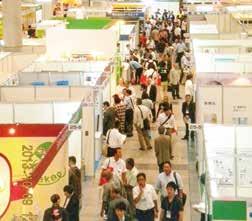

Sep. 04-07
Fastener World Exhibited at ExpoFerretera Argentina


Oct. 02-04
Fastener World Exhibited at M-Tech Osaka
Oct. 09-11
Fastener World Exhibited at 3rd International Hardware & Tools Expo Tokyo


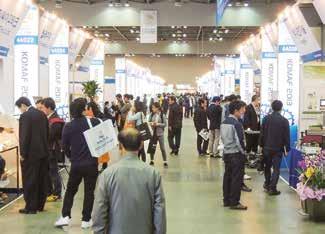


Oct. 09-10
Fastener World Exhibited at Fastener Expo of Jiaxing, China


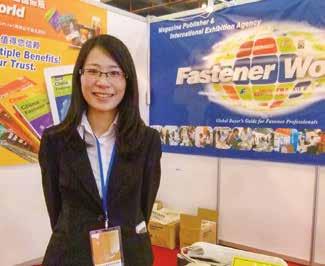
Oct. 16-19
Fastener World Exhibited at Korea Metal Week


Oct. 23-25
Fastener World organized Taiwan Pavilion at NIFMSE


National Industrial Fastener & Mill Supply Expo was the largest event of its kind in N. America. Fastener World brought nearly 80 Taiwanese exhibitors to participate and showcased various fastener related products and services.
Nov. 21-22
Fastener World Exhibited at Fastener Fair Turkey

Nov. 12-14
Fastener World Exhibited at Fastener Expo Guangzhou
Nov. 26-28
Fastener World Exhibited at China International Hardware Show








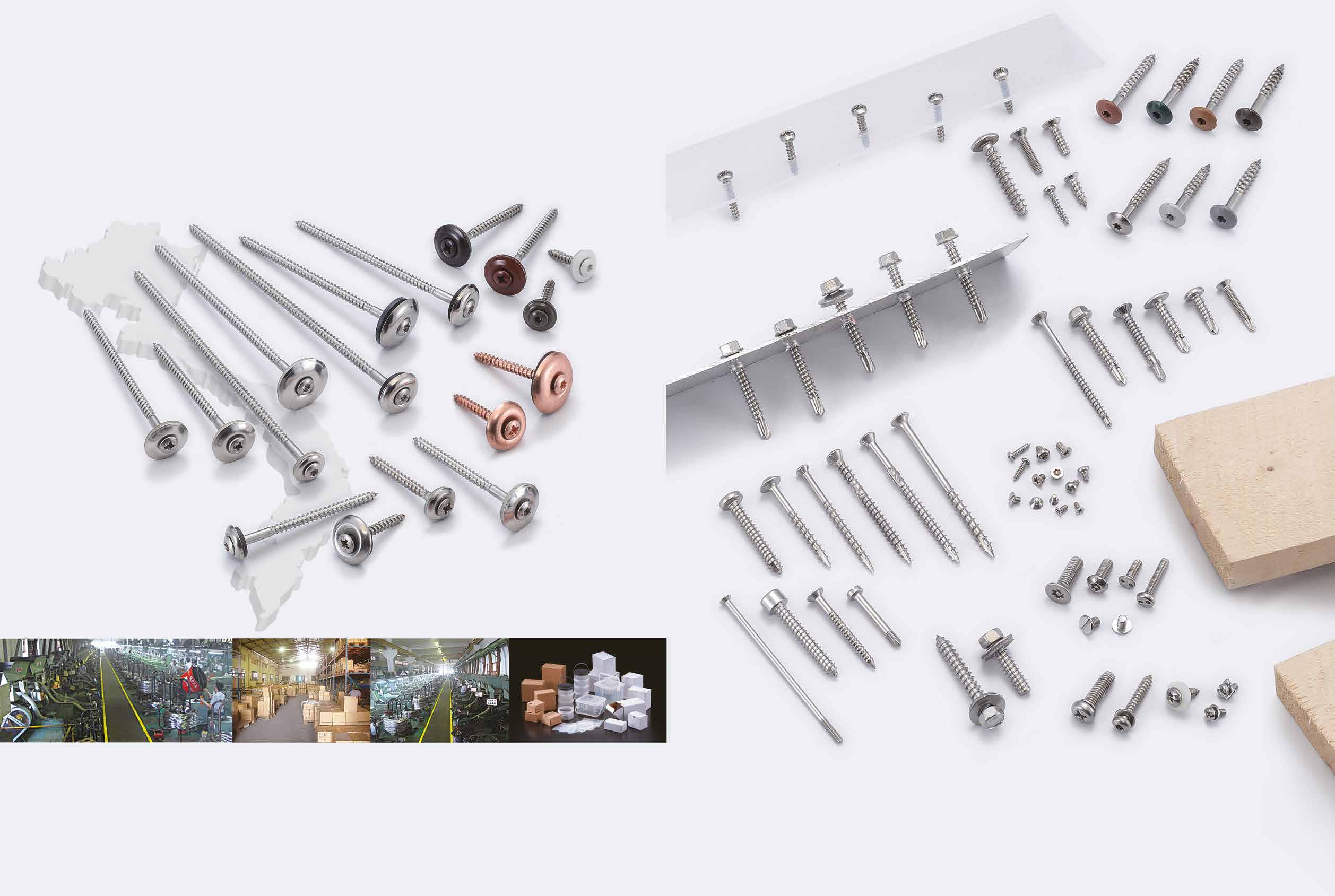

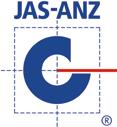


How to clean the surface of rusted bolts? For example, can a spider ( Fig. 1) help with that?
Readers will not find some super scientific treatise in this article. Nevertheless, it will certainly be of interest in today's difficult times when an energy, ecological or overall economic crisis threatens. There is nothing that readers do not already know from their own universal experience. Here, the author tried to recapitulate what's already known, unfortunately little-respected rules and implement them for the specific conditions of screw joints. Are there reasons and possibilities for using the 3Re theorem, which means Reusing, Reducing, Recycling in this industry as well? The answer is – YES, there are!
same time very important. Another option is blasting using a suitable abrasive medium or a chemical method of removing corrosion.
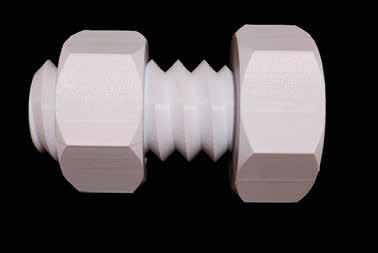

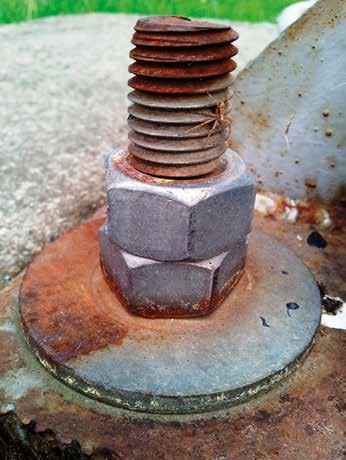
But now seriously. Surface corrosion is the most common and least harmful type of corrosion, because it uniformly attacks the entire surface of the part and is visible to the naked eye. As long as it has not penetrated into depth, it can be easily removed without losing the original mechanical properties of the carrier of this corrosion, i.e. metal bodies. Corrosion is actually a nasty parasite that robs the national income of 5 to 7%. It is primarily necessary to fight against it, but once it has arisen, it can be easily removed from the surface and thus considerable material values can be saved. The simplest method is the use of a steel brush. Suitable for series use of the vibration deburring machine known e.g. from the production of rolling bearing cages. The size and shape of the chips is at the
Paradoxically, corrosion can also play a positive role, as it prevents screws from loosening ( Fig. 2). The U.S. Navy even has a patented method of accelerated corrosion of screws so that they do not freely loosen during ocean liners. Despite everything, the most important thing is prevention!
Products made of homogeneous material as steel, plastics ( Fig. 3) and non-ferrous metals are OK from the point of view of recycling. However, it is worse with the combination of these diverse materials. The combination of steelplastic ( Fig. 4) or steelrubber ( Fig. 5 ) can serve as an example.
The separation of non-metallic parts in this combined materials would be practically very expensive, and therefore both materials are disposed together in melting furnaces at a temperature of approx. 1,600°C.
The plastic ring represents rather insignificant part of the nut DIN 985 weight (4.55%) but considering the production of the thousands tonnes of the nuts, it is not so insignificant a mass of the pollutants which do not belong to the melting process and they contribute to air pollution, e.g. 1,000 pieces of DIN 985 M18 nuts = 44 kg and the part of the plastic component is ca. 2 kg. The above-mentioned fasteners are only one example of using the accessories of non-metallic origin for the purpose of locking or sealing together with metal parts. The relevant EU directives on waste dictate how to dispose plastic materials (Directive EU 2019/904 of the European Parliament and of the Council of 5 June 2019 on the reduction of the impact of certain plastic products on the environment). The aim of the waste regulation policy should be the minimisation of their negative impacts on the environment. The fasteners are not excluded from it and therefore they cannot be privileged.
Phosgene (other name: carbonyl dichloride), which evolves during the smelting process is a chemical compound with the chemical formula COCl2. At low temperatures, it is a colourless liquid with the smell of stale hay or rotting leaves. Phosgene gas is a highly toxic that was used as a chemical weapon during the First World War.
The obligation of the manufacturer or the supplier of fasteners made of heterogeneous materials should have instructions not only for use, but also for disposal at the end of its usef life! ( Fig. 7)


It's simple, e.g. for the locking nuts in Fig. 6, in which the plastic retaining ring used is easily replaceable or replaced by an all-metal variant.

Of course, there are many other practical ideas, for example C-zero technology. This applies mainly to protective atmospheres for the heat treatment of screws and nuts. These atmospheres (hardening and cementation) contain high amounts of CO2 and flow freely into the surrounding air. The solution options are quite real. It is primarily the replacement of carbon with nitrogen or other inert gases (Argon). After all, a provocative question still remains open. Is it technically possible to use the protective atmosphere twice? But this is no longer a problem for manufacturers of fasteners, but of furnace equipment such as SAFED, EBNER, AICHELIN, etc. The author is ready to establish contact with these and similar companies again.
The article presents several types of how it is possible to contribute to the improvement of the environment and reduce the energy consumption of production, even in the field of mechanical joining of parts. In the context of gigantic global industrial production and consumption, this may seem insignificant, but one must keep in mind that even the connecting elements, which mostly condition the production of higher structural units, have a not insignificant impact. After all, the well-known rule applies that: The sum of small events causes namely a big event, and so is this case.

The UNFCCC's three decades of global environmental efforts have not produced the desired results, leading to the development of smaller and more focused regional agreements such as the EU's Emissions Trading System (ETS). However, the ETS causes "carbon leakage," where firms move their production to countries with lax environmental regulations, increasing global emissions. The EU is set to implement the world's first Carbon Border Adjustment Mechanism (CBAM) in 2023 to harmonize its domestic carbon pricing policy with its imports. CBAM aims to reduce carbon leakage by encouraging non-EU countries to implement higher environmental standards in export-intensive industries. A recent study on policymakers' perceptions of the EU CBAM in Thailand showed that Thailand is worried about its complexity and impact on local industries. As the EU CBAM begins to take effect, policymakers in Southeast Asia may consider their domestic carbon policies to mitigate its impact on their economies. While the region's carbon markets are still in development, Thailand is taking steps to implement a carbon price in the near future.
The United Nations Framework Convention on Climate Change and the Paris Agreement are global efforts to tackle climate change, and COP26 in Glasgow in 2021 focused on enhancing pledges made under the Paris Agreement. Thailand has pledged to reach carbon neutrality in 2050 and reduce greenhouse gas emissions by 2065. While there are no mandatory carbon targets in Thailand yet, the Stock Exchange of Thailand has asked listed companies to submit a sustainability report that includes their carbon emissions details. The proposed rules by the US SEC to mandate public companies to disclose information about their greenhouse gas emissions and other climate-related impacts and risk disclosures could potentially become obligatory for some companies in Thailand due to imposed requirements dictated by their head offices in the US.
Furthermore, the International Sustainability Standards Board's proposed standards may require financial institutions to publish estimates of the carbon emissions linked to their loans and investments, which could potentially affect Thai banks and investors. CBAM importance for Thai companies is their climate change risks and opportunities for competitive reasons. The EU has proposed a Carbon Border Adjustment Mechanism (CBAM) that will adjust the price of imported goods that have carbon emissions exceeding prescribed levels under EU regulations. This may result in EU customers being reluctant to import goods from Thailand subject to CBAM, which would lead to additional costs.

Businesses can no longer ignore the importance of incorporating climate actions into their corporate strategy and business operations as consumers, investors, and business partners are demanding explicit environmental and sustainability policies. Adhering to sustainable business practices could provide a competitive edge, such as carbon labelling products that disclose greenhouse gas emissions. Thai companies need to ensure that their own practices and their entire supply chain comply with their customer's sustainability policies, or they risk losing them. Making changes sooner rather than later is important as these trends will become more of a reality, and preparations should start now as this process cannot be done overnight.
The EU is a significant trading partner for Thailand overall. According to the European Commission, trade in goods between the EU and Thailand was worth approximately 37.6 billion euros (about 45 billion USD) in 2020. The EU is also one of Thailand's largest sources of foreign direct investment. Around 10% of Thailand's total exports are destined for the EU. The combined export value of goods such as minerals, fuels, iron, metals, chemicals, and plastics from Thailand to the EU is relatively modest, so they will not be significantly affected by the EU CBAM. However, Thailand's fasteners to the EU may be impacted, and their export costs may increase, making them less competitive with rivals like Singapore, Vietnam and Malaysia.
Thailand's fastener industry is relatively small but growing. According to a report by the Thailand Board of Investment, the country's fastener production was valued at around 260 million USD in 2022. Their exported fasteners to EU were about USD 121.6 million and their imported fasteners from EU zone were USD 82.7 million in 2022. The report also notes that the industry is expected to grow, driven by the country's increasing role as a production and export hub in the ASEAN region.
It is difficult to predict the future of any industry with certainty, but there are some trends that could affect the fastener industry in Thailand in the coming years.
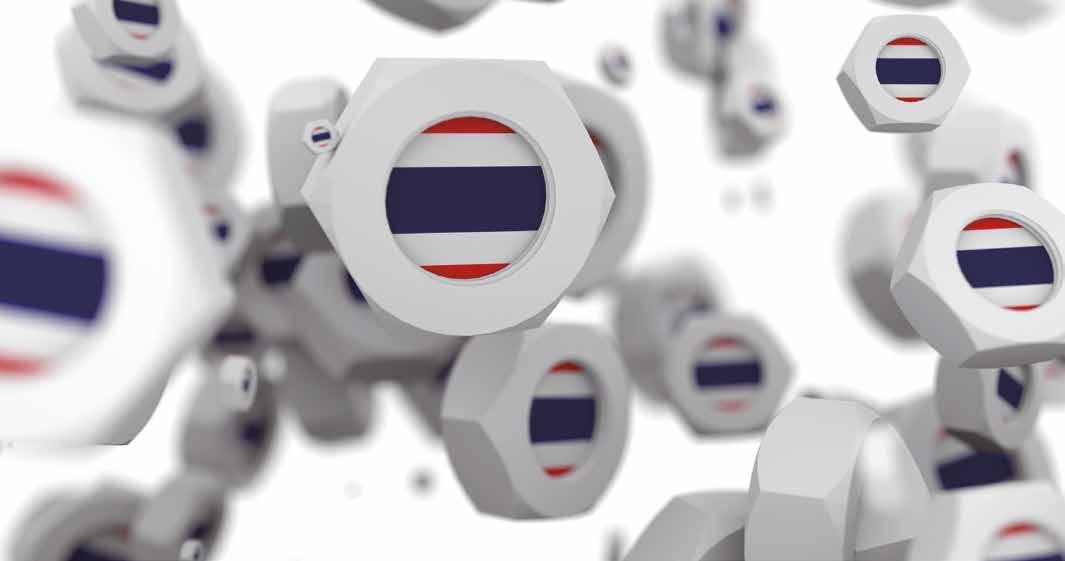
One major trend is the increasing demand for sustainable and environmentally friendly products, which could drive the development of new materials and manufacturing processes. As we discussed earlier, businesses and consumers are increasingly focused on reducing their carbon footprints and environmental impact, which could create new opportunities for companies that can produce fasteners using recycled or sustainable materials.
Another trend is the growth of the digital economy, which could create new opportunities for fastener companies that can leverage new technologies to improve their operations and customer service. For example, companies that can provide real-time tracking and monitoring of their products could be more attractive to customers who want to manage their supply chains more efficiently.
Finally, global trade regulations, such as the proposed EU Carbon Border Adjustment Mechanism (CBAM), could also affect the fastener industry in Thailand. As we discussed earlier, companies that do not take steps to reduce their carbon emissions could face increased costs and reduced demand from customers who are concerned about their own carbon footprints.
Overall, the future of the fastener industry in Thailand will likely depend on how well companies can adapt to these changing trends and meet the evolving needs of their customers. Those that can embrace new technologies, develop sustainable products, and reduce their carbon emissions will likely be better positioned to succeed in the years to come.
Articleby:
Behrooz LotfianCopyright owned by Fastener World
The value of U.S. fastener imports has shown a steady growth trend over the past three years, from US$4.777 billion in 2020 to US$7.762 billion in 2022. The top three import sources were Taiwan, China, and Japan in that order. Taiwan, in particular, accounted for nearly 40% of the U.S. market share in 2022 with US$3.026 billion. Imports from Taiwan and China have nearly doubled in value over the past three years, and all of the top 10 sources of imports grew in 2022, except for Japan, which shrank from the previous year.
Like imports, U.S. exports showed a similar trend over the past three years, rising from US$3.624 billion in 2020 to US$4.765 billion in 2022. The top three export destinations were Mexico, Canada, and China, in that order. In 2022, exports to these two countries (Mexico and Canada) exceeded US$1 billion (over 60% of U.S. total export). With the exception of China, where its exports in 2022 declined, the other top 10 export destinations all showed growth.
Import (HS 7318 Iron and steel screws, bolts, nuts, washers, etc.)
Canada’s imports of fasteners from around the world have increased every year for the past three years, from US$1.380 billion in 2020 to US$1.982 billion in 2022. The top three import sources were the U.S., China and Taiwan, with the U.S. leading with US$846 million in 2022, ahead of China with US$364 million and Taiwan with US$332 million. It is worth noting that Taiwan’s export to Canada was once ahead of China from 2020 to 2021, but was surpassed by China in 2022. In 2022 its top 10 import sources all showed higher values than in 2021.
As with imports, Canada’s global export performance has grown each year over the past three years, from US$426 million in 2020 to US$624 million in 2022. The top three export destinations were the United States, China and Mexico, in that order. More than 80% of Canada’s fasteners were exported to the U.S., a significant percentage, with US$502 million of fasteners exported to the U.S. in 2022 alone. In 2022, its fasteners exported to China surpassed those exported to Mexico, and in 2022, except for the United Kingdom and Morocco, which experienced a decline, all the other export destinations among the top 10 showed a growth trend compared to 2021.
Export (HS 7318 Screws, bolts, nuts, coach screws, screw hooks, rivets, cotters, cotter-pins, washers (including spring washers) and similar articles, of iron or steel)
Import (HS 7318 Screws, bolts, nuts, coach screws, screw hooks, rivets,cotters, cotter-pins, washers (including
spring washers) and similar articles, of iron or steel)
Taiwan’s import volume and value of fasteners have been on a steady growth trend over the past three years. In terms of weight, it grew from 15,600 tons in 2020 to 19,900 tons in 2022, and in terms of value, it grew from US$149 million in 2020 to US$205 million in 2022. In terms of weight, the top three sources of imports were Japan, China and Vietnam, accounting for about 75% of Taiwan’s total fastener import. Among the top 10 import sources, all the countries were on a growth trend in 2022, except for Vietnam, Philippines and Thailand, which showed a decline in weight.
From 2020 to 2021, Taiwan’s fastener export volume grew, but shrank slightly in 2022. In 2022, the export volume reached 1.607 million tons and the export value reached 6.128 billion USD, more than 2 billion USD than in 2020. The top three export destinations were the U.S., Germany and the Netherlands, with the U.S. alone accounting for nearly 45% of the total. Its 2022 exports to the top 10 export destinations were all up from 2021. In terms of value, only the United Kingdom showed a small decrease.
Import (Japan P.C. Code 61703 Nails, bolts, nuts, etc.)
In terms of volume, Japan’s fastener imports increased from 297,918 tons in 2020 to 328,346 tons in 2022. In terms of value, it increased from around 97 billion yens in 2020 to around 151.4 billion yens in 2022. The top 3 import sources were China, Taiwan and South Korea in that order. China accounted for 66% of Japan’s total fastener imports, while Taiwan accounted for 21.5%. Imports from South Korea, however, slightly decreased in 2022. In terms of import volume, compared to 2021, South Korea, the U.S. and Australia showed a downward trend in 2022.
Japan’s export of fasteners to the world grew from 279,577 tons in 2020 to 346,517 tons in 2021, but then declined to 323,633 tons in 2022. In terms of value, it increased from around 257.1 billion yens in 2020 to around 341 billion yens in 2022. The top three export destinations were China, the United States and Thailand. Compared to 2021, exports to China, the U.S., Mexico and the U.K. all decreased to varying degrees in 2022.
Export (HS 7318 Iron and steel screws, bolts, nuts, washers, etc.)
Brazil is a significant fastener demand country in Latin America. Its imports of fasteners from the world have been growing every year for the past three years, from 117,320 tons in 2020 all the way to 192,708 tons in 2022. In terms of value, it grew from US$652 million in 2020 to US$998 million in 2022. The top 3 import sources were China, Japan and Italy, with China alone accounting for more than 52% of the market share. Taiwan was Brazil’s 5th largest source of imports in 2022, with a market share of only 5%, and there shows still much room for improvement.
Brazil’s fasteners are mainly exported to the American market. Among the top 10, all are Latin American countries, except for the U.S., Germany, and France. In 2020, Brazil exported 23,000 tons of fasteners to the world, growing significantly to 50,100 tons in 2021, but then decreasing to 30,800 tons in 2022. The value of exports grew from US$129 million in 2020 to US$167 million in 2022. Argentina, Paraguay and the United States were the most important markets for Brazil’s fastener exports.

Climate change is a global problem that needs global solutions. As the European Union (EU) raises its own climate ambition, and as long as undemanding climate policies persuade in many non-EU countries, there is a risk of so-called ‘carbon leakage'. Carbon leakage happens when companies based in the EU move carbon-intensive production abroad to countries where less rigorous climate policies are in place than in the EU, or when EU products get replaced by more carbon-intensive imports.
Accordingly, as reported by the European Commission, the Carbon Border Adjustment Mechanism (CBAM) will originally apply to imports of certain goods and particular substances whose production is carbon intensive and with substantial risk of carbon leakage: cement, iron and steel, aluminium, fertilisers, electricity and hydrogen. However, if the nonEU manufacturer can prove that a price for the carbon used in the production is already paid, like a carbon tax, in the production of the imported products, in another country, then the equivalent cost for the EU importer will be voided.
With this wide scope introduced by the EU, CBAM will ultimately, when fully implemented, capture more than half of the emissions in Emissions Trading System (ETS) covered sectors. Under the political agreement, the CBAM will enter into force in its transitional phase as of 1 October 2023.
CBAM is certainly an important step towards a European pricing carbon dynamics. Its implementation conditions promote not just the local and regional lowcarbon transition but also a global change if the carbon revenues generated by this mechanism are used to support the most impacted developing countries outside the EU.
The ASEAN is rapidly evolving and becoming the most important geo-strategic region for the EU. The EU’s strategy for the cooperation in this region is to increase its presence as a strong economic player and to build more partnerships, strengthen the rules-based international order and address global challenges.
As the EU CBAM gradually rolls into operation, Southeast Asian policymakers may reflect on their existing domestic carbon policy frameworks, with a view to mitigate its impact on their economies. While CBAM may not have immediate impacts to the Southeast Asian countries, the condition will alter as the initiative develops. The expansion of product categories for CBAM will have significant economic consequences for the region. Given that, achieving net zero emissions will require making changes to all parts of the global economy. In that case, countries such as Vietnam, Malaysia and Indonesia will need to rapidly build and execute restrictive environmental regulations or they may face a huge risk of losing their vital overseas market. However, increasing and expanding decarbonisation initiatives and policies in Southeast Asia won’t be an easy move, as regional governments recently increased fossil fuel subsidies to meet rising commodity prices.
The major concern for ASEAN is about the decrease in trade with the EU as a result of potential additional taxes on exports. Additional taxes will increase the final cost of goods, and therefore those goods become less competitive to compare with products from other countries, more specifically when we are dealing with fastener products, where final price plays a crucial role.
The impacts and perceptions of CBAM across Asia as well as South East Asian countries are not homogenous. Although, in the long run, a majority of the countries will be affected, in the short run there won’t be the same story for all. In the near future, Indonesia, Malaysia, and Vietnam are the most impacted economies in this region. The total volume of exports from those countries to the EU will face a major challenge. The reason is, for these countries, export of CBAM products to other developed countries is pretty significant. In terms of the value of exports, these countries together with Thailand are amongst the top 20 exporters of CBAM products to the global market.
As stated earlier, the responses to the CBAM are not identical across ASEAN. Under the existing plan within the next two years, the CBAM will only apply to iron, steel, aluminium, cement, fertilizers and electricity imports. We can say that, none of these sectors is key to EU-ASEAN trade except for Malaysia! The carbon pricing mechanisms imposed by the EU could impact Malaysian exporters directly while putting more pressure throughout the whole supply chain.
Malaysia is the only Southeast Asian country ranked in the top 20 of exporters of this group of products to the EU. Last year, the EU accounts for 9.4% of Malaysia's total export volume. By looking at the trade statistics, it can be derived that the value of export from Malaysia related to the CBAM products has not been more than 5% compared with the total value of exports. In 2019, for instance, Malaysia exported USD769 million worth of CBAM-related products to the EU, which was equivalent to about 3.5% of the country's USD22.1 billion total export value. However, the impact of CBAM will be significant on fastener
Resources: EEAS, An official website of the European Union EUROPARL, An official website of the European Parliament Taxation and Customs Union, European Commission Website
exports for Malaysian manufacturers. The local producers shipped more than USD91 million worth of steel fasteners to the EU in 2021. This number could be drastically reduced if there is no immediate action taken by the governments as well as the industry players.
Malaysia increased its mitigation ambition with an unconditional target to cut carbon intensity against GDP by 45% by 2030 compared to 2005 levels. However, at this point in time, and more specifically in the fastener market, there has no substantial actions that have taken to safeguard exporters from the potential losses. Thus far, the feedback from some of the players in the market, is to progressively divert some of their exports to other regions, with lower or no cross-border carbon tax, as they have no immediate solution to meet the existing CBAM challenge. Although, changing the exports’ destination would be challenging by itself, but it seems that it’s a feasible and cost effective option for Malaysian manufacturers and fastener producers, at least, in the short run. For instance, China’s carbon price per tonne was about USD 8.20 in Jan this year, while the EU carbon price was about USD80 per tonne, demonstrating a sharp price differential between the two regions.

Local fastener manufacturers are planning to gradually include this additional cost in to their operations, as failing to take proper care about this cost within this transition period, could shape a huge shock to operating cost once the CBAM gets started.
Eventually, the operating environment in Malaysia is projected to become more competitive for local manufacturers in the carbon-intensive segment, such as fastener, as the cost from both cross-border carbon tax and local carbon pricing mechanism will increase. Additionally, we should expect to experience an increase in regional supply of steel and aluminium products as a result of trade diversion.
Article by Shervin Shahidi HamedaniCopyright owned by Fastener World

As fasteners are often made from steel or other metals, the CBAM could potentially affect the trade of fasteners between Singapore and the EU region. However, it is important to note that the CBAM is still a proposal and has not yet been implemented. If the CBAM were to be implemented, it could increase the cost of fastener exports from other countries to the EU region, as Fasteners exporters would be required to pay for the carbon emissions associated with the production of steel or other metals used in fasteners. This could make other countries’ imported fasteners less competitive in the EU market, which could lead to a reduction in trade. The impact of the CBAM on the fastener trade between other countries and the EU region will depend on the details of the policy and how it is implemented. It is important for Singaporean fastener exporters to closely monitor the development of the CBAM and adapt their business strategies accordingly.
The carbon border tax is an integral part of broader reset of the EU’s climate change policy, which was unveiled at the same time. To meet its ambitious climate targets for 2030, and achieve net-zero emissions by 2050, the EU must ramp up its efforts across manufacturing industries, buildings, and the transportation sector. For the bloc to meet these goals, it will need to rely heavily on market-based measures—such as carbon pricing— aimed at making it less expensive for companies to invest in decarbonizing technologies than to continue emitting carbon. Many EU manufacturers have been paying for their carbon emissions since 2005 through the Emissions Trading System (ETS), which places annual caps on emissions and creates a carbon market for trading of emissions permits. This market then sets the carbon price, which is currently just over €60 per metric ton. The higher the carbon price rises, however, the more EU producers are put at risk of “carbon leakage”—losing out to cheaper imports from countries with less strict climate regulation. EU manufacturers have been receiving free carbon permits to compensate for carbon leakage. But these will now be phased out. Instead, the carbon border tax will be used to address this problem by reducing the attractiveness of offshoring as a means of avoiding EU climate costs. Under the new policy, importers will be required to purchase carbon import permits for each metric ton of CO2 brought into the EU through particular goods and materials. (See Graph 1.) The tax liability will depend on both the carbon intensity of the import and the tax rate per metric ton—which will be the same as the domestic carbon price paid by EU producers. To avoid double taxation, goods imported from countries that have domestic carbon-pricing regimes similar to the EU’s will be exempt from the levy, subject to agreement between those countries and the European Commission. The US, Canada, and other nations are also exploring mechanisms to tax carbon embedded in imports.
As a low-lying island state, Singapore is particularly vulnerable to the onslaught of rising seas a consequence of global climate change now seemingly foreordained. This incursive problem, together with global momentum to combat climate change in general, have meant reformation in laws and shifts in rhetoric focusing on environmental protection. This has led to the enactment of a national carbon tax regime known as the Carbon Pricing Act 2018 (“CPA”). The CPA was conceived as part of Singapore’s regulatory arsenal to meet its obligations agreed to in the Paris Agreement under the United Nations Framework Convention on Climate Change (“UNFCCC”). The rationale for the CPA becomes all the more compelling when one considers that, while Singapore’s overall carbon emissions are low, its per capita emissions are seen as high. Singapore therefore pledged to reduce greenhouse gas ( “ GHG” ) emissions intensity by 36% from 2005 levels by 2030, with the aim of emissions peaking that same year. Later in March 2020, Singapore submitted its enhanced Nationally Determined Contribution ( “ NDC” ) to the UNFCCC which states 65MtCO2e as its absolute emissions target in 2030. Alongside its enhanced NDC is its Long-Term Low-Emissions Development Strategy ( “LEDS” ) which aspires to halve Singapore’ s emissions from this peak to 33MtCO2e by 2050, with a view to achieving net zero emissions as soon as viable in the second half of the century. While the CPA was promulgated before Singapore submitted its enhanced NDC and LEDS, it is clear that the CPA is a key tool for Singapore to achieve these targets of reducing its carbon emissions.
Therefore, according the Carbon Tax policy of Singapore and EU CBMA policy, the CBAM could create opportunities for Singaporean fastener exporters that are able to demonstrate that they produce their fasteners using low-carbon methods or materials. These companies could potentially benefit from a competitive advantage over fastener exporters from other countries that are subject to the CBAM. Therefore, trade in fasteners between Singapore and the EU region has been growing, and the FTA between the two regions has helped to facilitate this growth. As long as the demand for fasteners remains high, the trade between the two regions is expected to continue to thrive.
1. https://www.bcg.com/publications/2021/eu-carbon-border-tax
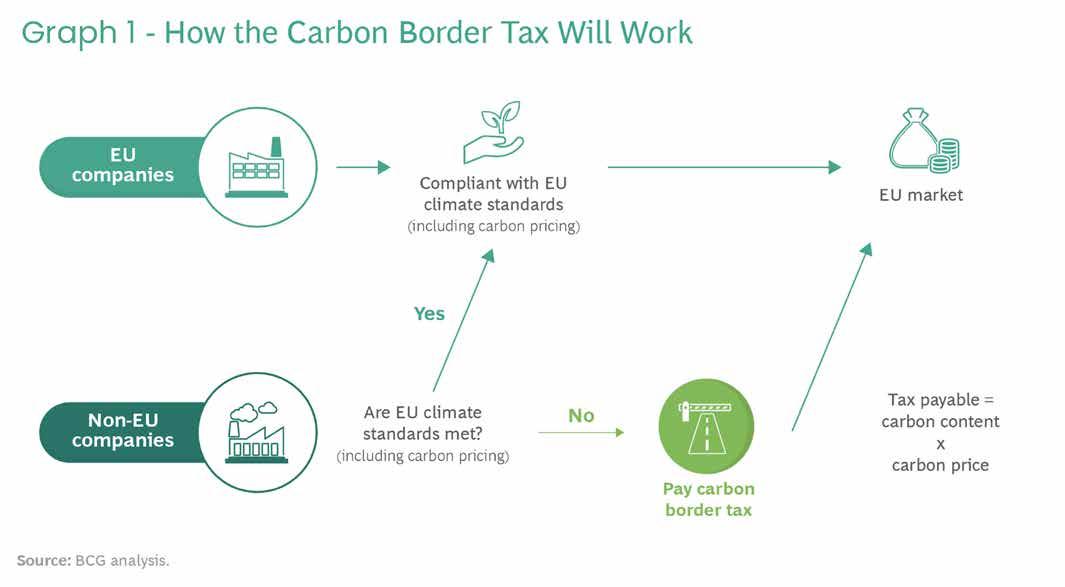
2. https://law.nus.edu.sg/apcel/wp-content/uploads/sites/3/2022/01/APCEL-WPS-2201.pdf
Fasteners are an essential component in many industries, including construction, automotive, and manufacturing. Singapore is a significant exporter of fasteners to the European Union (EU) region, and trade between the two regions has been growing steadily over the years. According to the International Trade Centre, Singapore exported fasteners worth USD 102.2 million to the EU region in 2022, making it the fifth-largest supplier of fasteners to the EU after China, Taiwan, Germany, and Italy. The EU, in turn, exported fasteners worth USD 52.4 million to Singapore in the same year. The EU and Singapore have a Free Trade Agreement (FTA) that entered into force in November 2019. The FTA has helped to boost trade between the two regions by reducing trade barriers, including the elimination of tariffs on almost all goods traded between them, including fasteners. Singapore's strength in the fastener industry lies in its advanced manufacturing capabilities, high-quality standards, and skilled workforce. The country's strategic location also makes it an ideal gateway for fastener exporters looking to access the fast-growing markets in Southeast Asia and beyond.
Article by: Sharareh Shahidi HamedaniCopyright owned by Fastener World








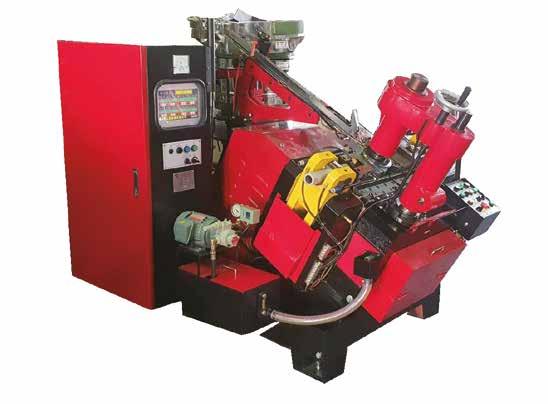








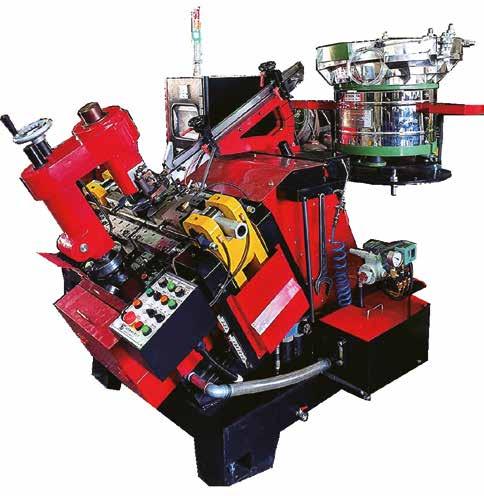
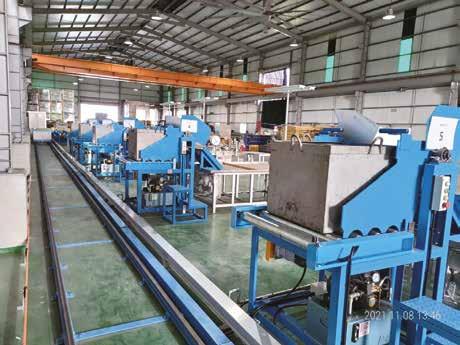

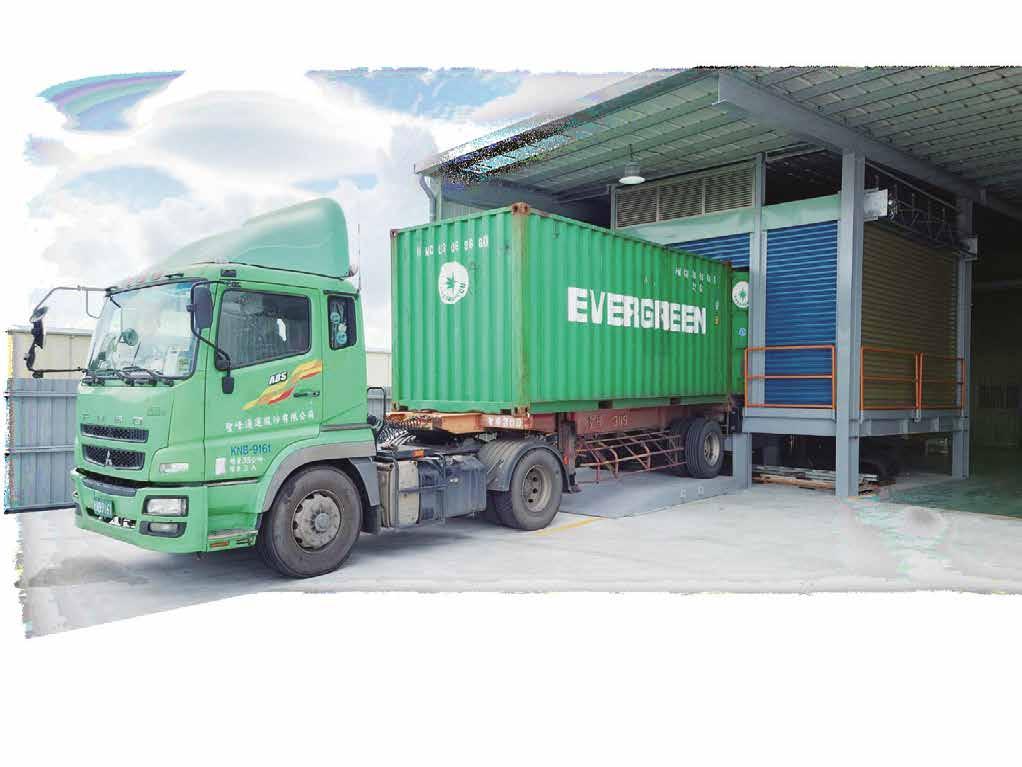






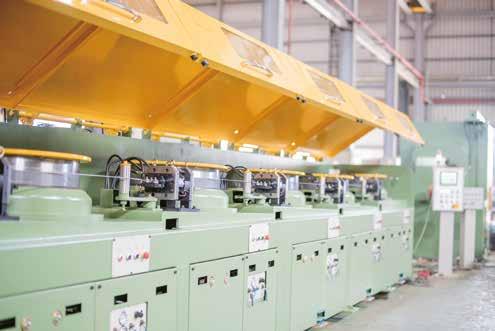










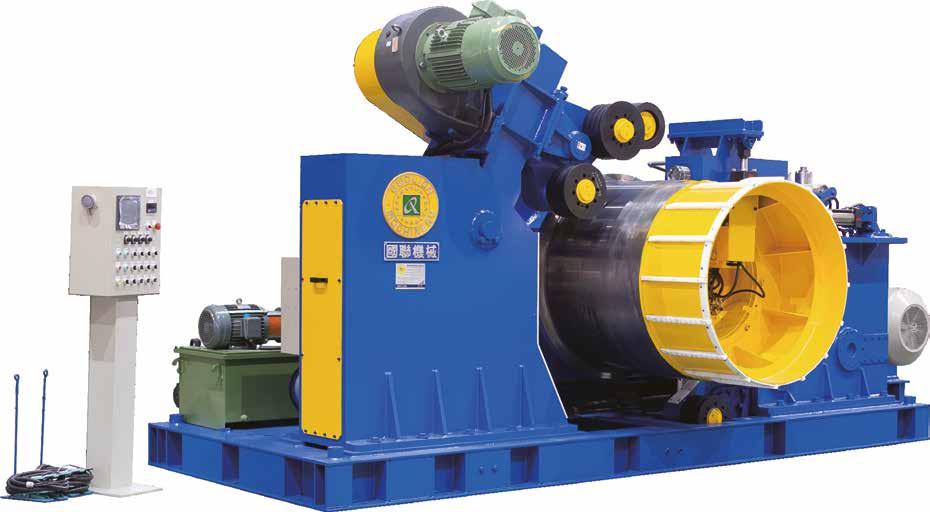


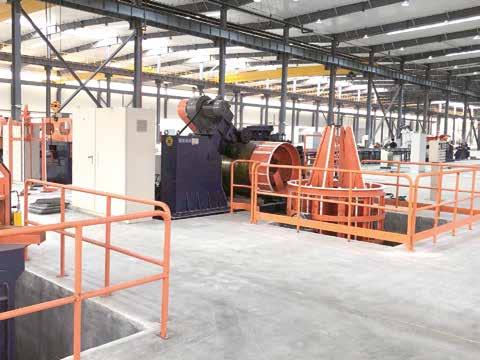





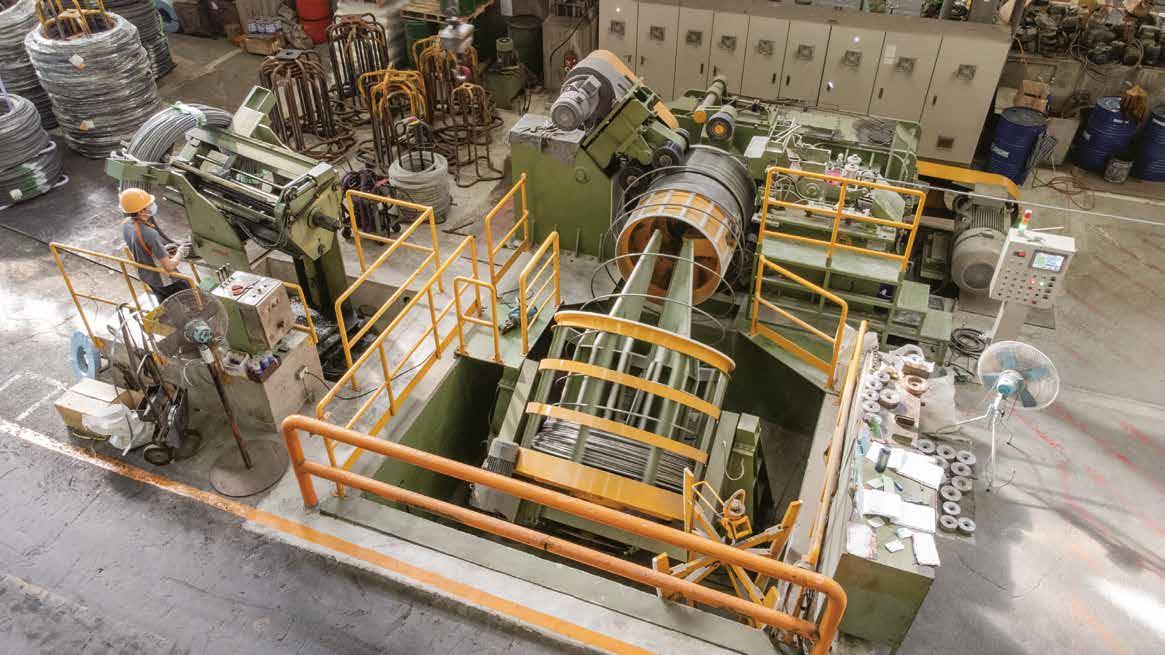



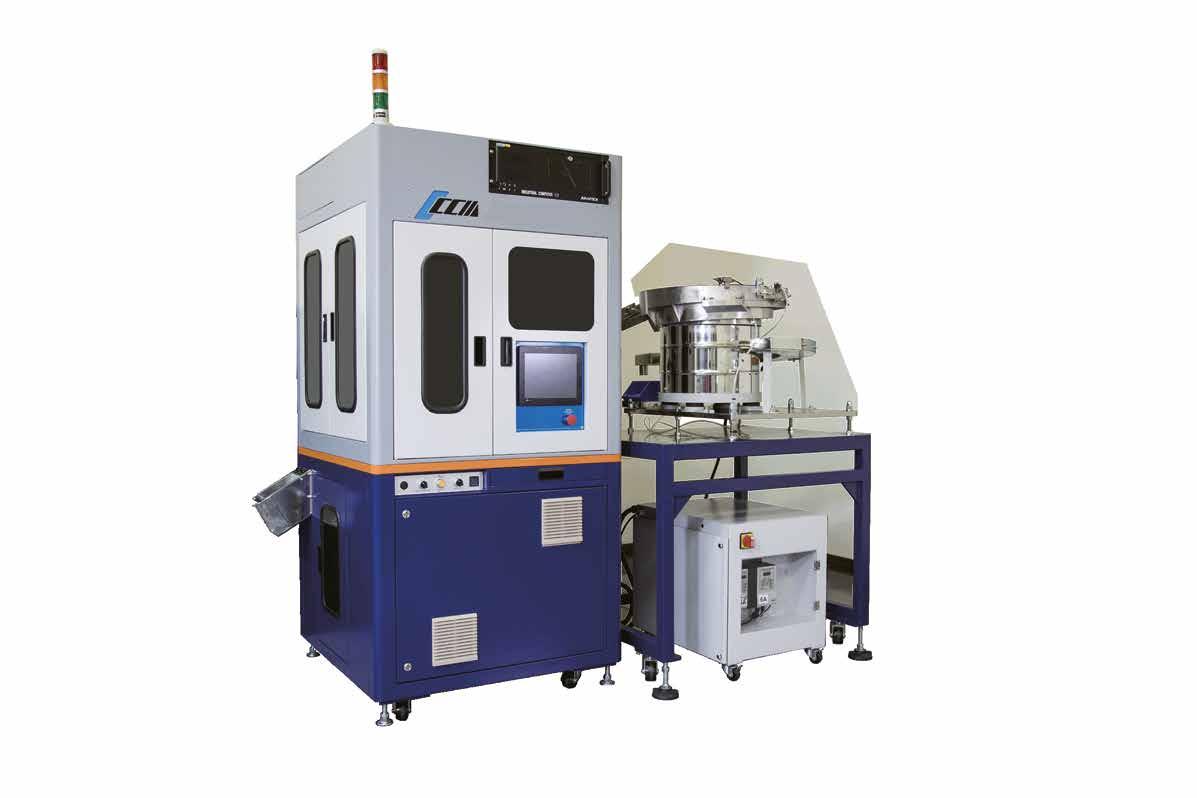













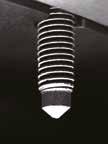







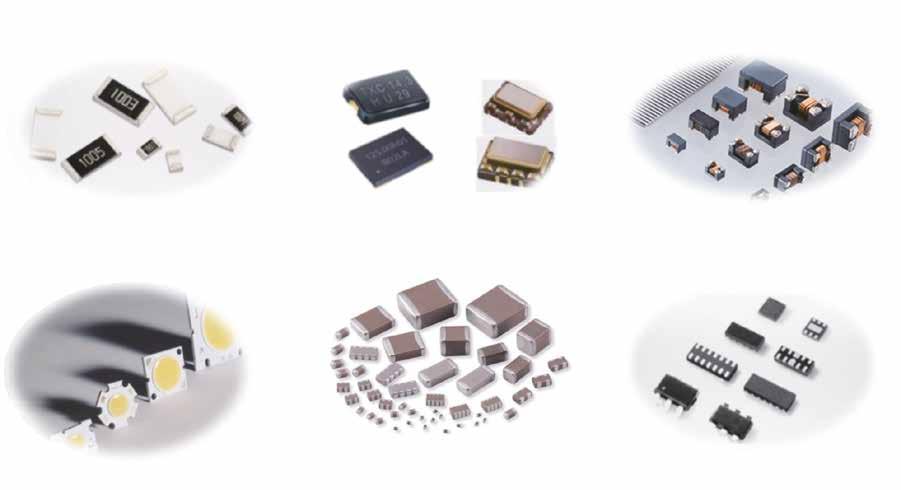





















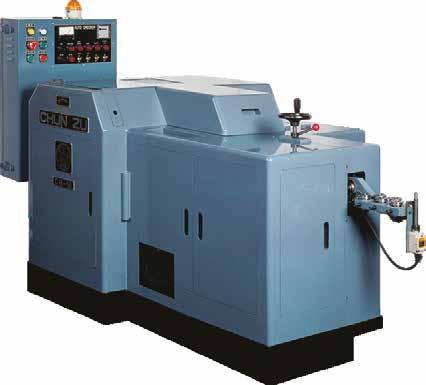
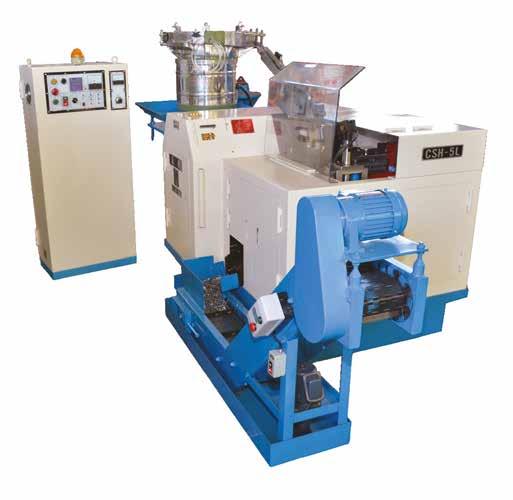
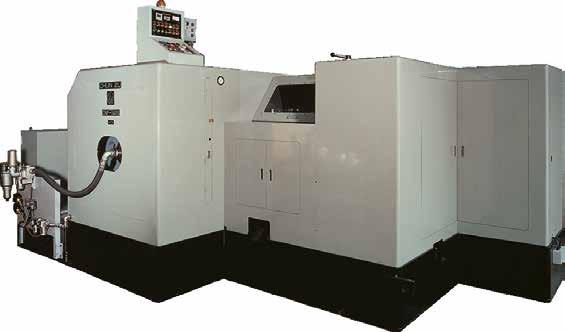
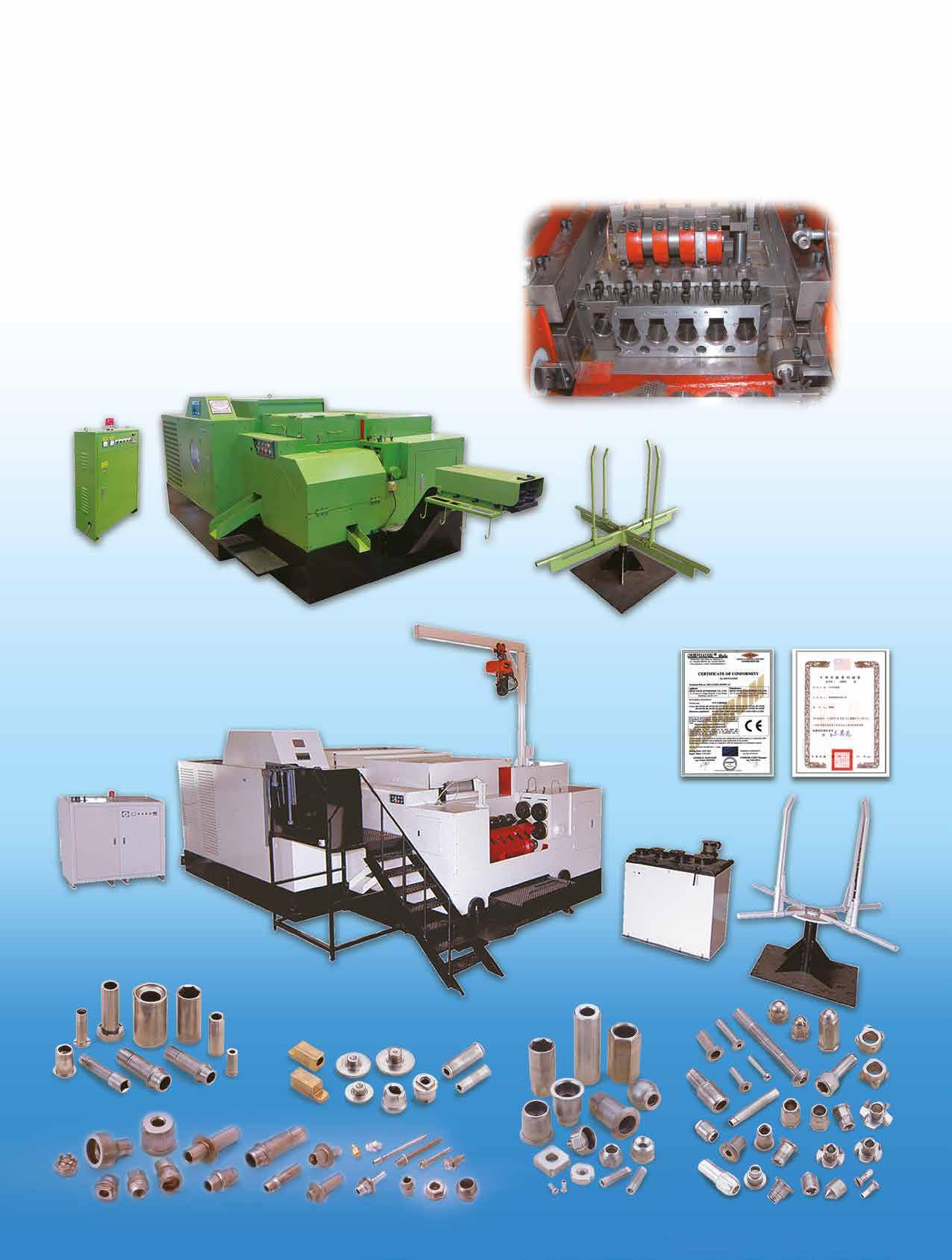


















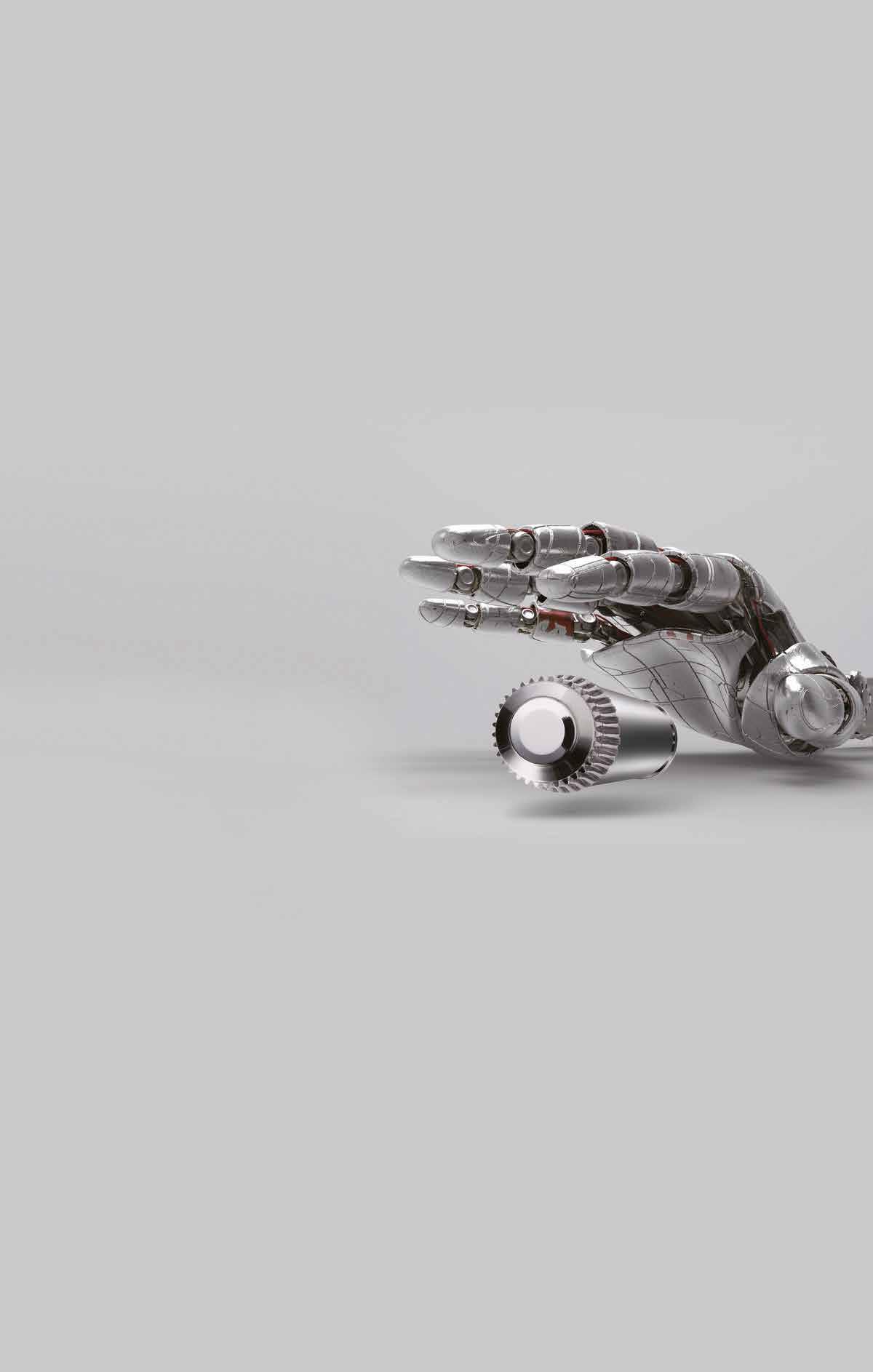


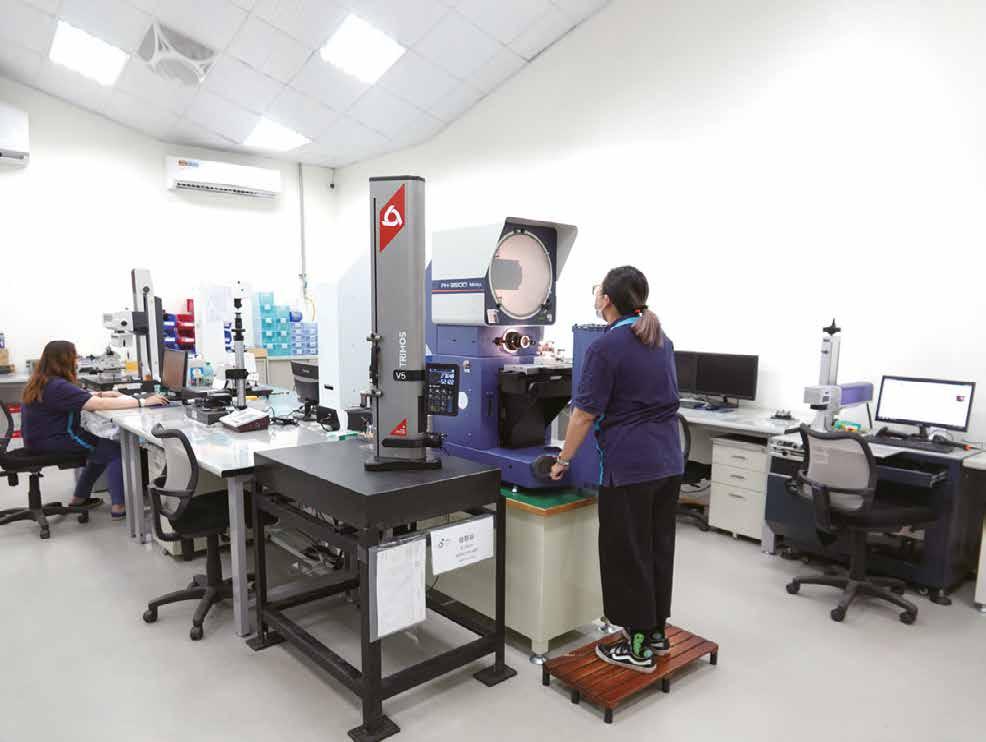
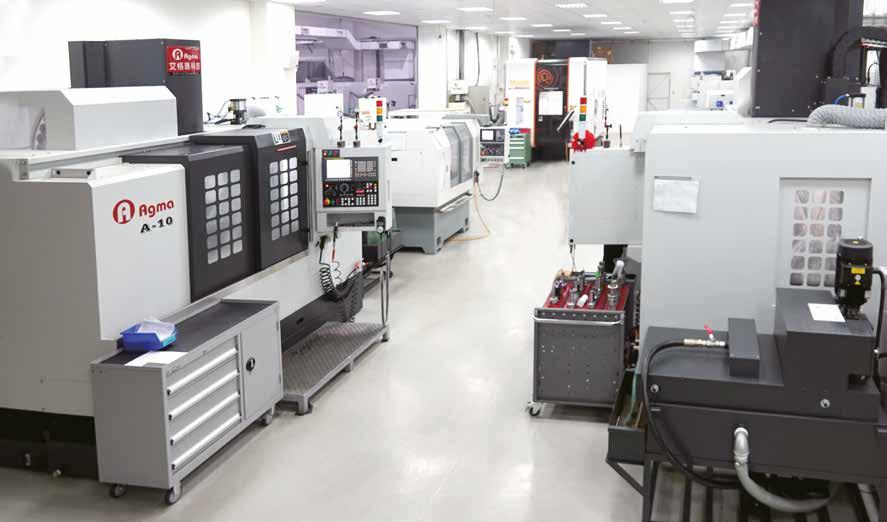















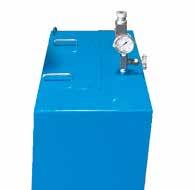
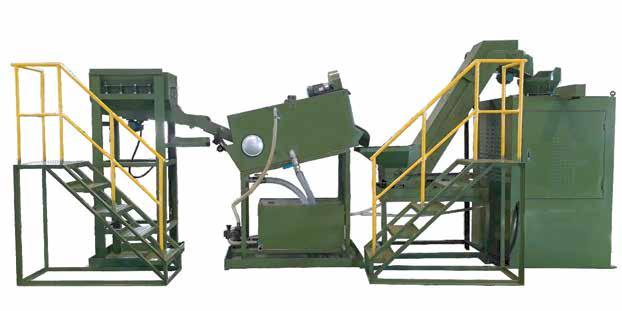


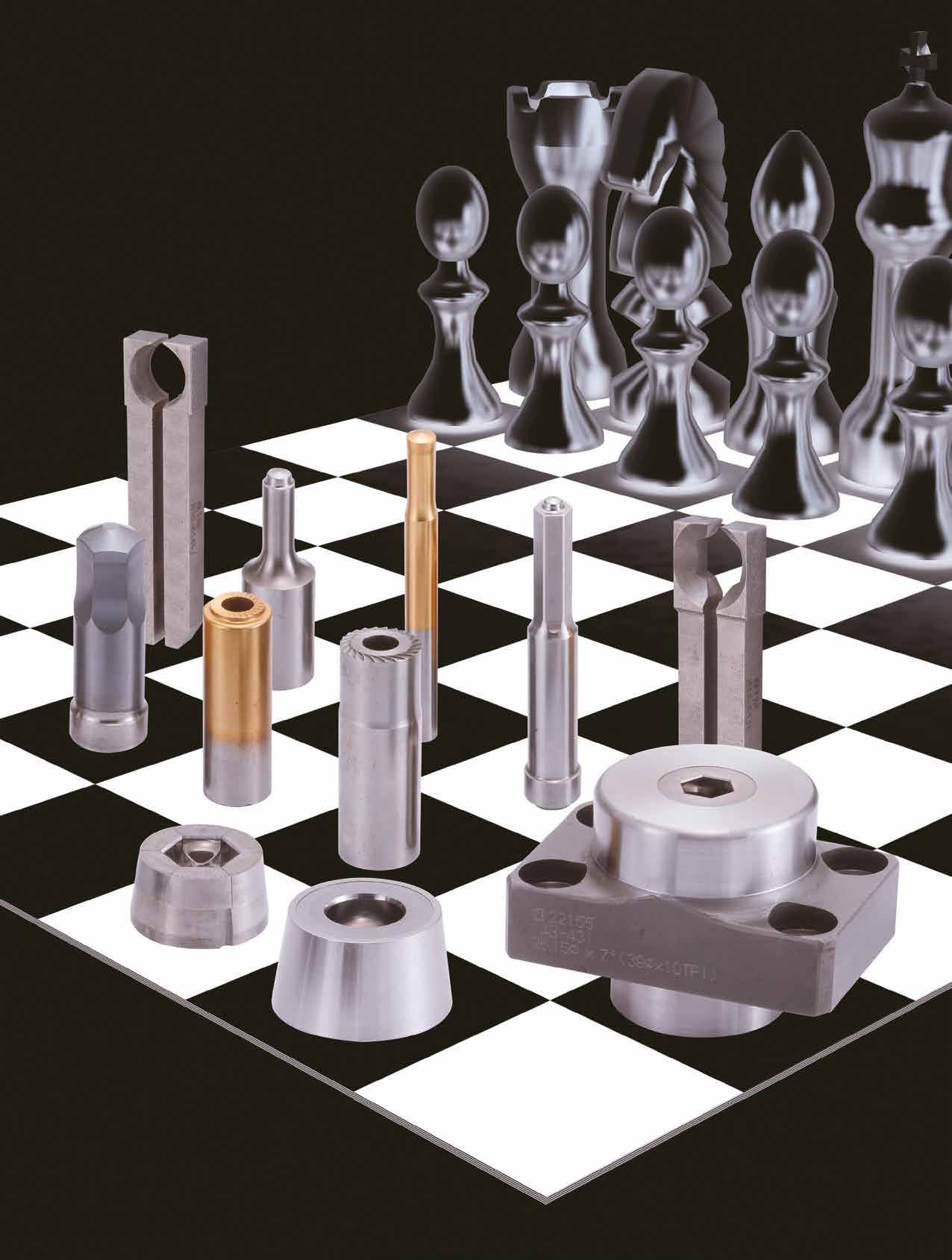

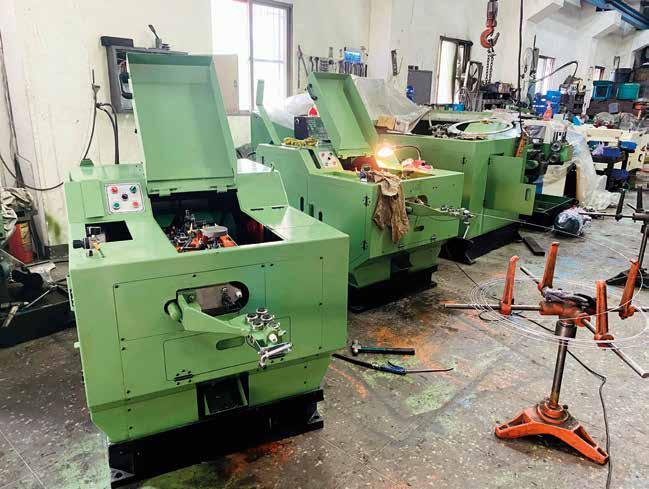
The quality of fastener production equipment in Taiwan is well known, and Lan Dee Woen Factory Co., Ltd. founded in 1984 by Mr. Lan and approved to be established in 1988 is also one of the most recognized companies in many overseas markets. With many years of excellent machine building technology, Lan Dee has been developing and manufacturing screws, rivets, and heading machines for long.
In addition to providing customers with basic Ø2~6mm solid rivets, semi-tubular rivets and open-end blind rivets processing equipment, Lan Dee is also able to customize machines for special specifications to fully satisfy different customer needs and provide more diversified services. At present, it’s rivet heading machine has obtained a patent for quick length adjustment, and in 2010 it also obtained a patent for the clamping device of the die clamping machine.
With its leading technology, highly flexible production and development capability, reliable product quality and ease of use, it has been favored by many Taiwanese fastener manufacturers in China for many years and has established cooperation channels and successfully exported to Shanghai, Zhejiang, and many other cities. Later on, it expanded its business to India, Indonesia, and many other emerging fastener manufacturing markets. Lan Dee’s products have been even exported to South Africa and Uganda in Africa.
“The open-end aluminum rivet machine has been the bestseller of our company for years. We have also developed a 2-die, 2-blow round heading machine for smaller workpieces under Ø4mm and a 1-die, 2-blow round heading machine for large-head rivets. In addition, we have a professional team that can help the whole factory plan according to customers’ major production items for those who are new to screw manufacturing or start-ups. So far, we have successfully helped many small entrepreneurs start their blind rivet production lines, and several of them have even grown into major local suppliers,” according to Lan Dee.
Emerging markets account for a large part of Lan Dee’s sales and its equipment products are providing a strong boost to customers in these markets as they upgrade their products. India, in particular, is an important sales market for Lan Dee. It has been selling many machines to India through its domestic trading partners for a decade and has developed strong relationships with many manufacturers there. It has continued to expand its customer base through long term partner introductions. In emerging markets such as Brazil or the Middle East, it has also established long-term relationships with many trusted trading partners.
According to Lan Dee, “In the face of increasingly stringent customer requirements and standards, we will continue to develop 1-die, 2-blow round heading machines to improve the quality of finished products, and we will try our best to help customers to create product and brand value within our capacity.
Contact person: Ms. Evelyn Lan Email:
By Gang Hao Chang, Vice Editor-in-Chief of Fastener World
They are launching MultiStroke High Speed Screw Forming Machine this month with 300% performance boost.
Through its head office in Yunlin County and the office in Ganshan, the highly reputable screw machine manufacturer Chao Jing provides screw forming machines, headers, thread rolling machines, special parts forming machines and sells them worldwide. For many years they have been developing new models with higher efficiency and speed. After announcing the launch of 2-Die 2-Stroke Screw Forming Machine last year in the European Market Feature Report on Fastener World Magazine, they are launching Multi-Stroke High Speed Screw Forming Machine this month with 300% performance boost and very much anticipated sales potential!
In order to replace the 1-die 2-stroke machine, Chao Jing has developed a new multi-stroke high-speed machine producing up to 300 pieces per minute, “Get one of our machines and do three machines’ job".
The present 1-die 2-stroke machines in the market occupy an area of about 6.6 square meters each, producing about 100 pieces per minute and about 140,000 pieces per day. In order to replace the 1-die 2-stroke machine, Chao Jing has developed a new multi-stroke high-speed machine producing up to 300 pieces per minute, "Get one of our machines and do three machines’ job. Land prices are rising and our machines can save customers’ floor space, labor and up to 40% of processing costs". Some customers have told the general manager of Chao Jing that they no longer need to work shifts with this new machine. They can achieve the same productivity by working just 8 hours a day.
The potential of this machine does not stop there, it can save up to 60% of electricity consumption, which is a godsend for customers in the event of electricity price increase. In the long run, the cost reduction and capacity increase for customers is very significant. For customers who are exporting fastener products to Europe and the U.S., this machine already in mass production can provide a direct solution in the face of carbon tax that will be implemented in a few years as well as the trend of energy saving and carbon reduction.
It adopts a patented structural design to offset the eccentricity of the machine and keep the machine stable without vibrating during the production process, which not only reduces the noise during production, but also enhances the quality of production and the comfort of working environment.
The general manager shared that this new machine was created in response to many customer requests. It adopts a patented structural design to offset the eccentricity of the machine and keep the machine stable without vibrating during the production process, which not only reduces the noise during production, but also enhances the quality of production and the comfort of working environment. The patent was approved in Taiwan and Vietnam last year.
High-speed screw forming is highly abrasive to dies, but the general manager has already thought of this for the sake of customers. Chao Jing carefully selects high quality dies suppliers to assemble the best fitted dies to ensure durability and consistent high quality.
The general manager invested USD 15 million and he will be moving Chao Jing’s head office to Ma Chou Hou Industrial Park in Chiayi County. The new head office will occupy an area of 7,934 square meters and will have an R&D center and a testing center, with the priority of standardizing and supplying mechanical parts. In addition, he plans to set up an office in Binh Duong, Vietnam to serve local customers nearby. At the end of the interview, he revealed that he will visit Malaysian companies and tap into the Indian and Polish markets. With the launch of the new model, he is optimistic about the promising orders this year!
Contact: Avi Chen, Sales Assistant Email:jw.zw@msa.hinet.net by Dean Tseng, Fastener World
by Dean Tseng, Fastener World

